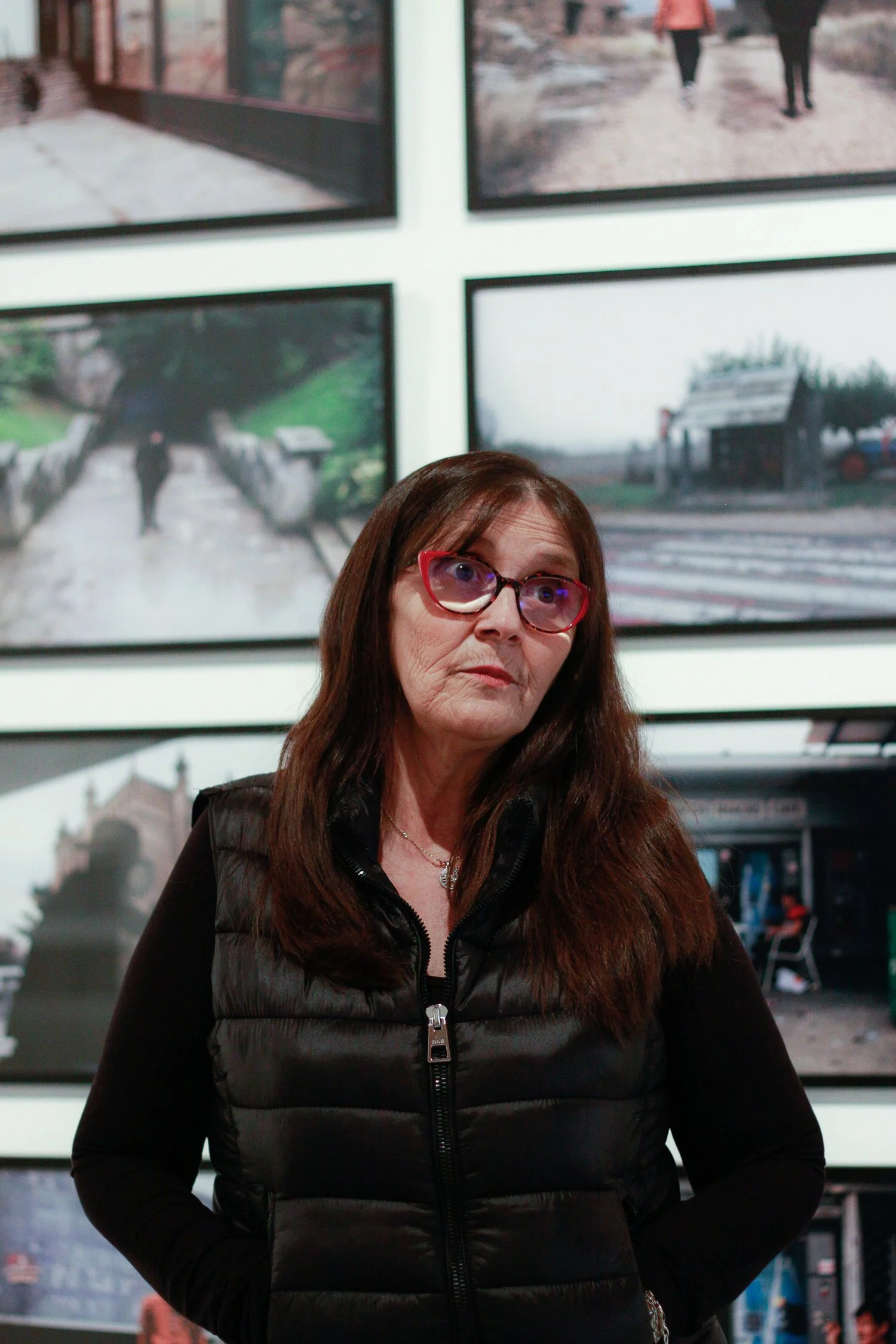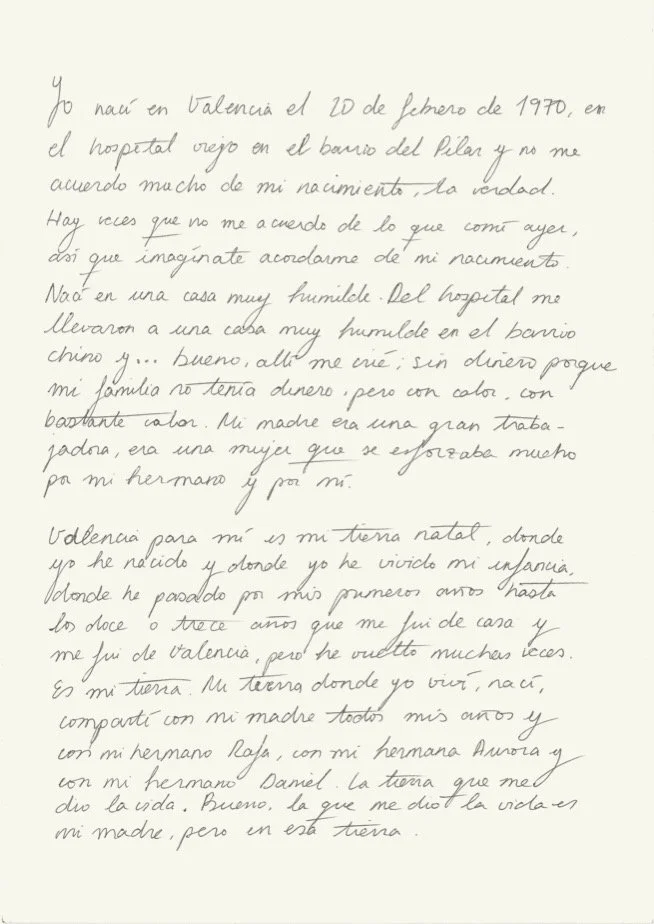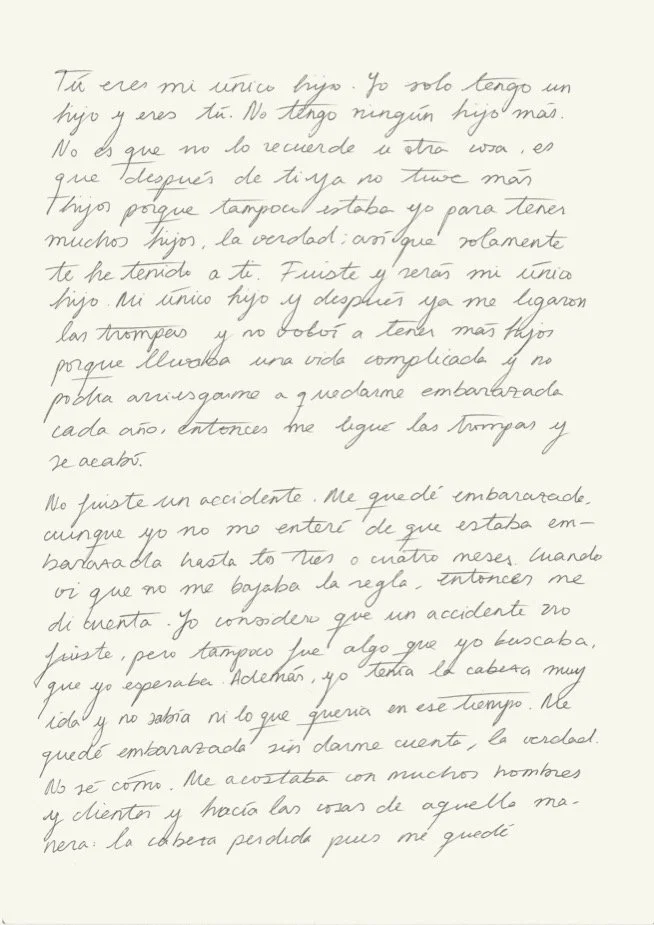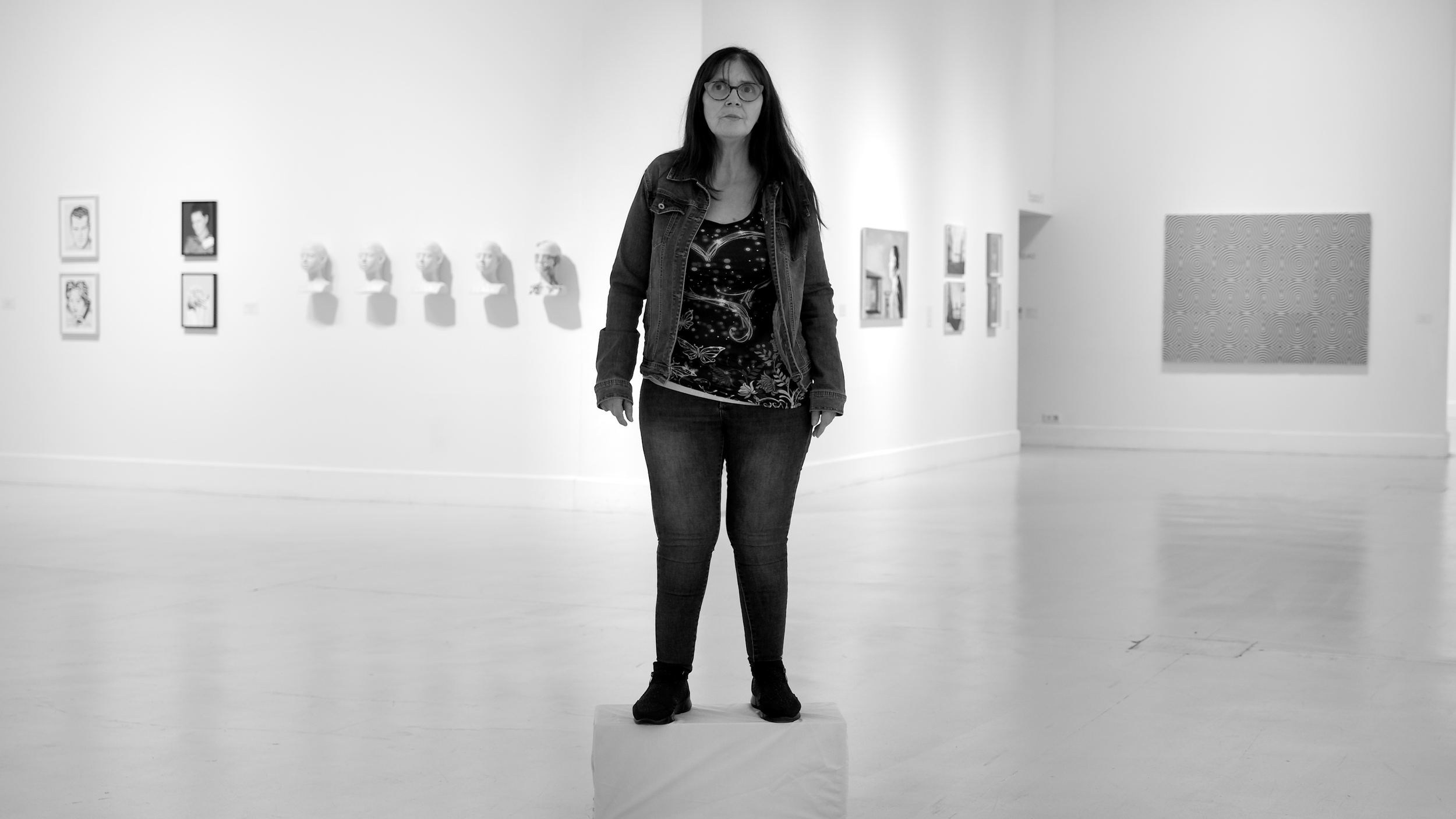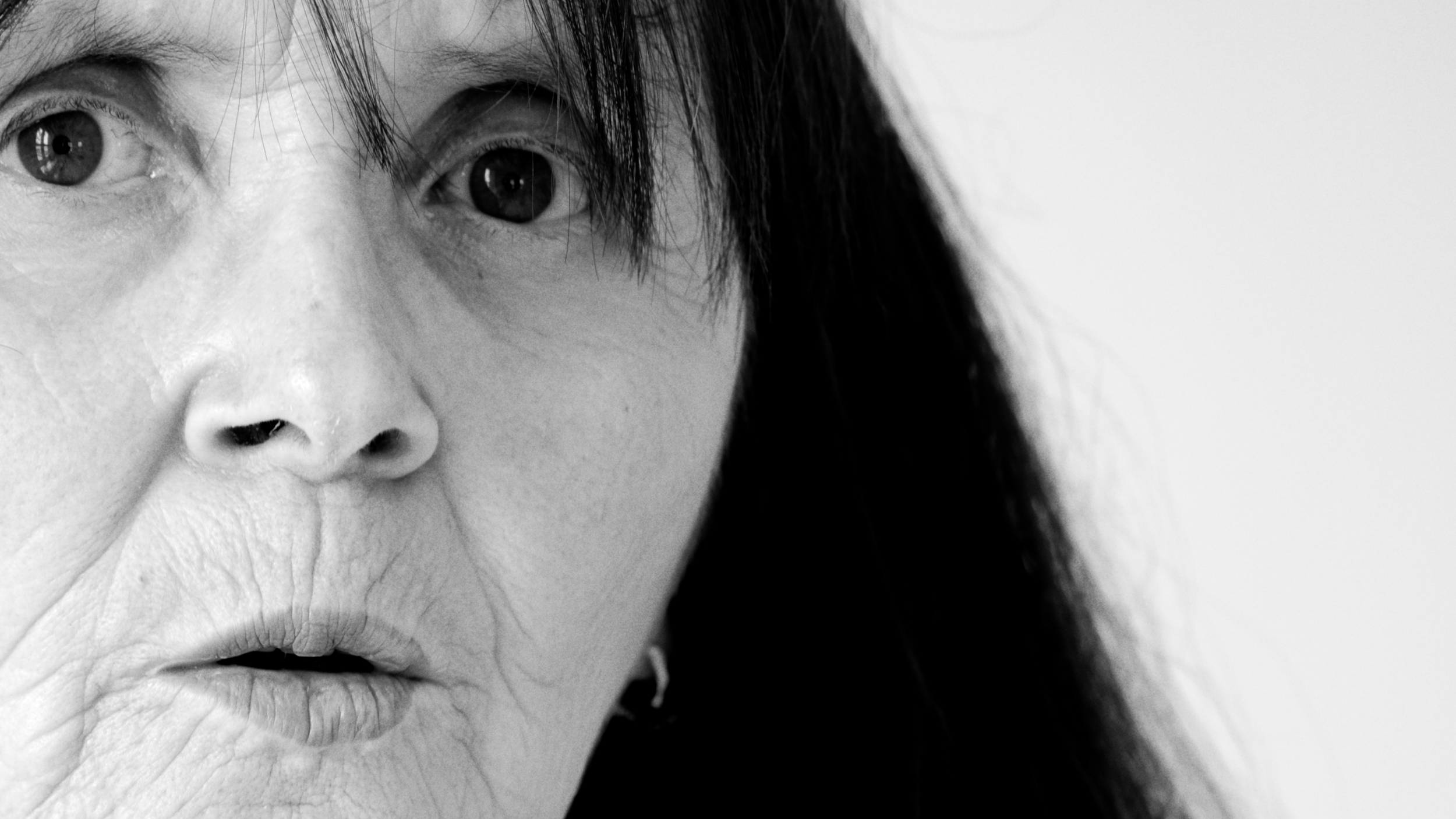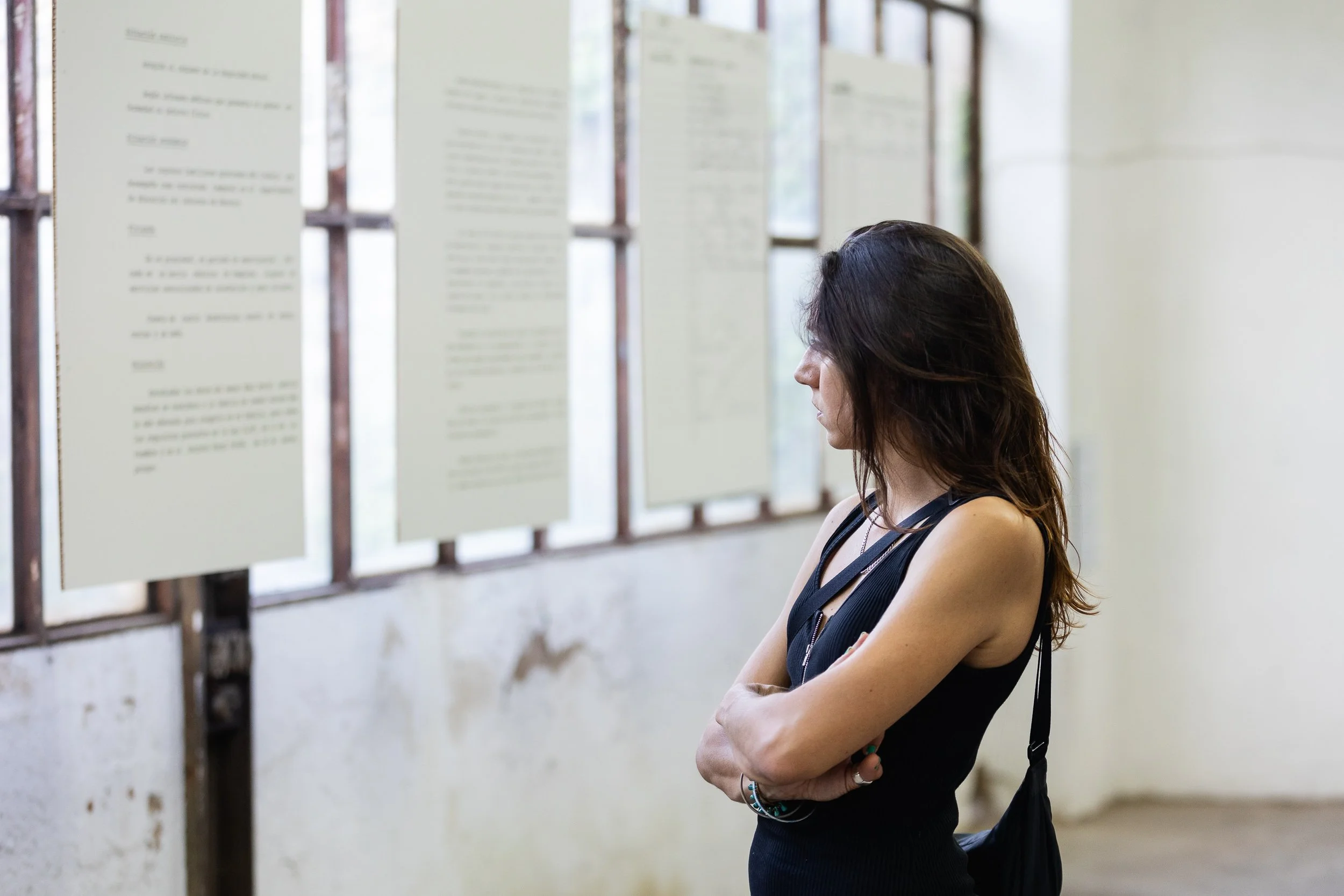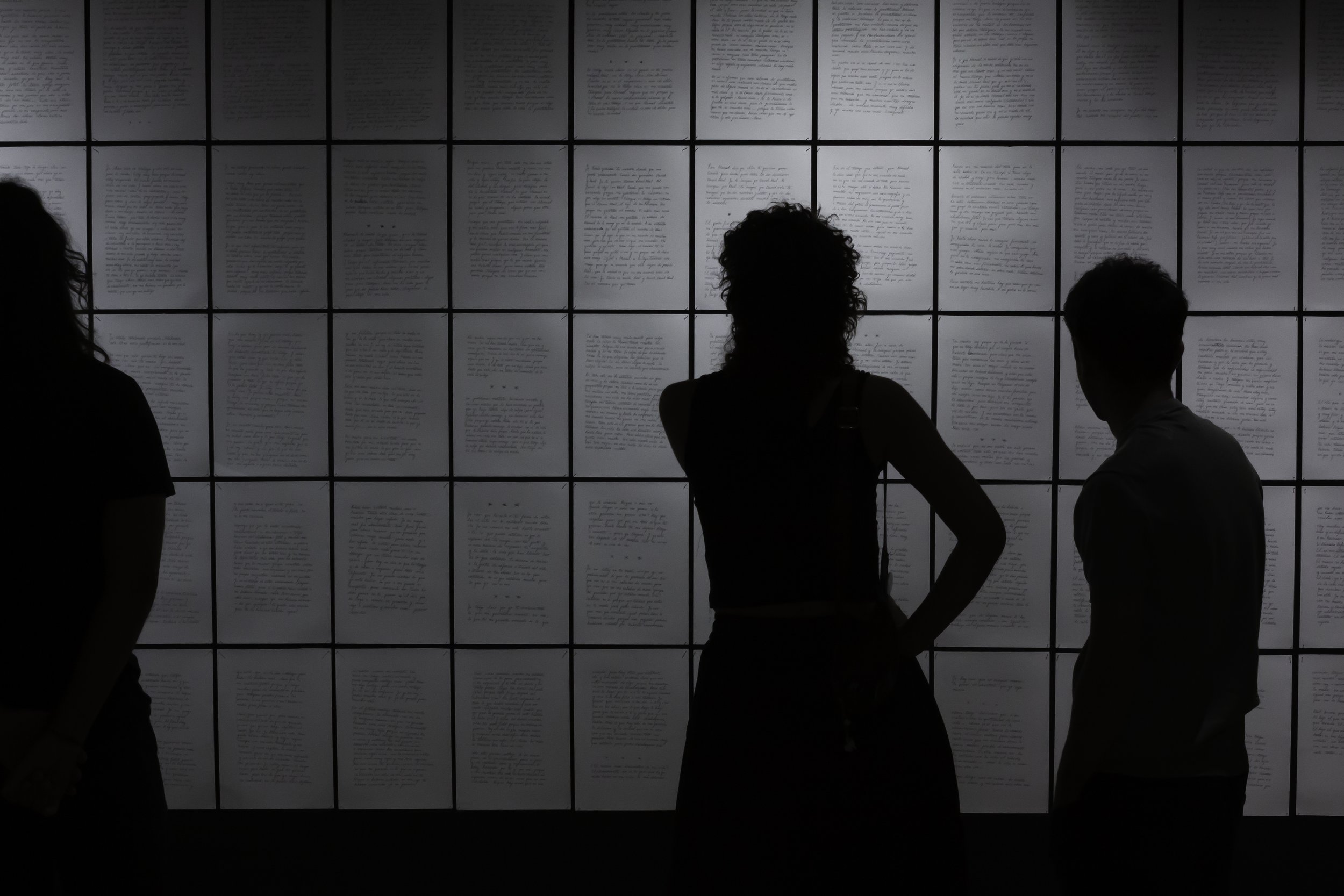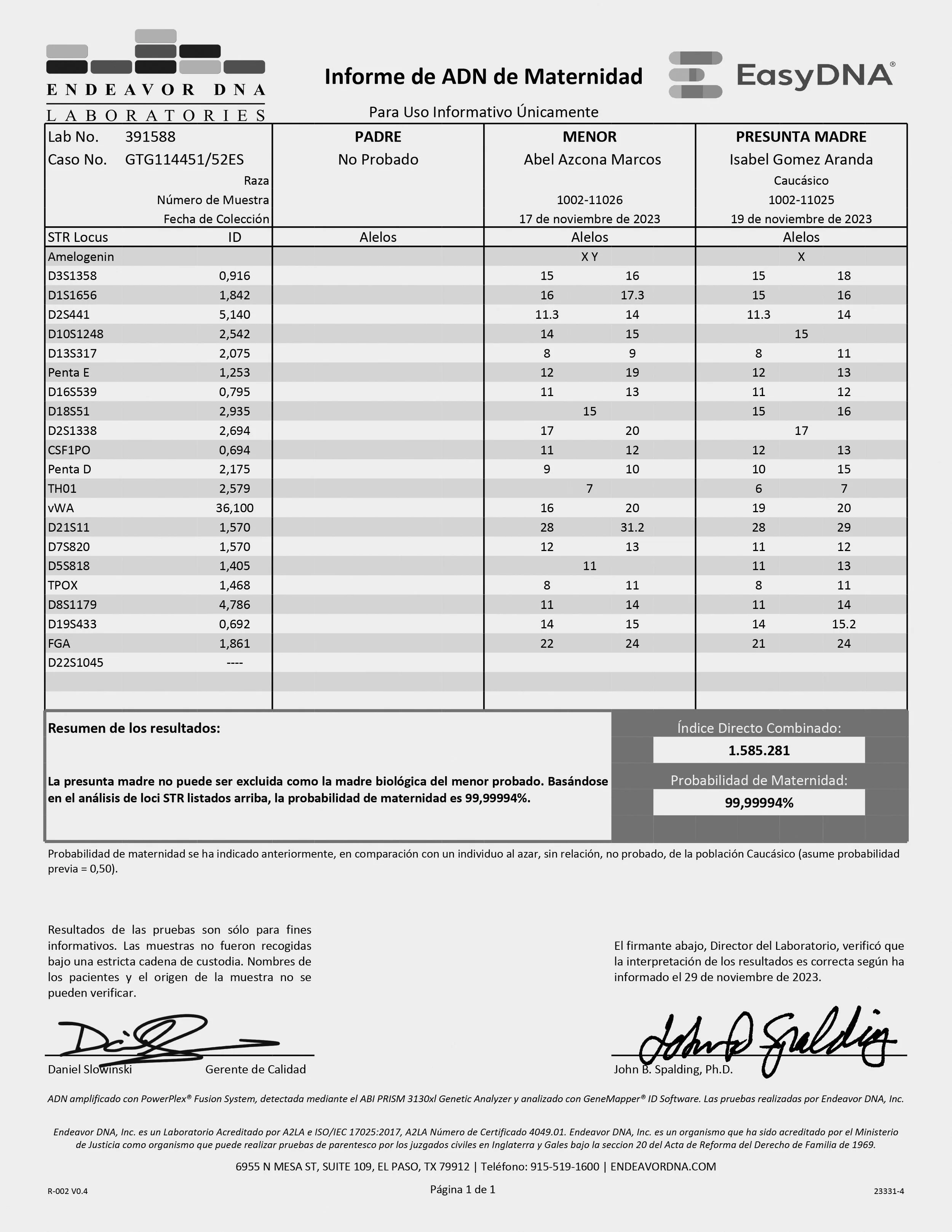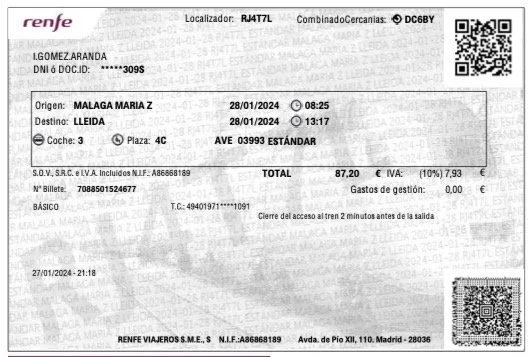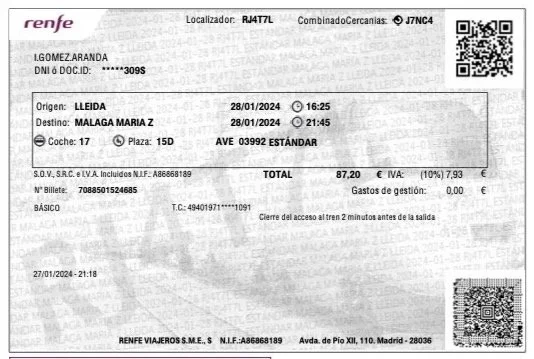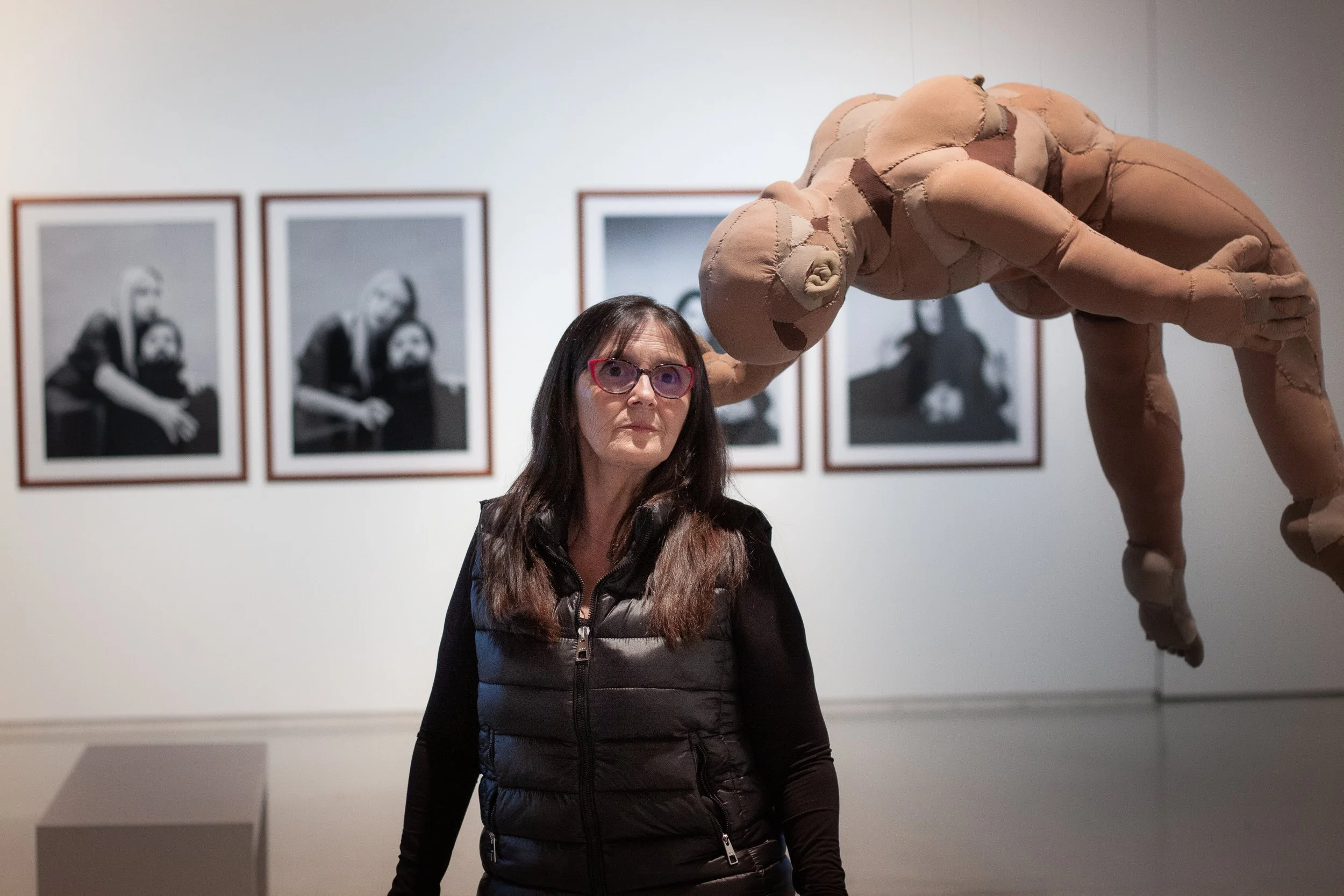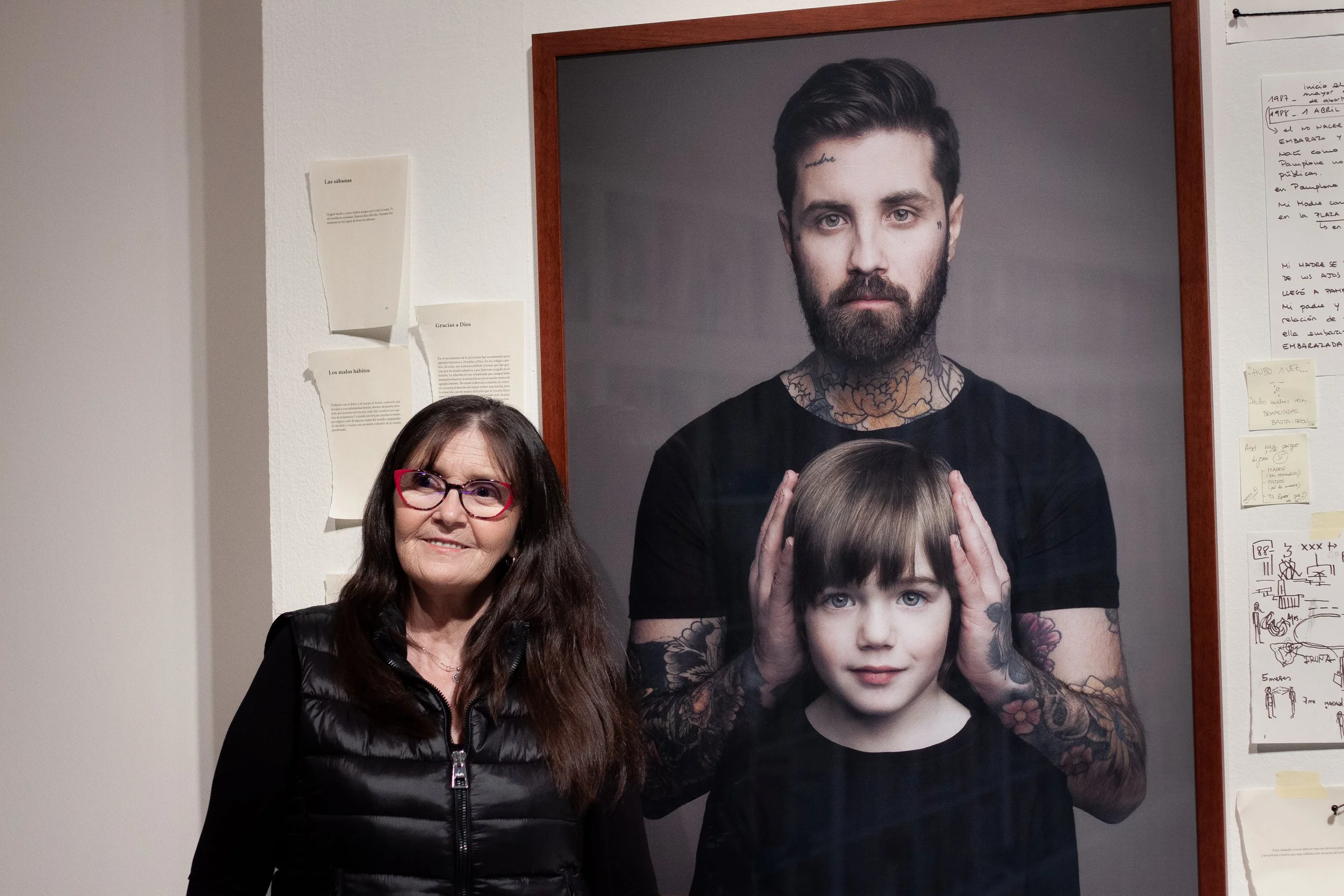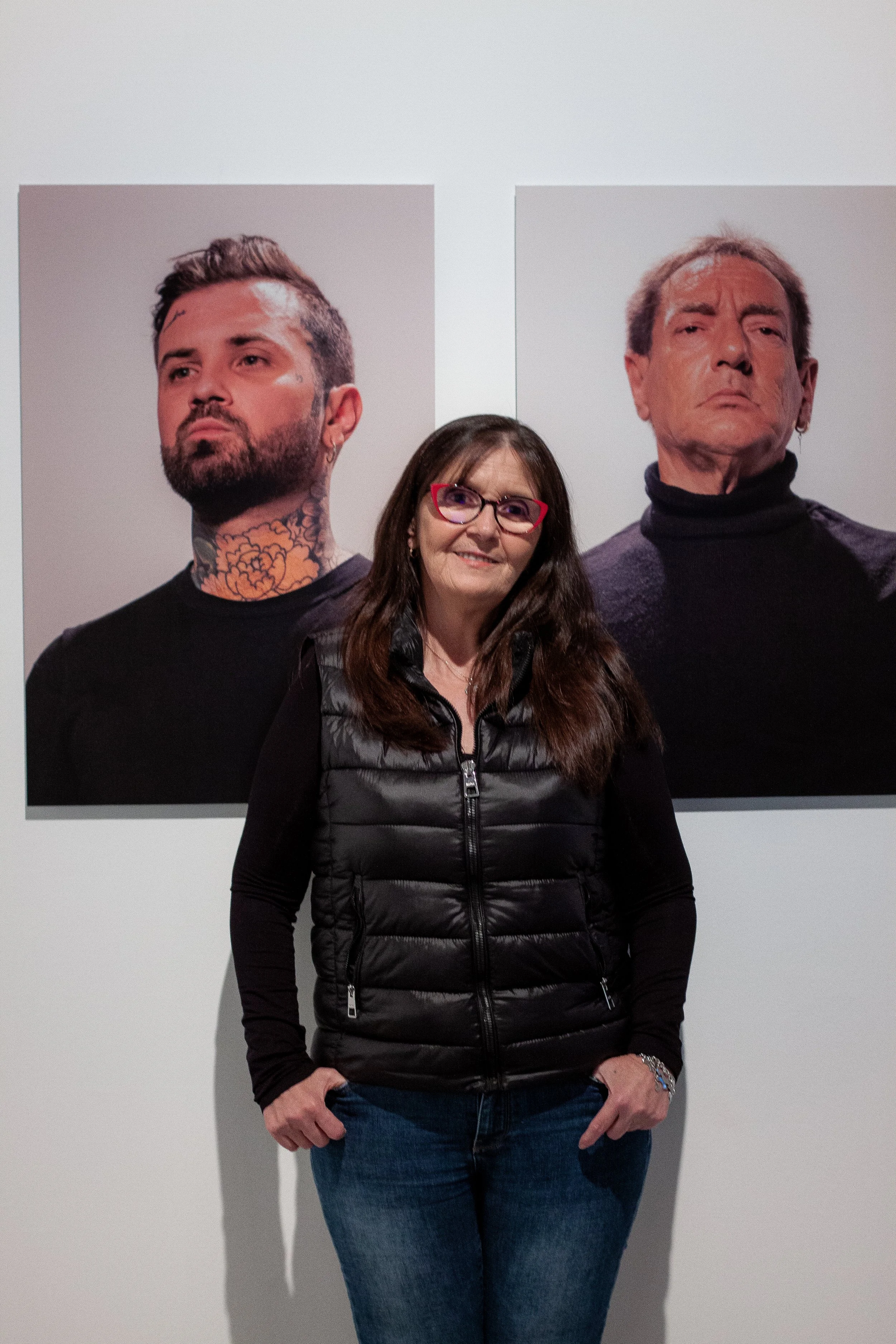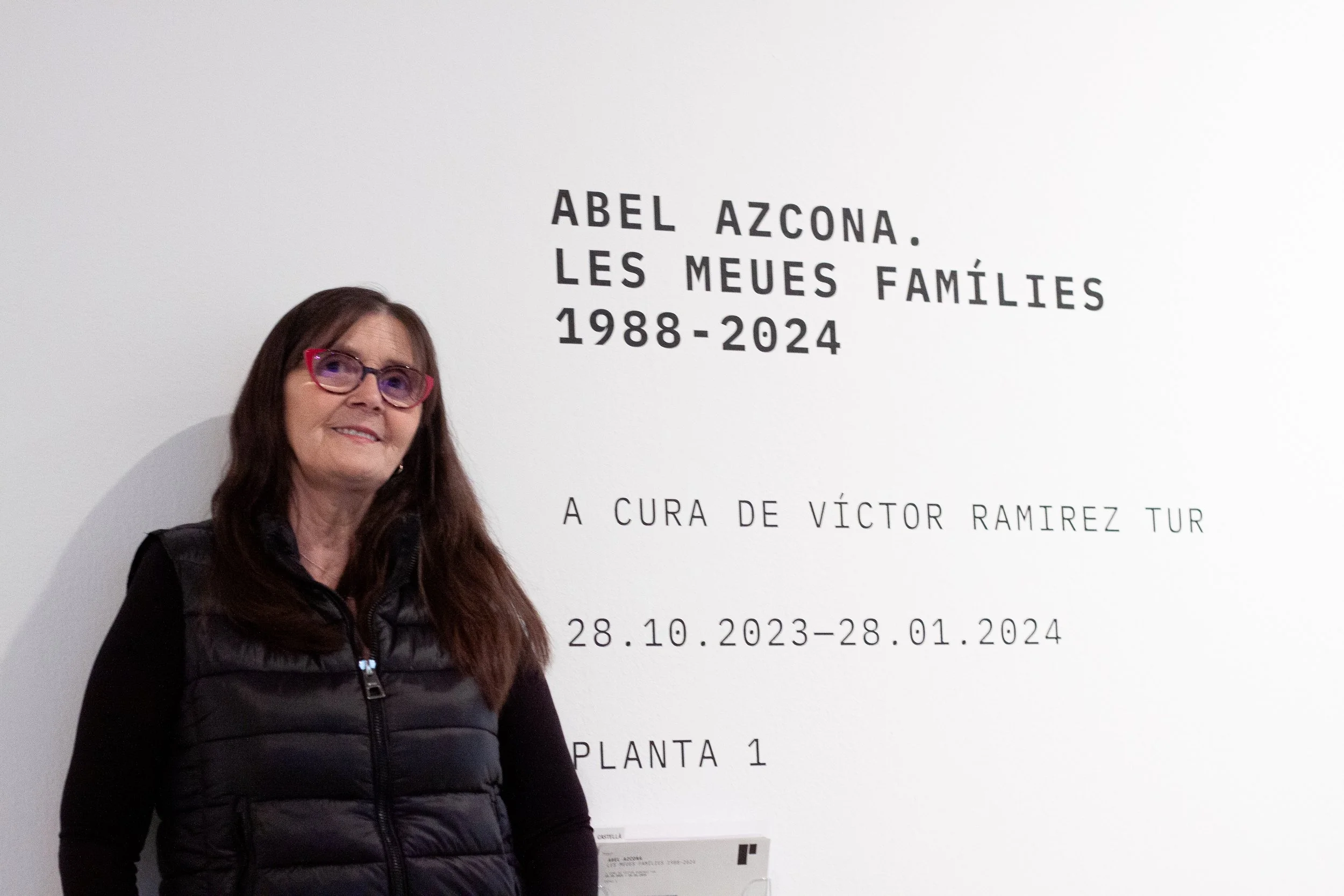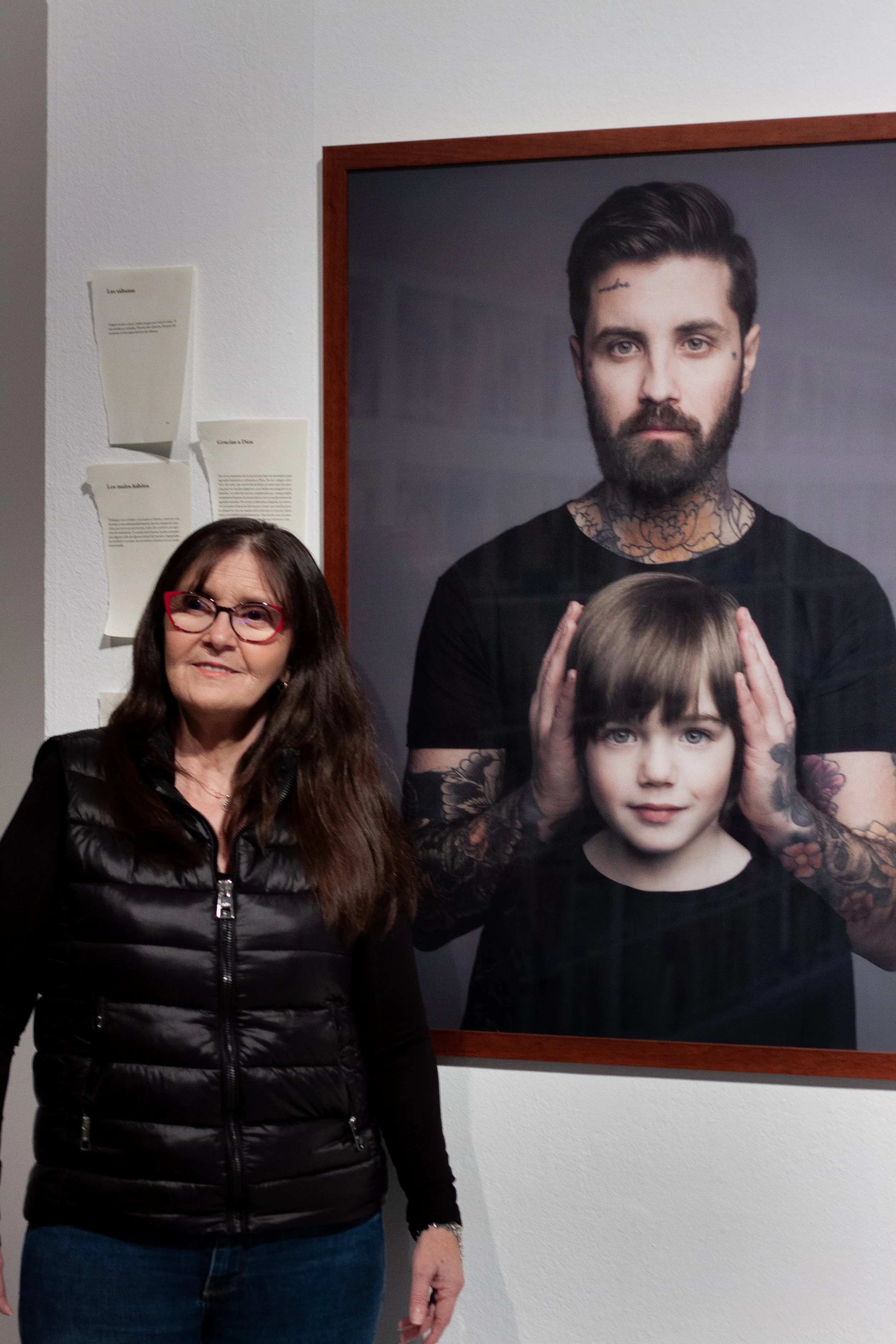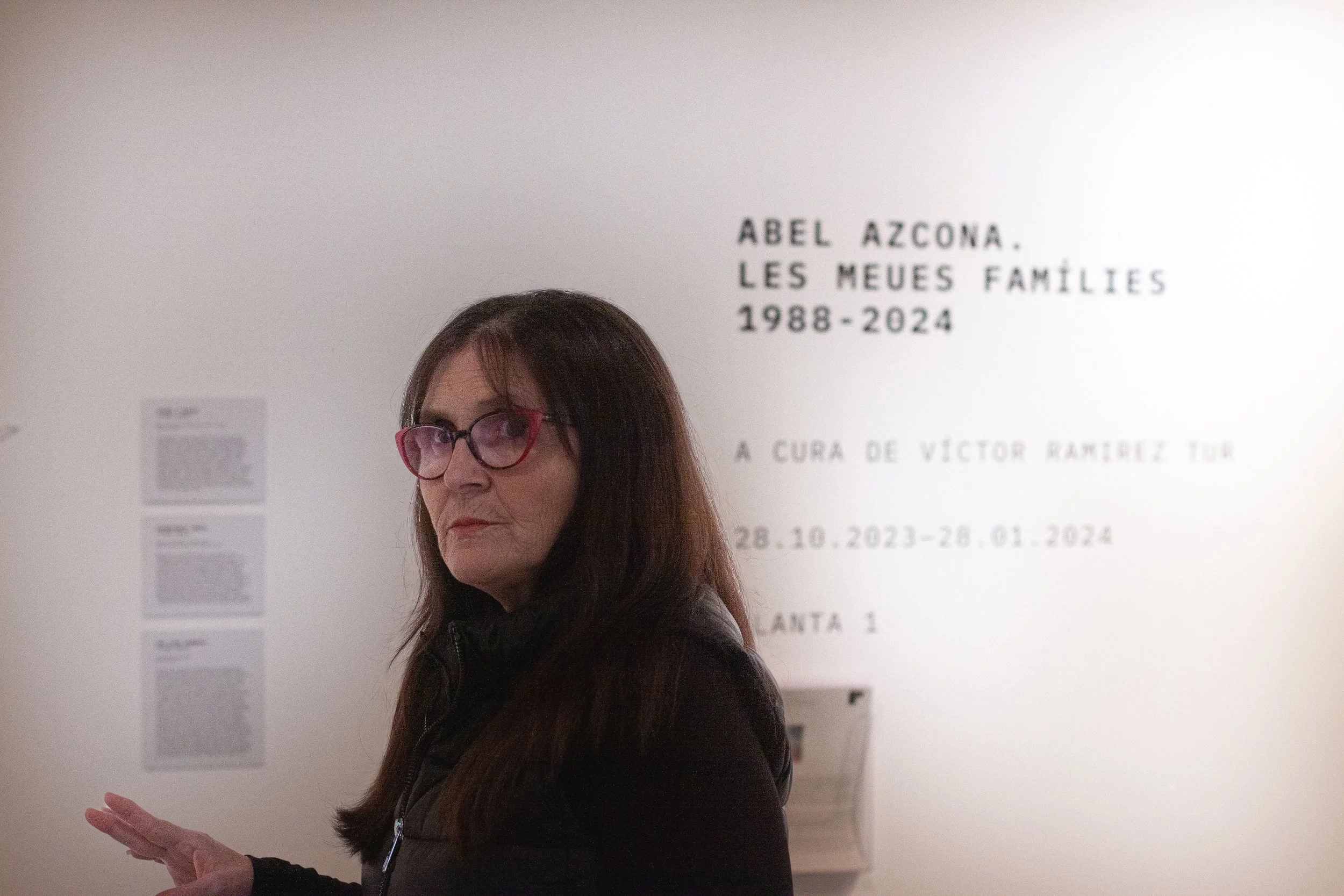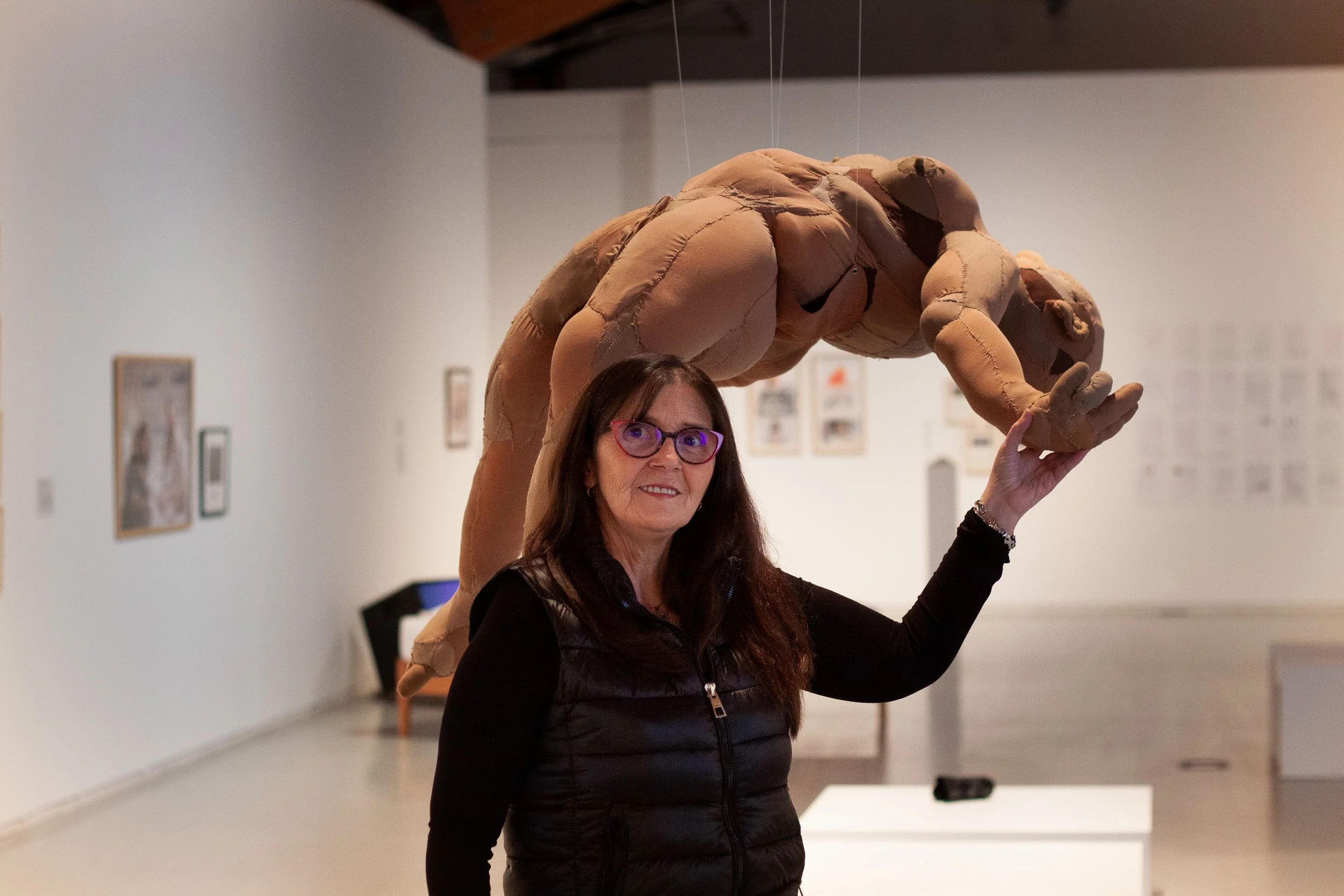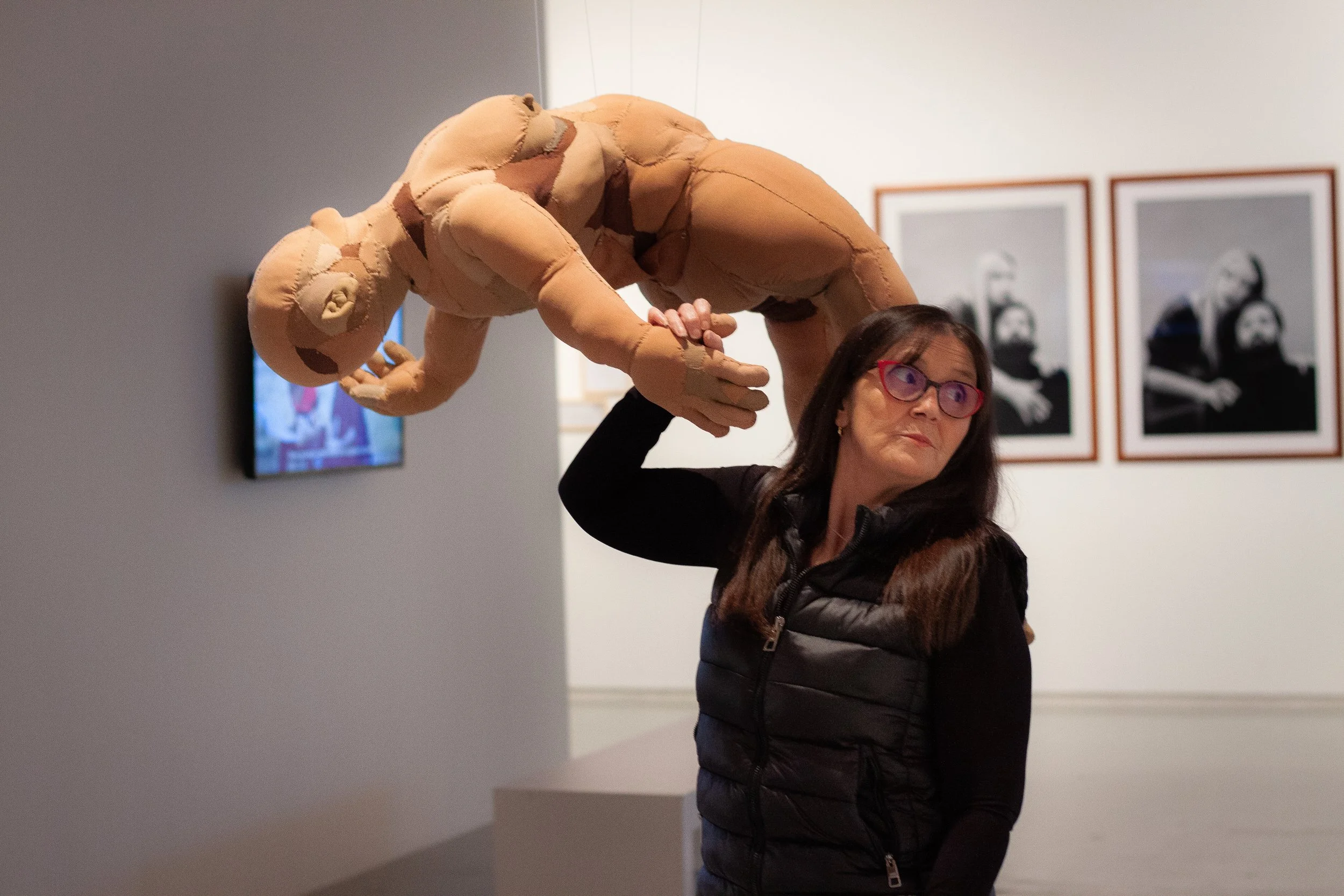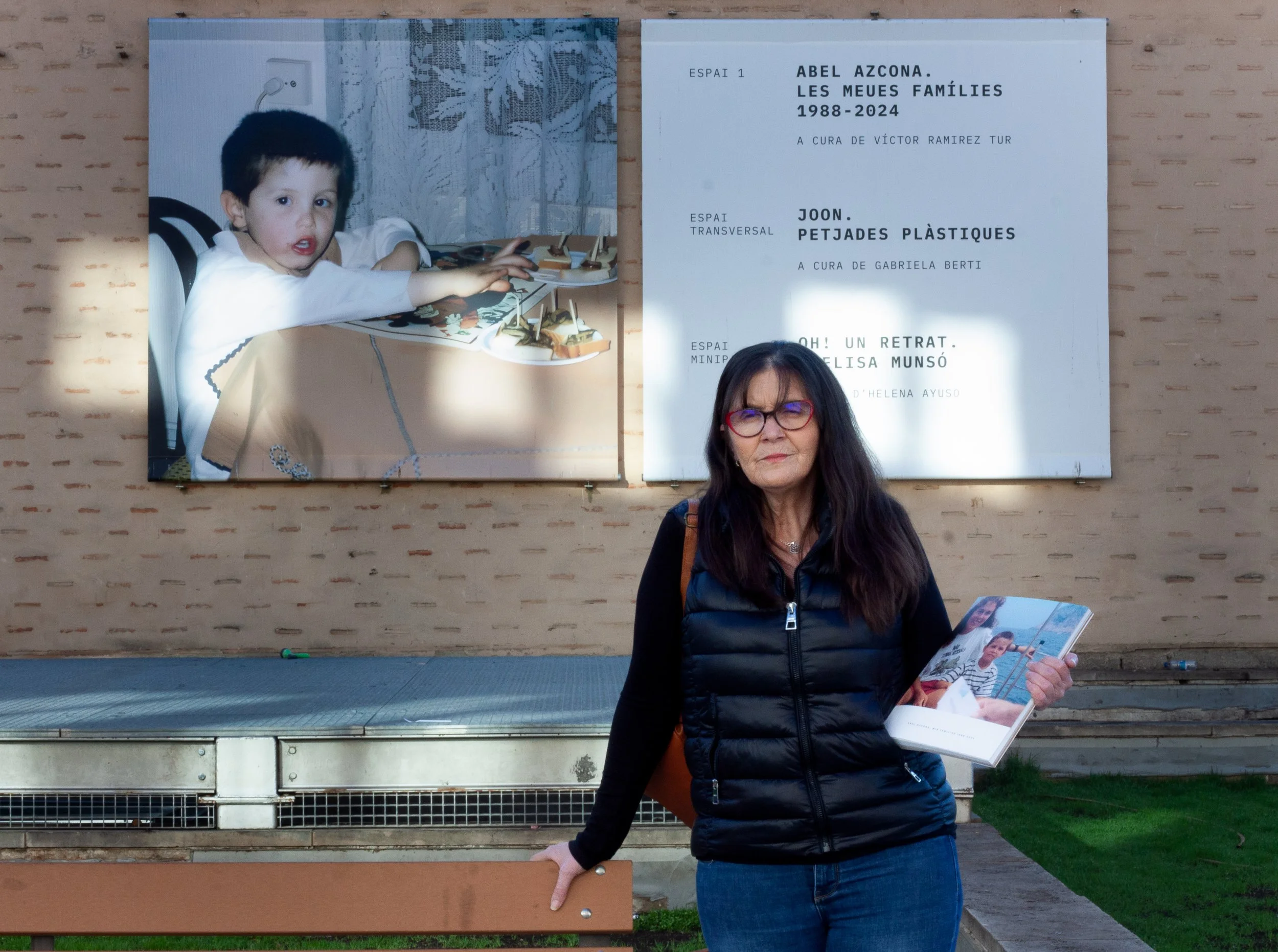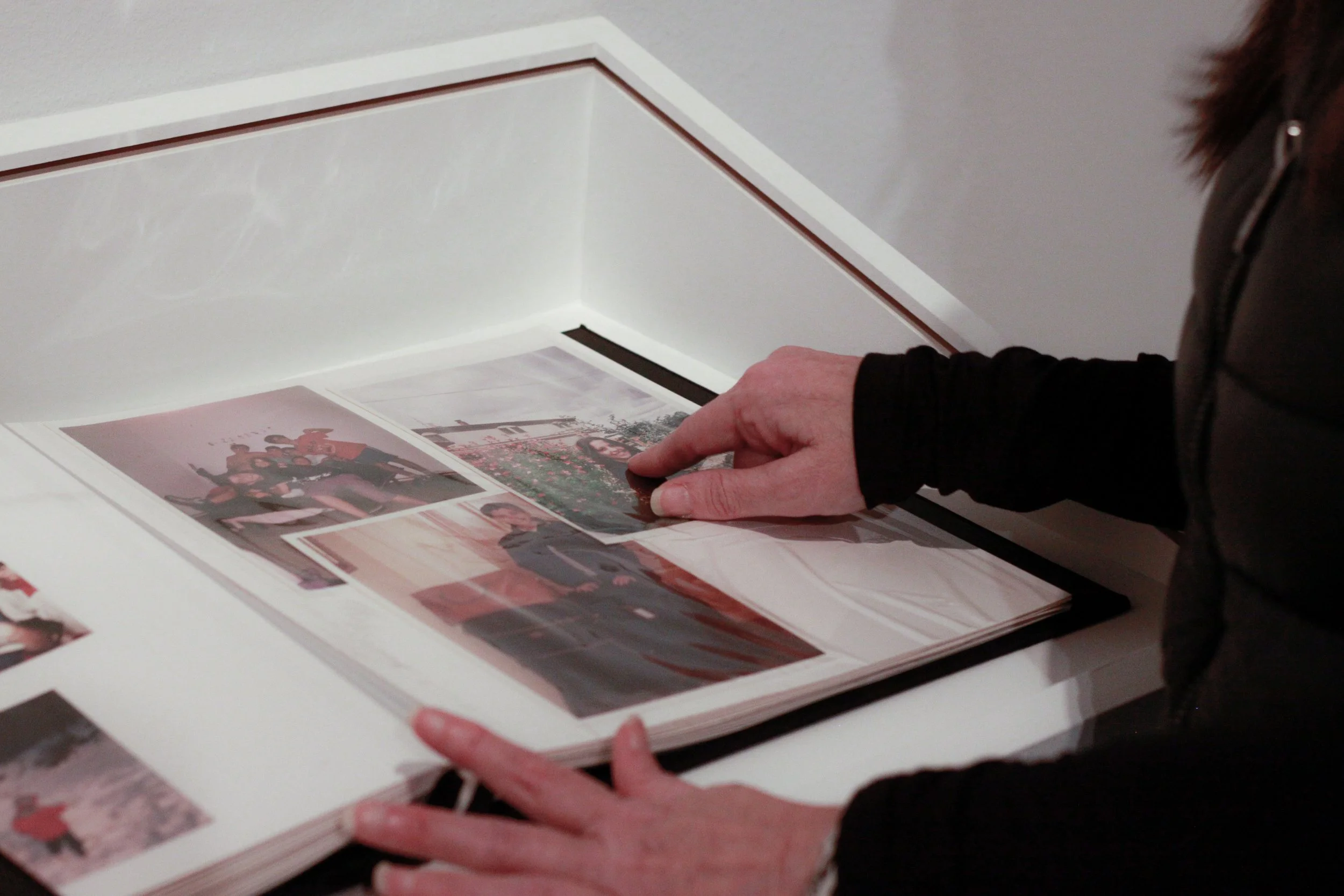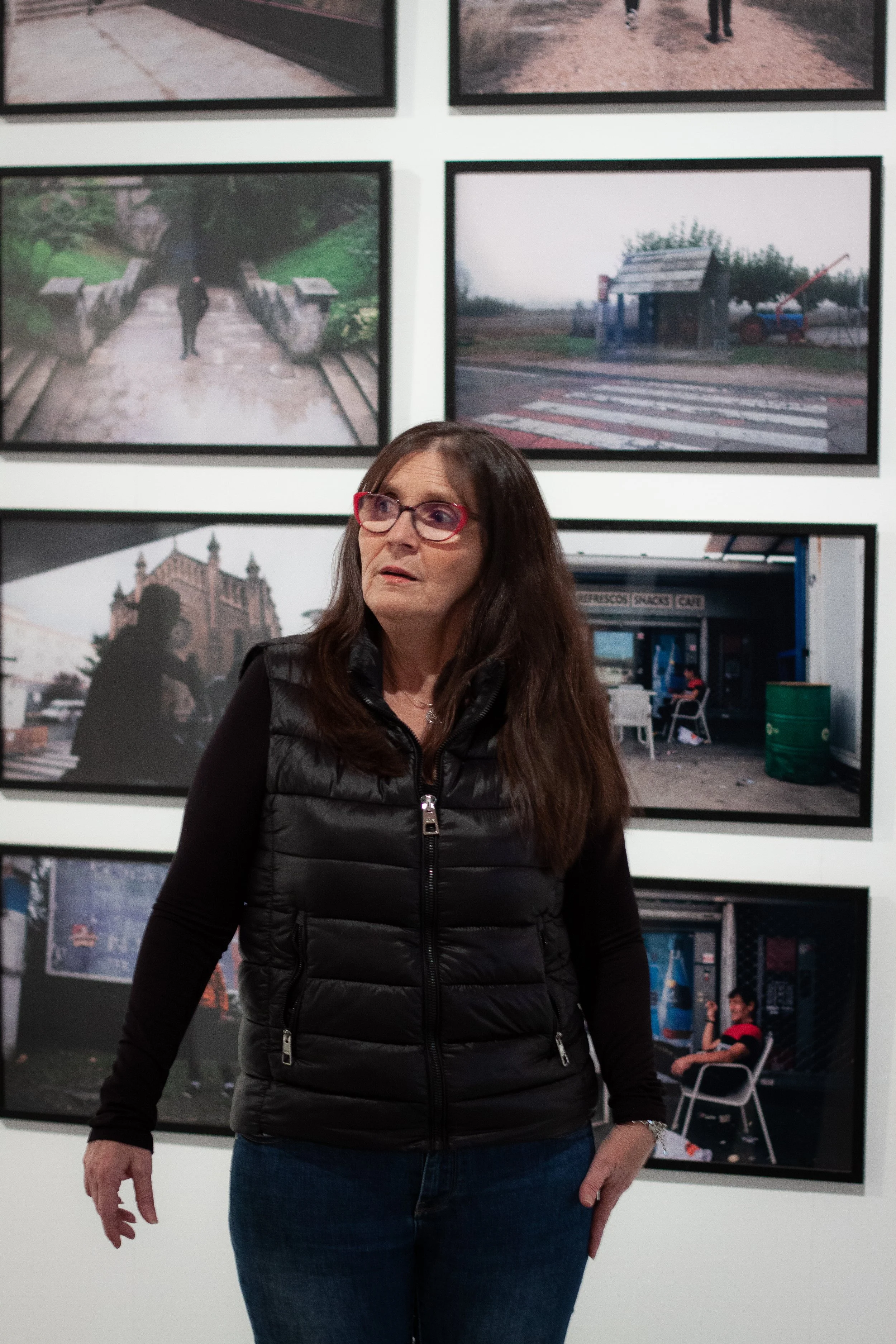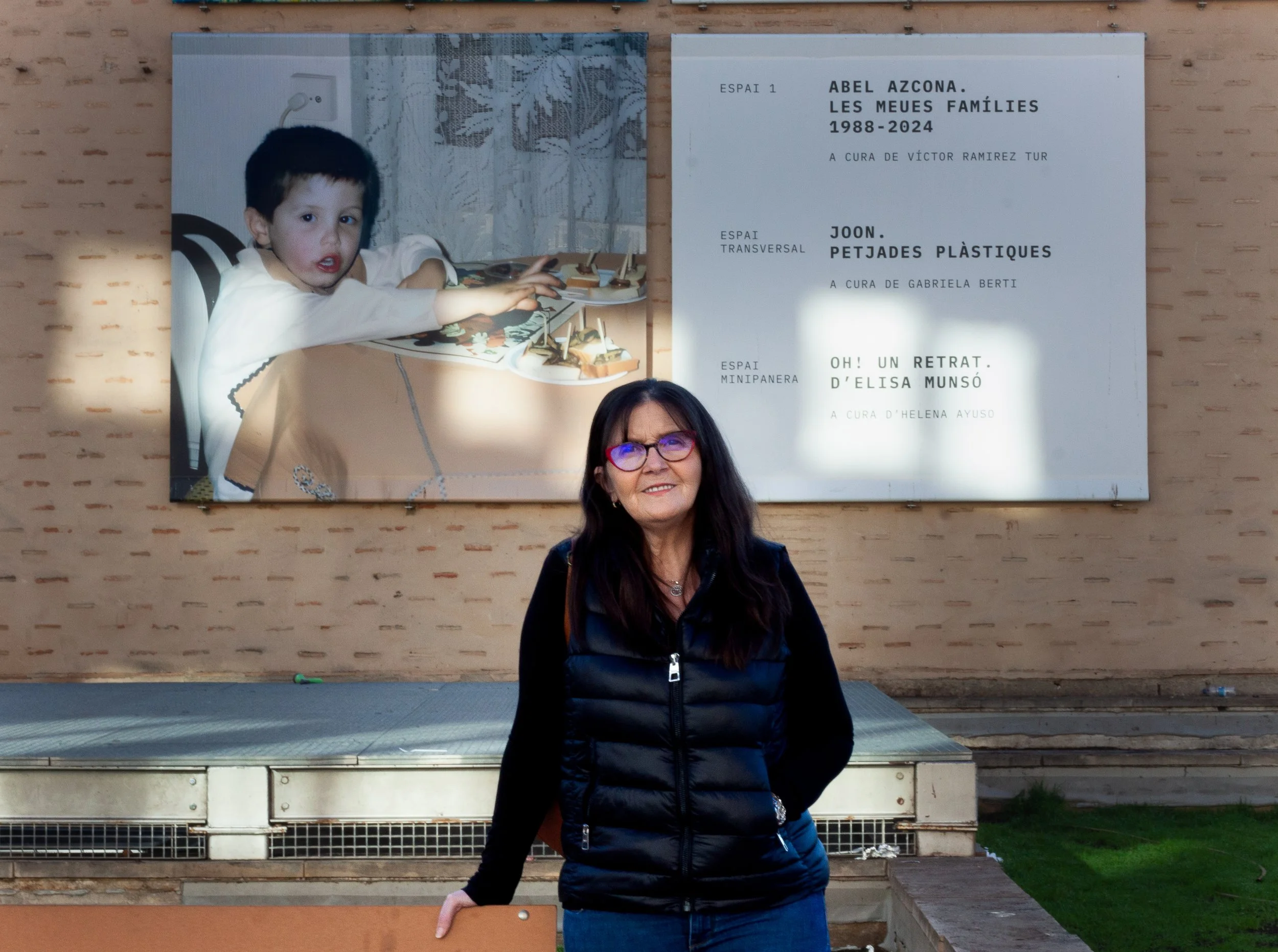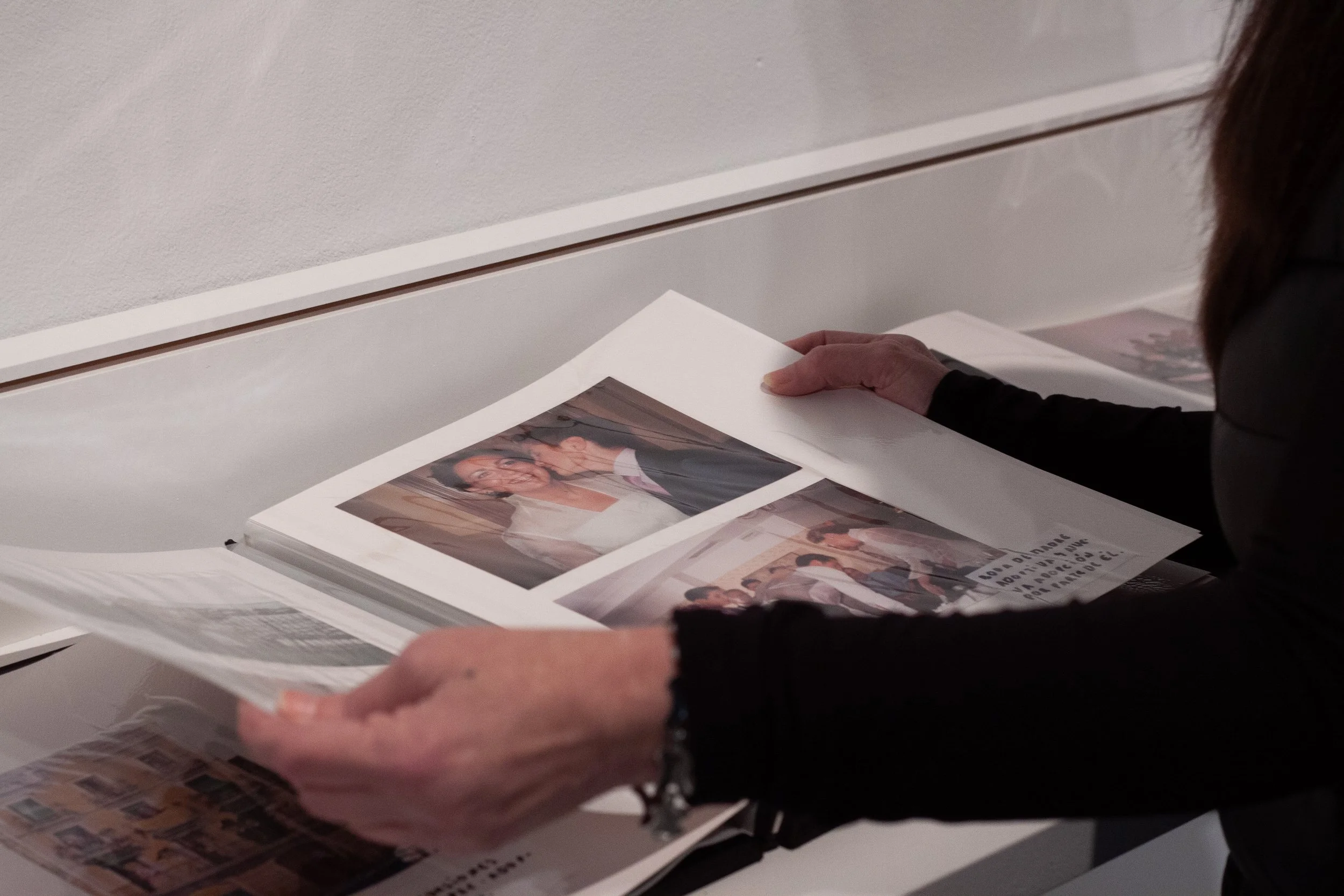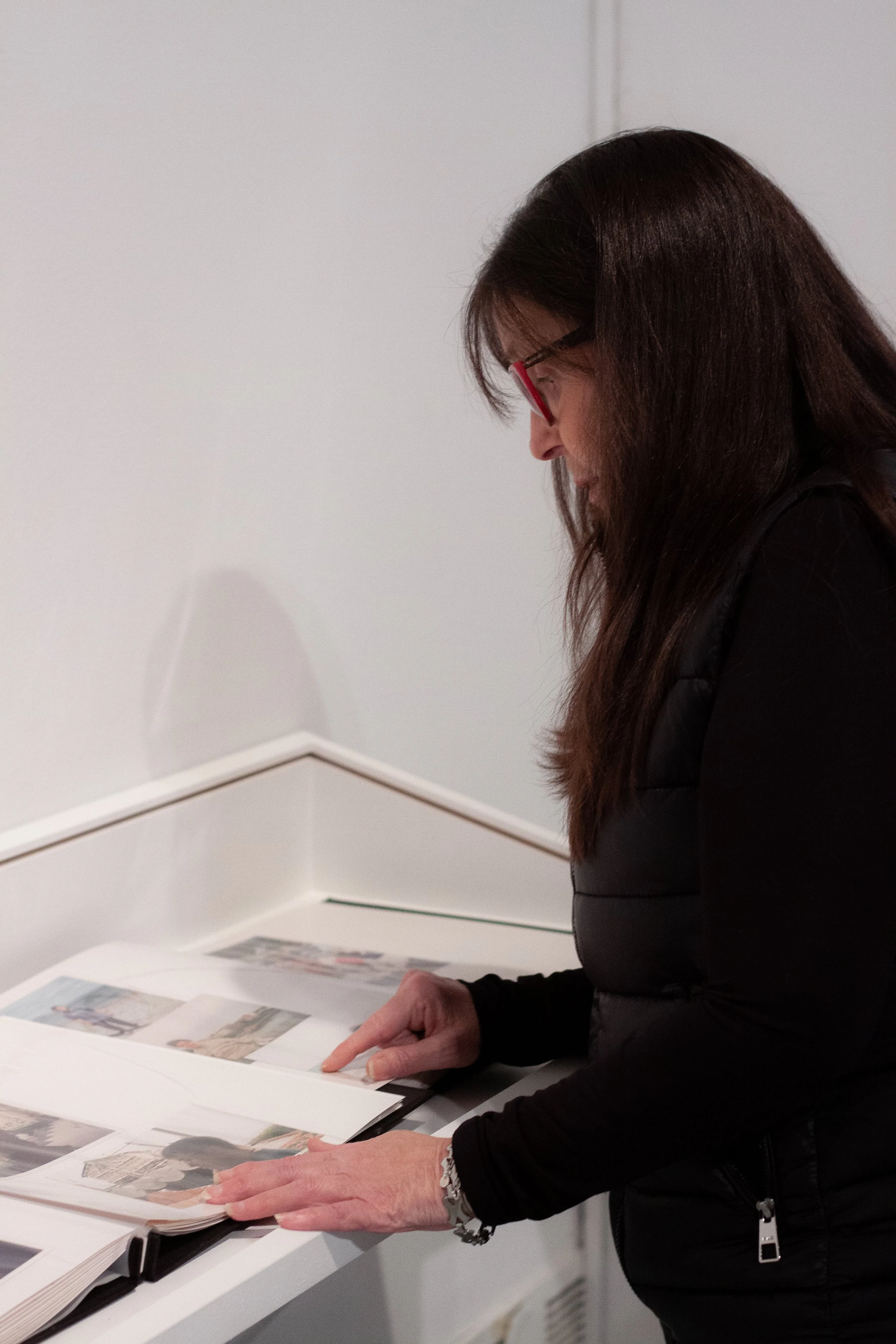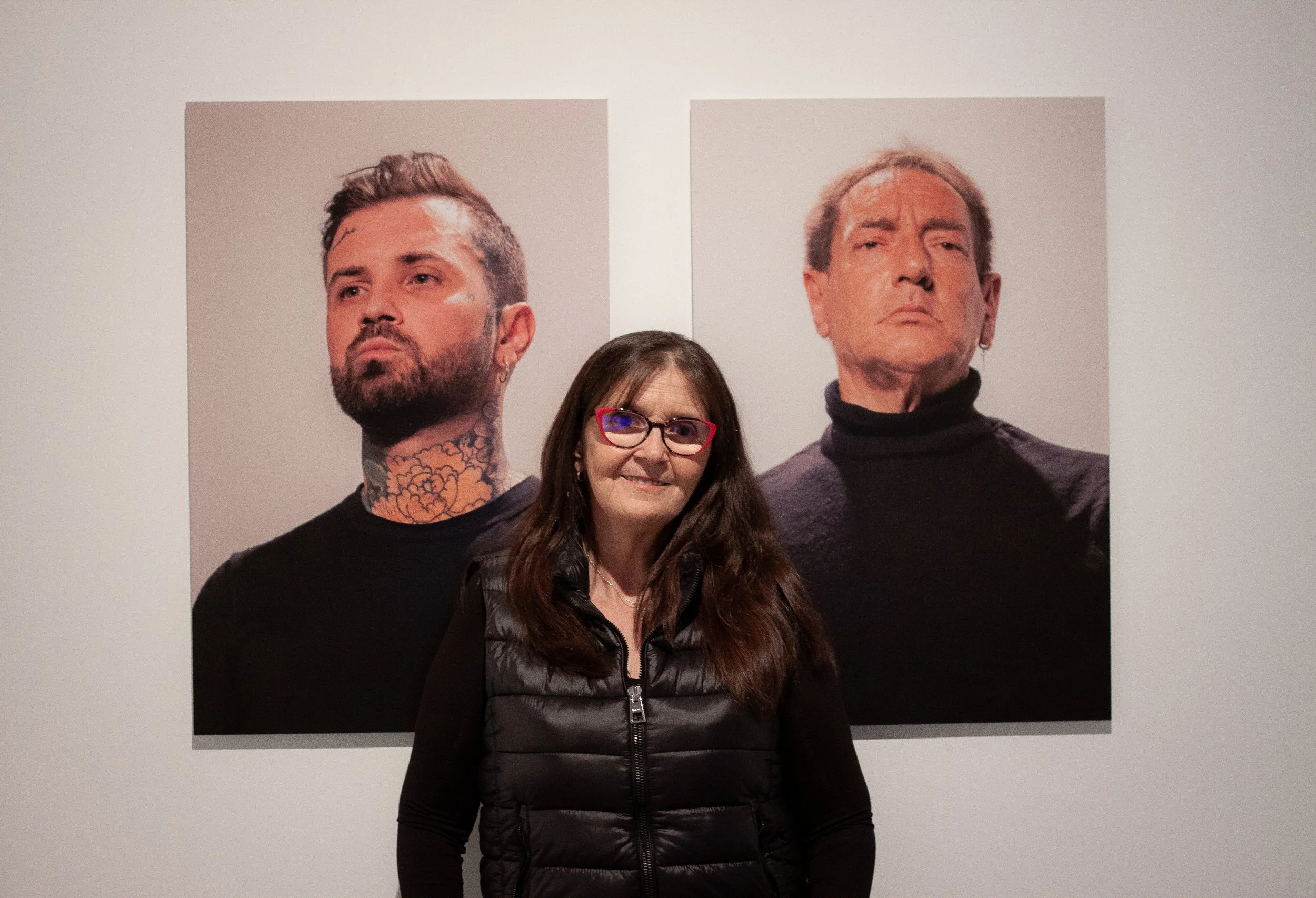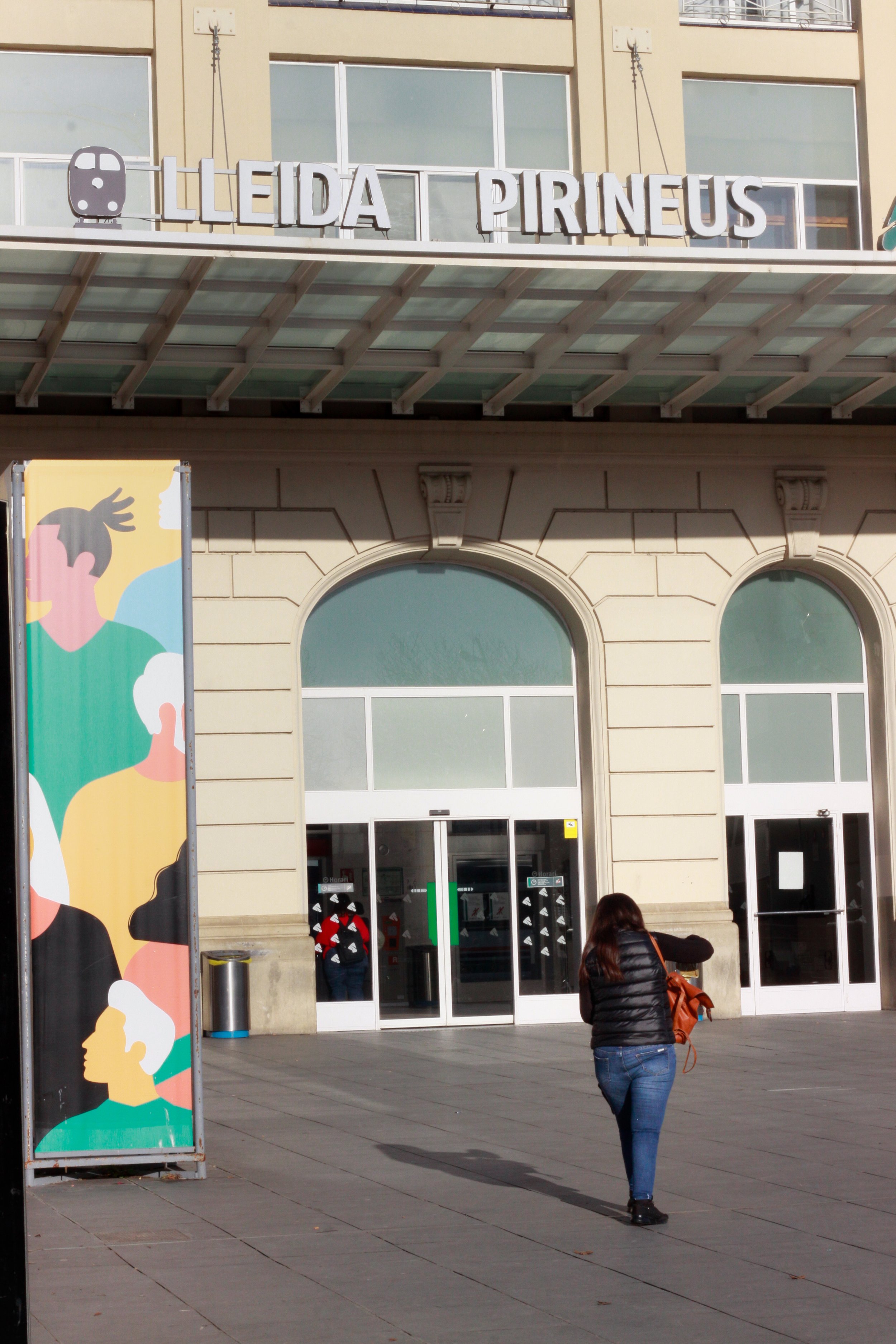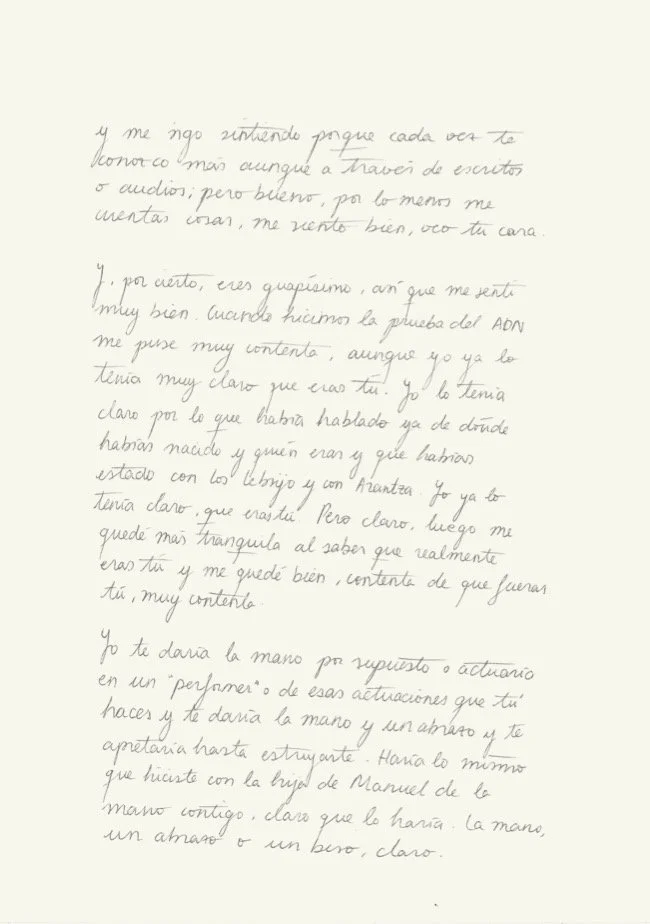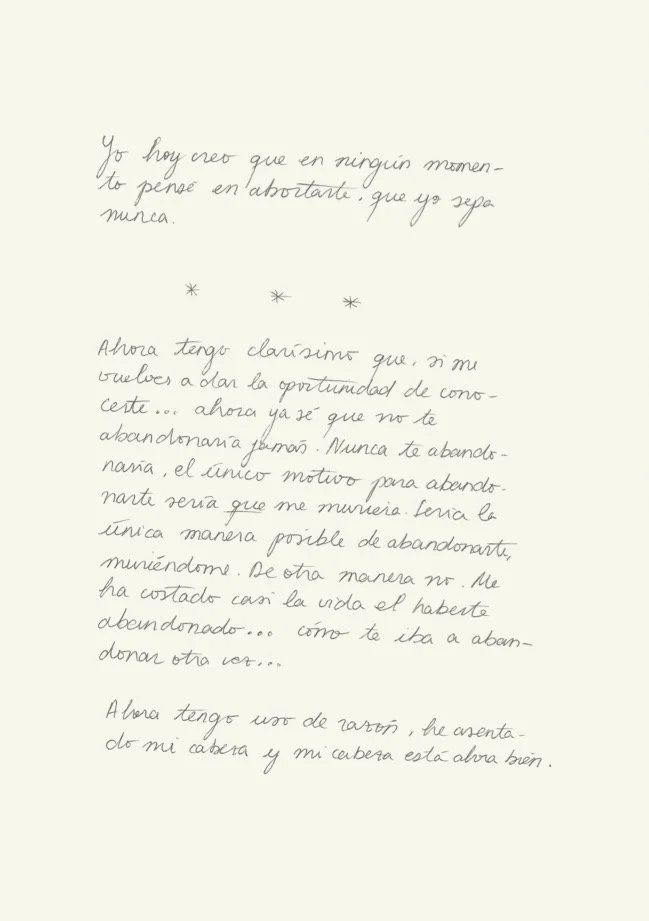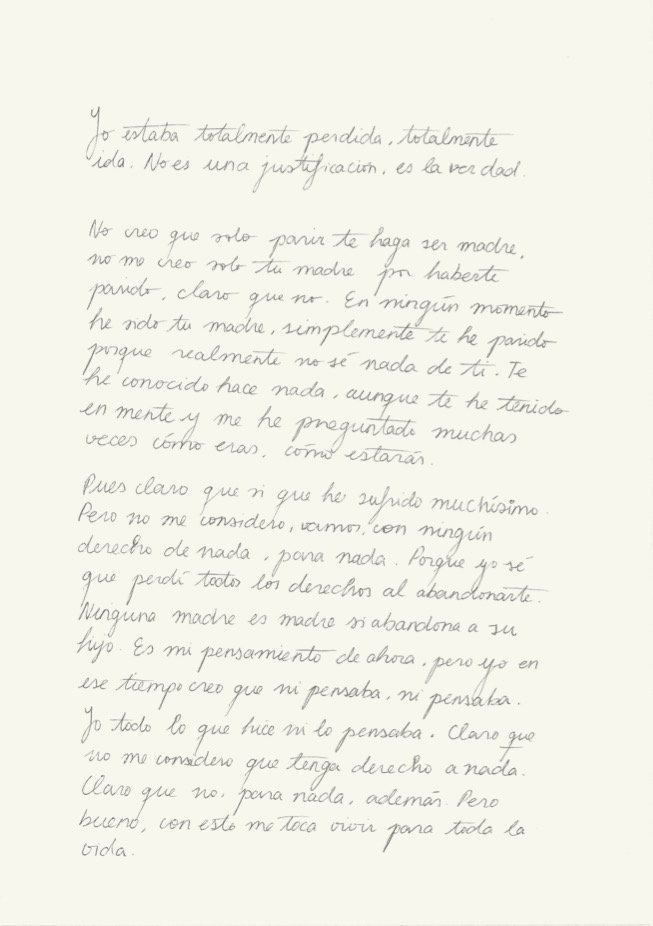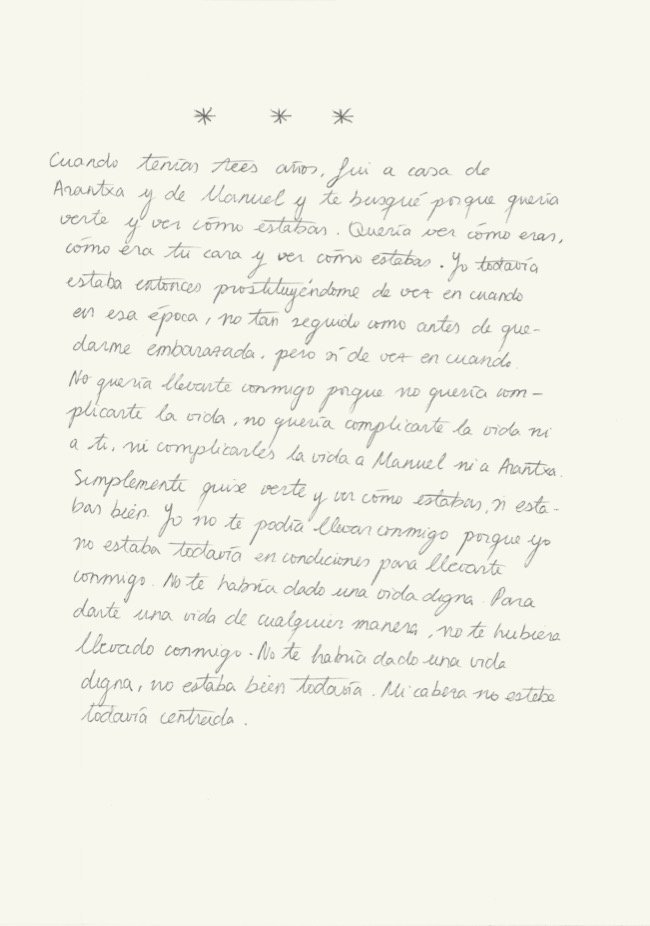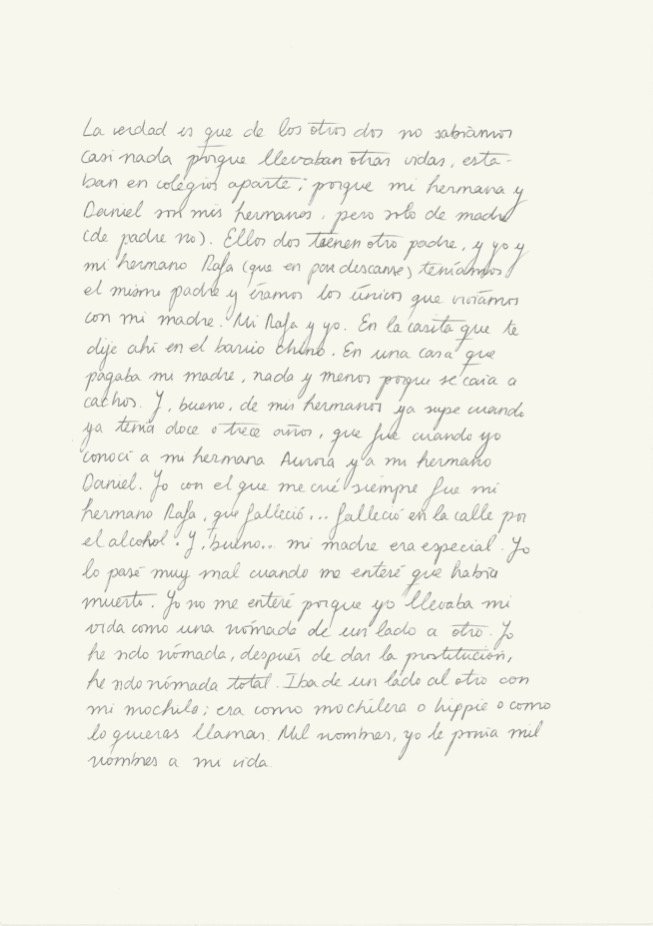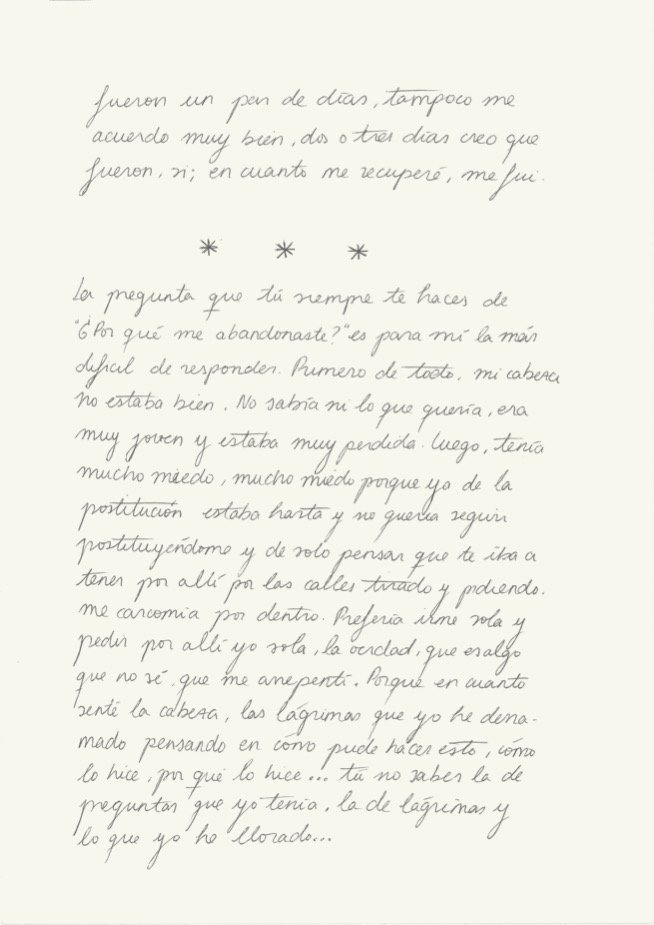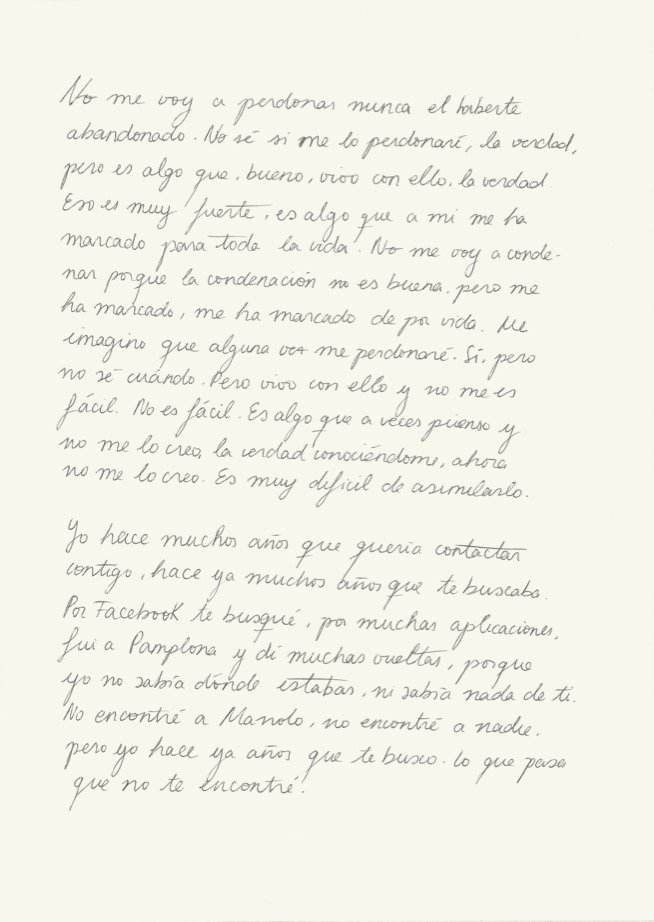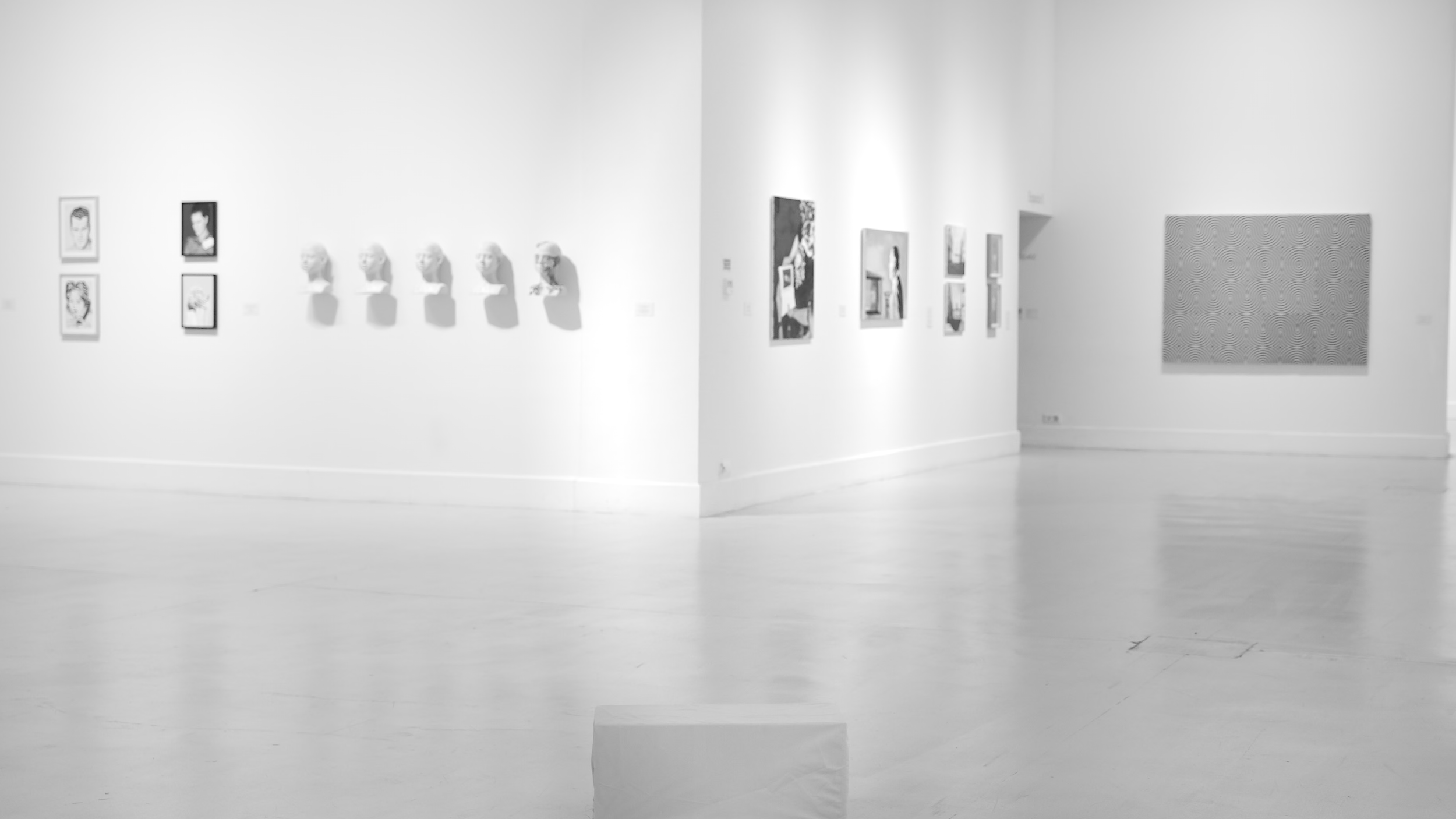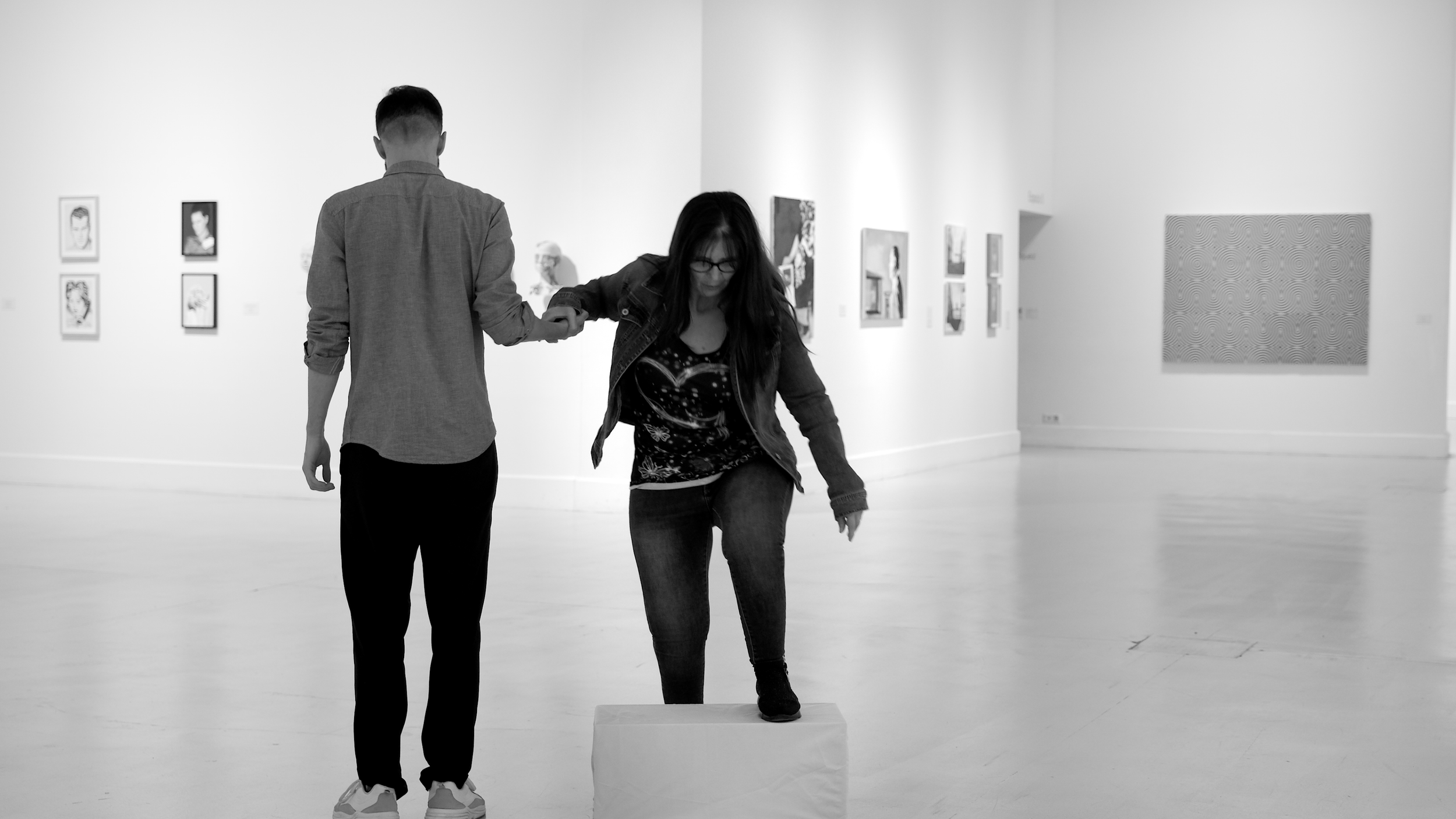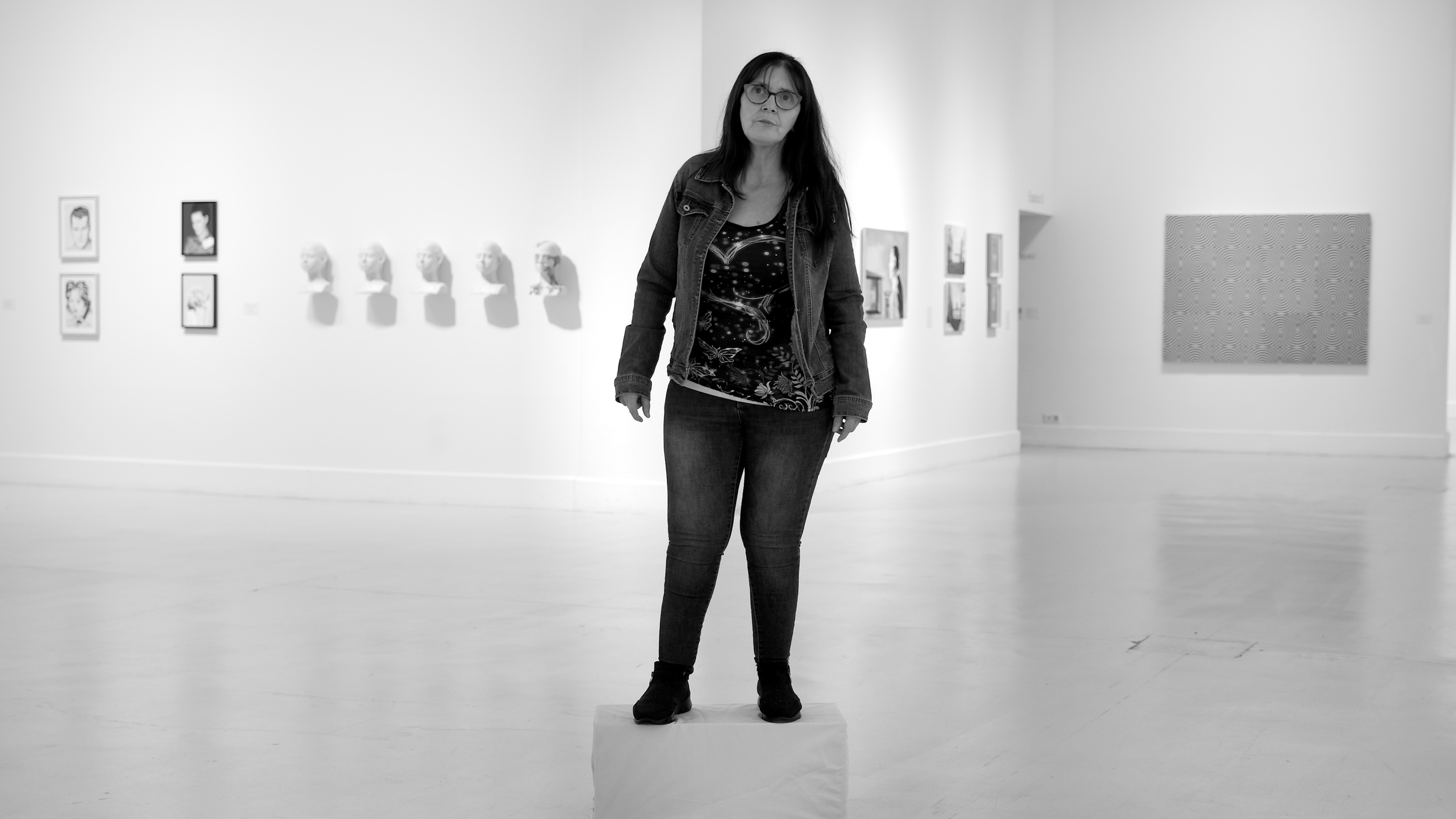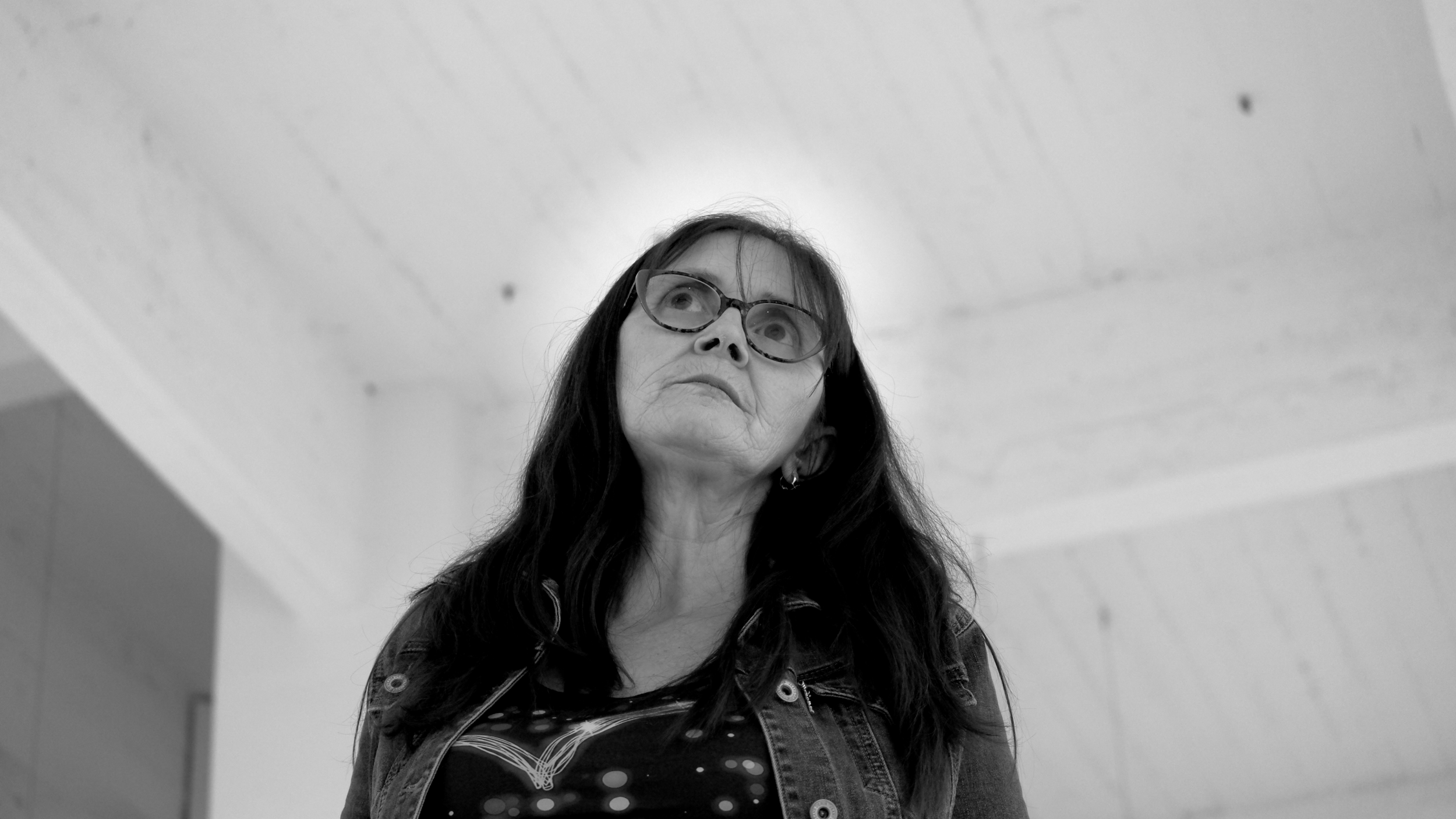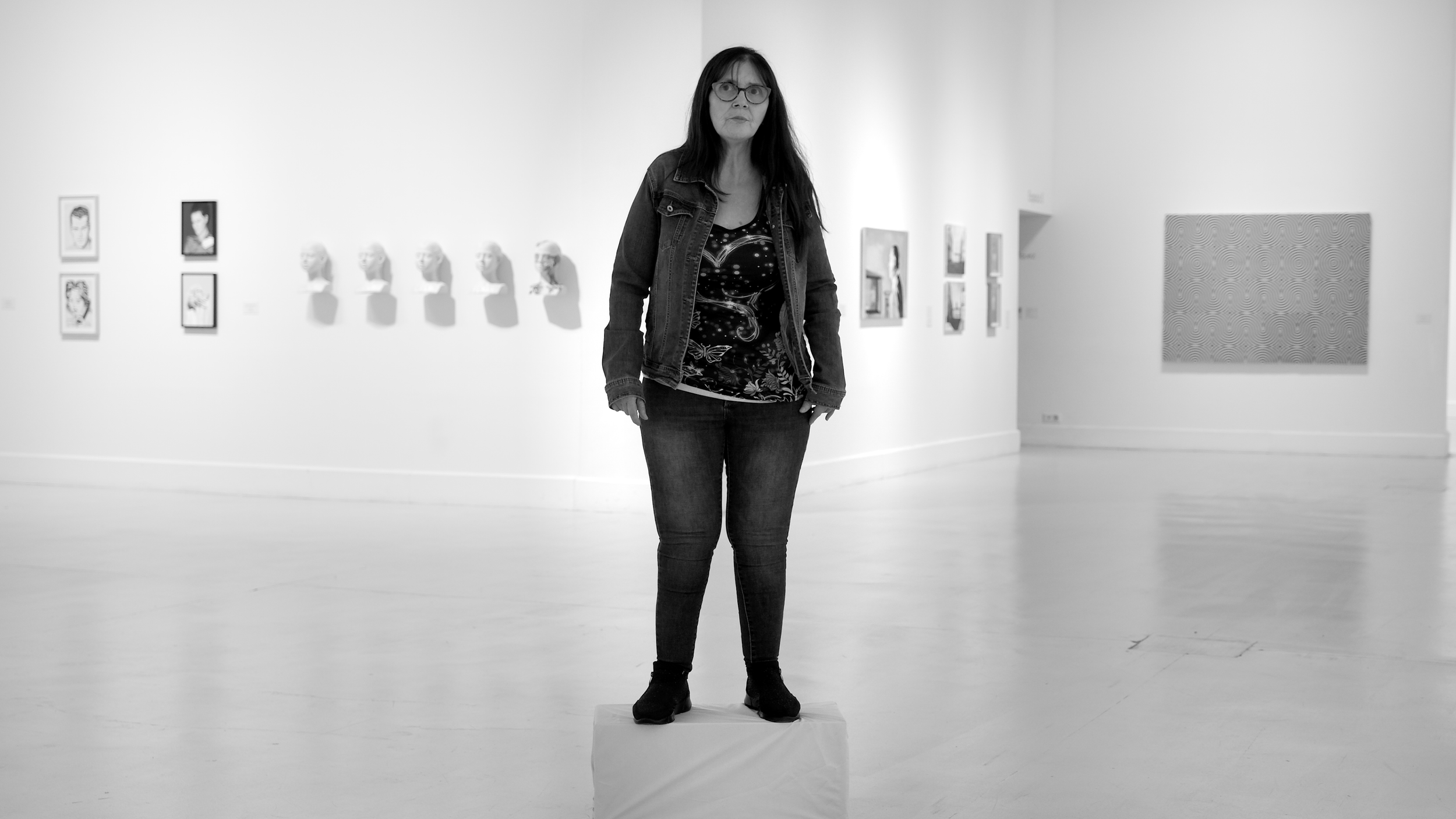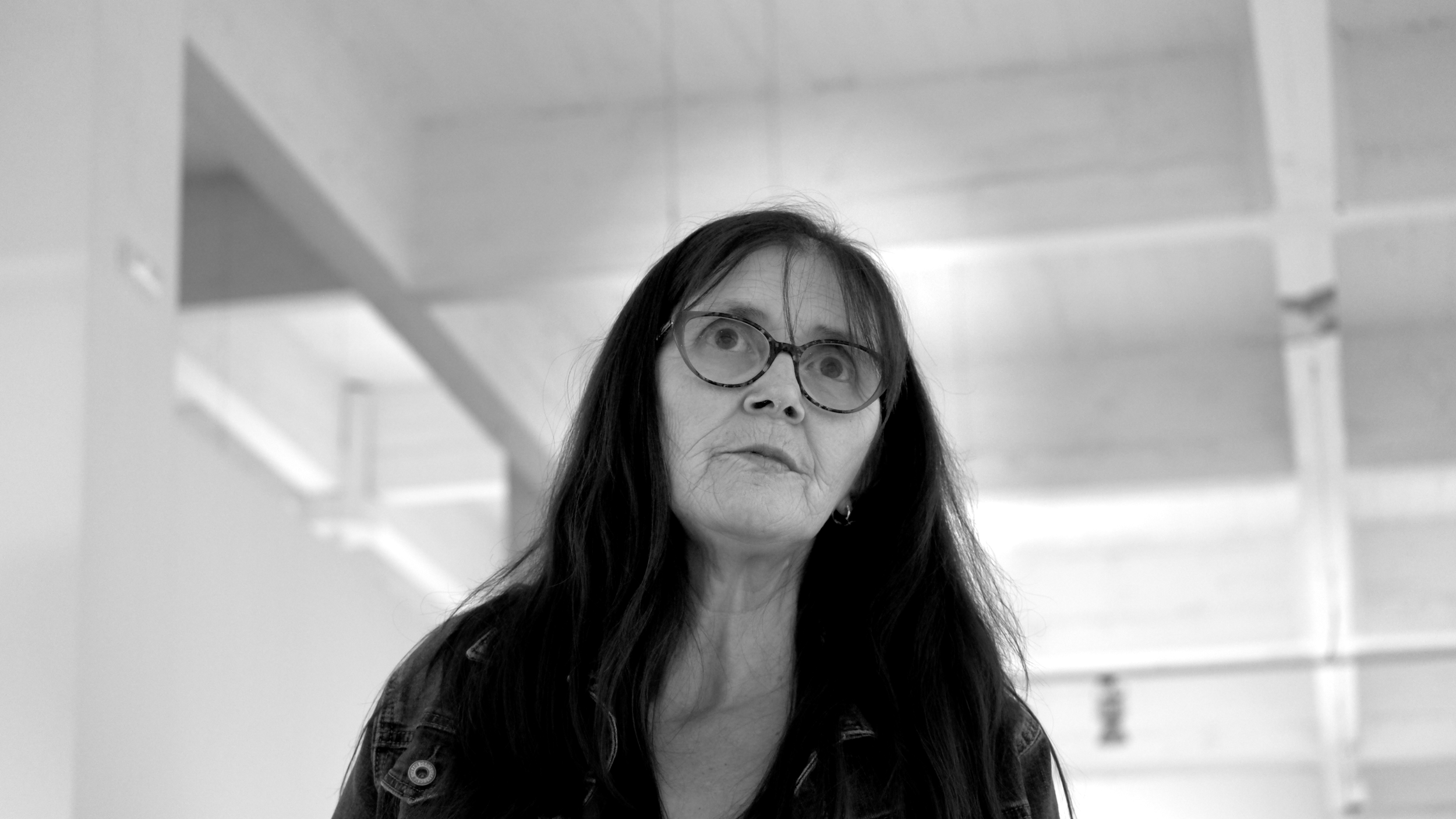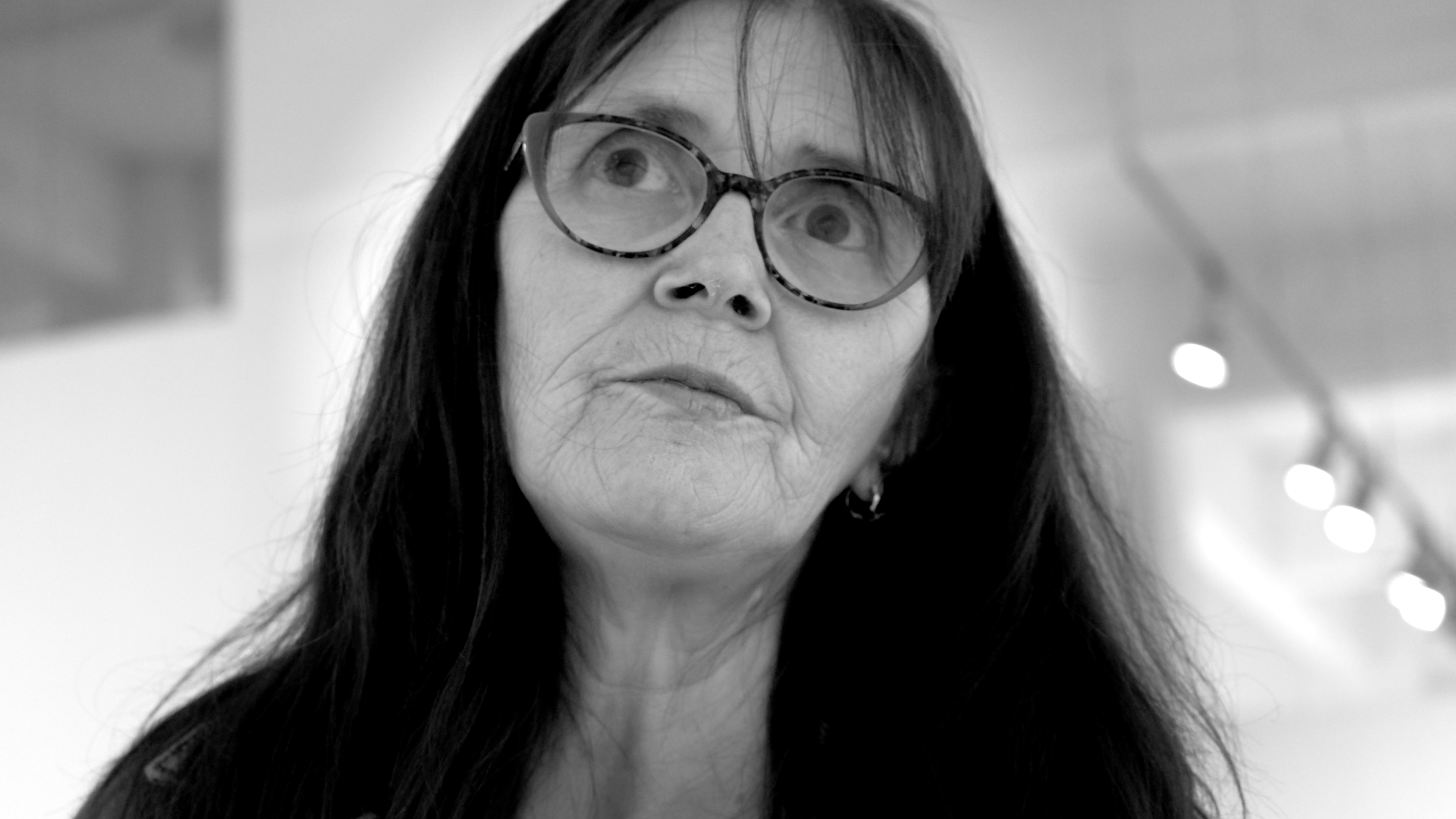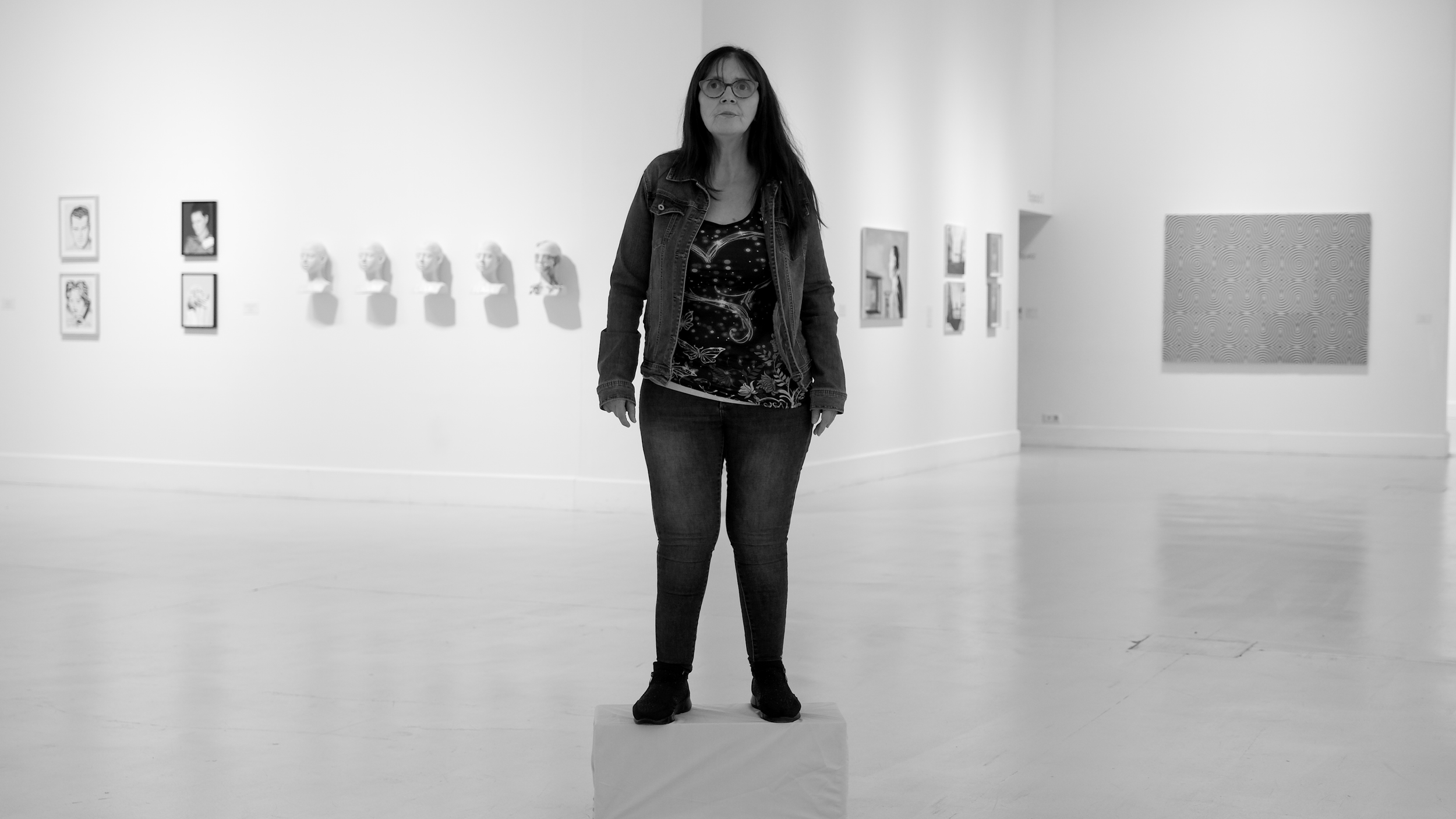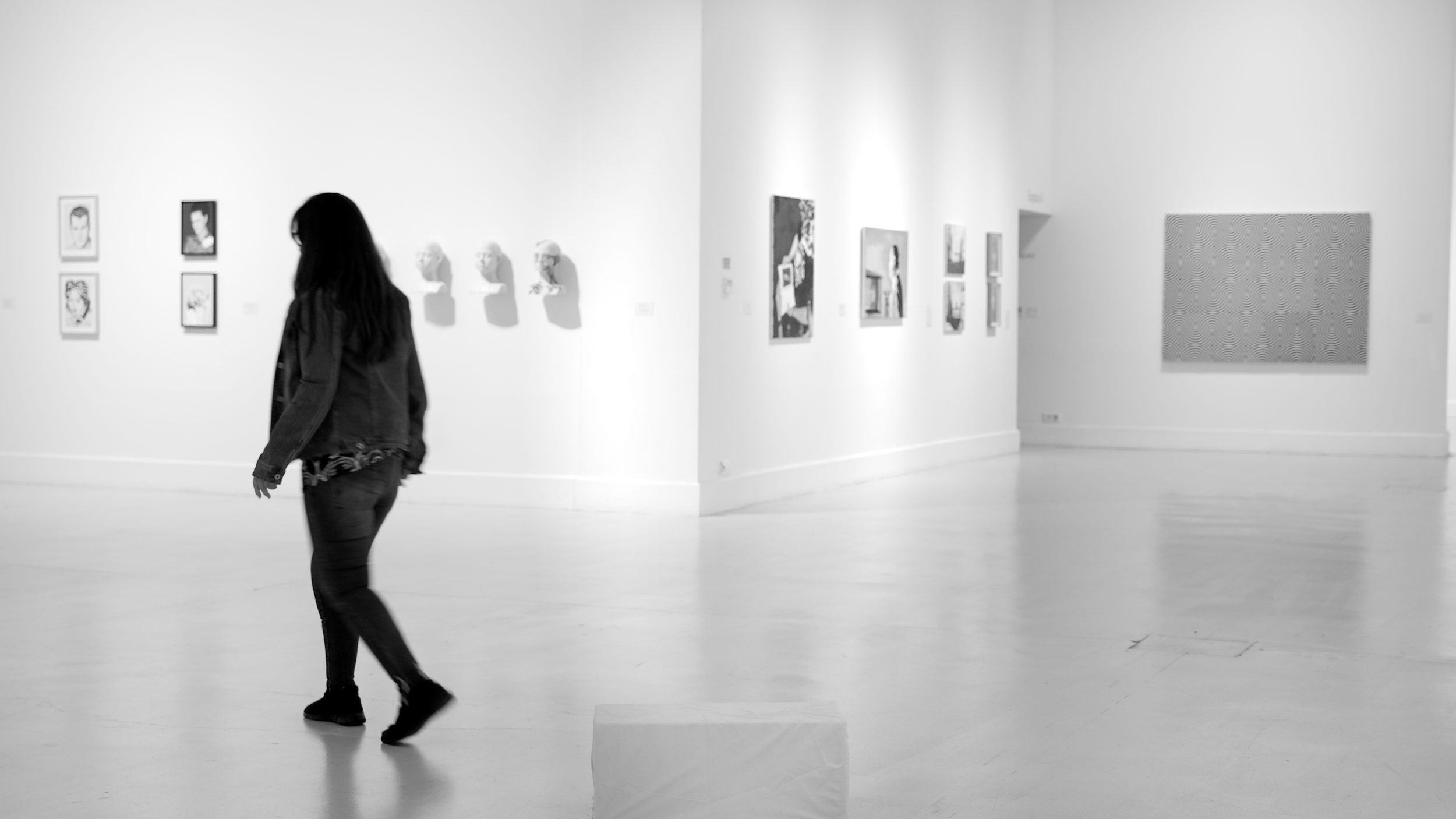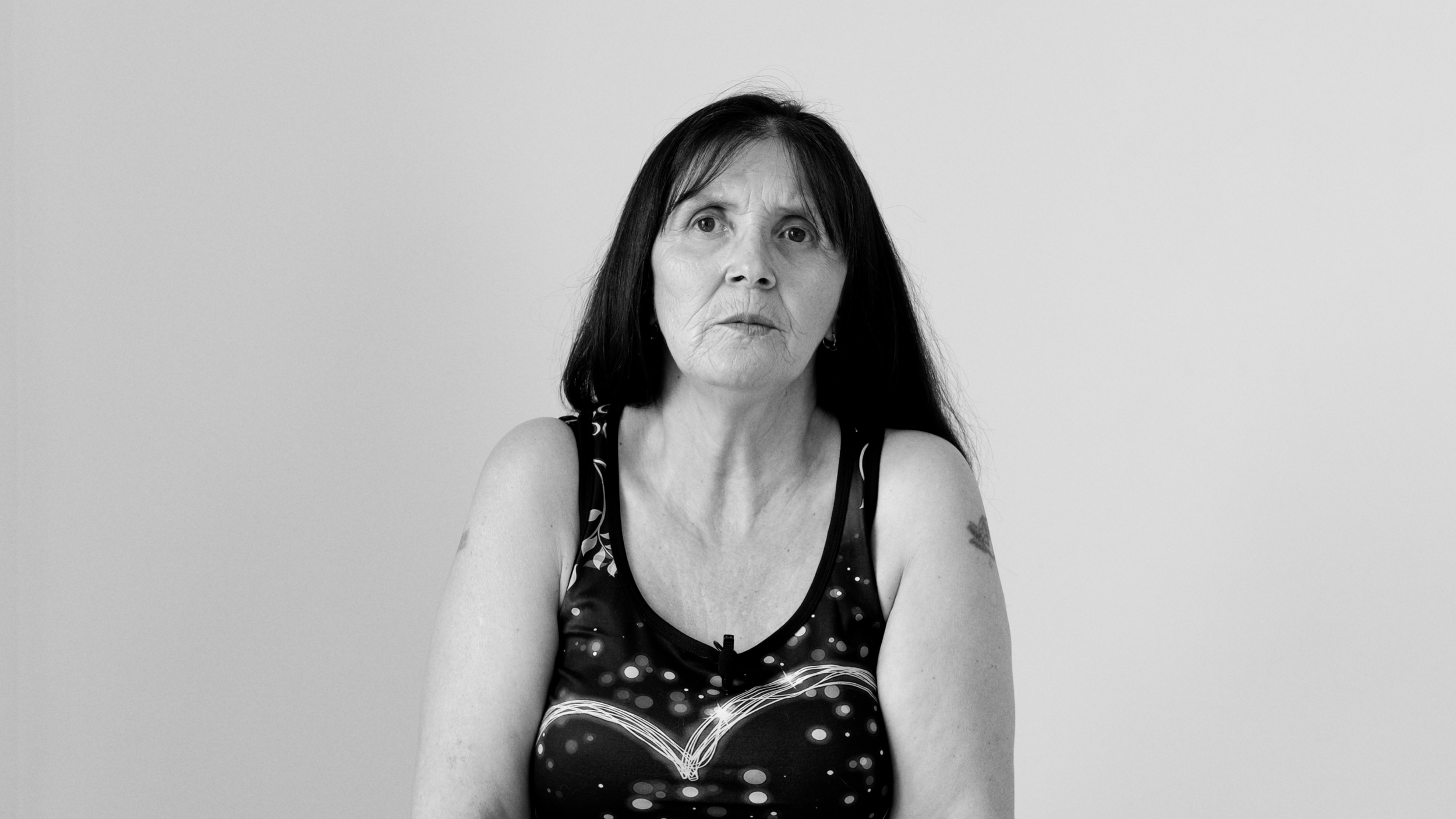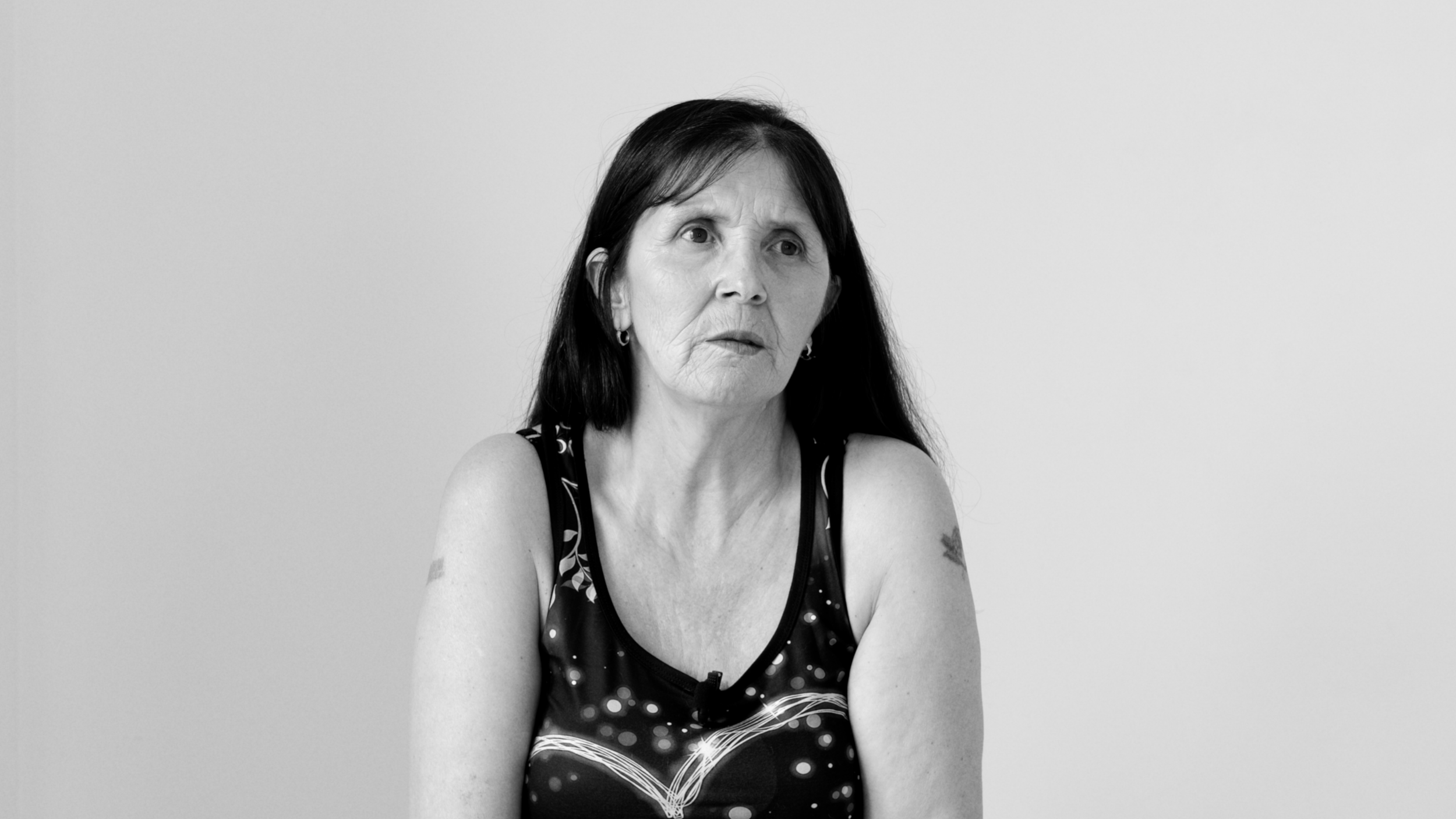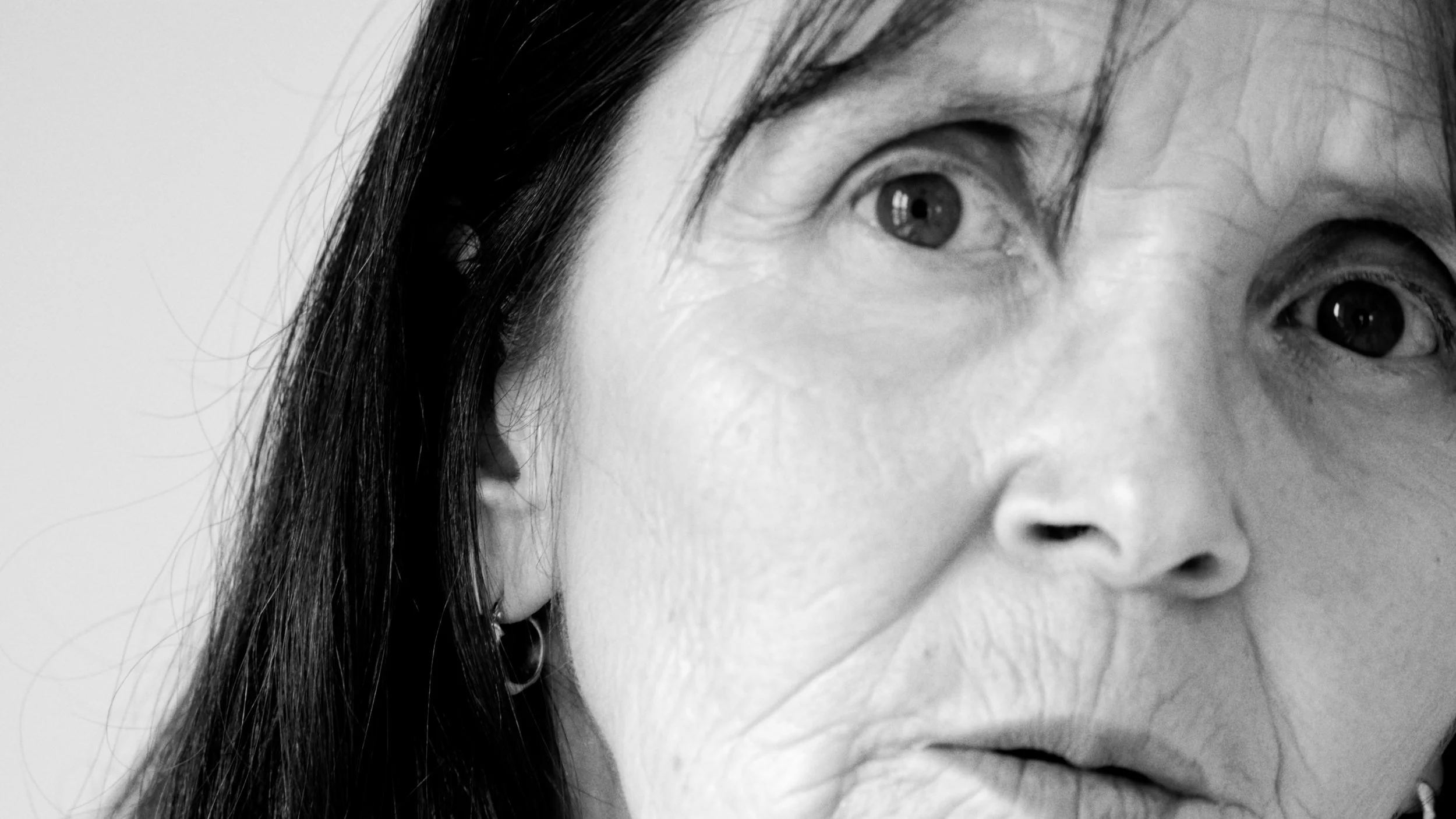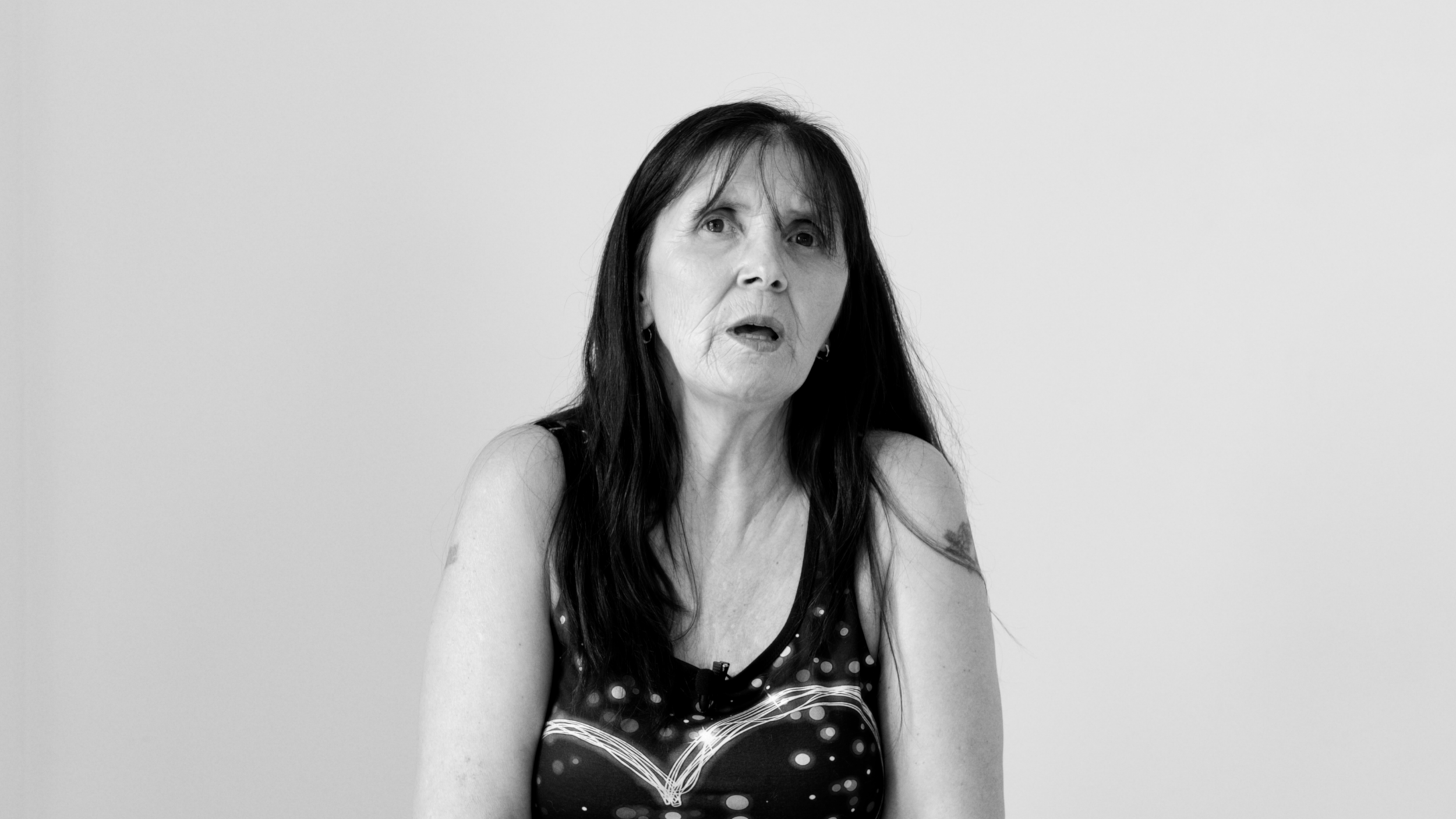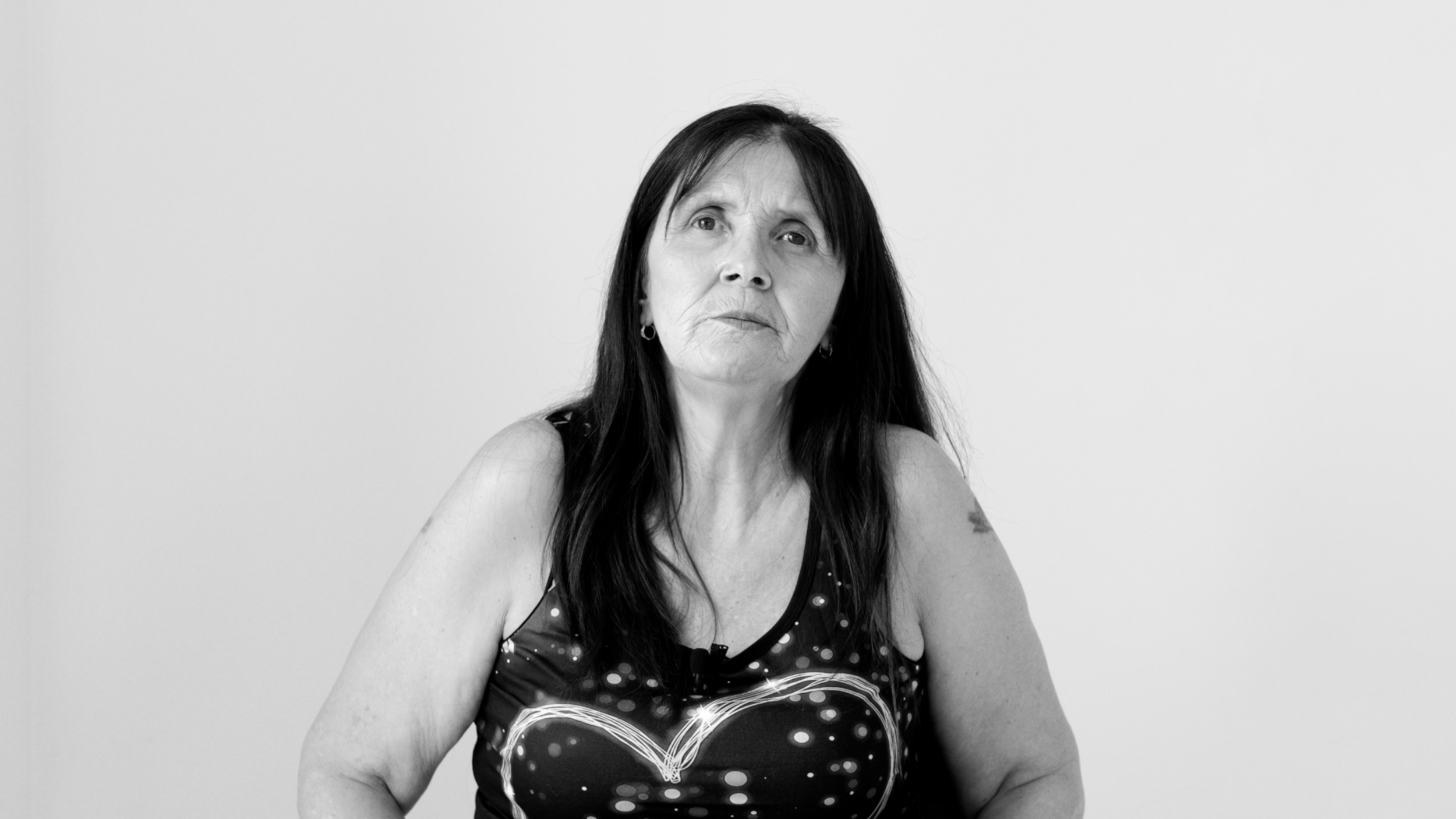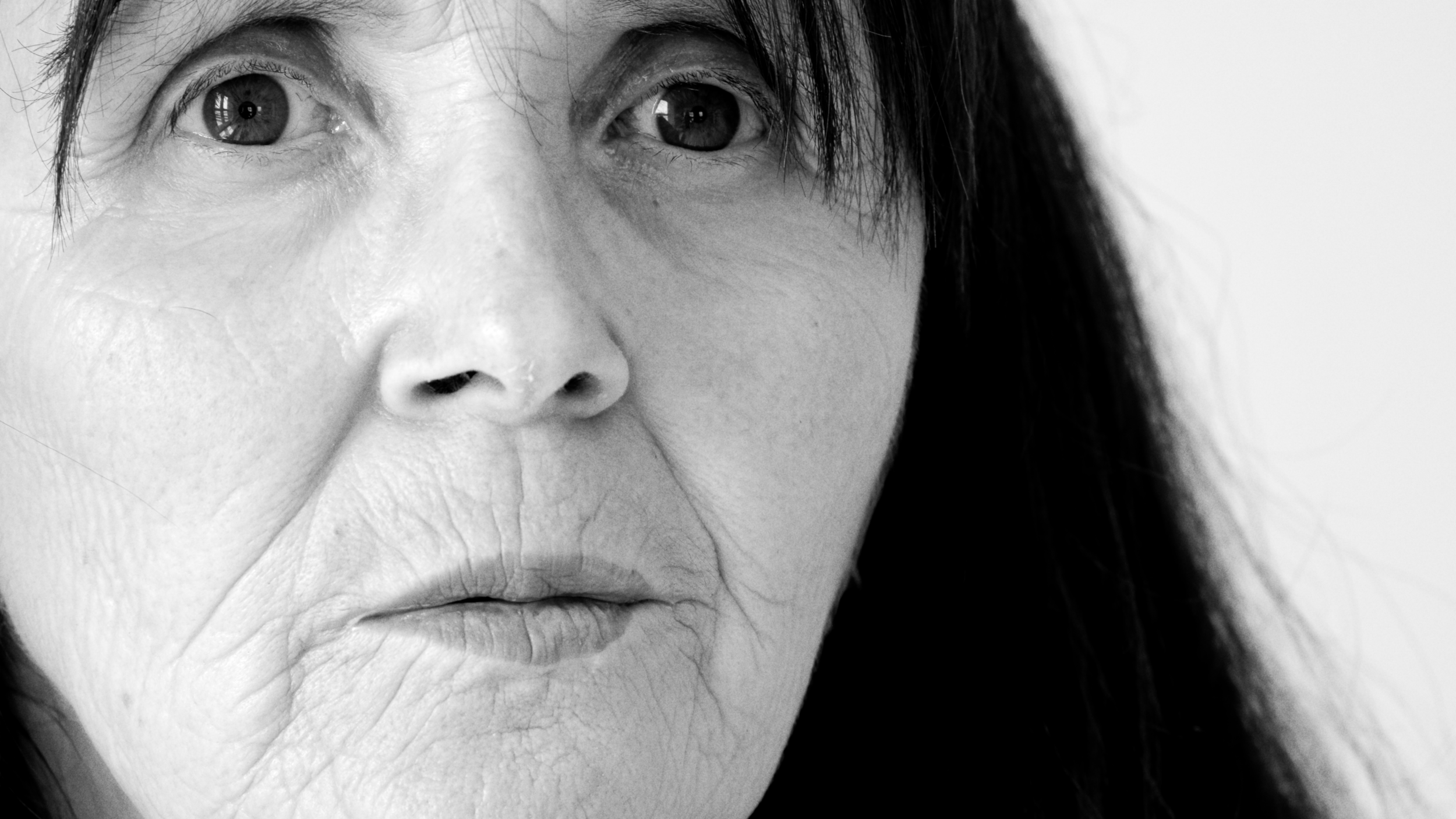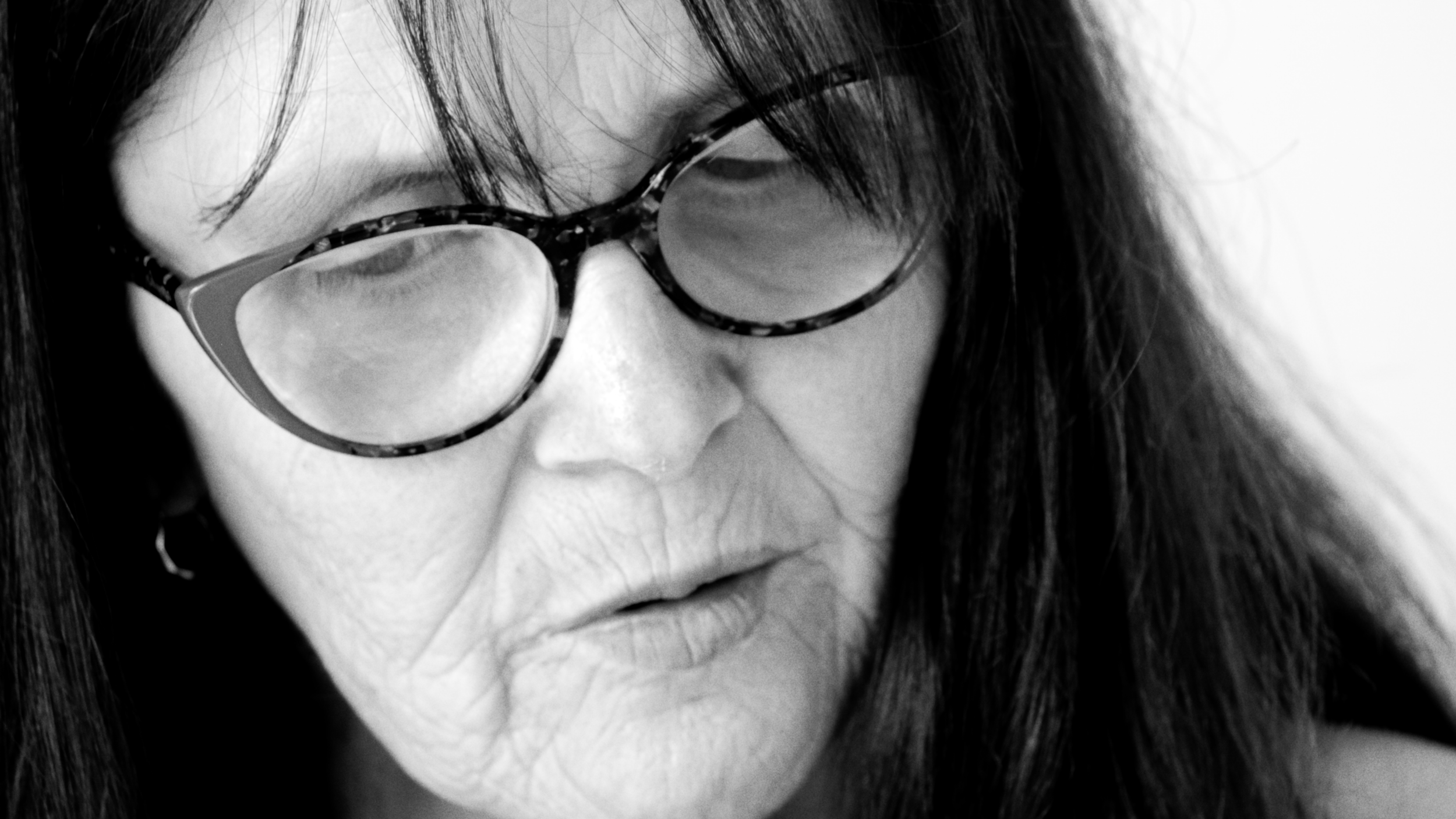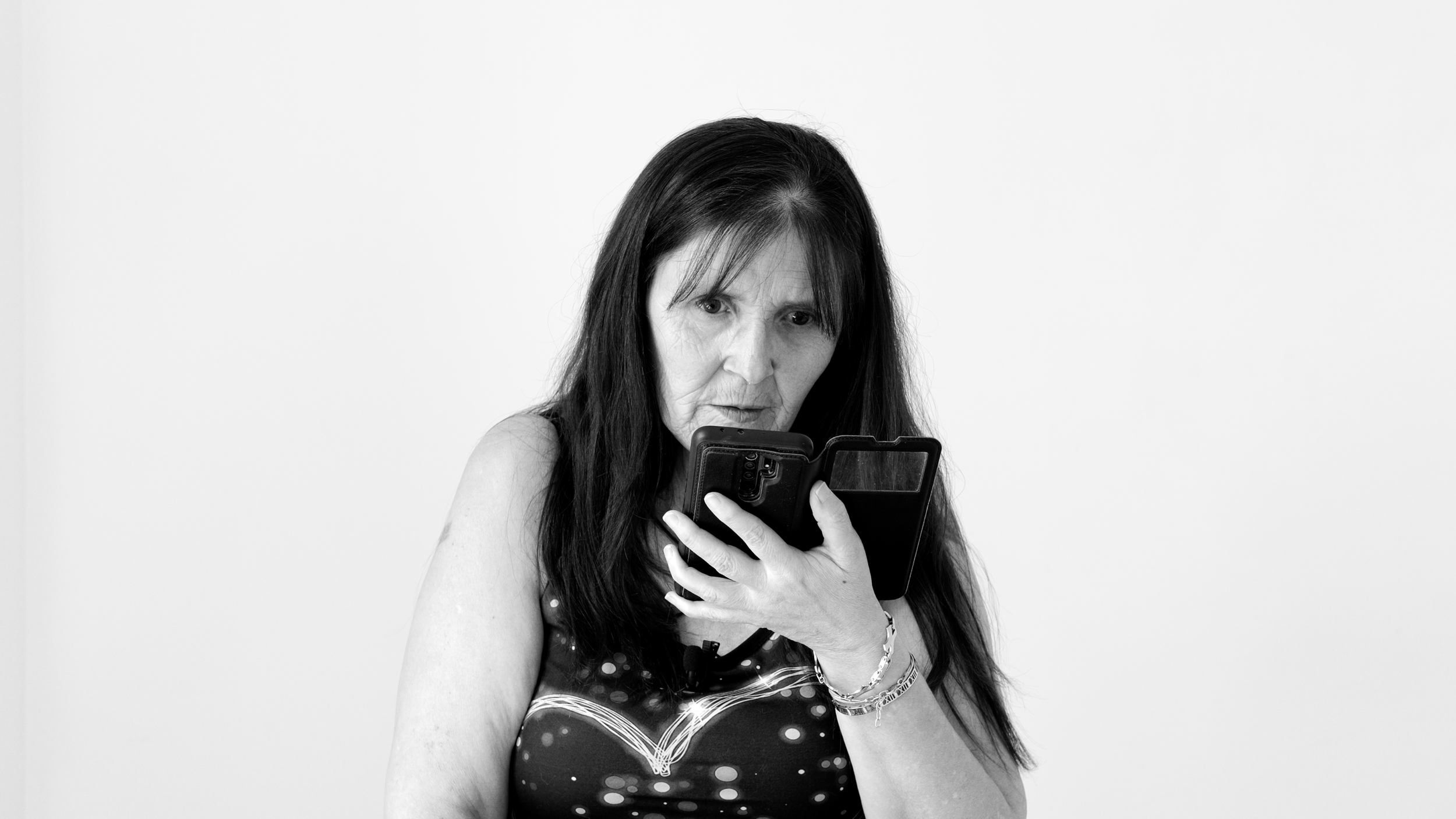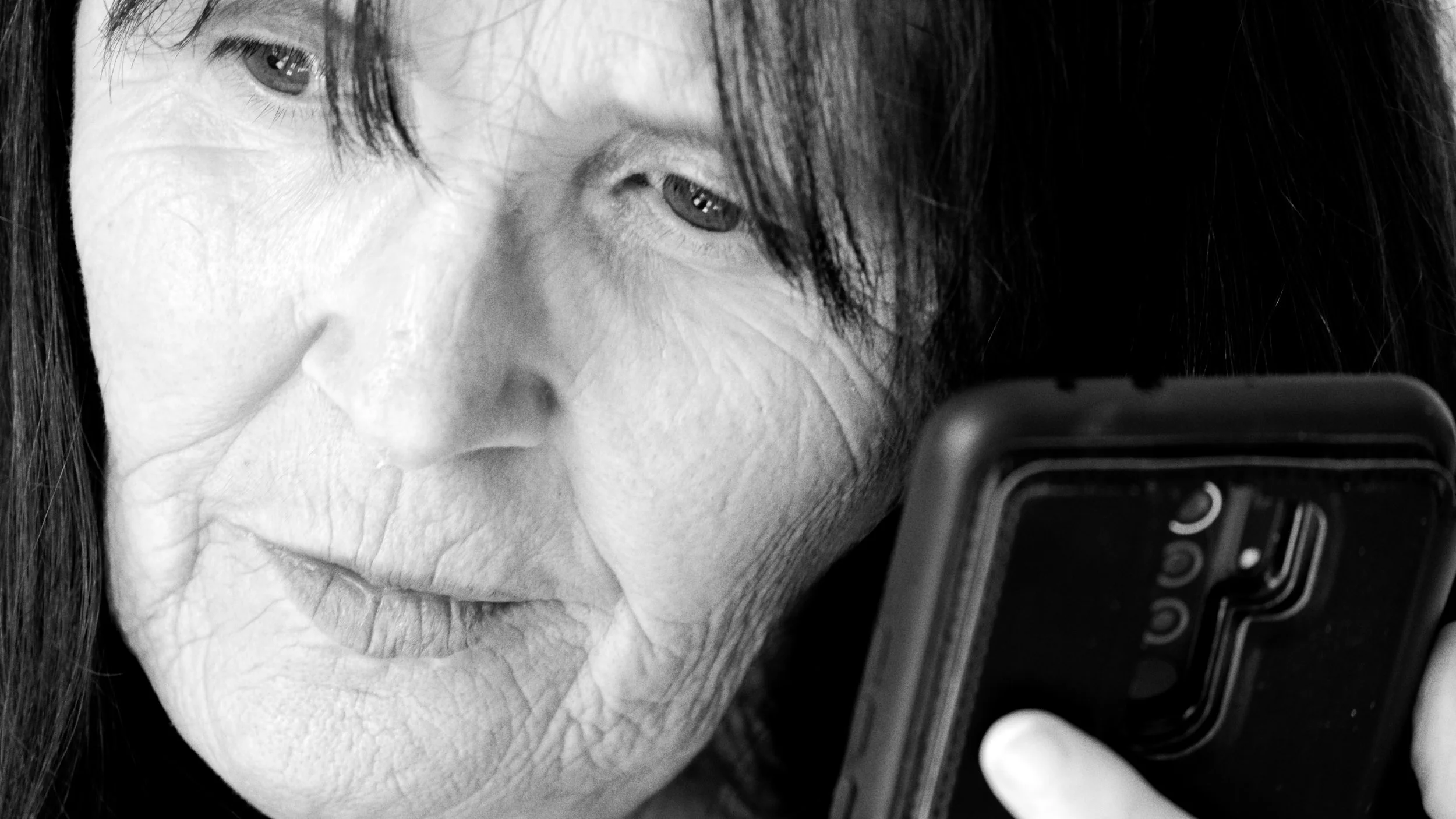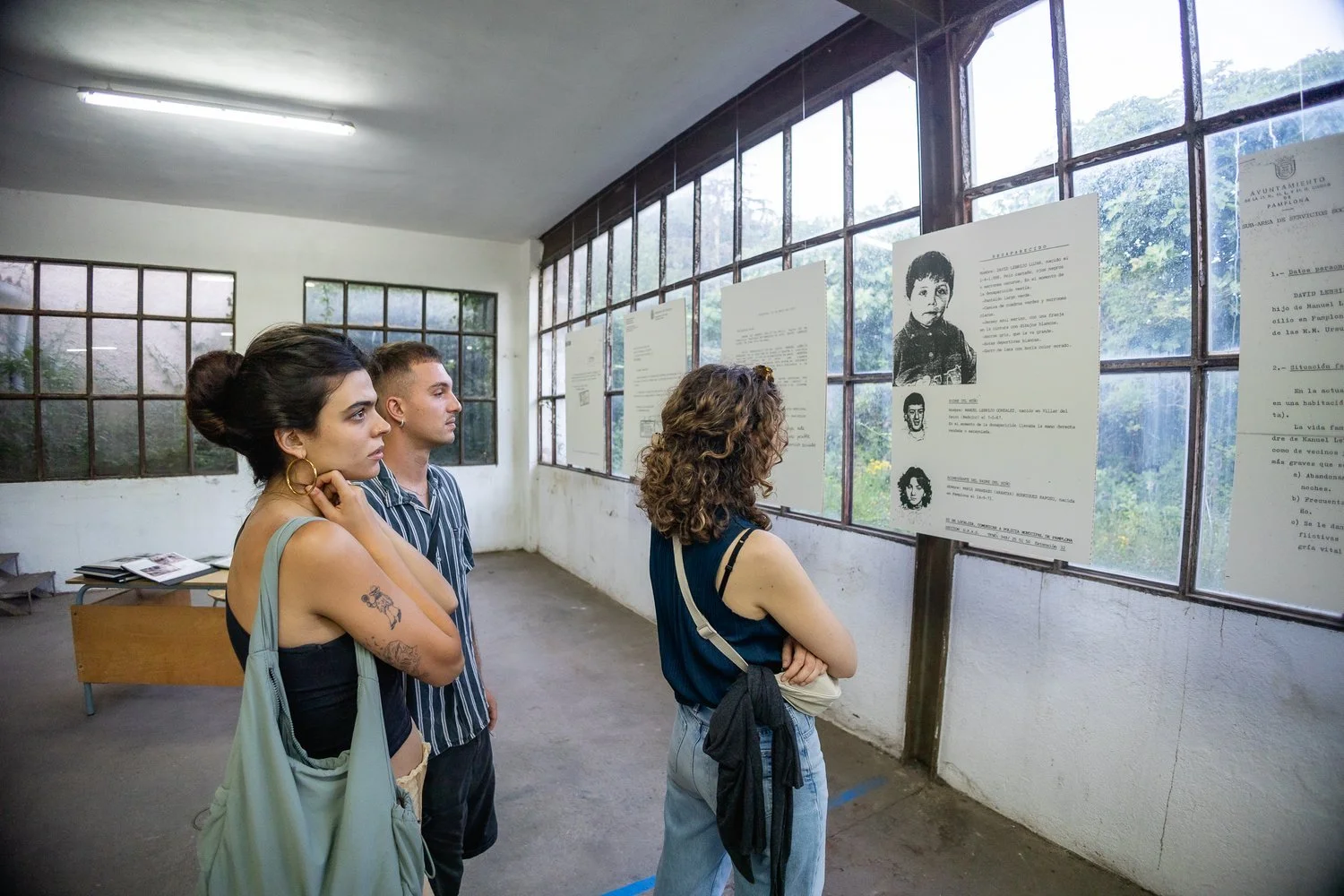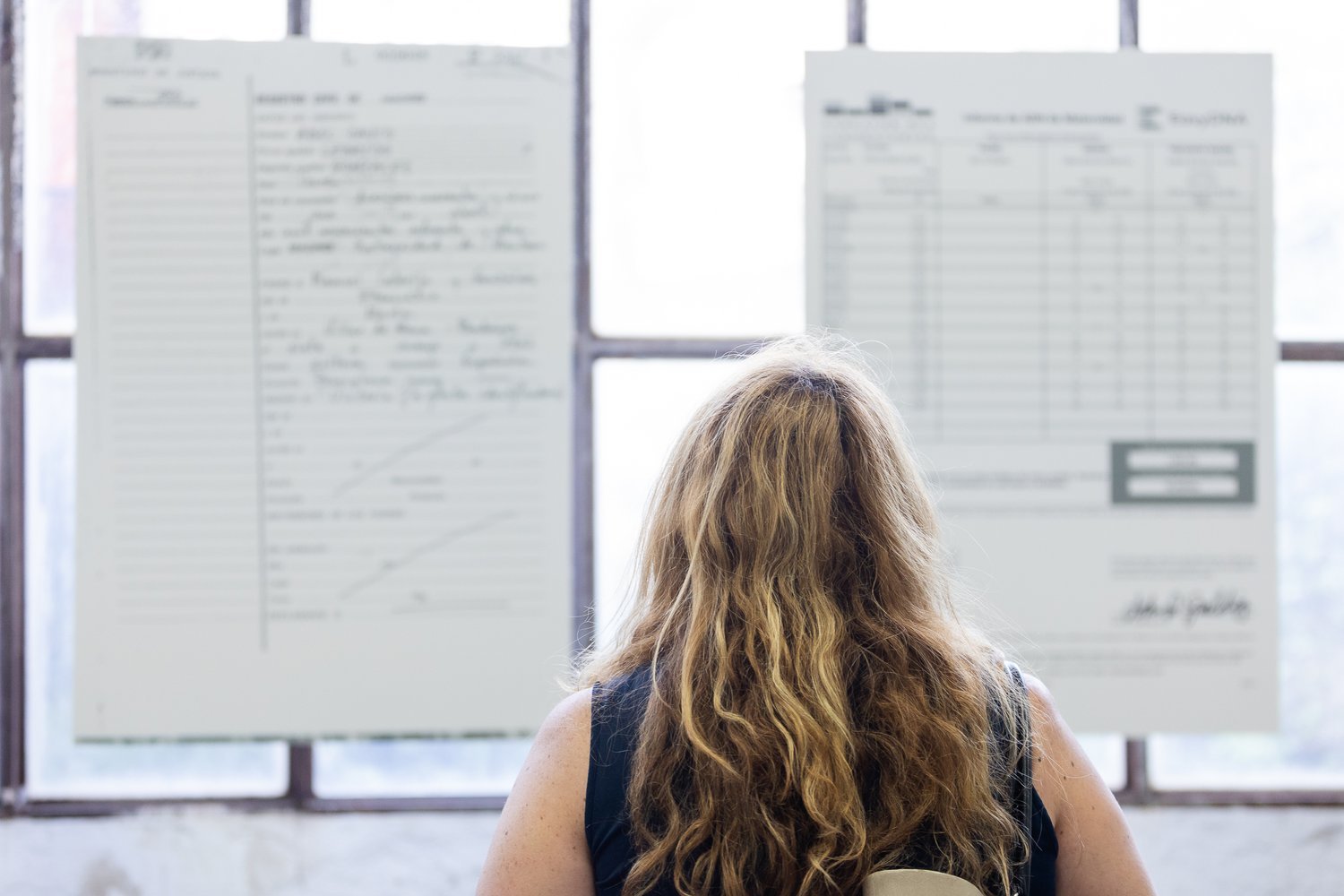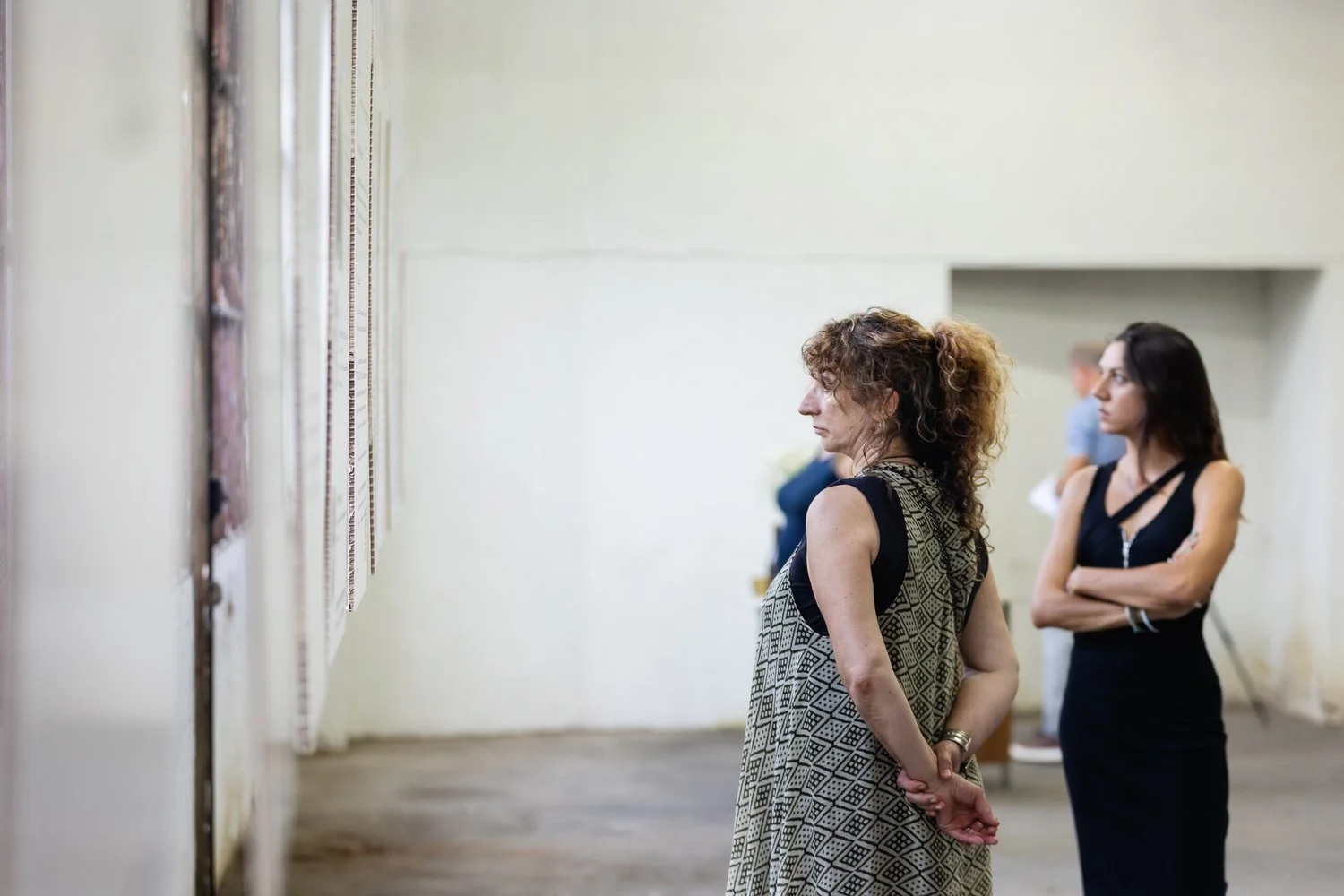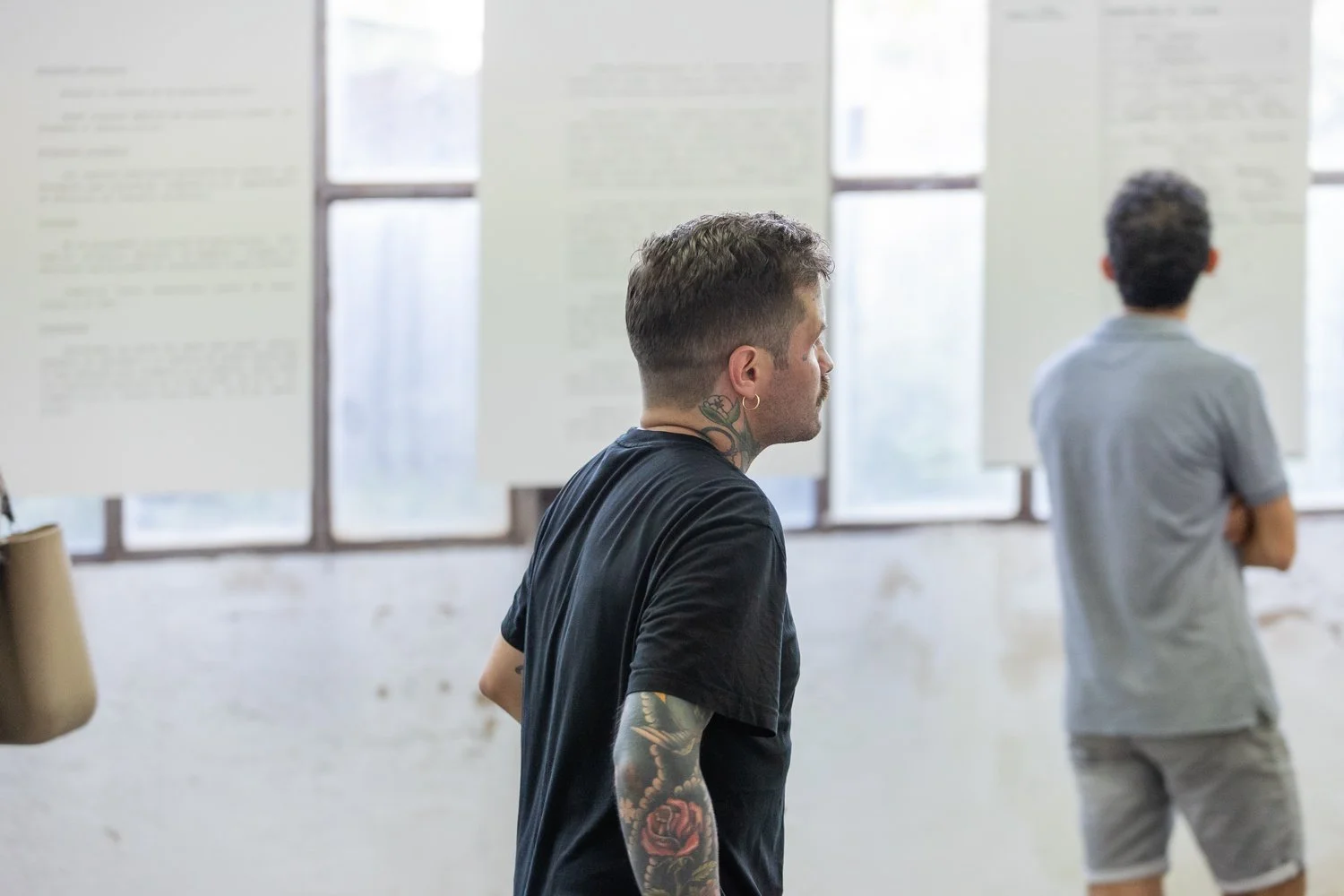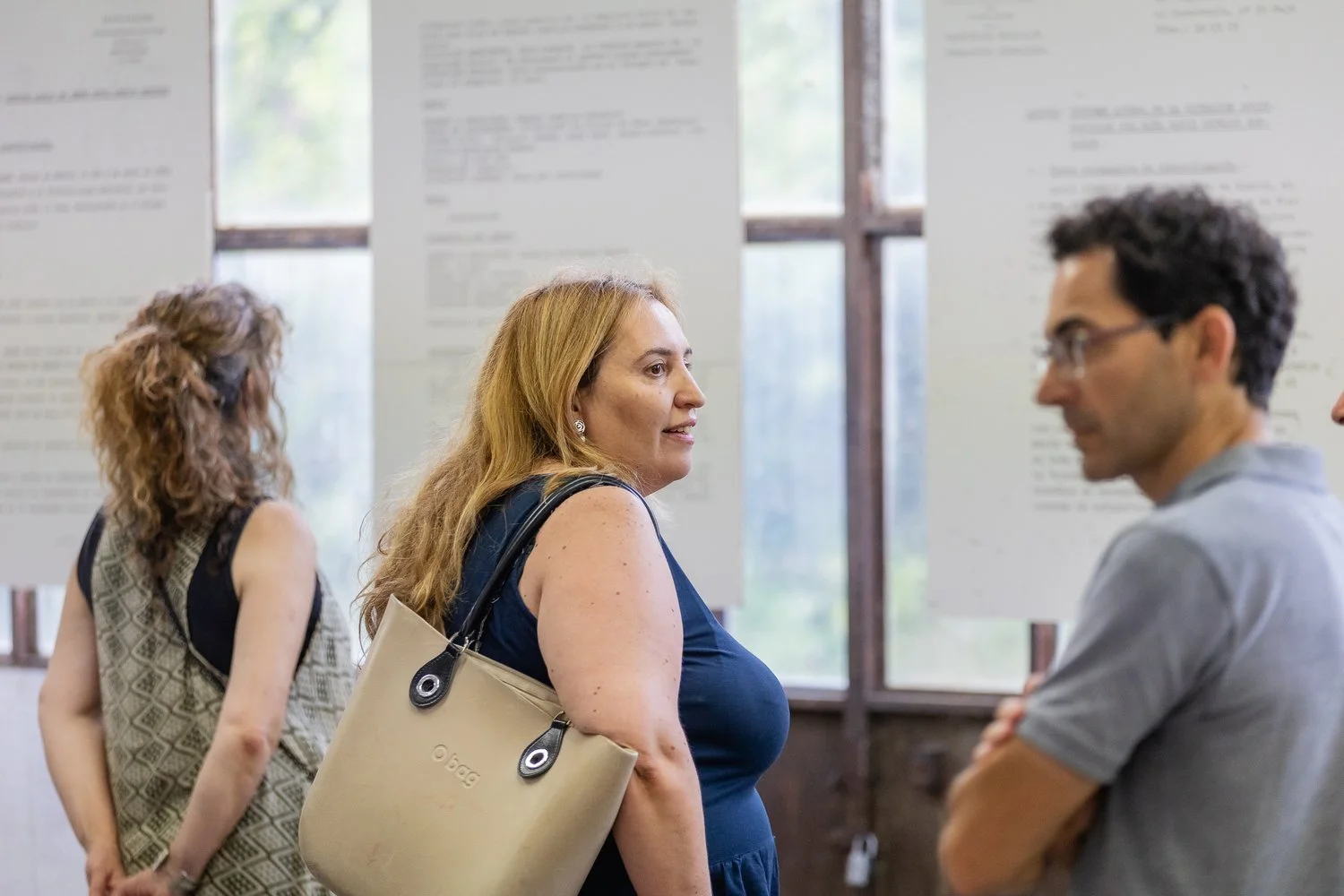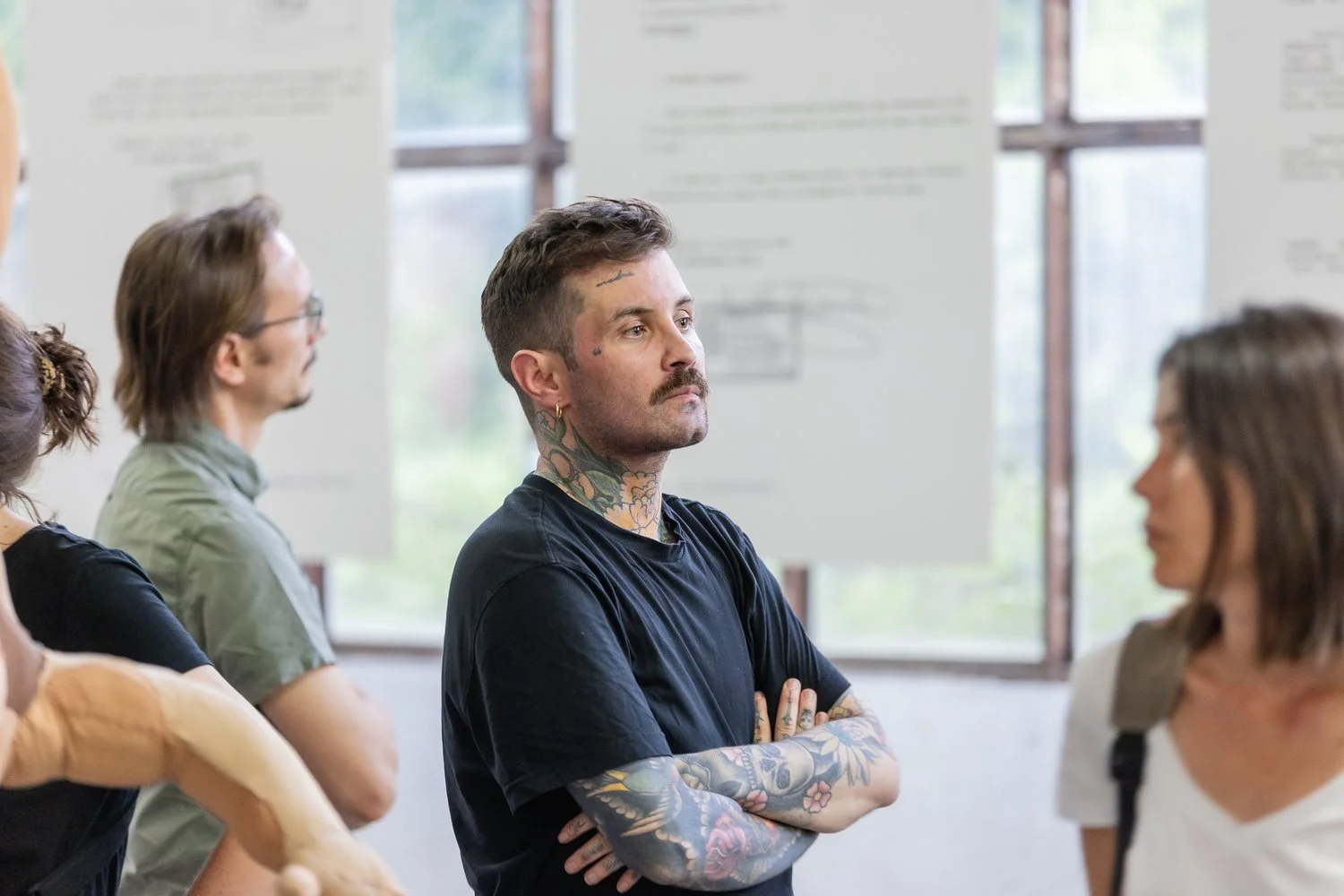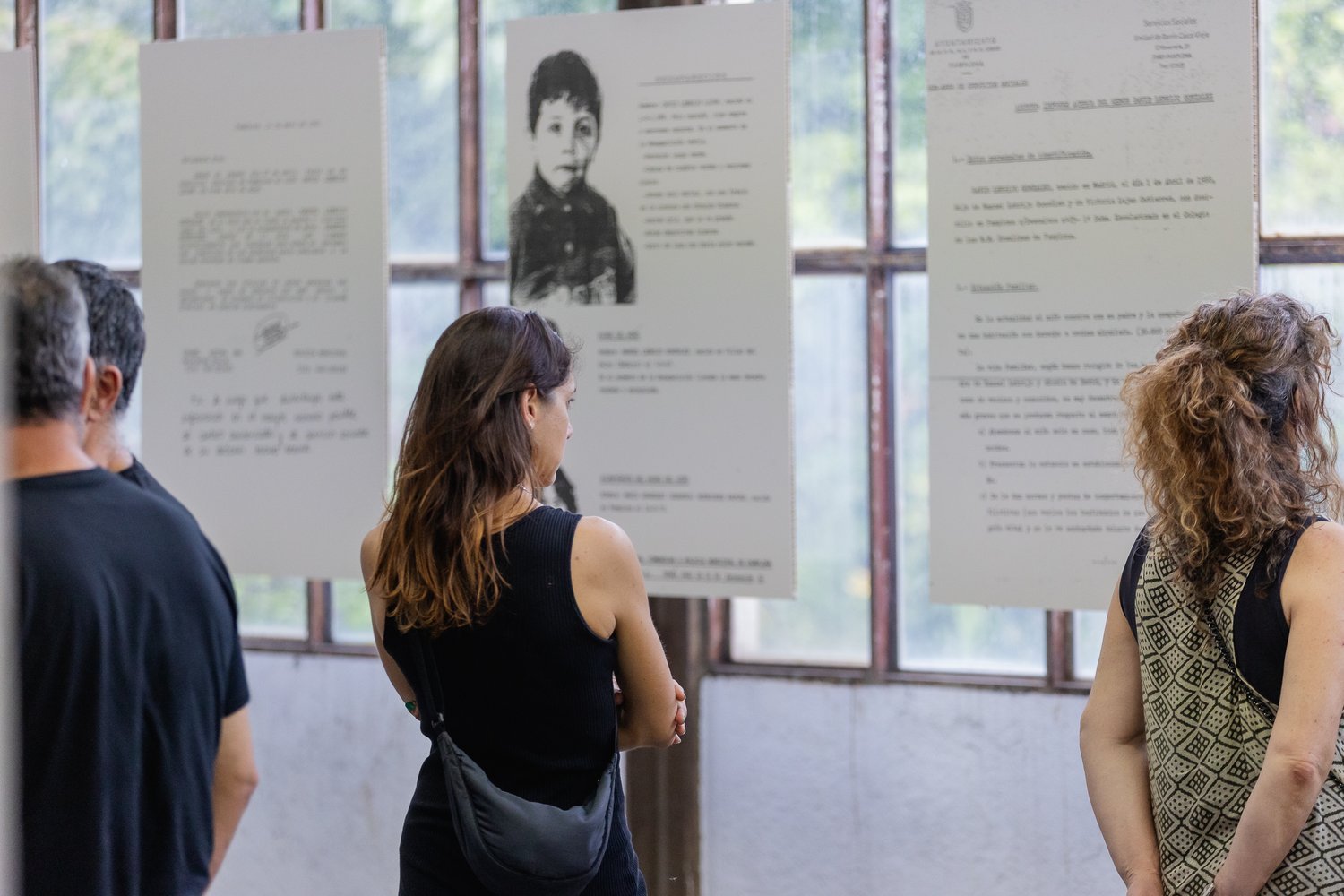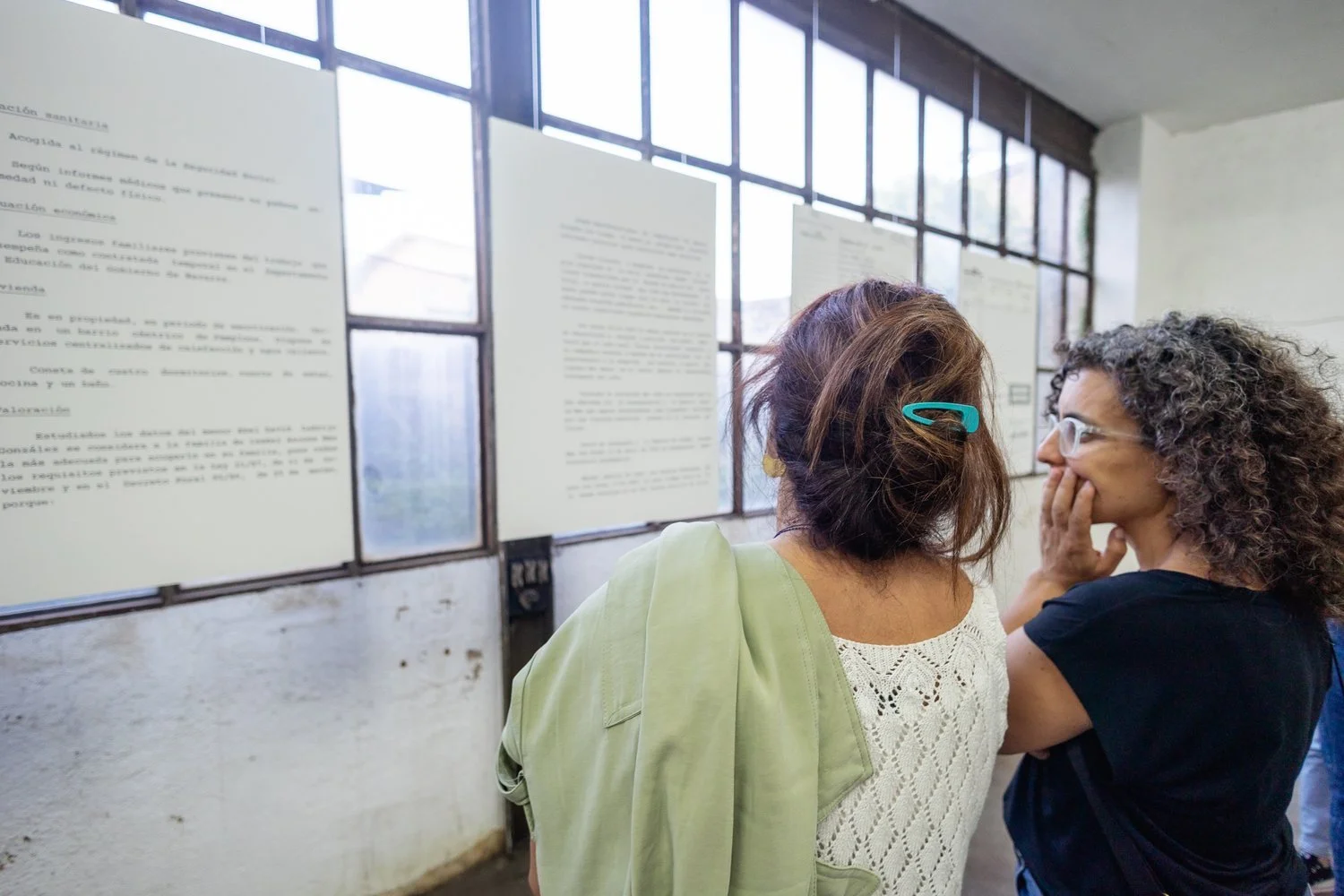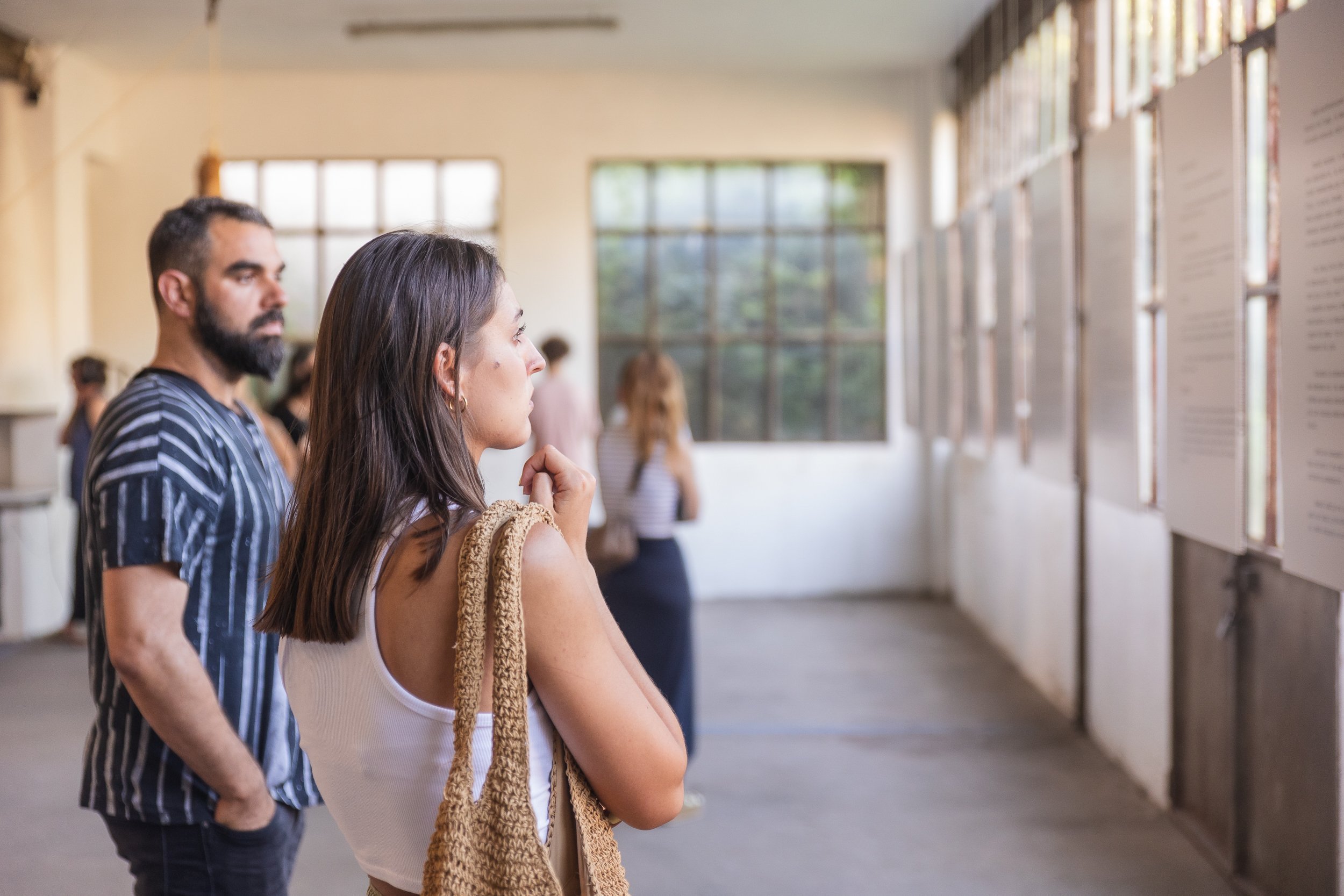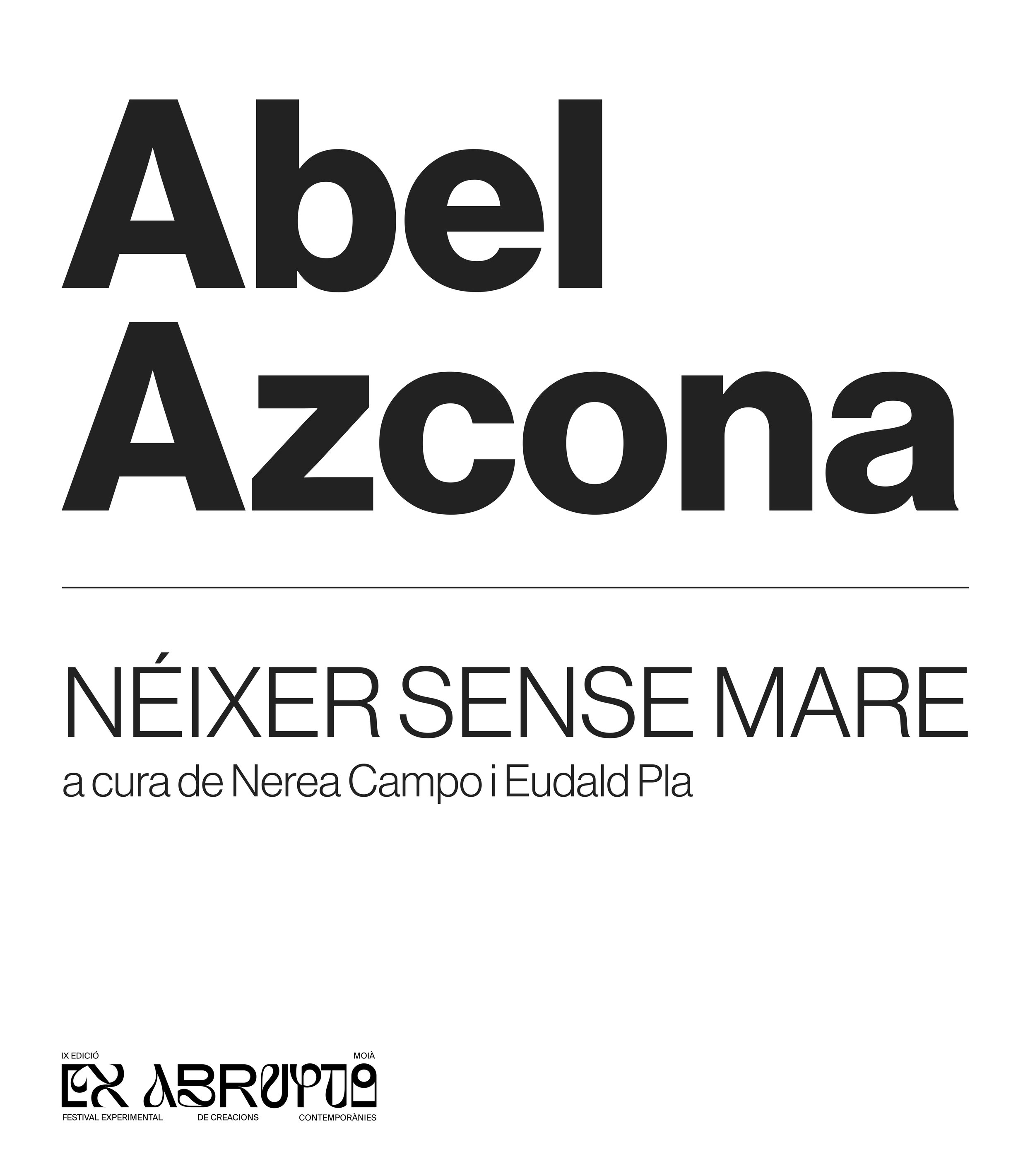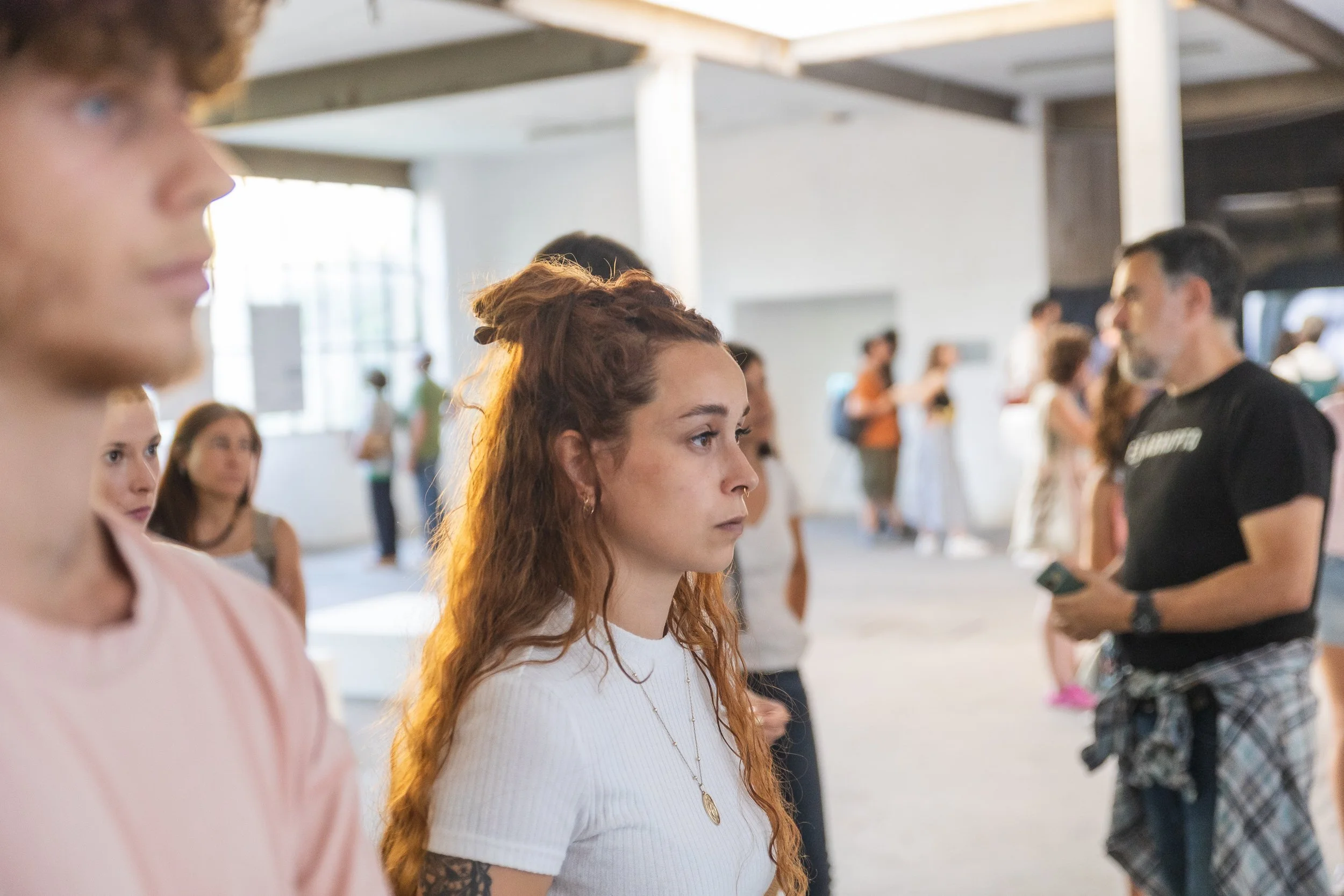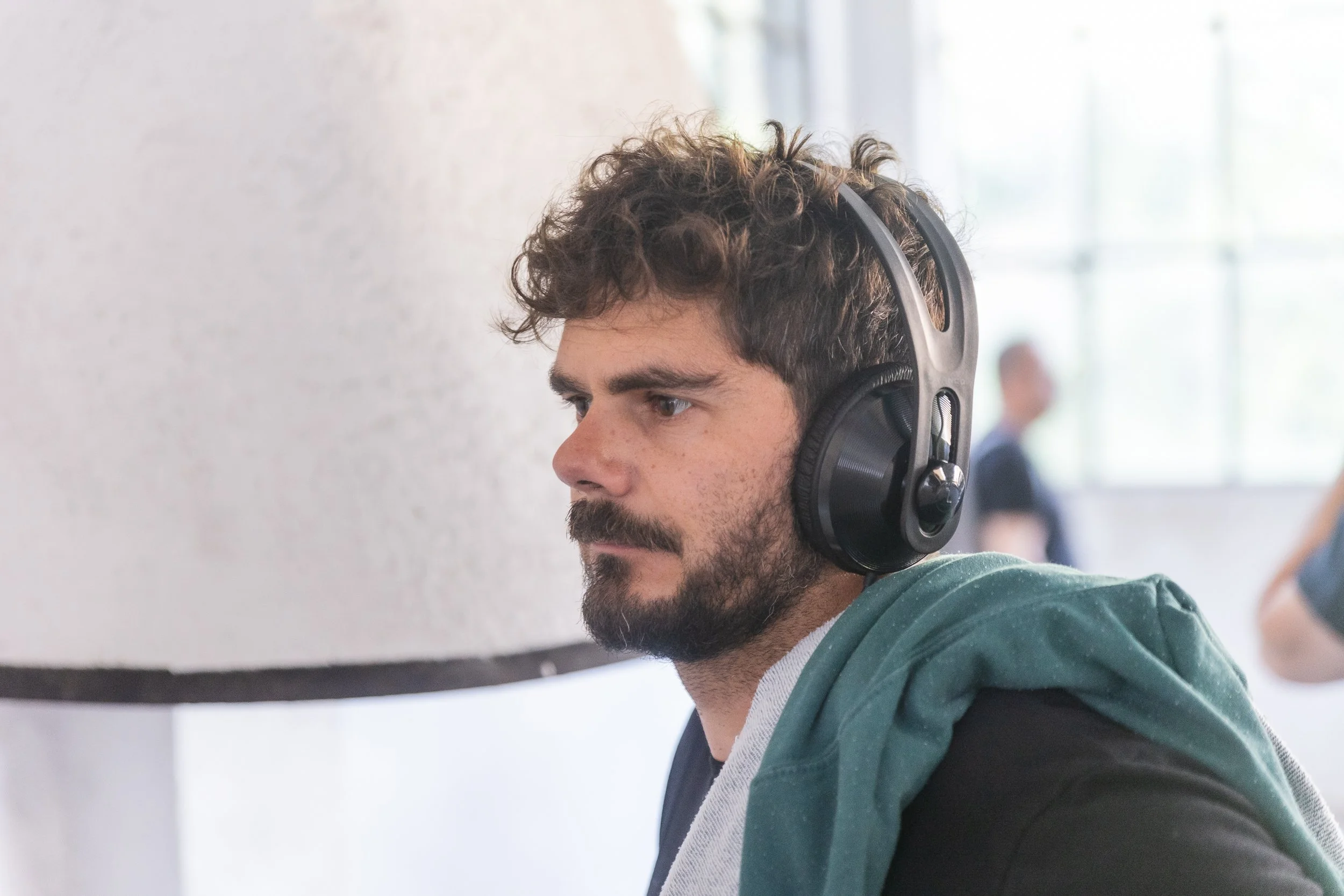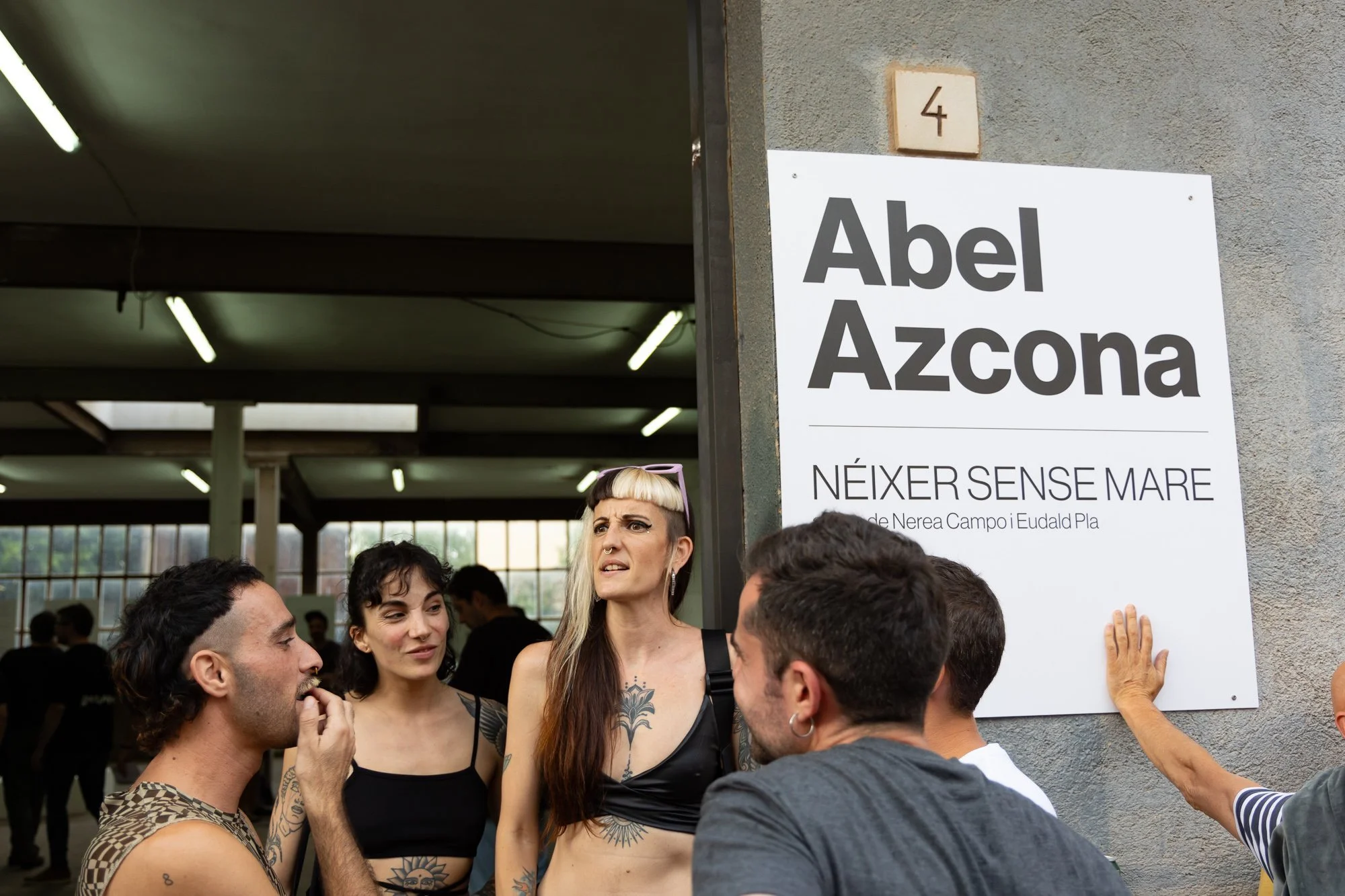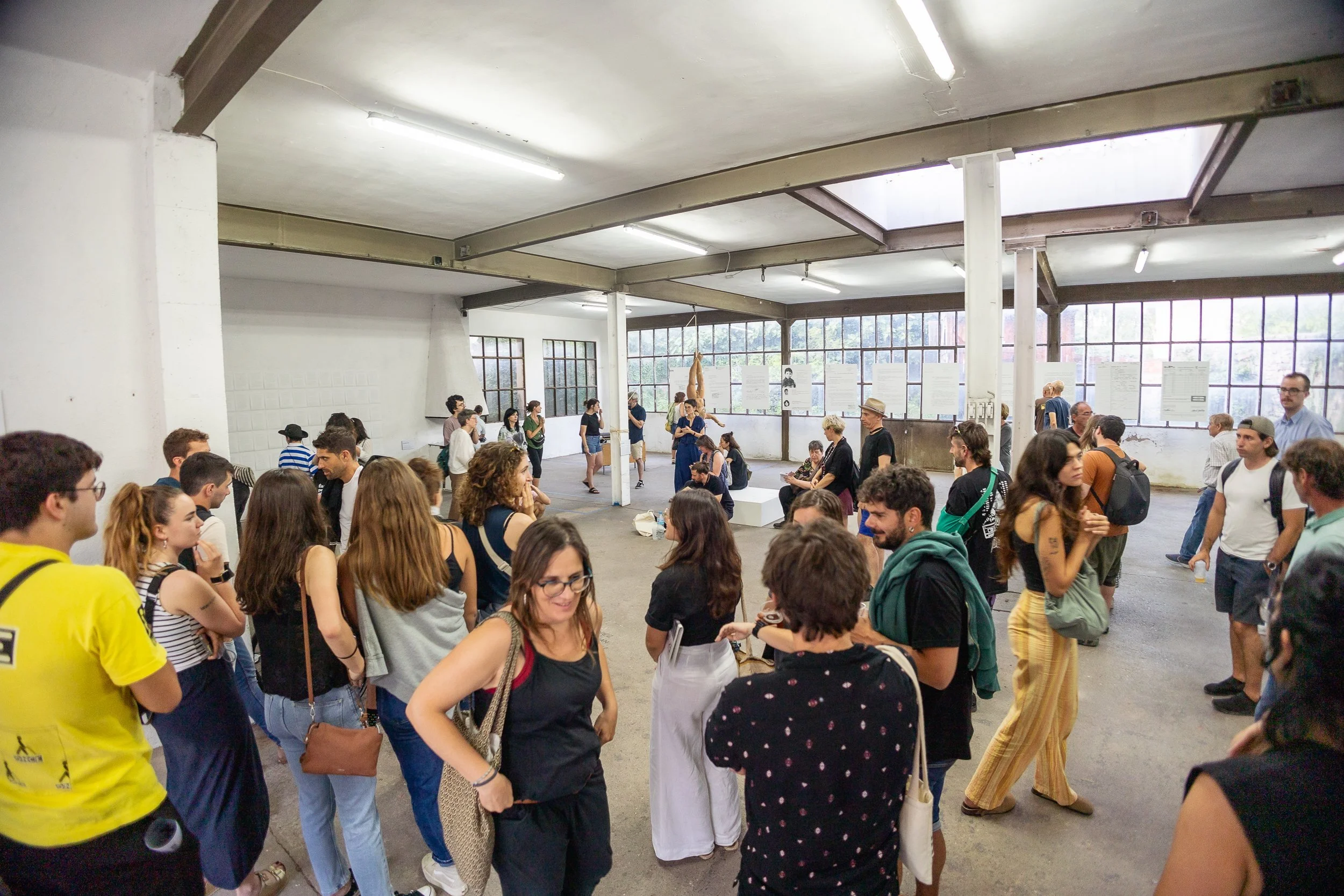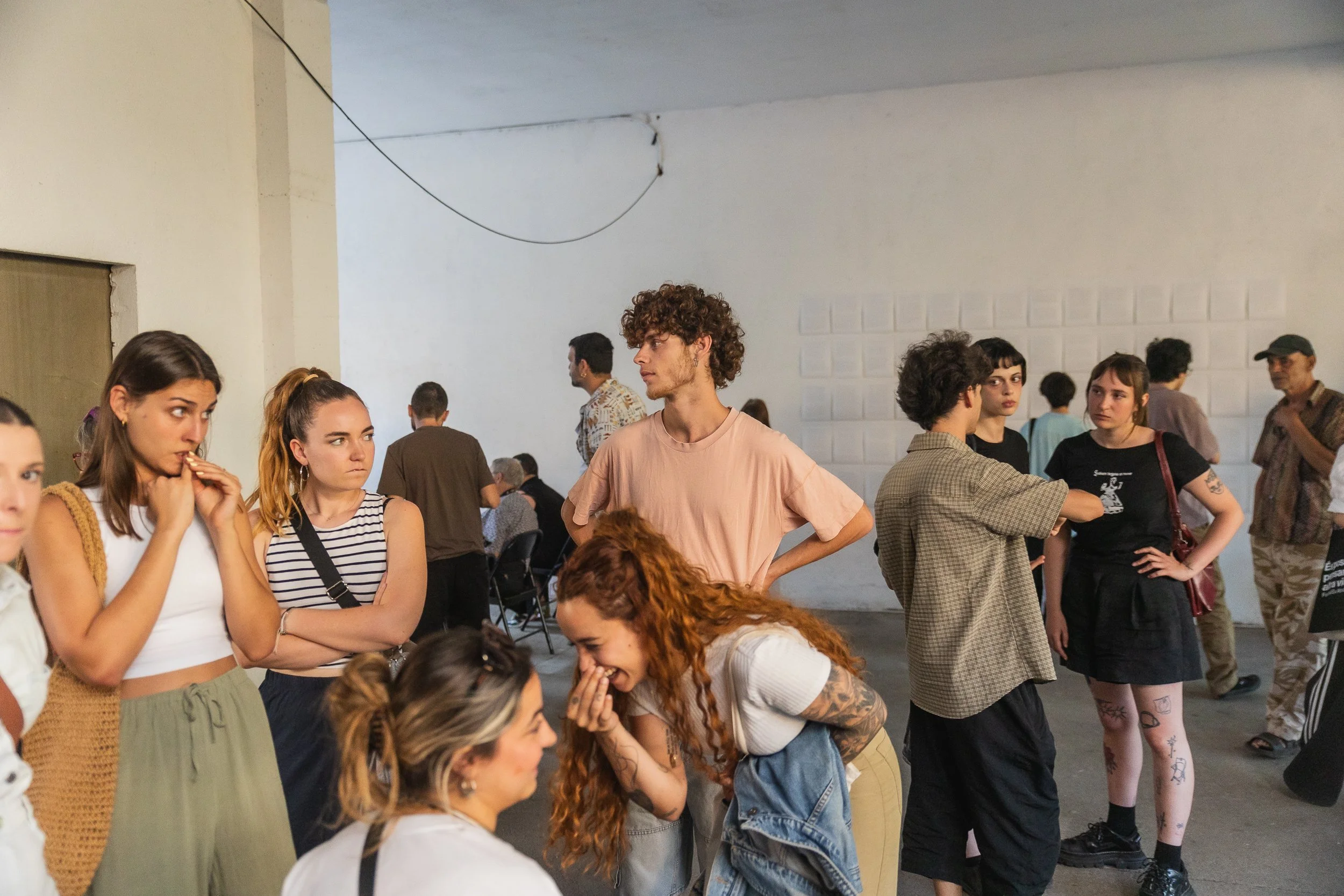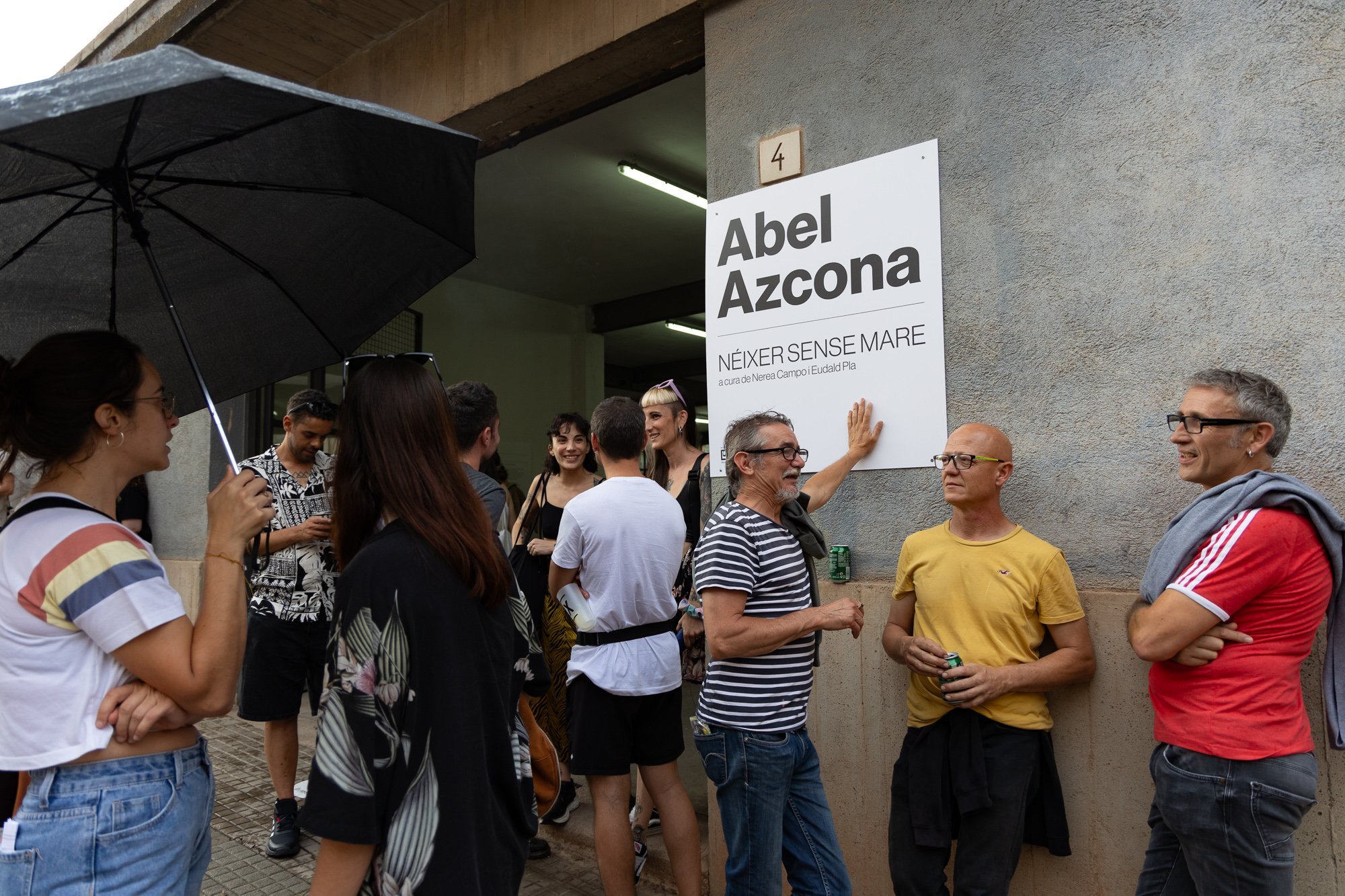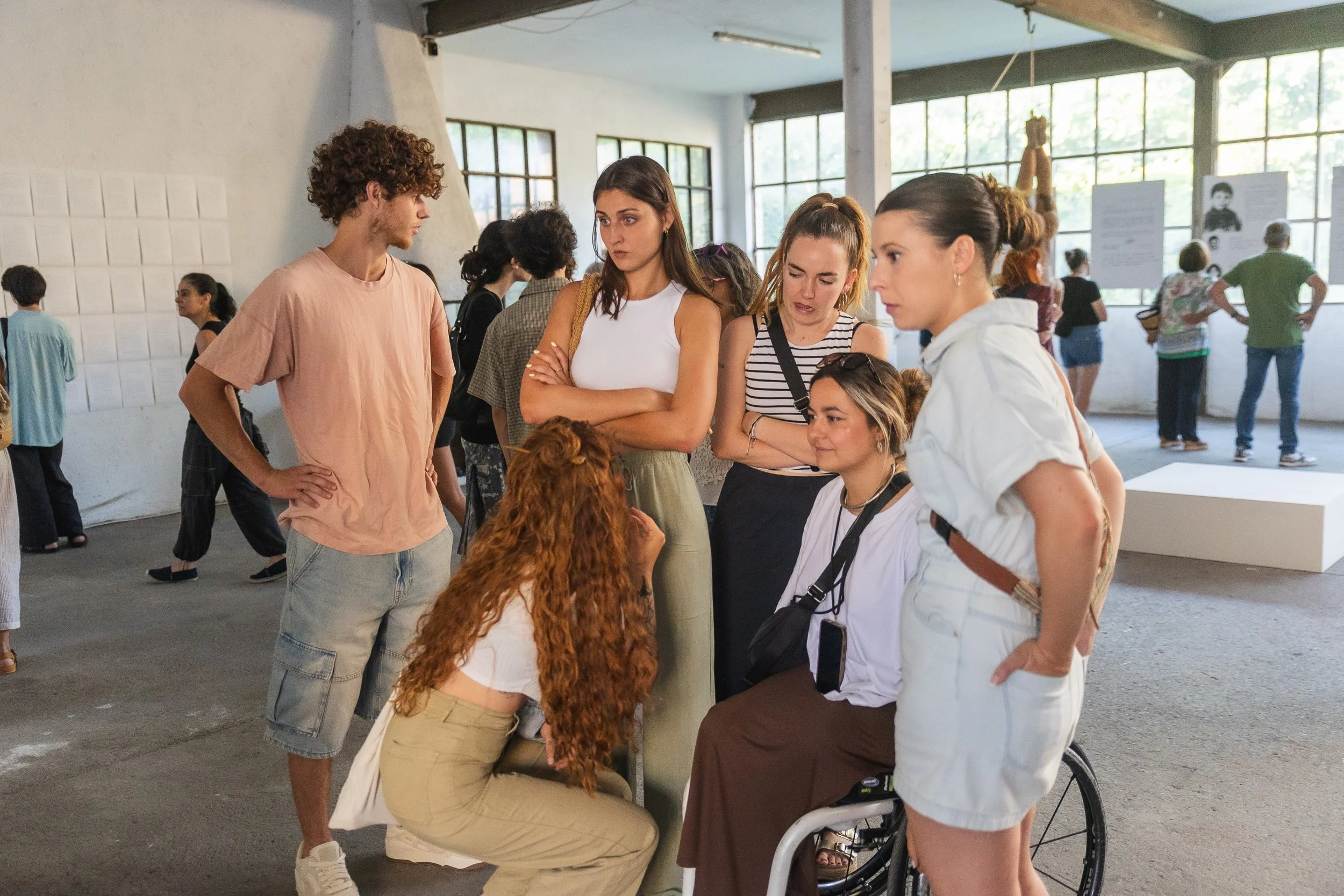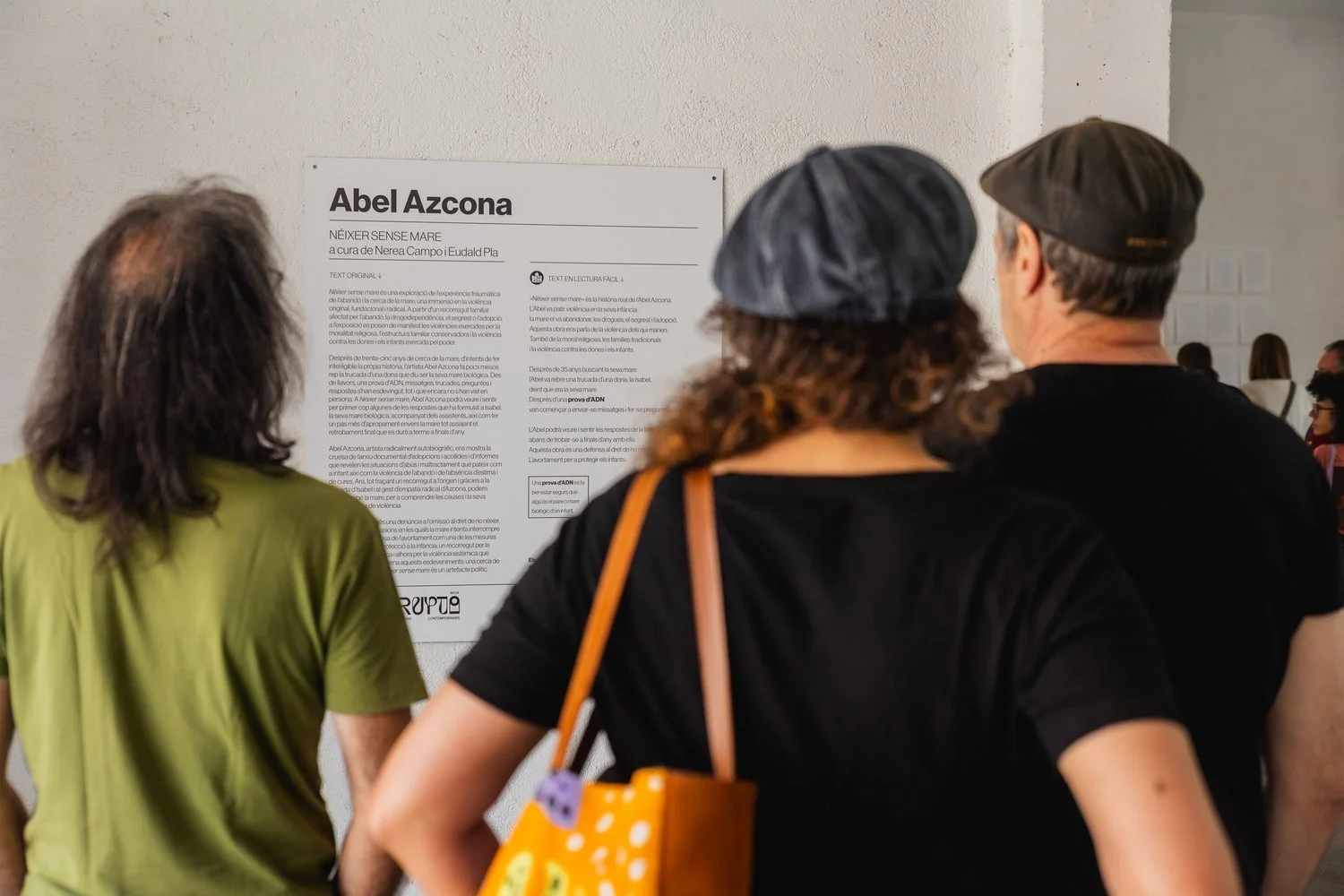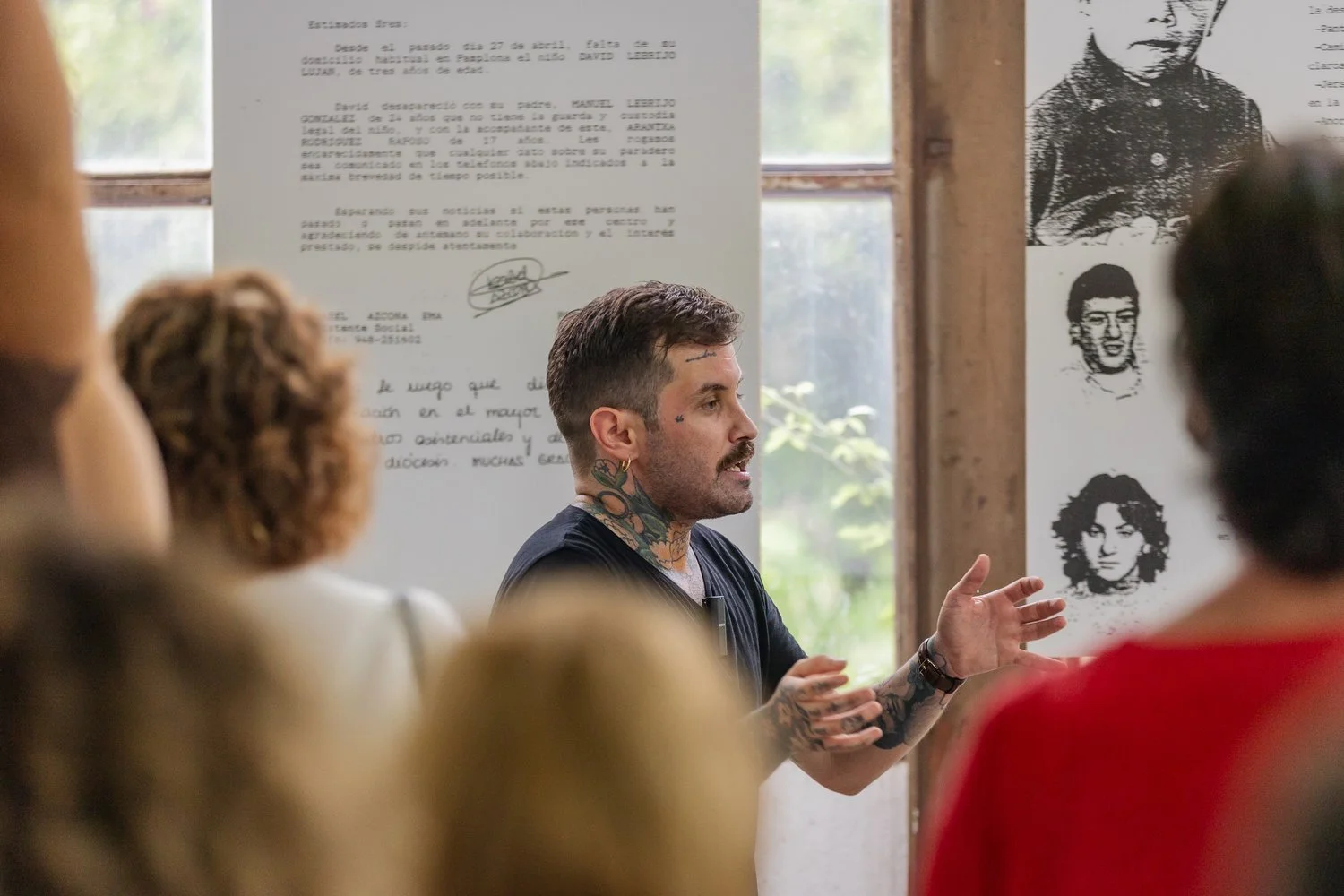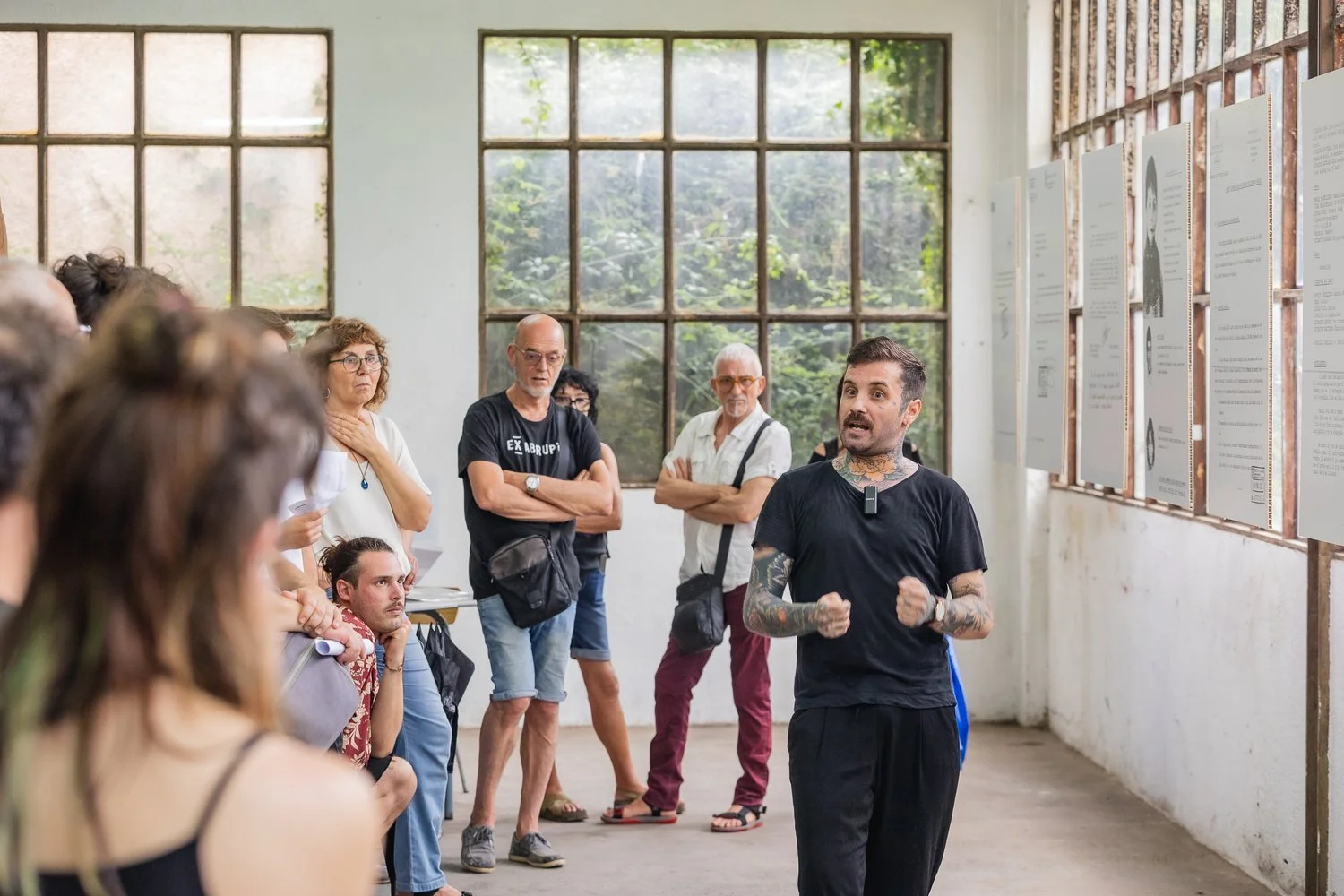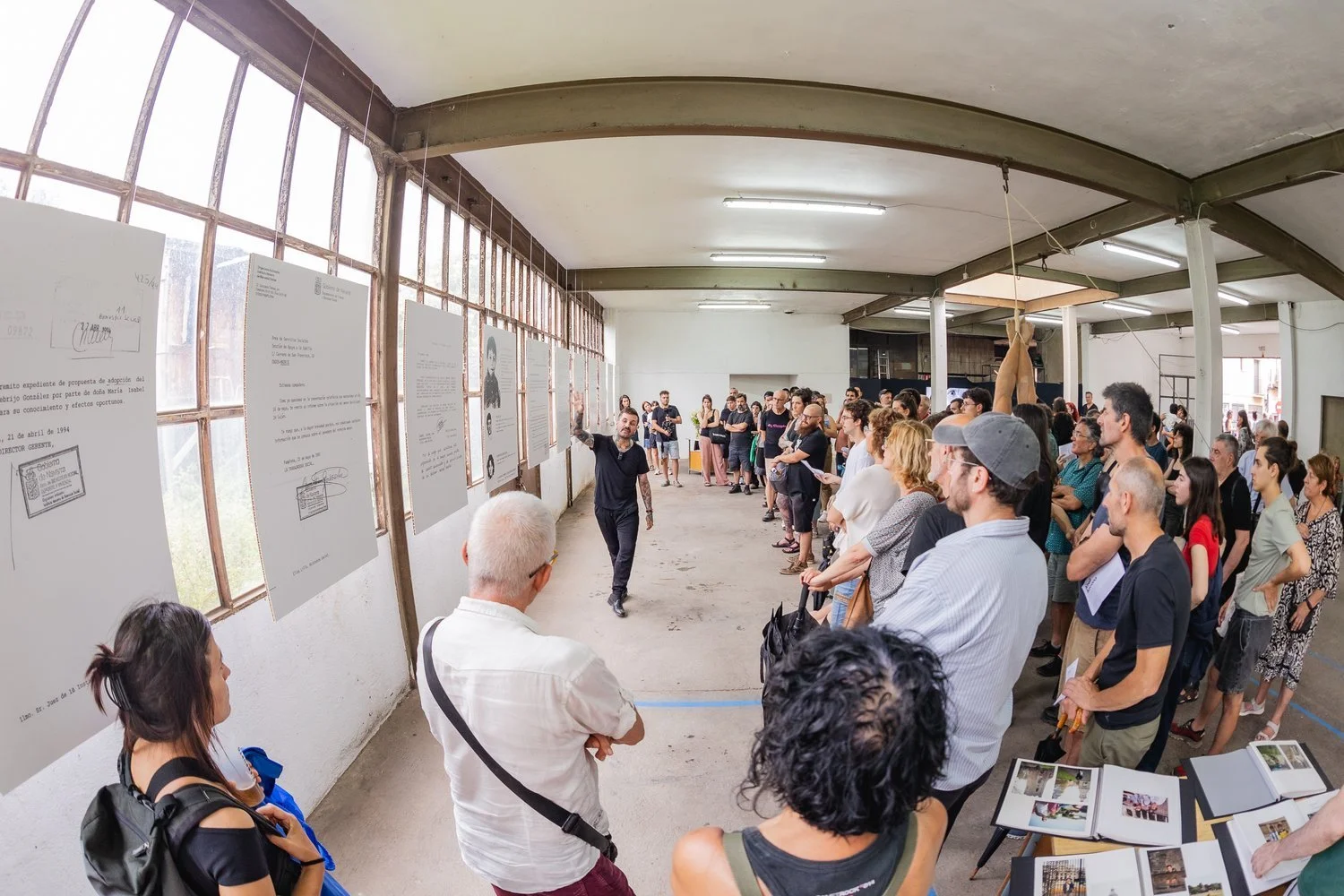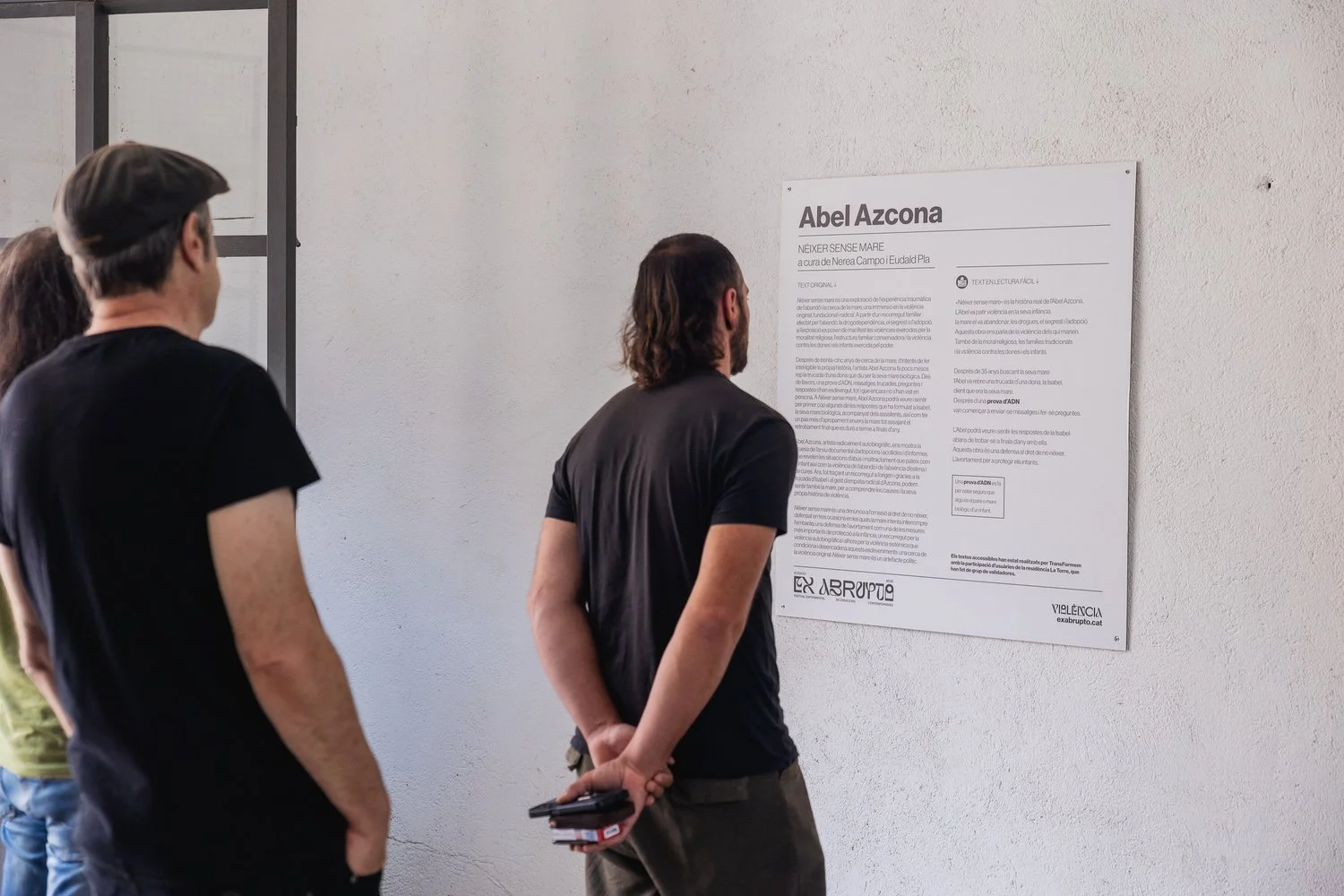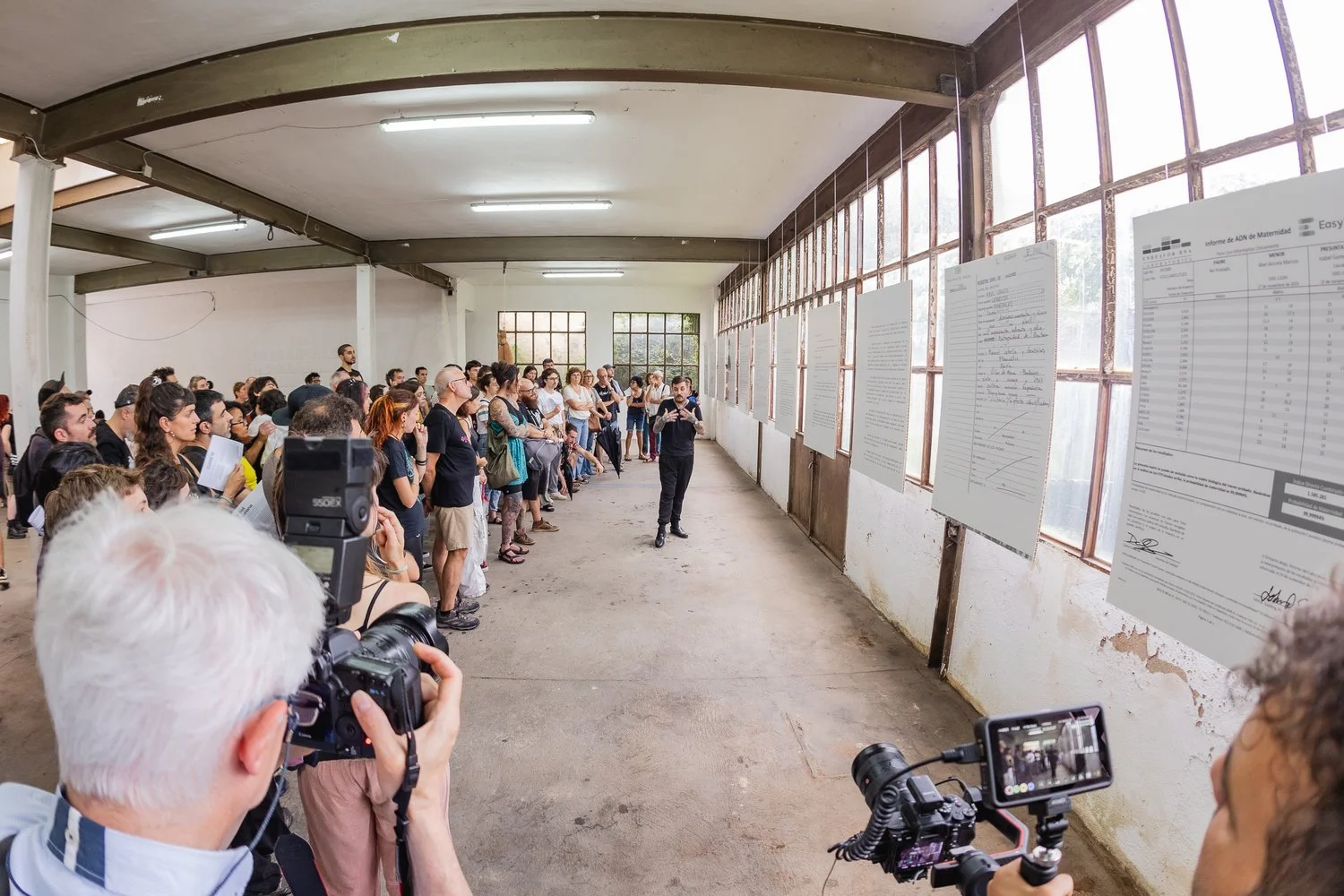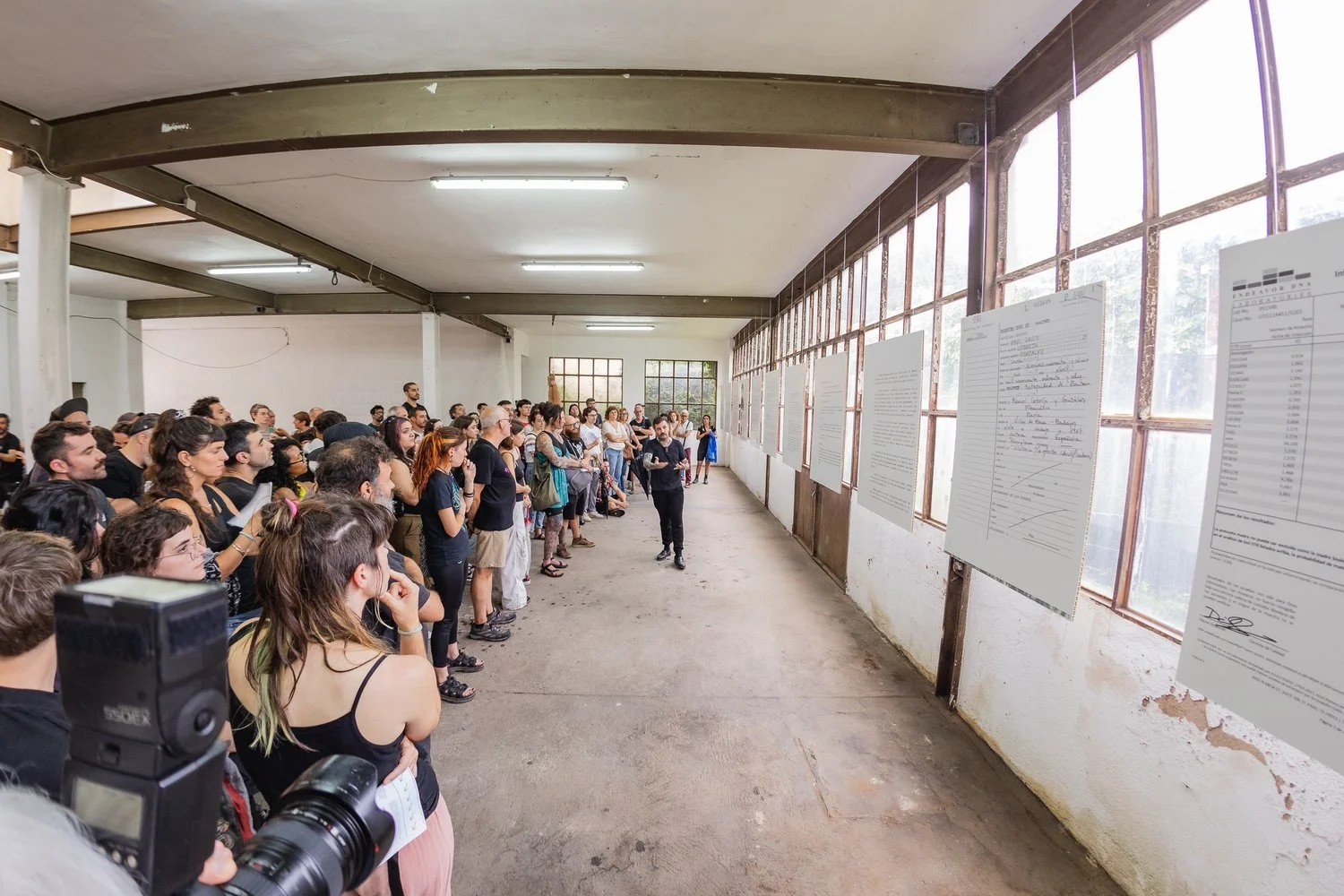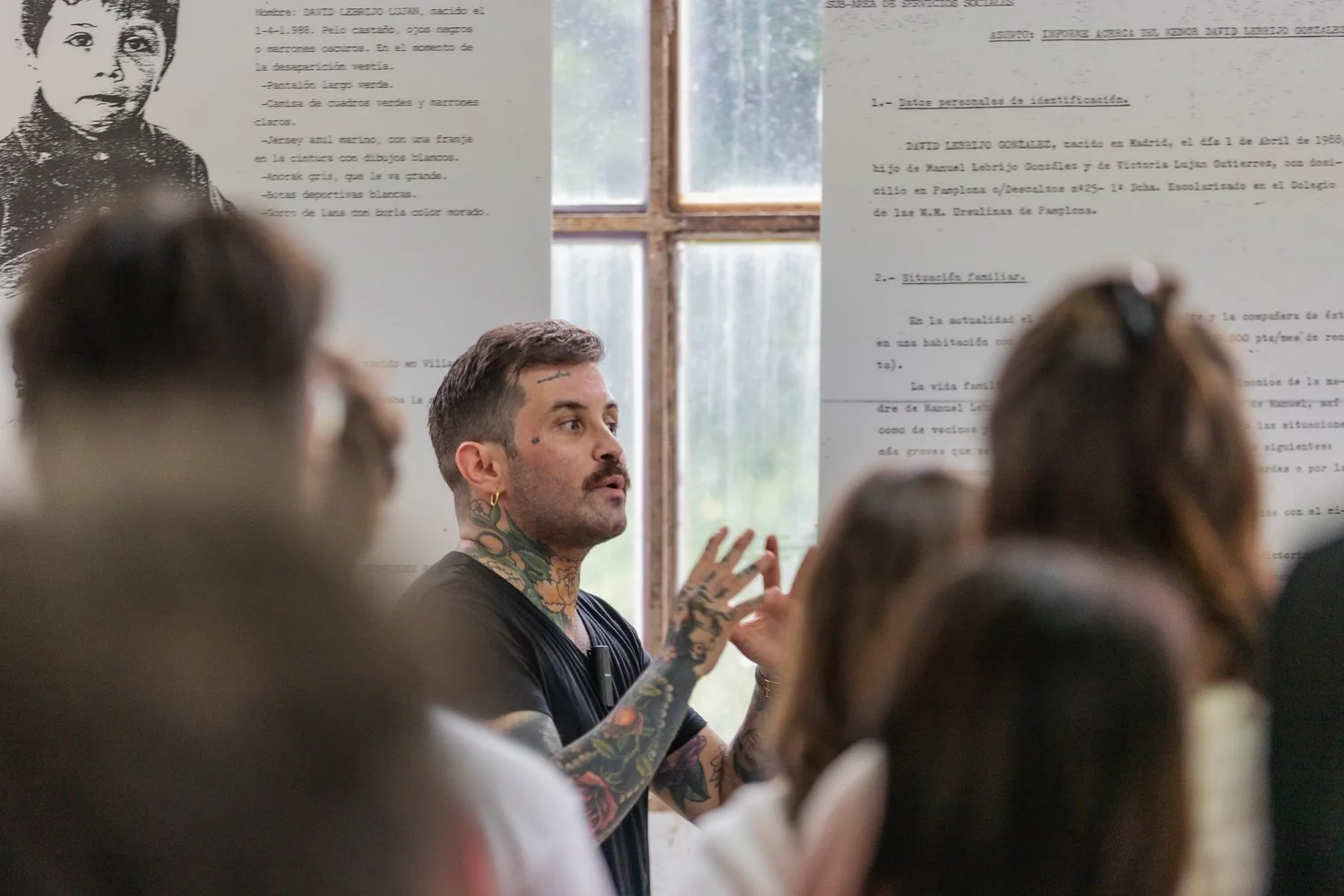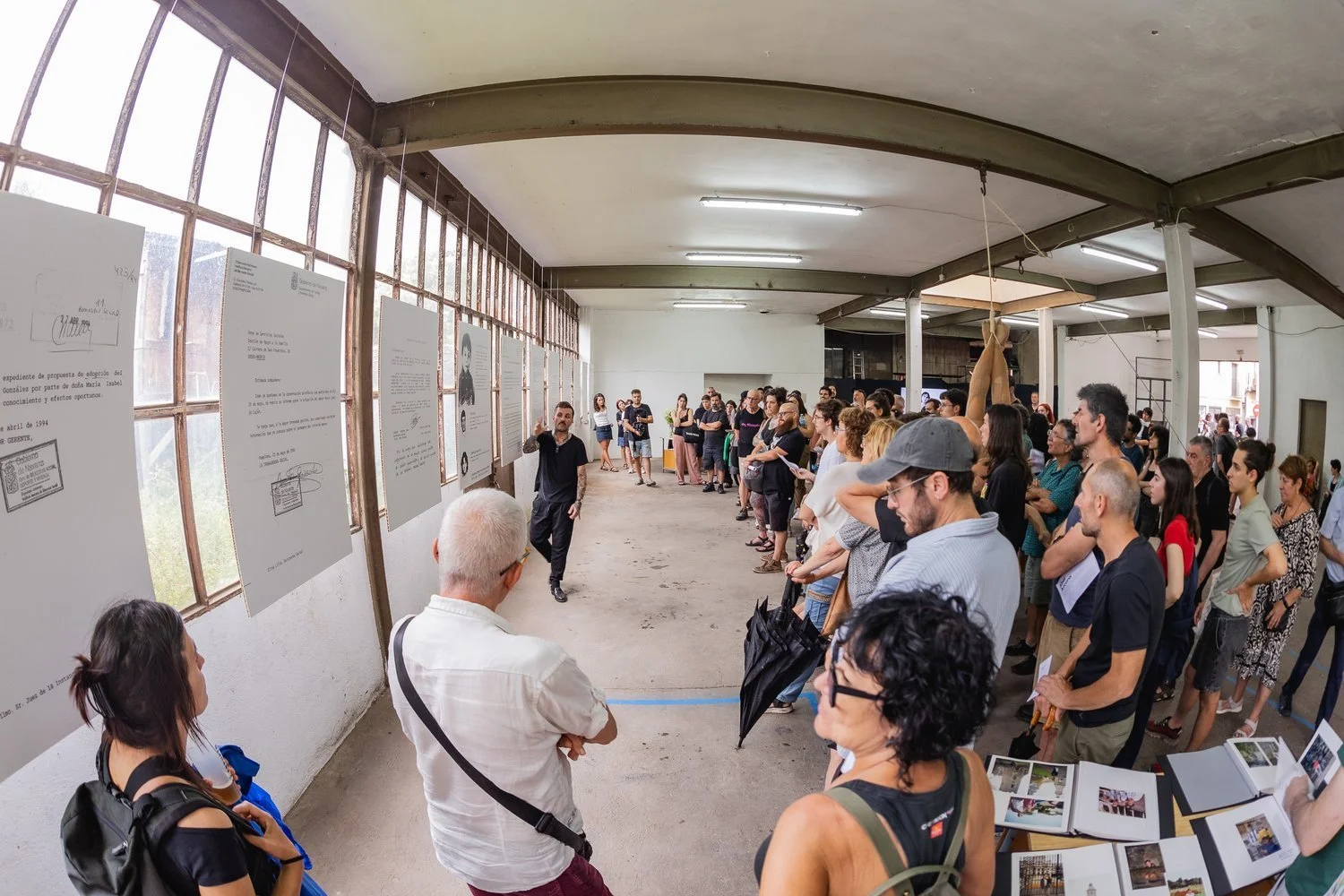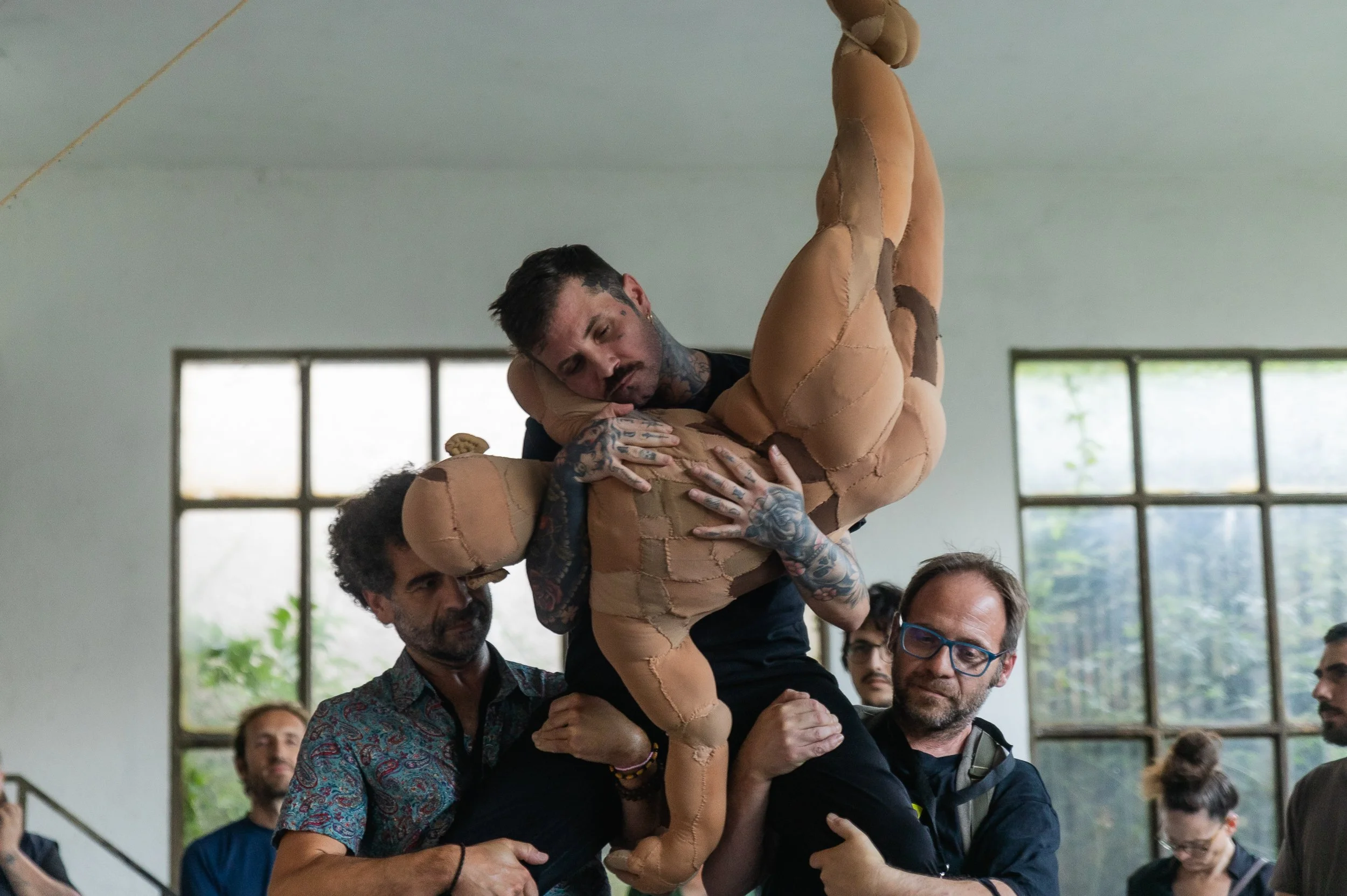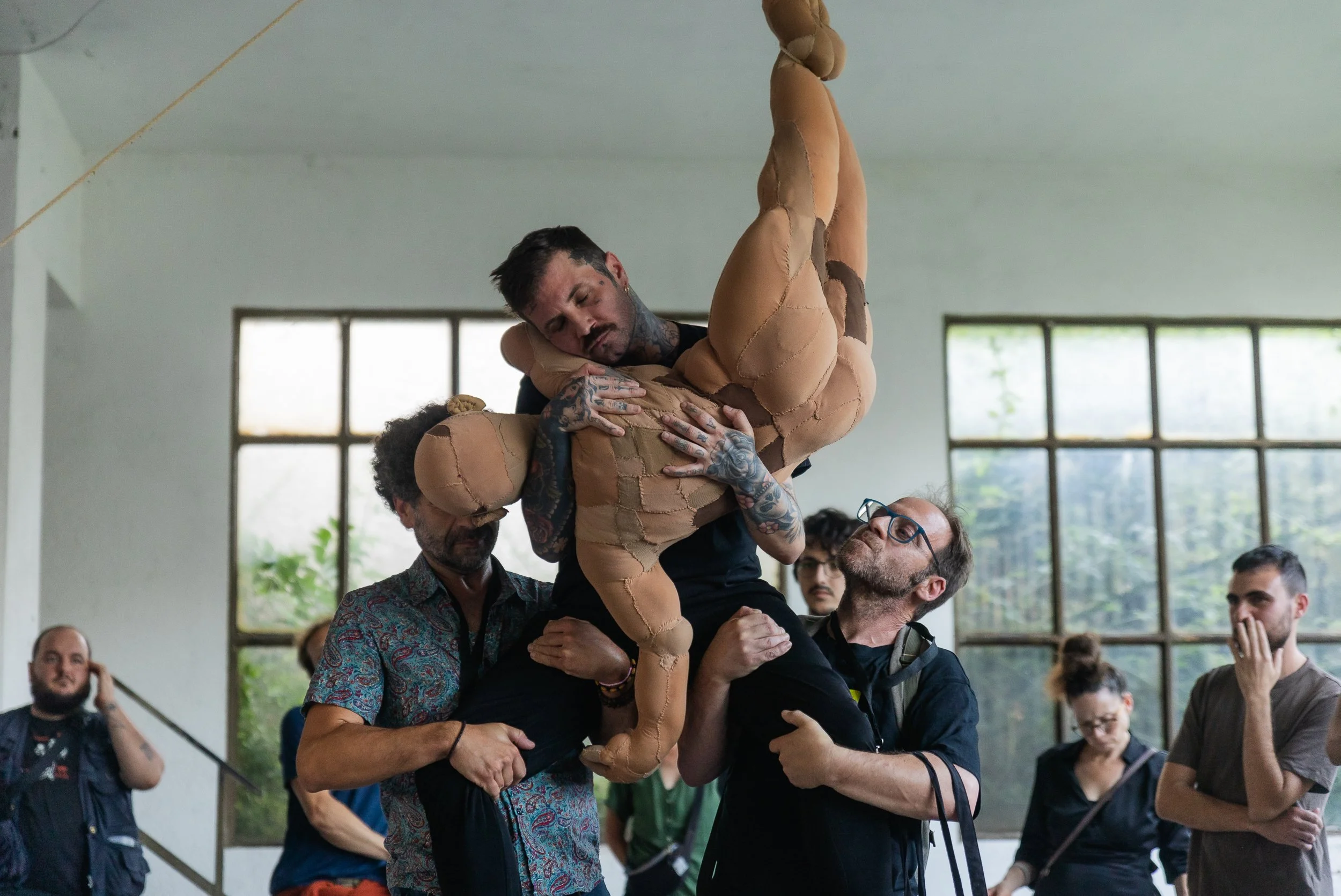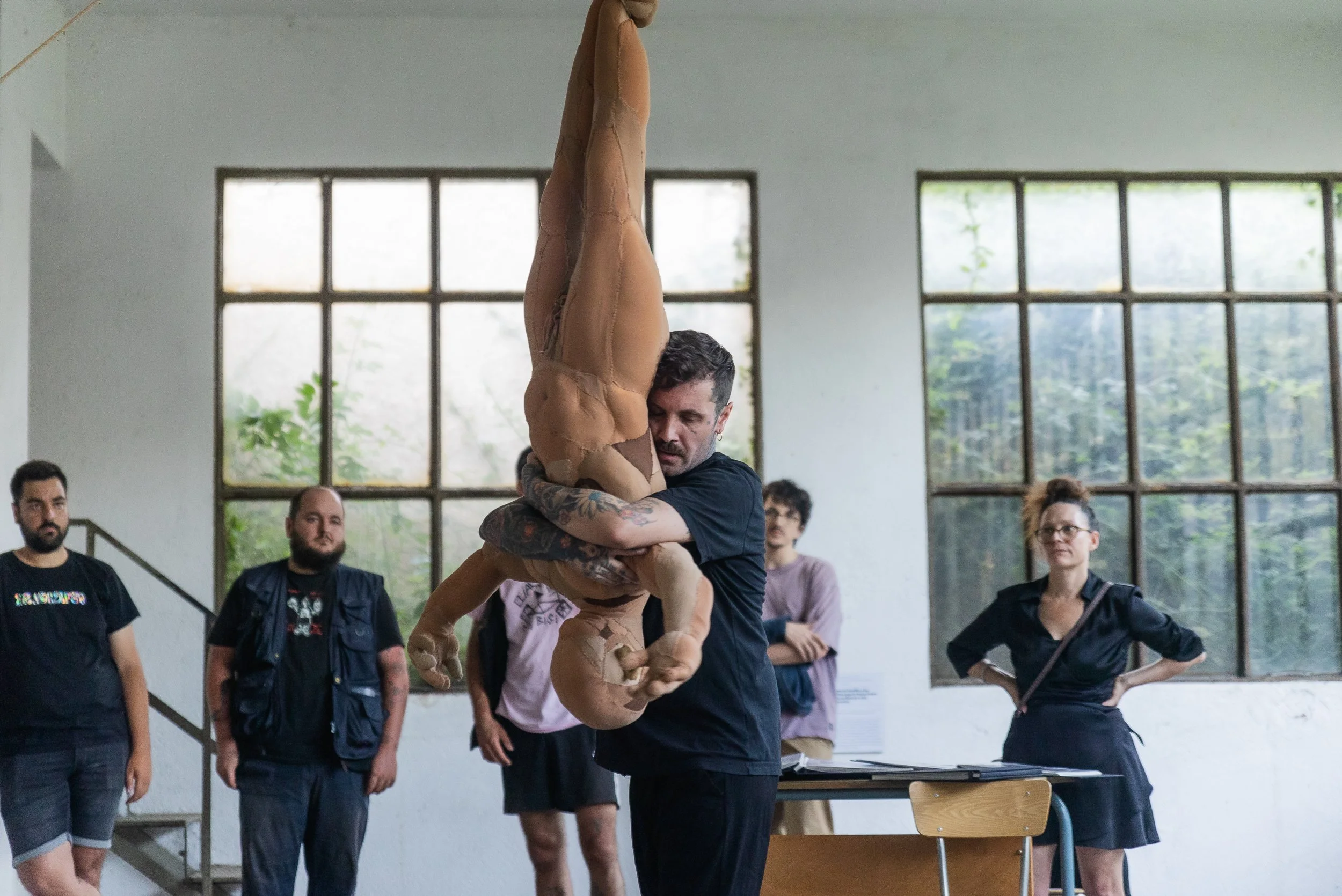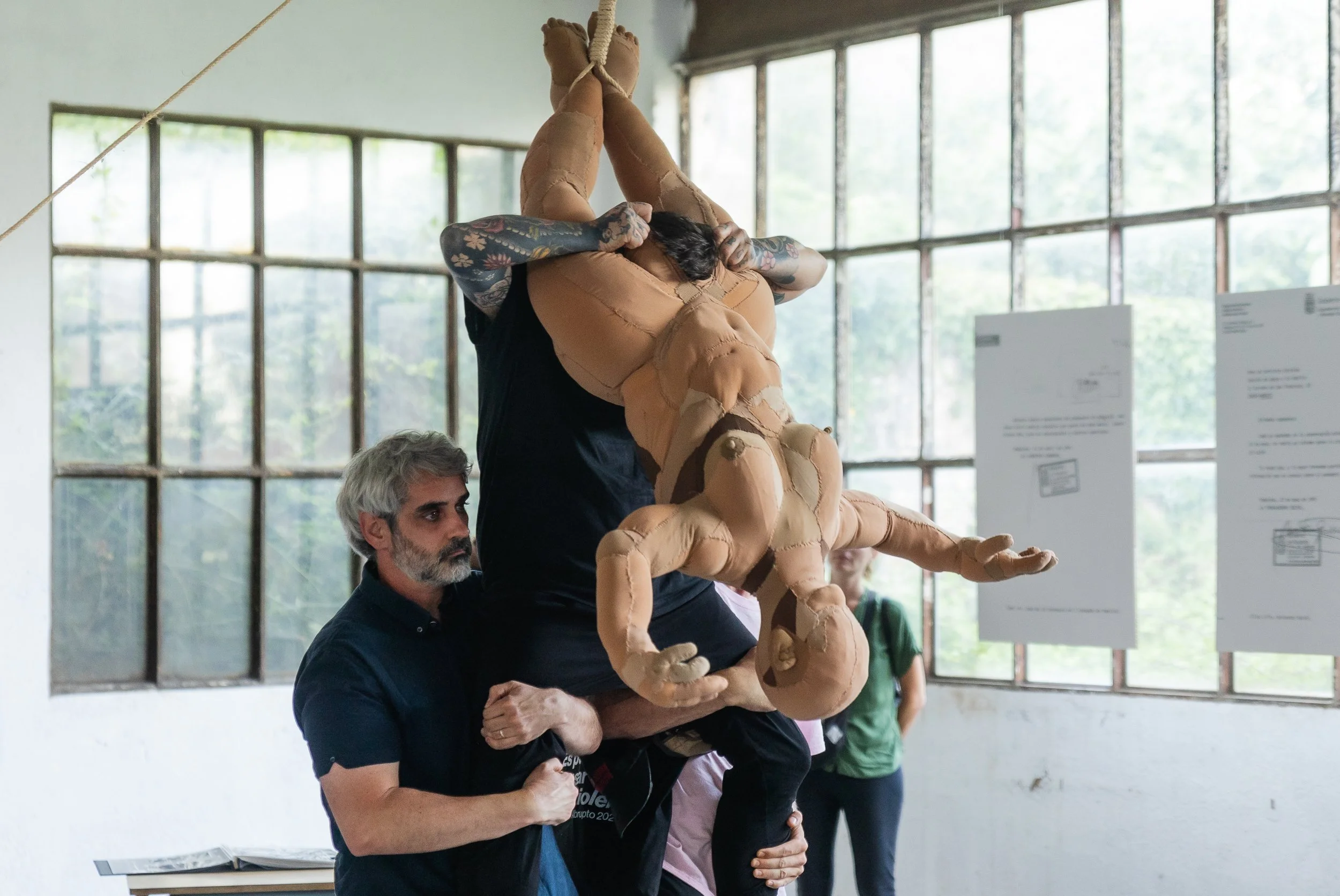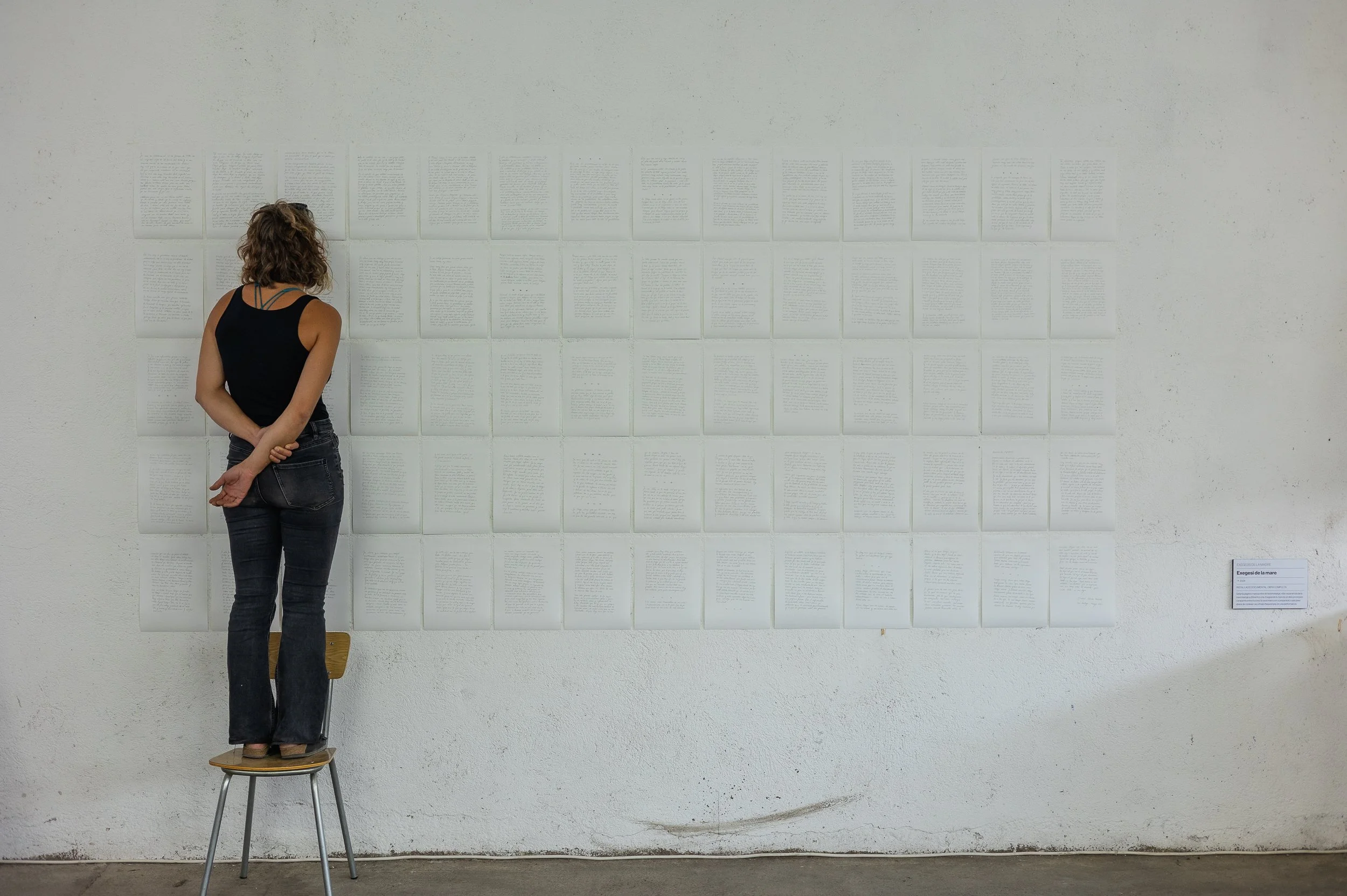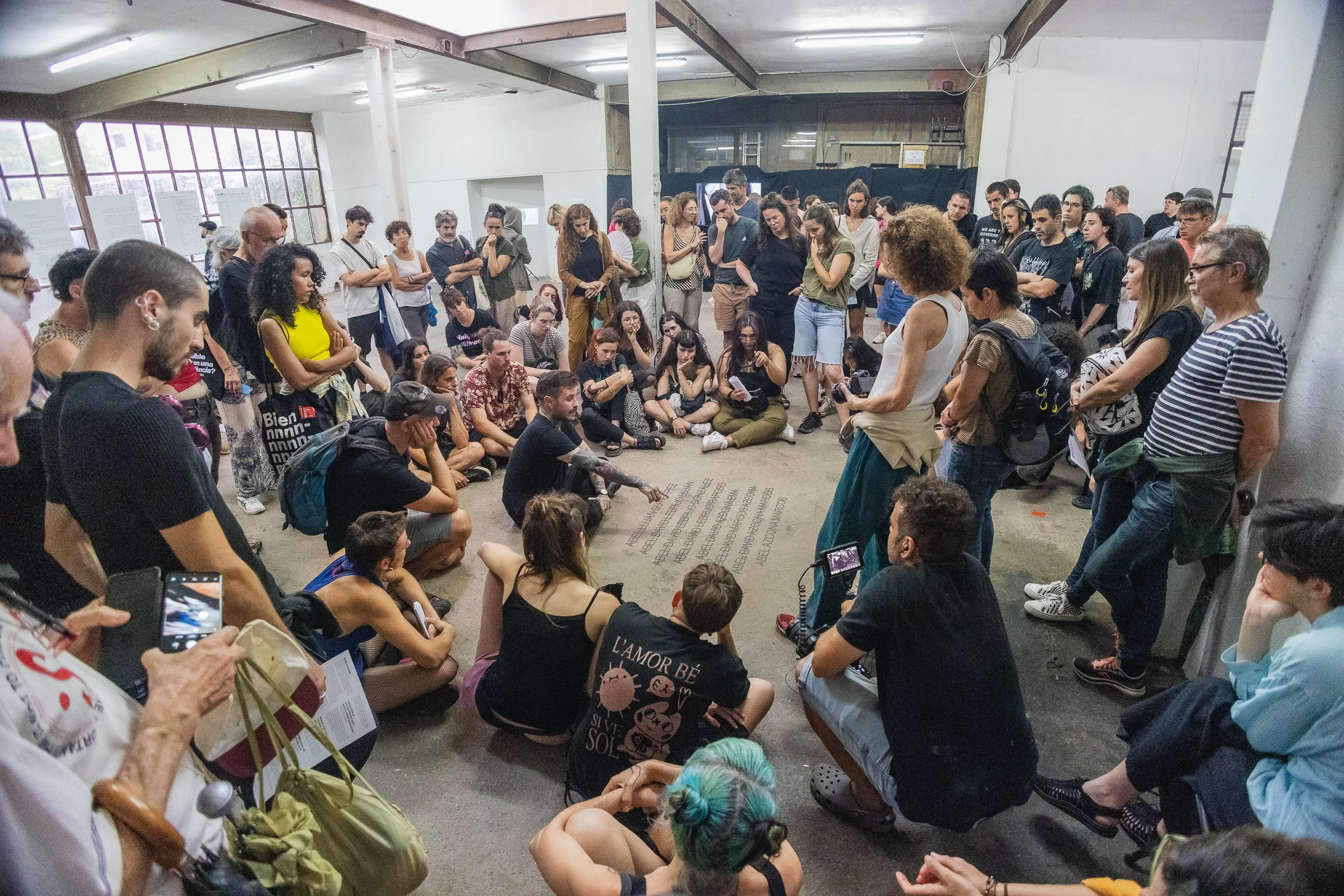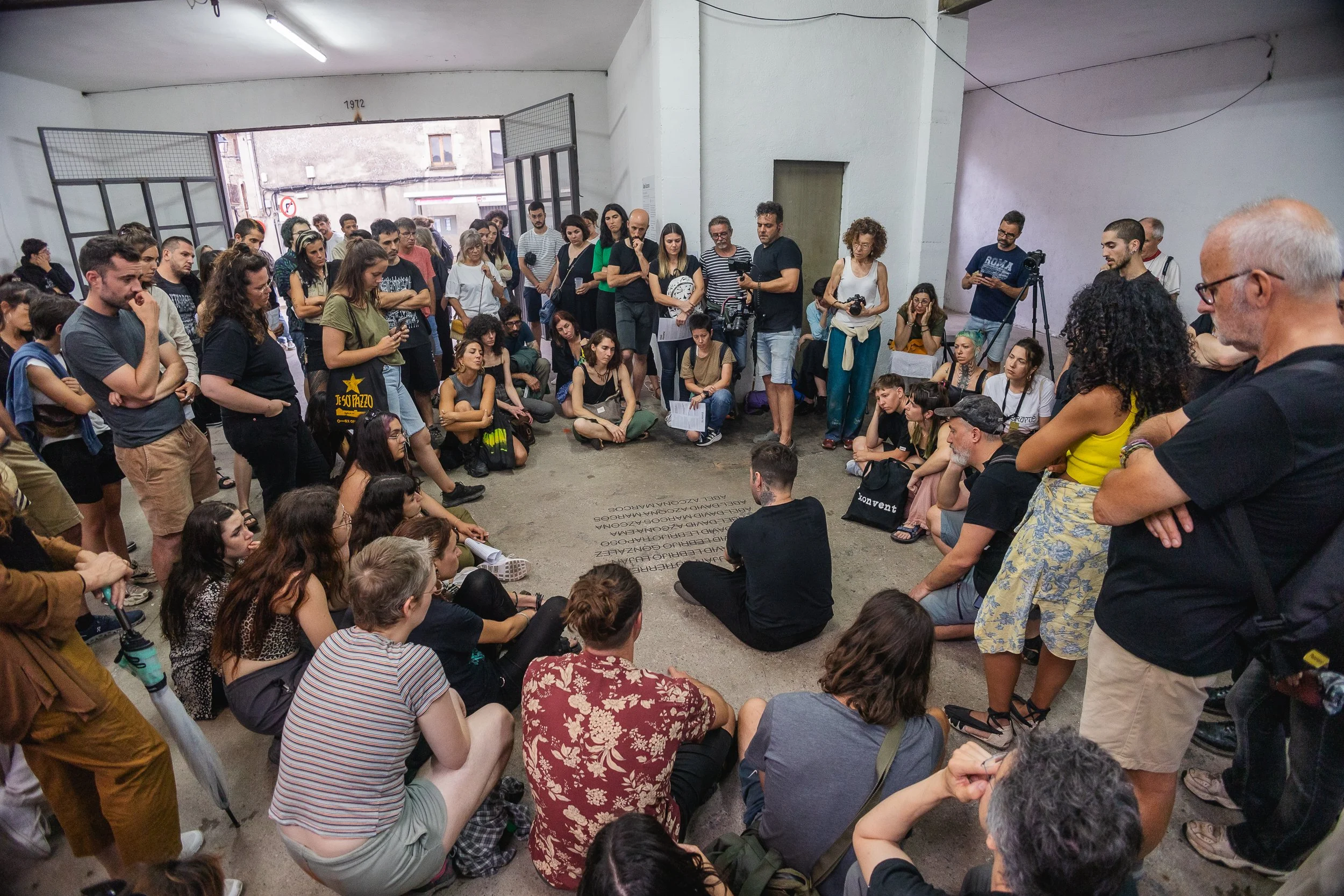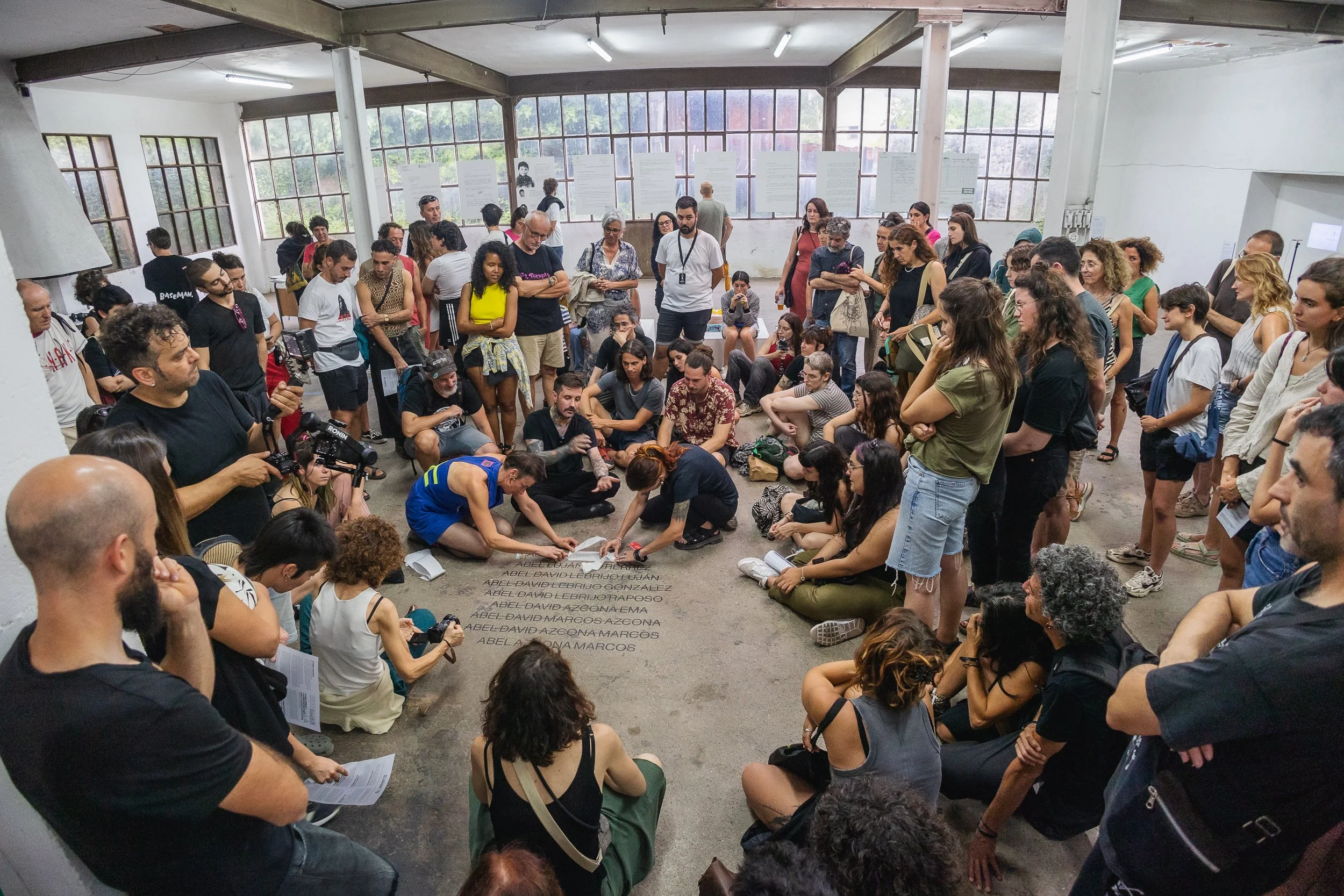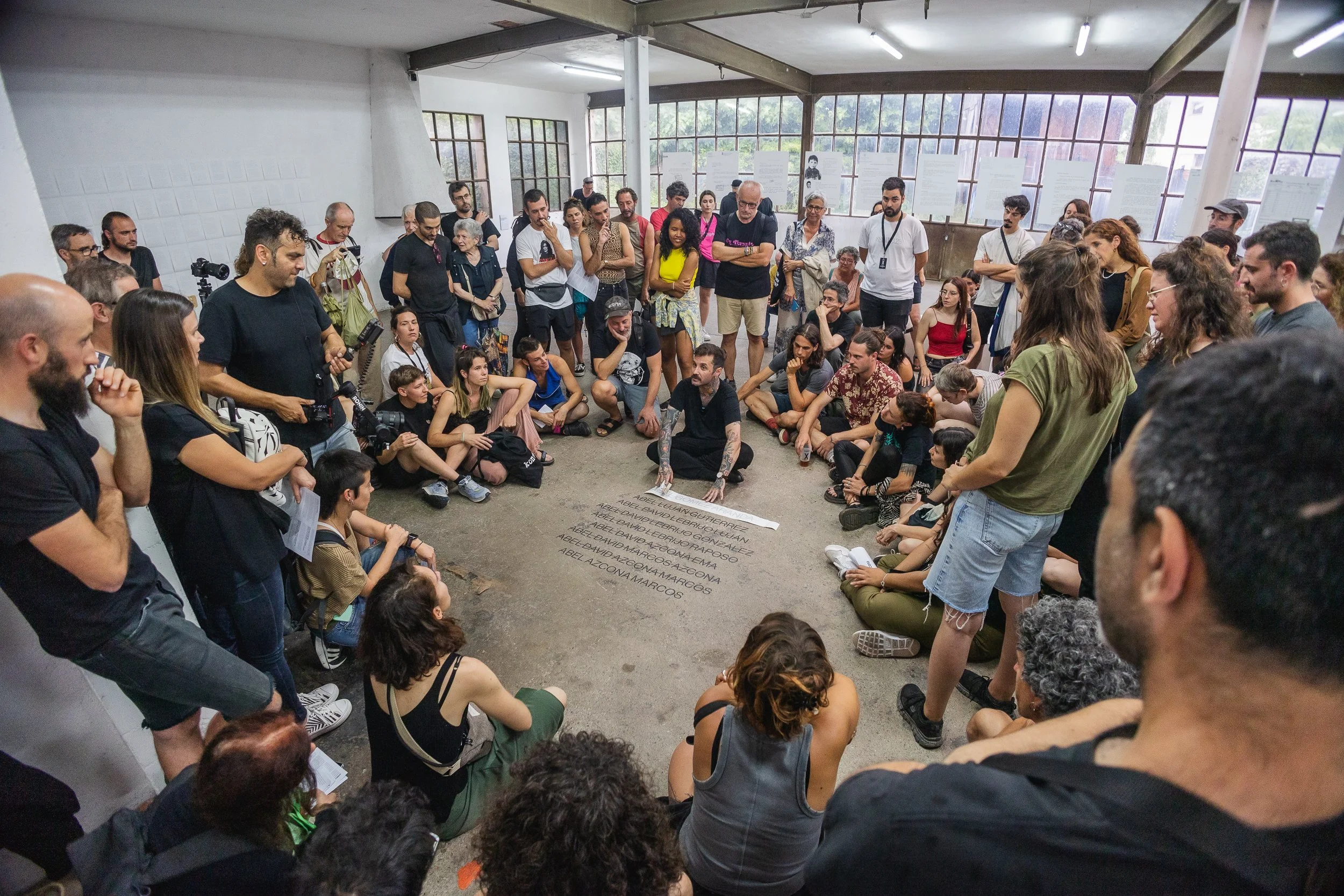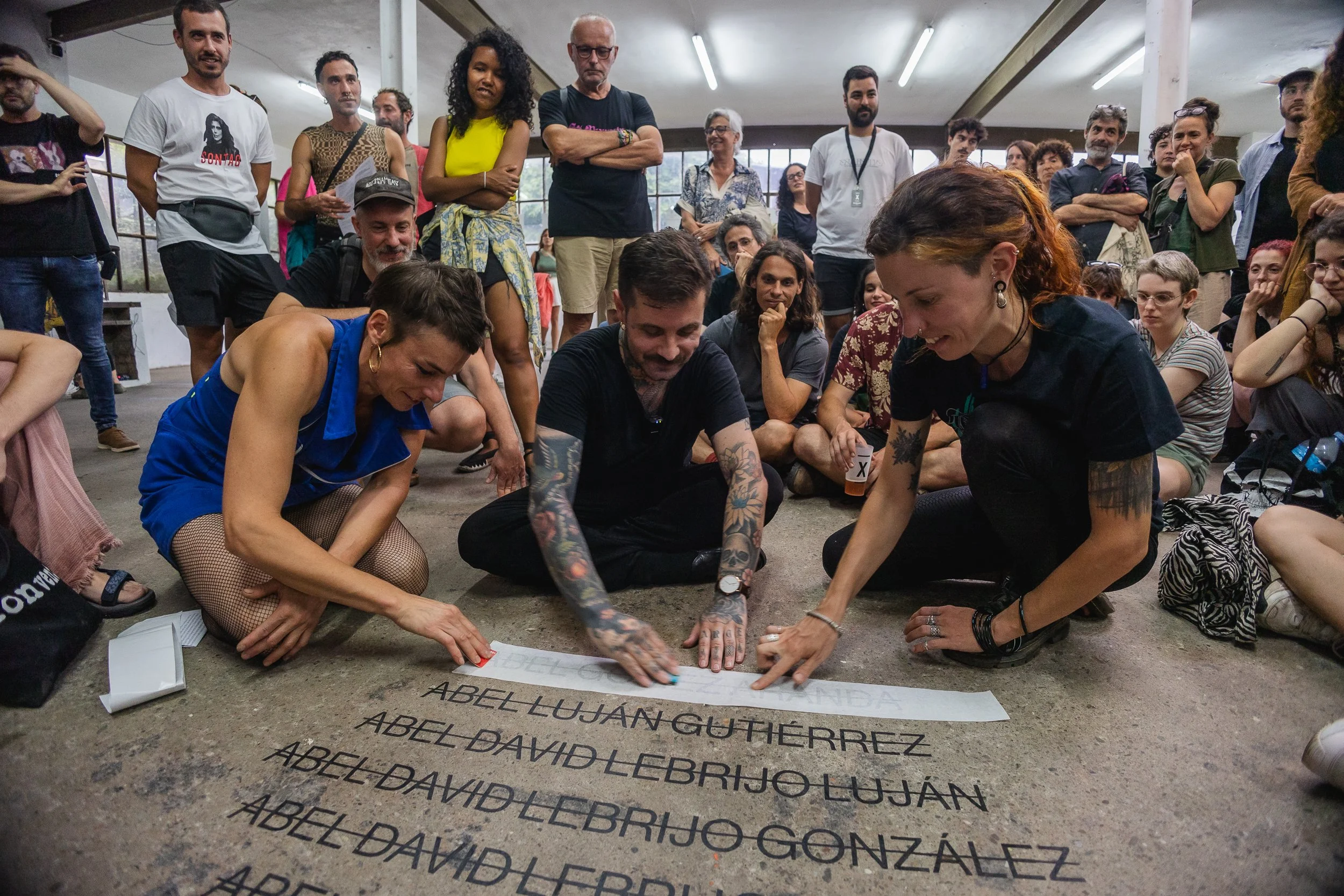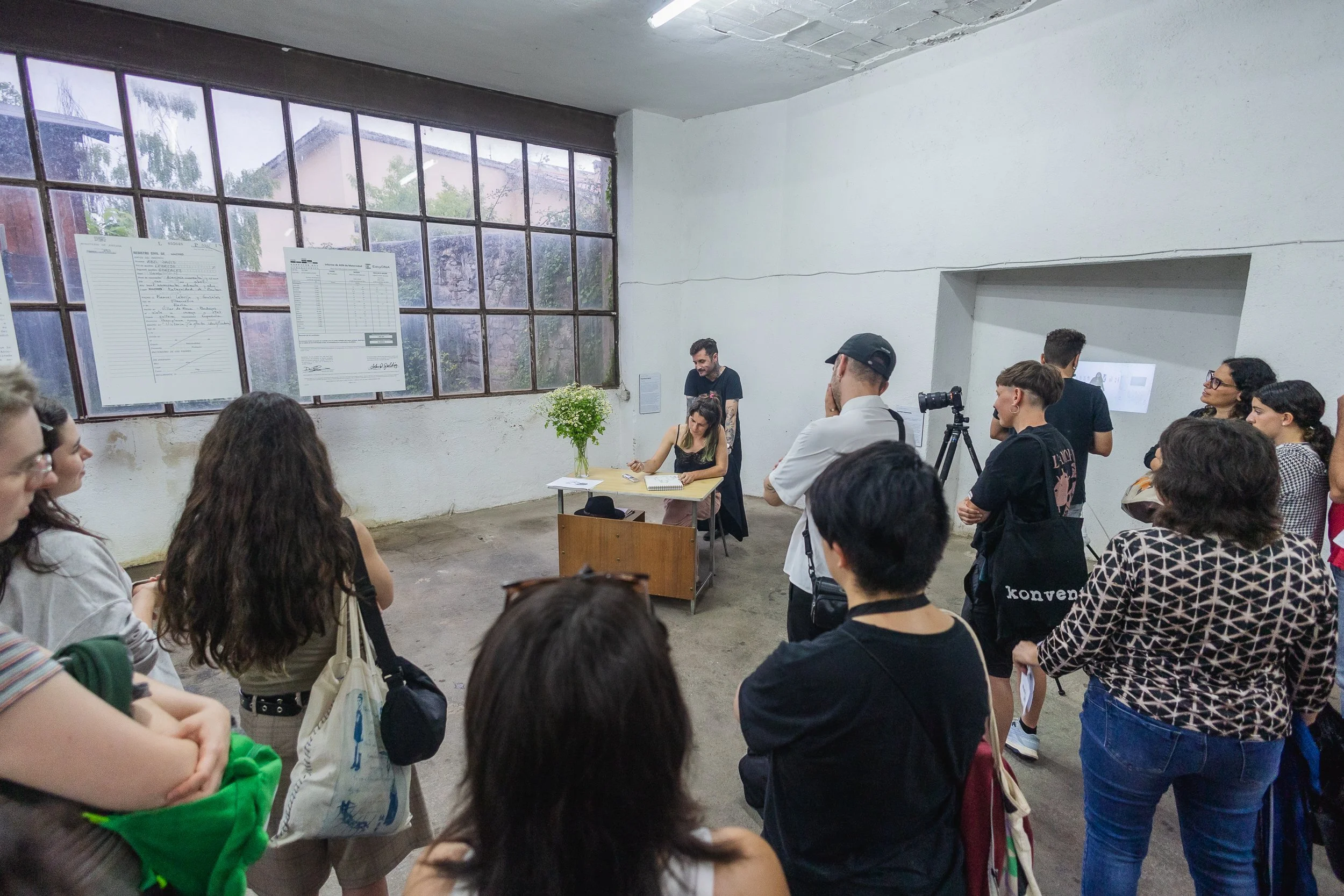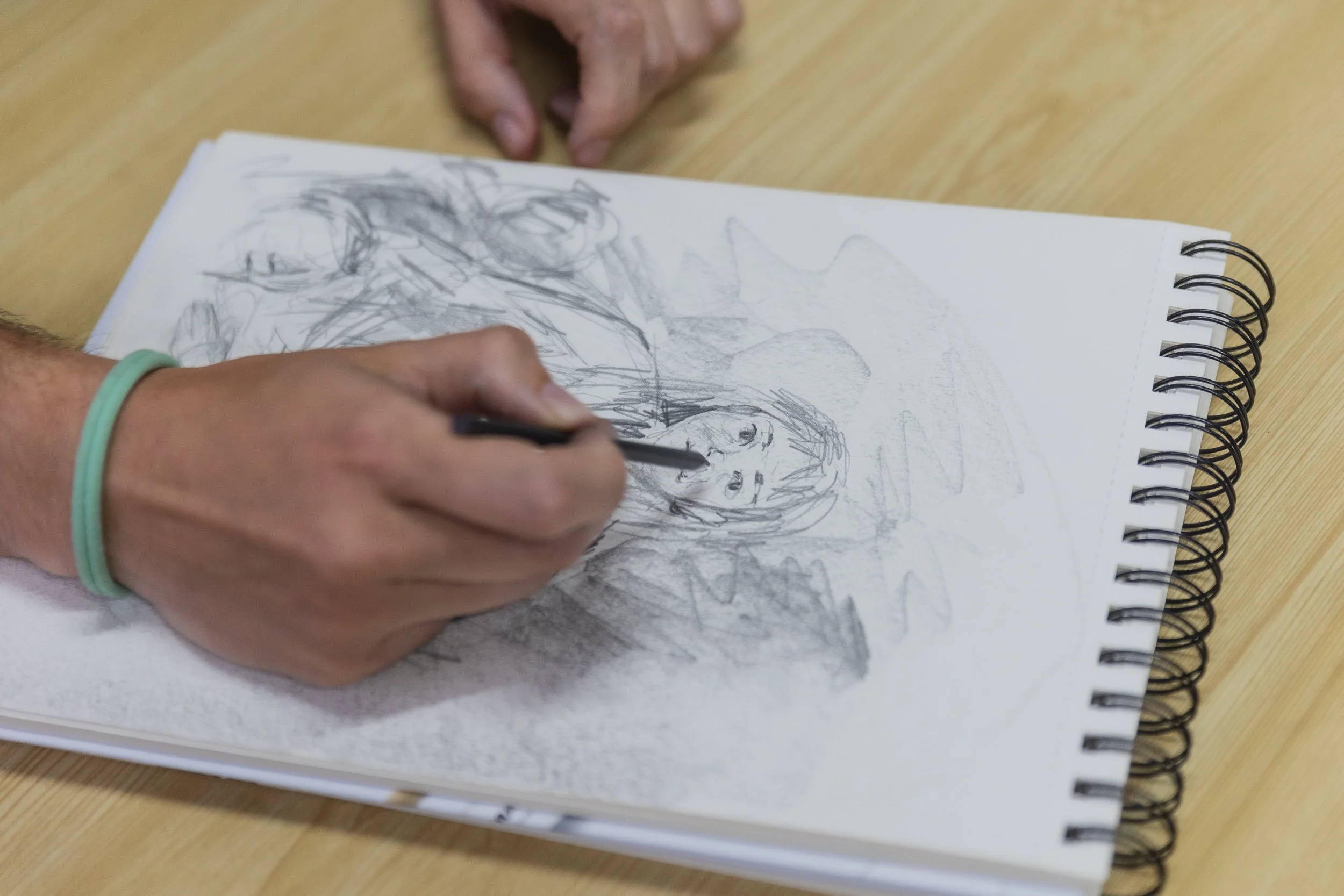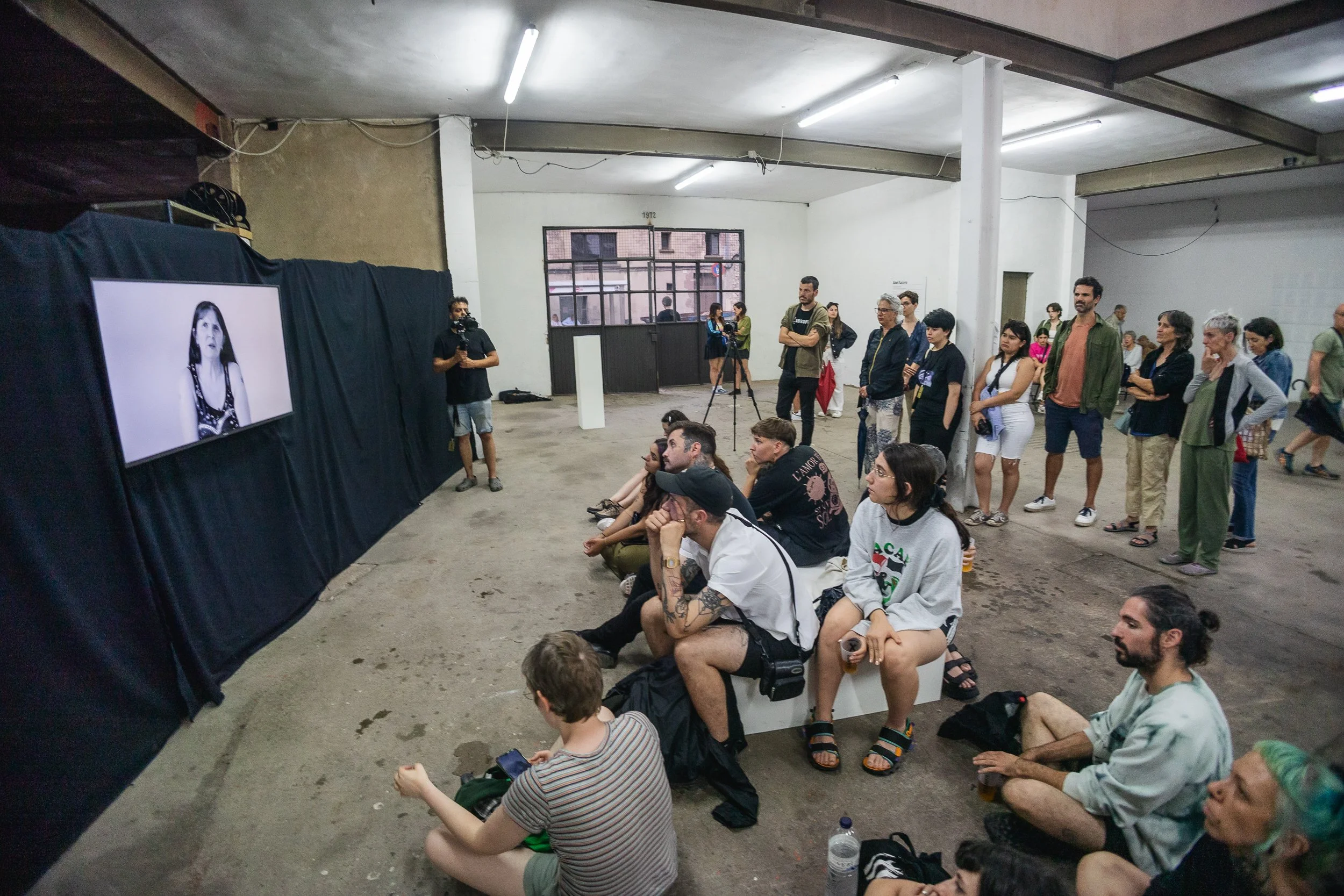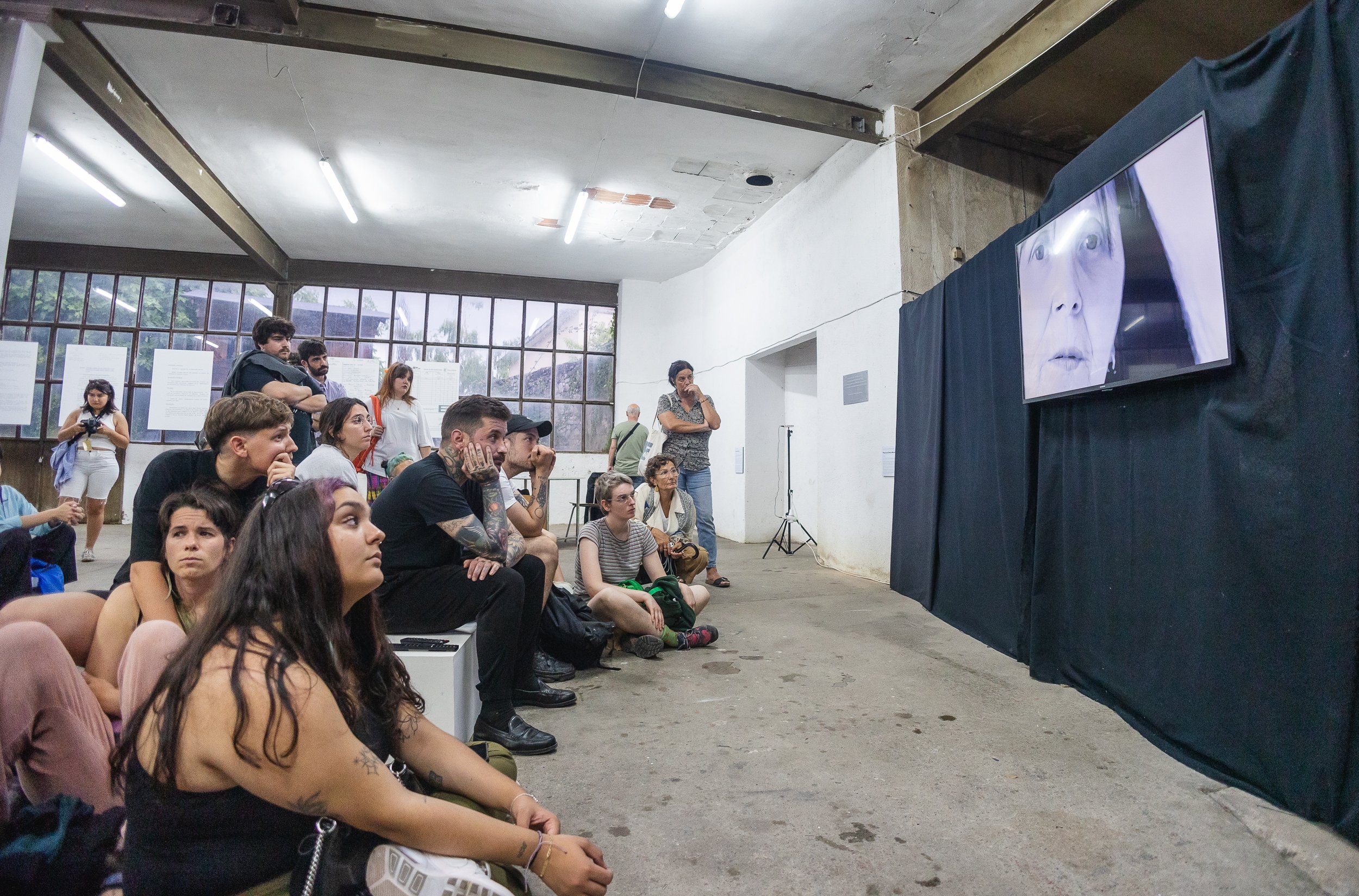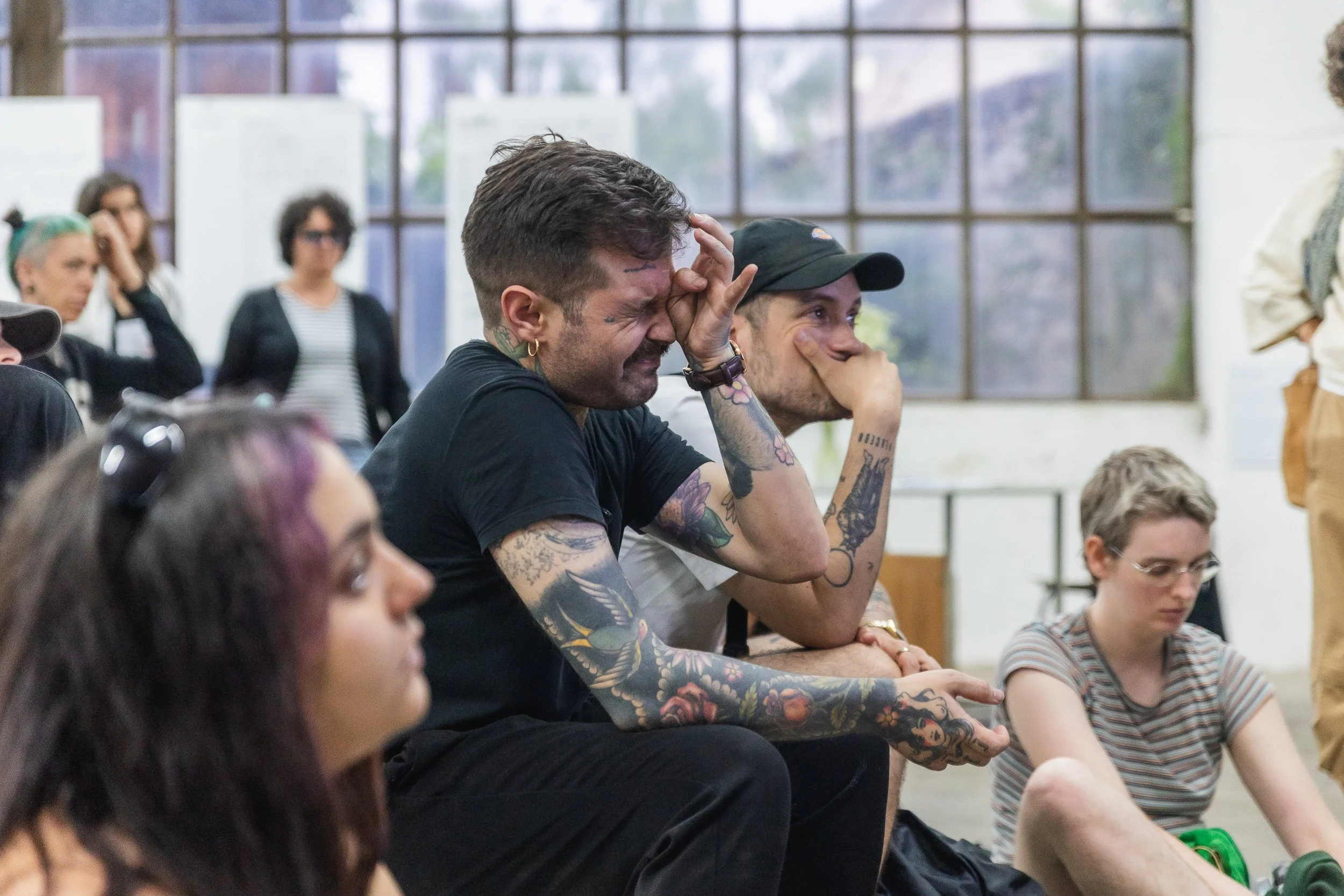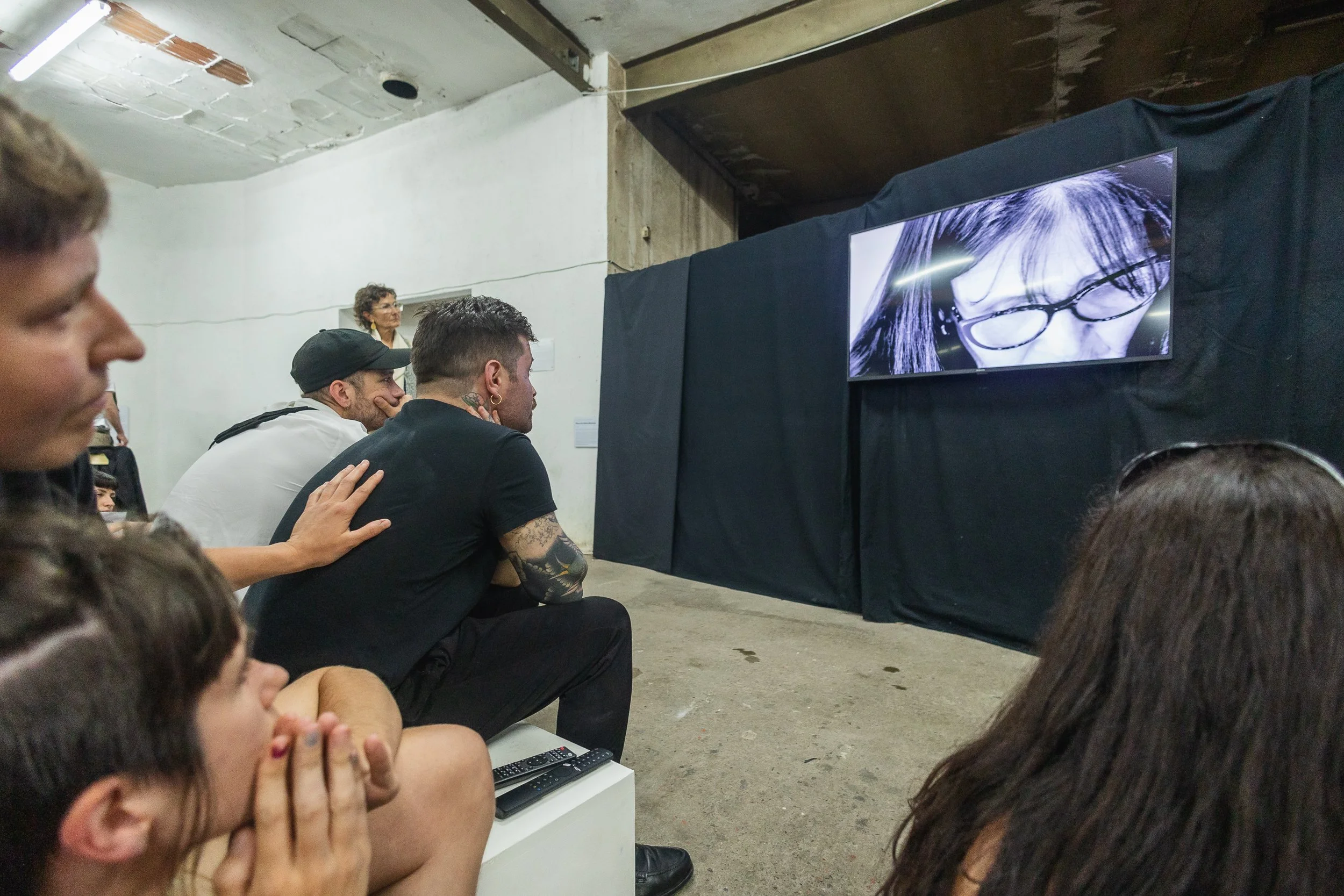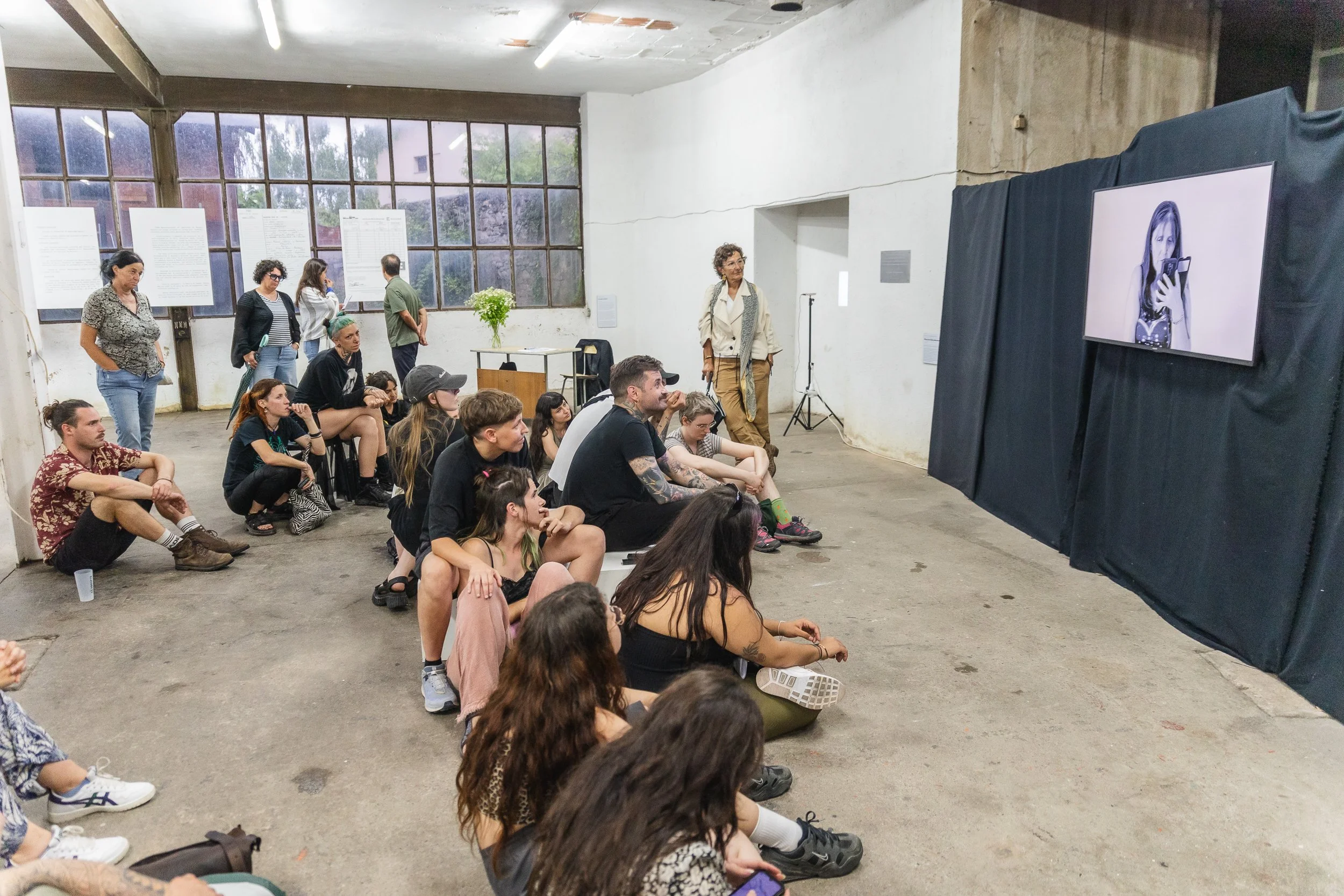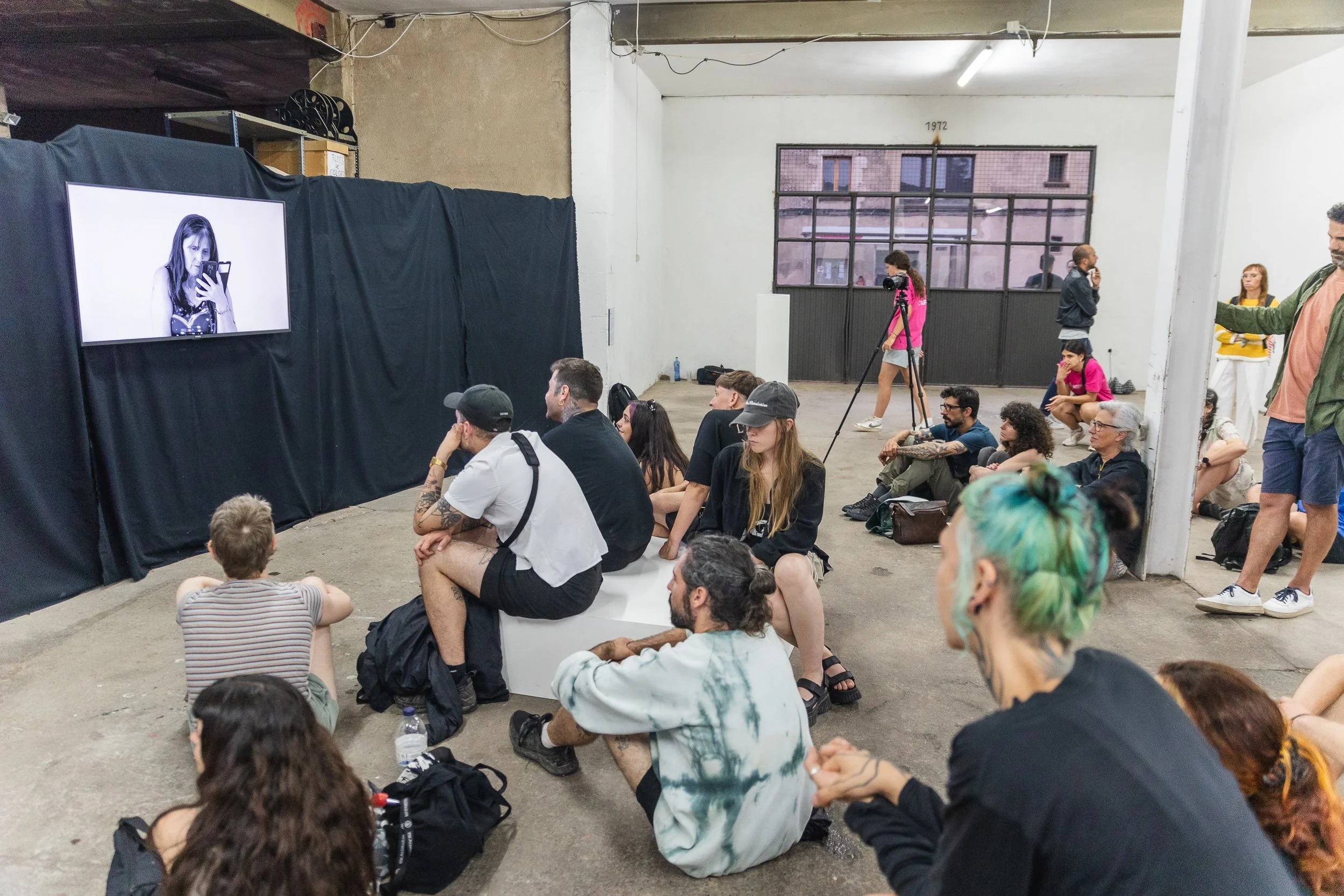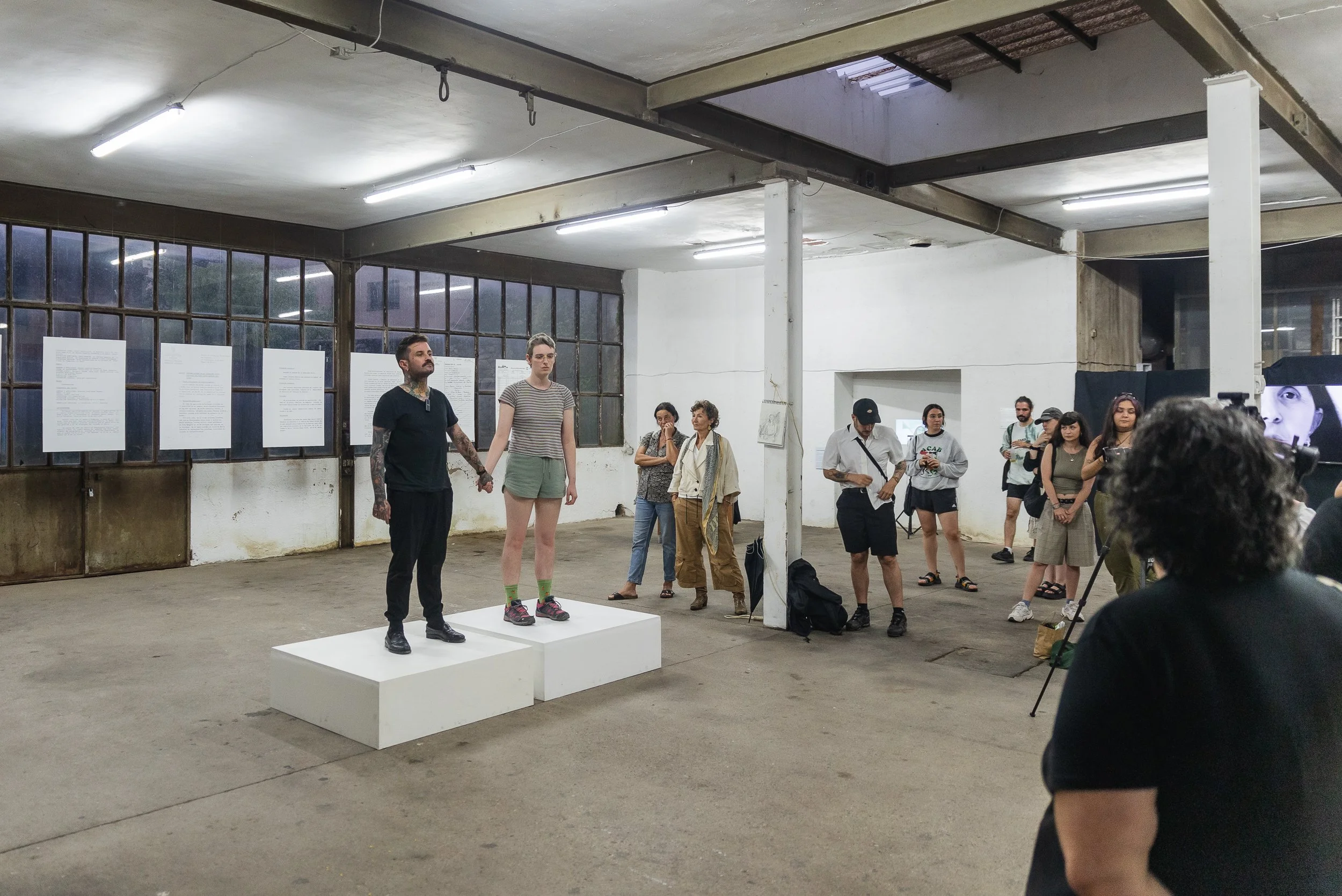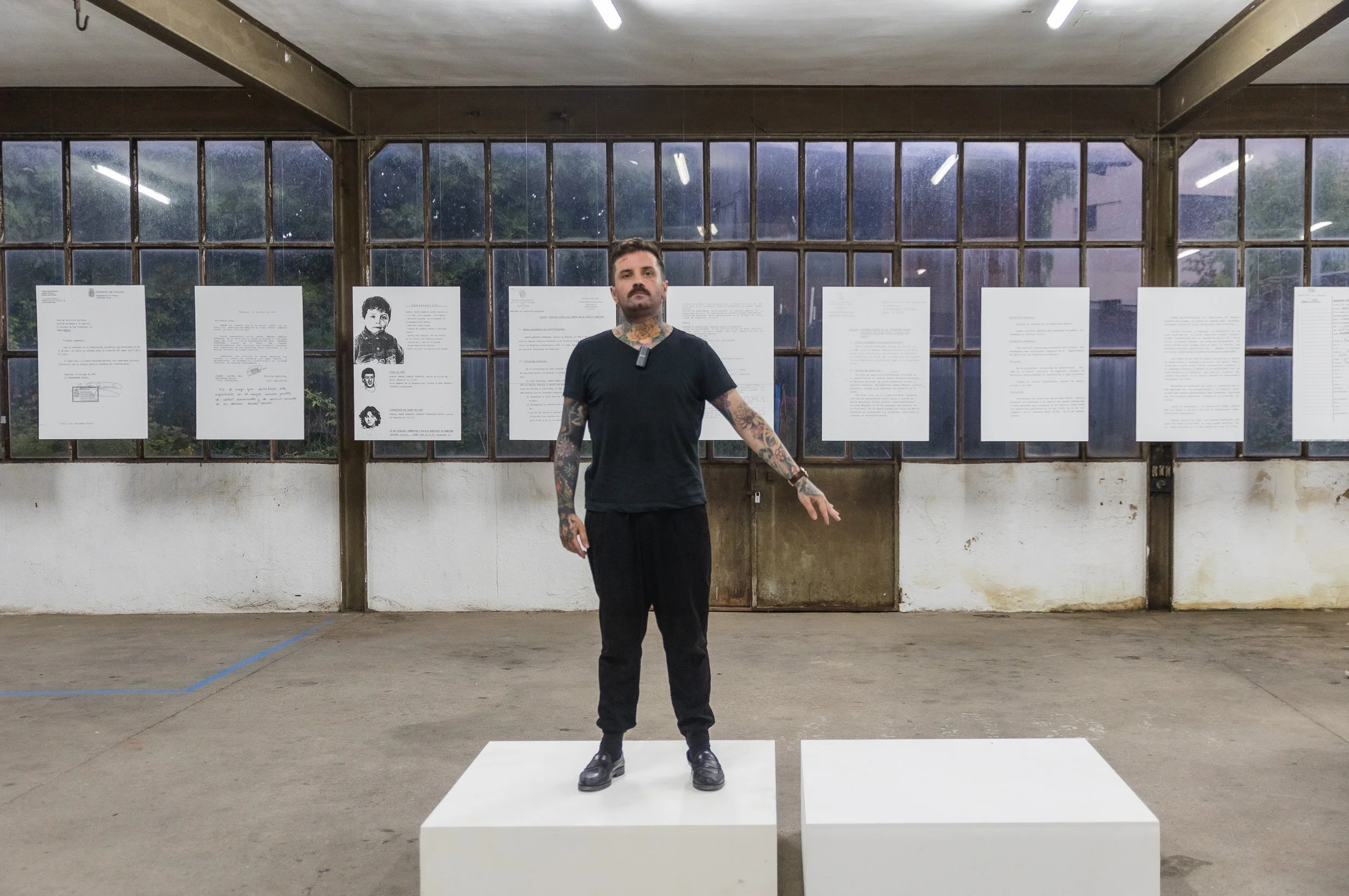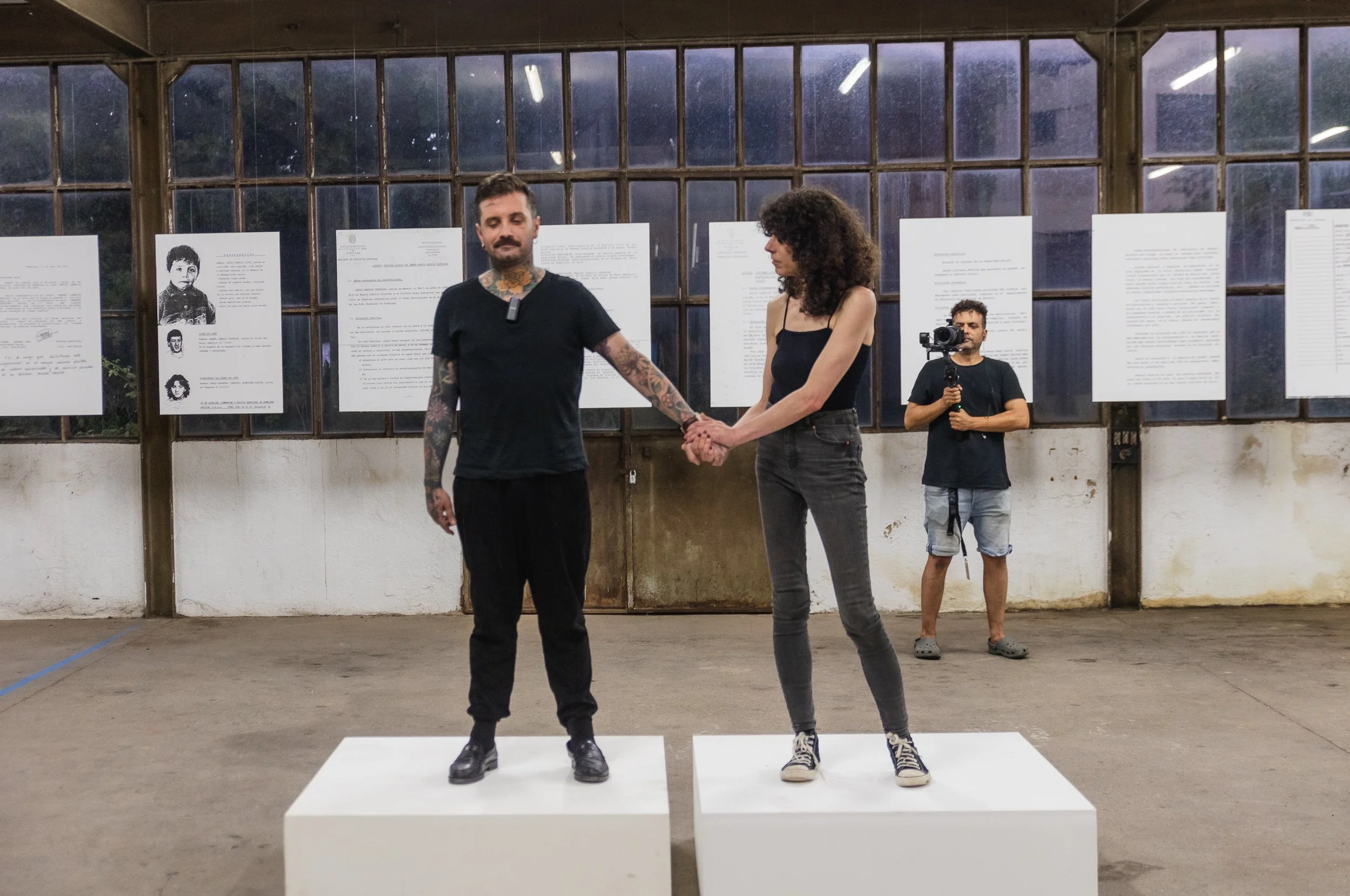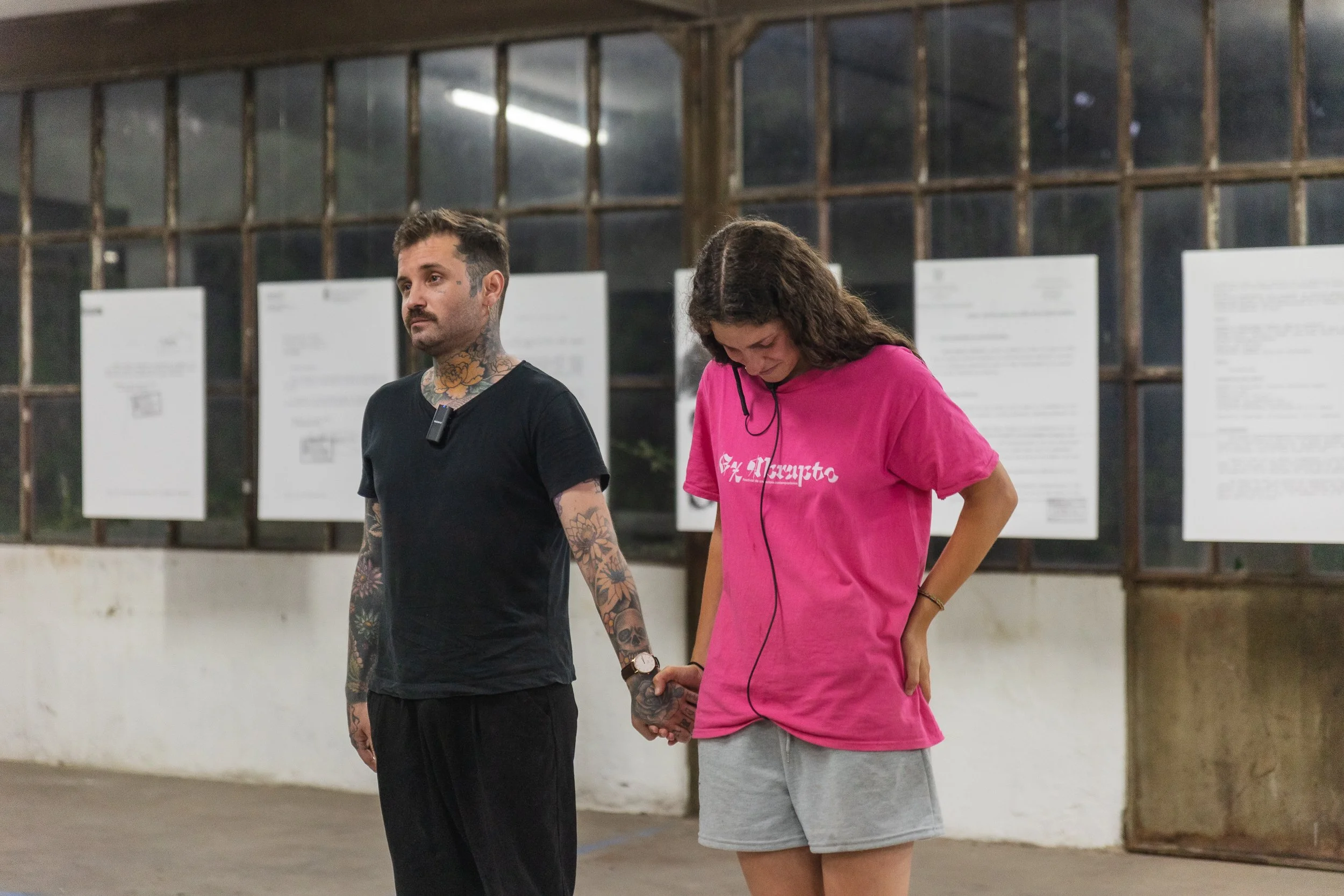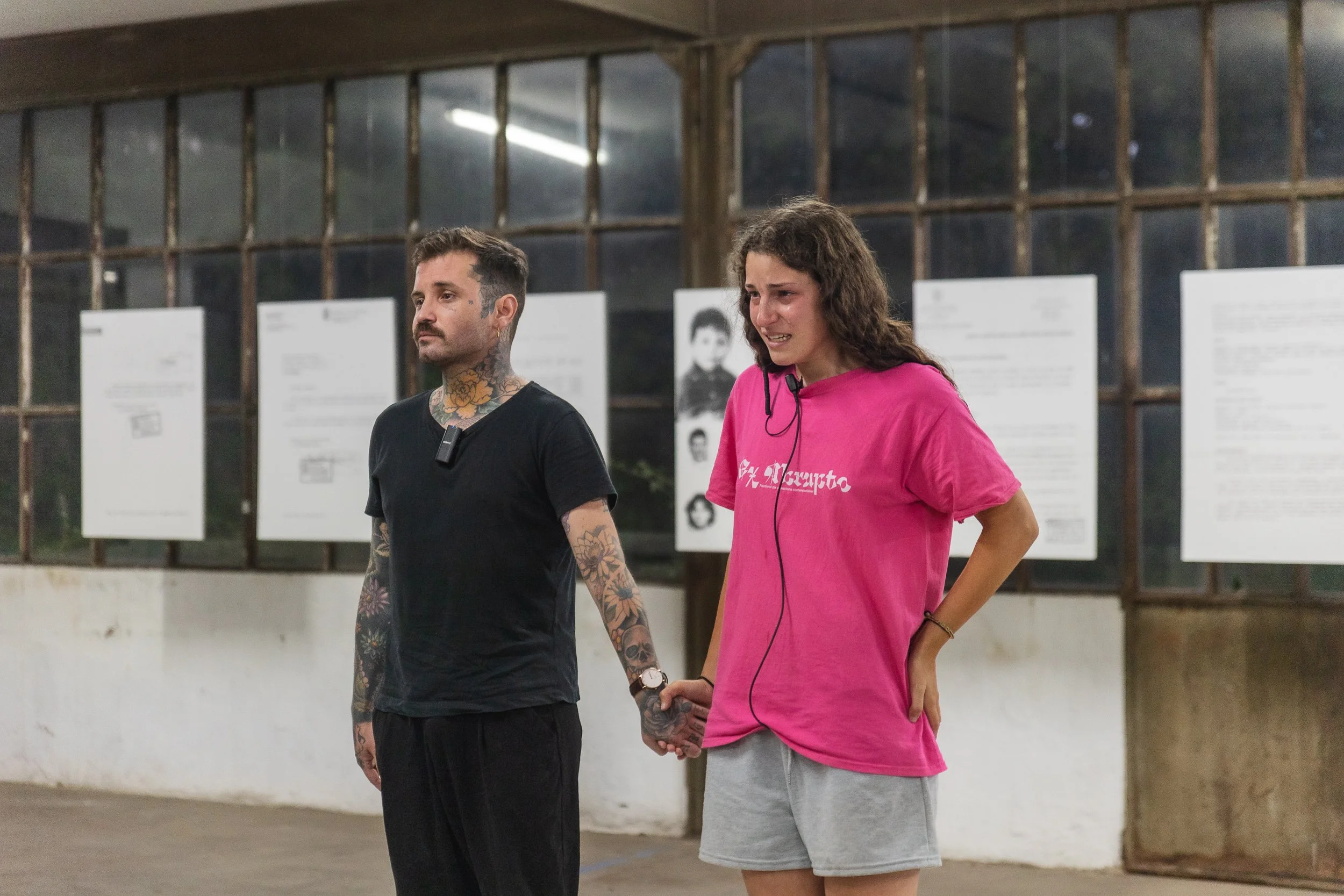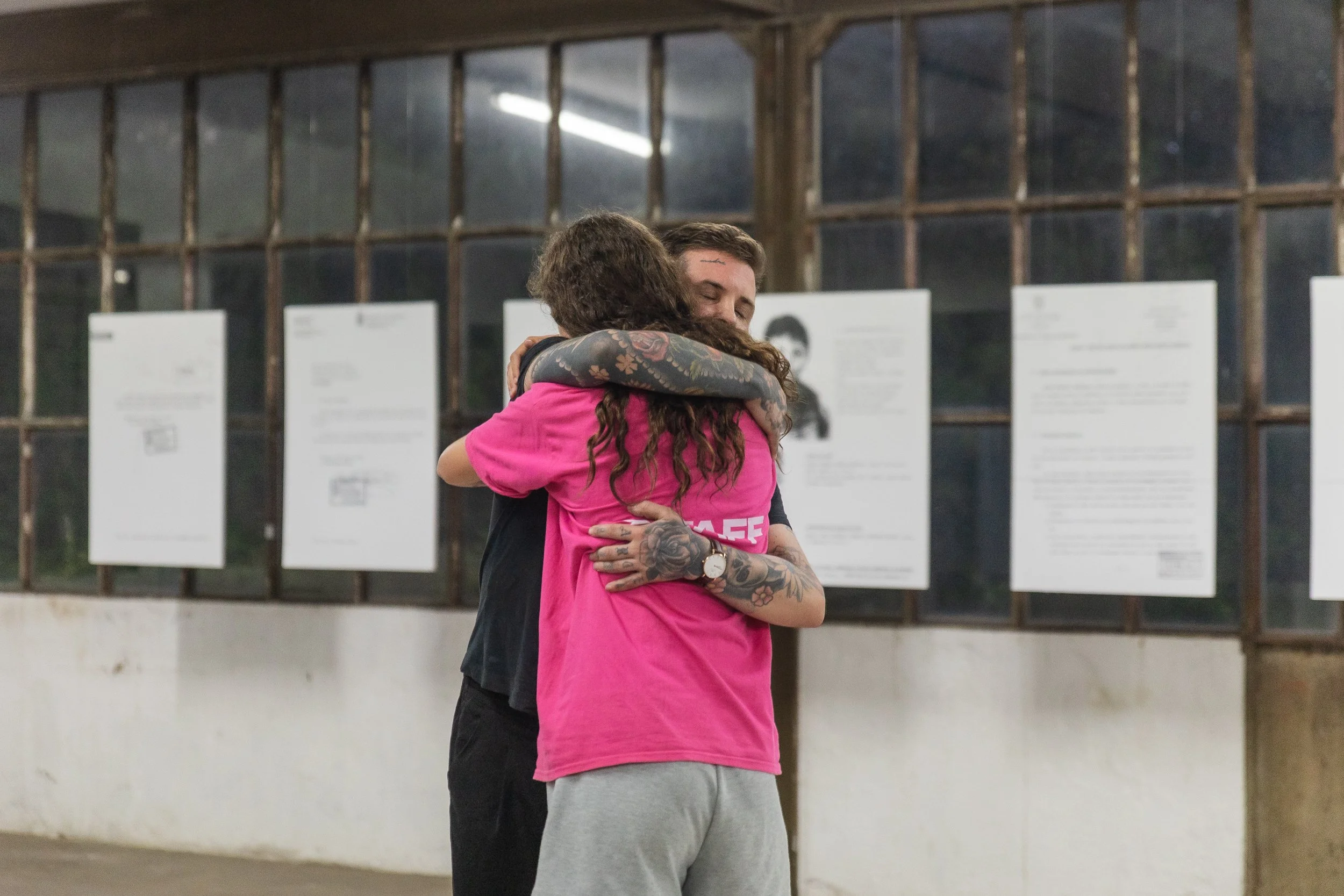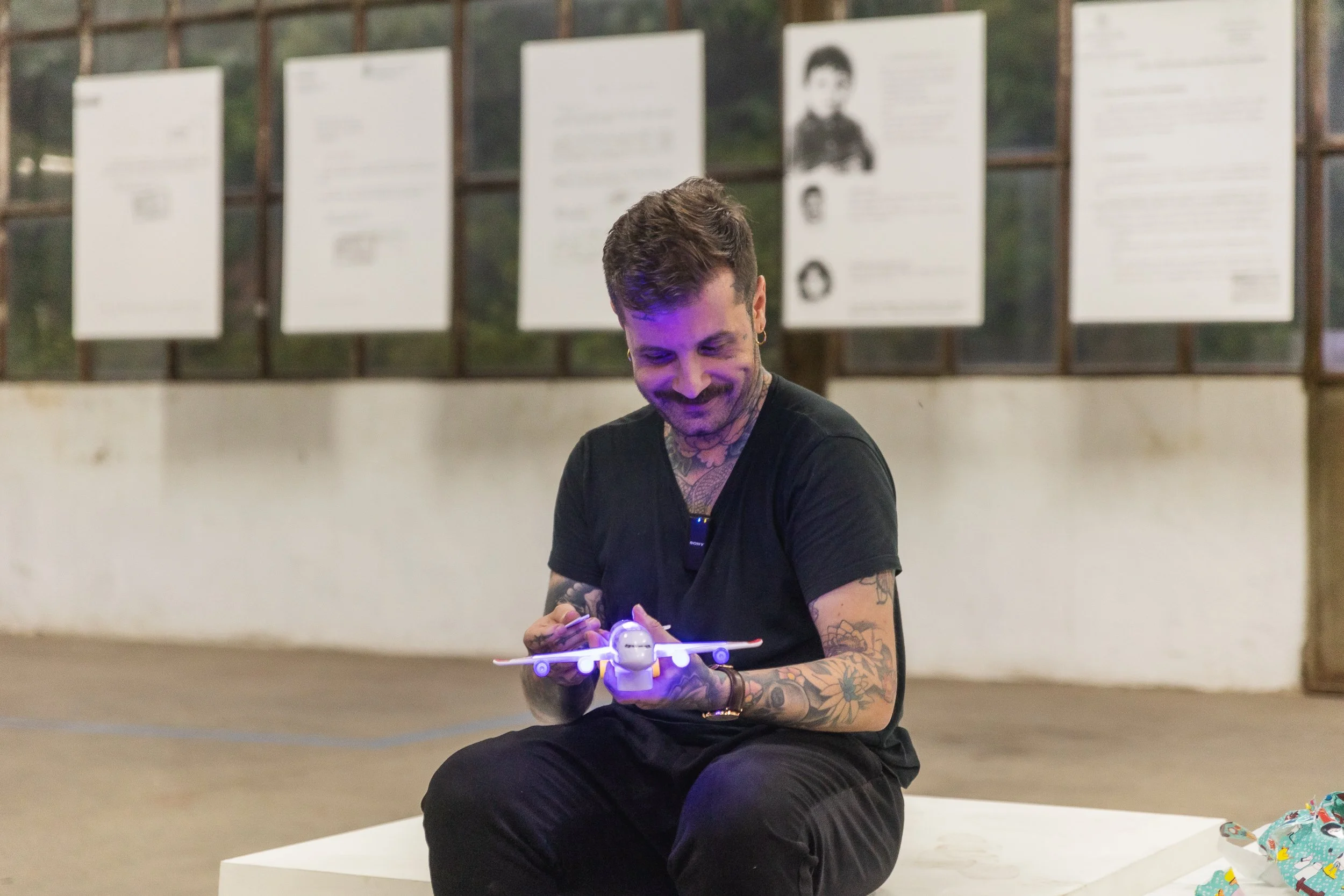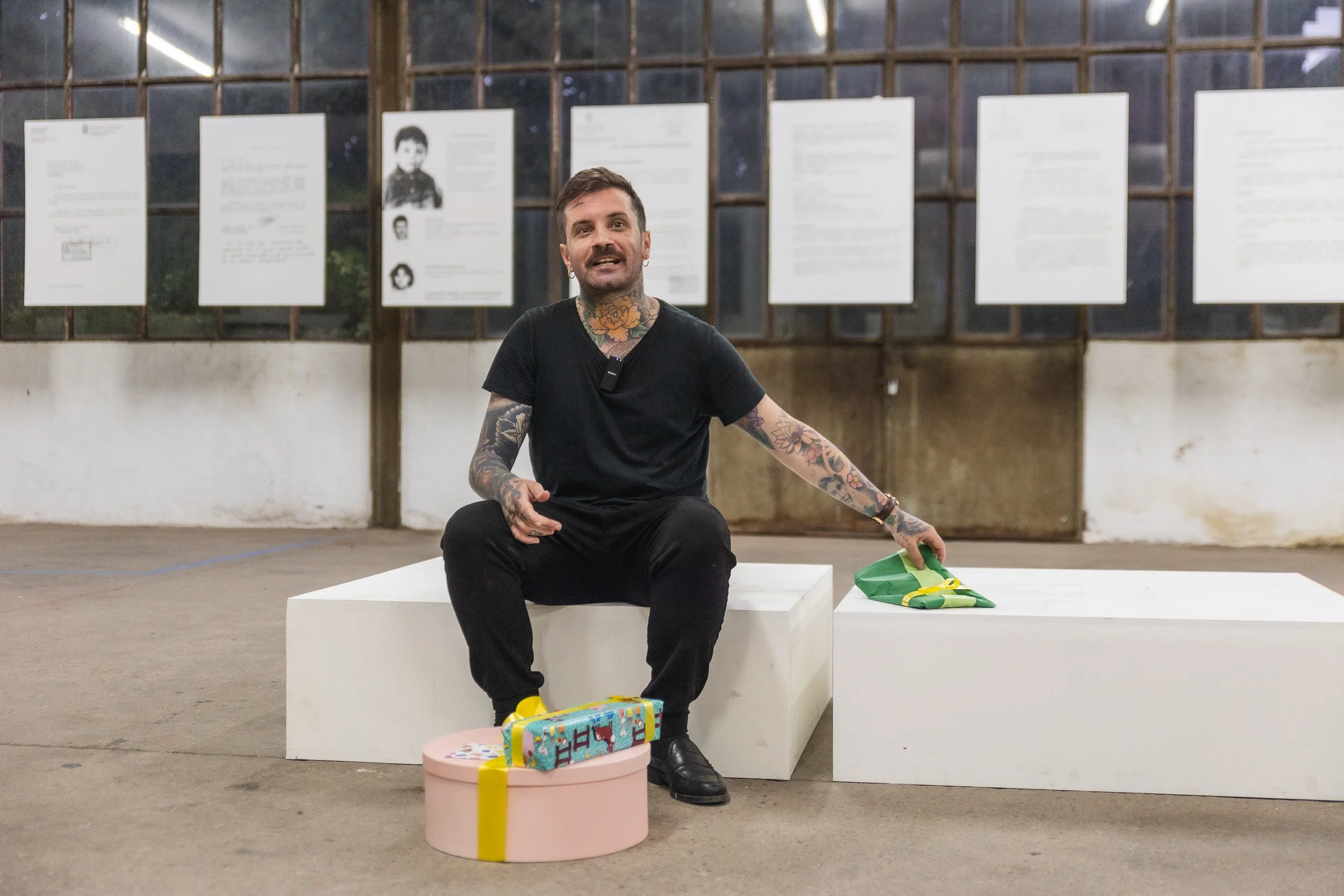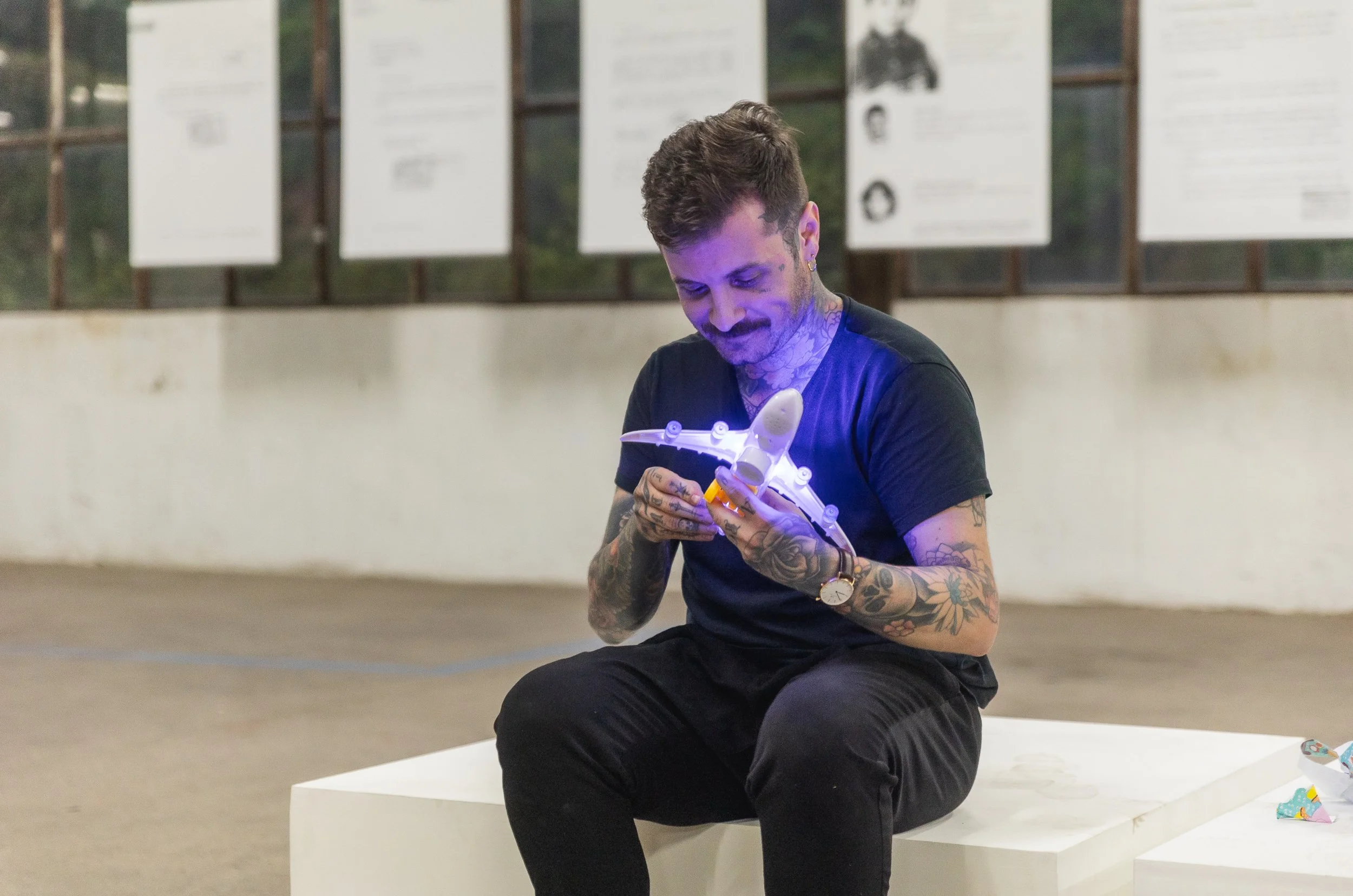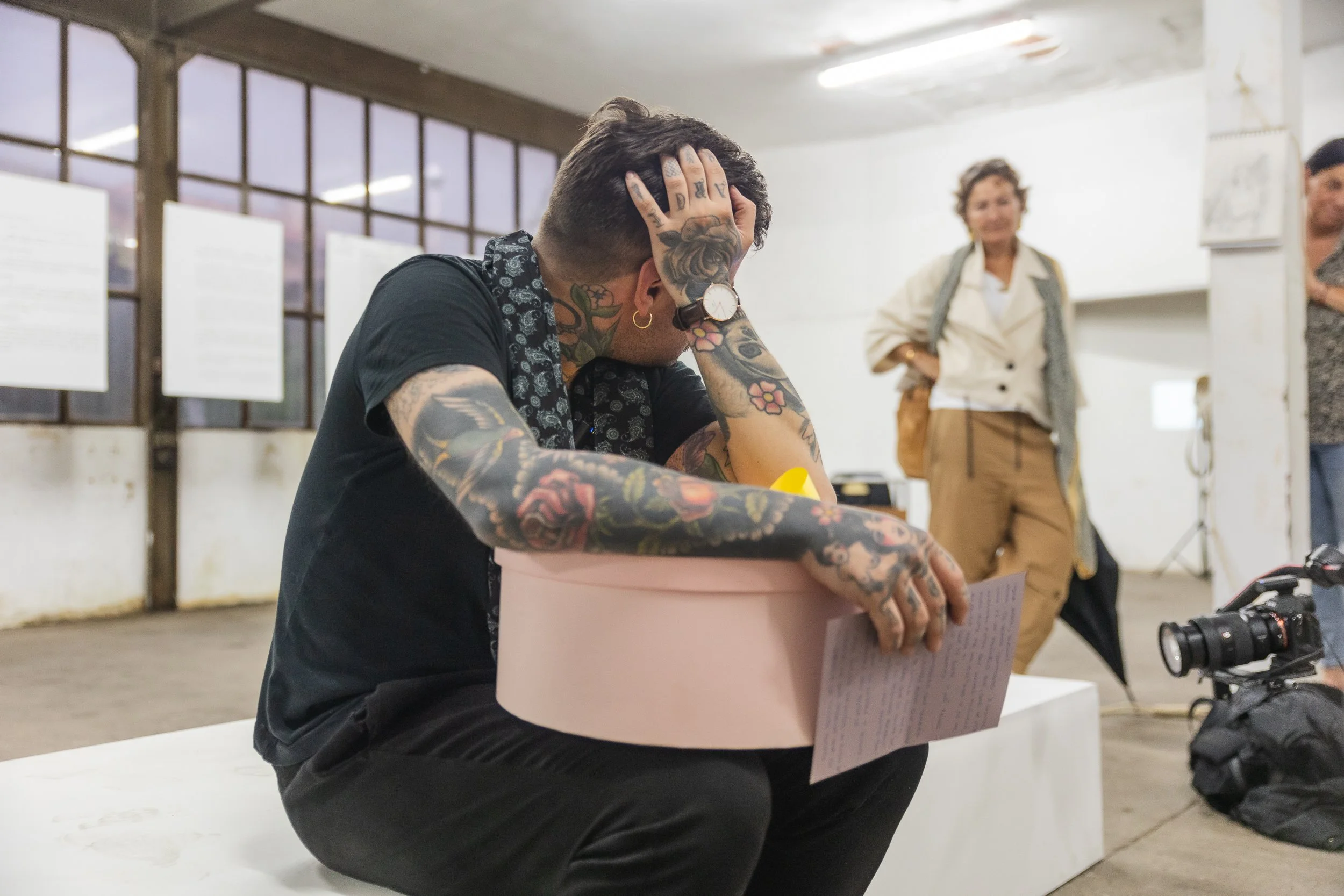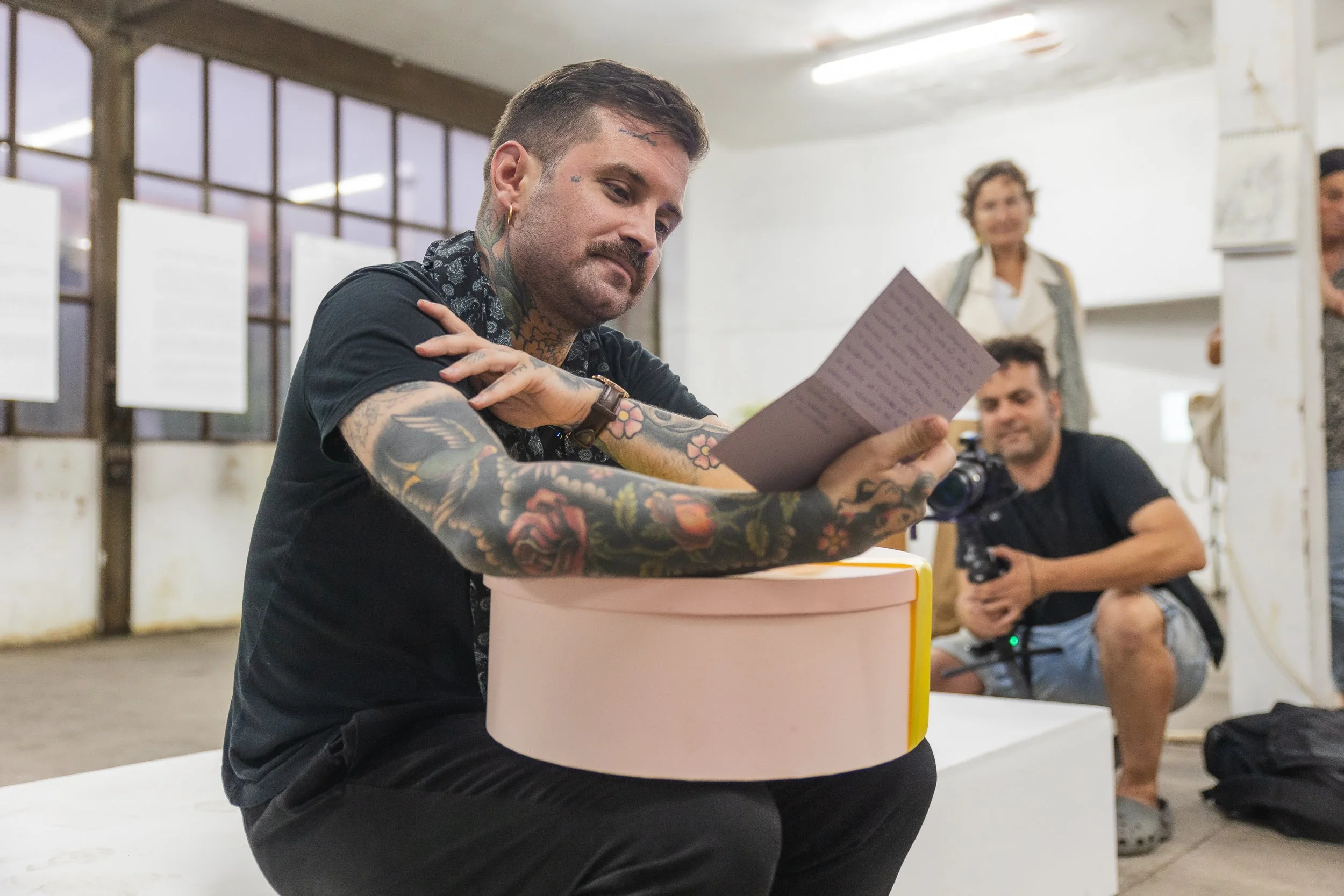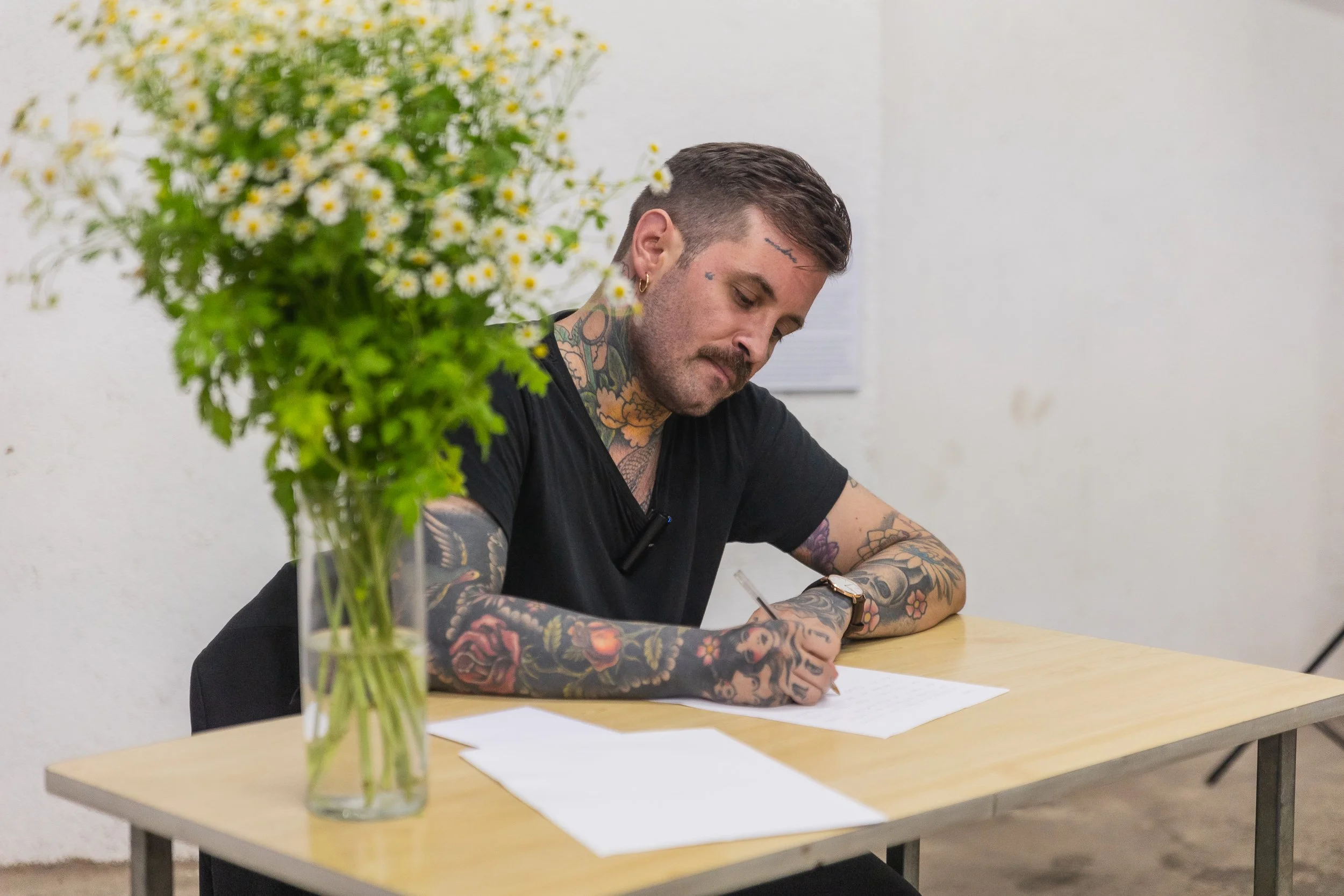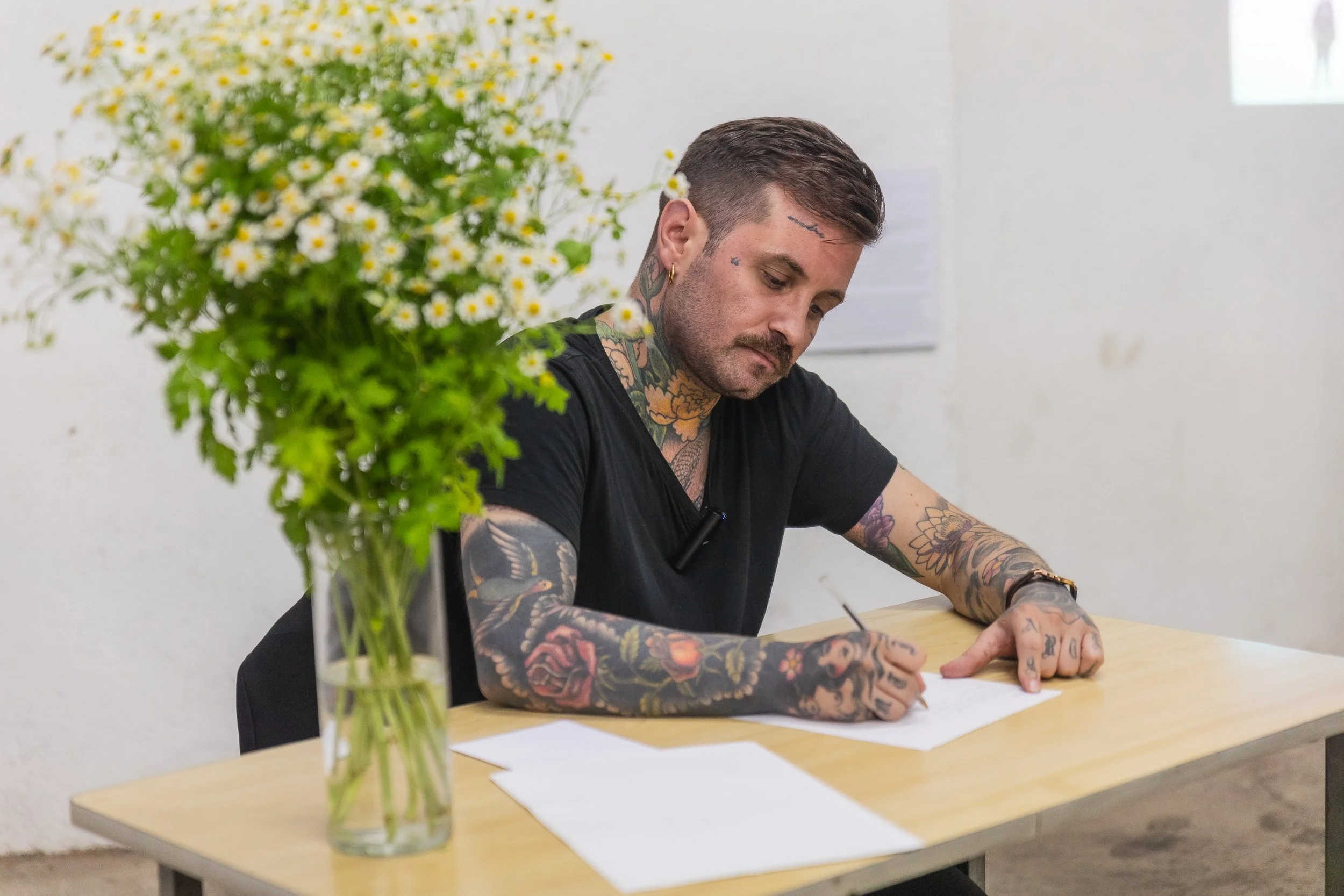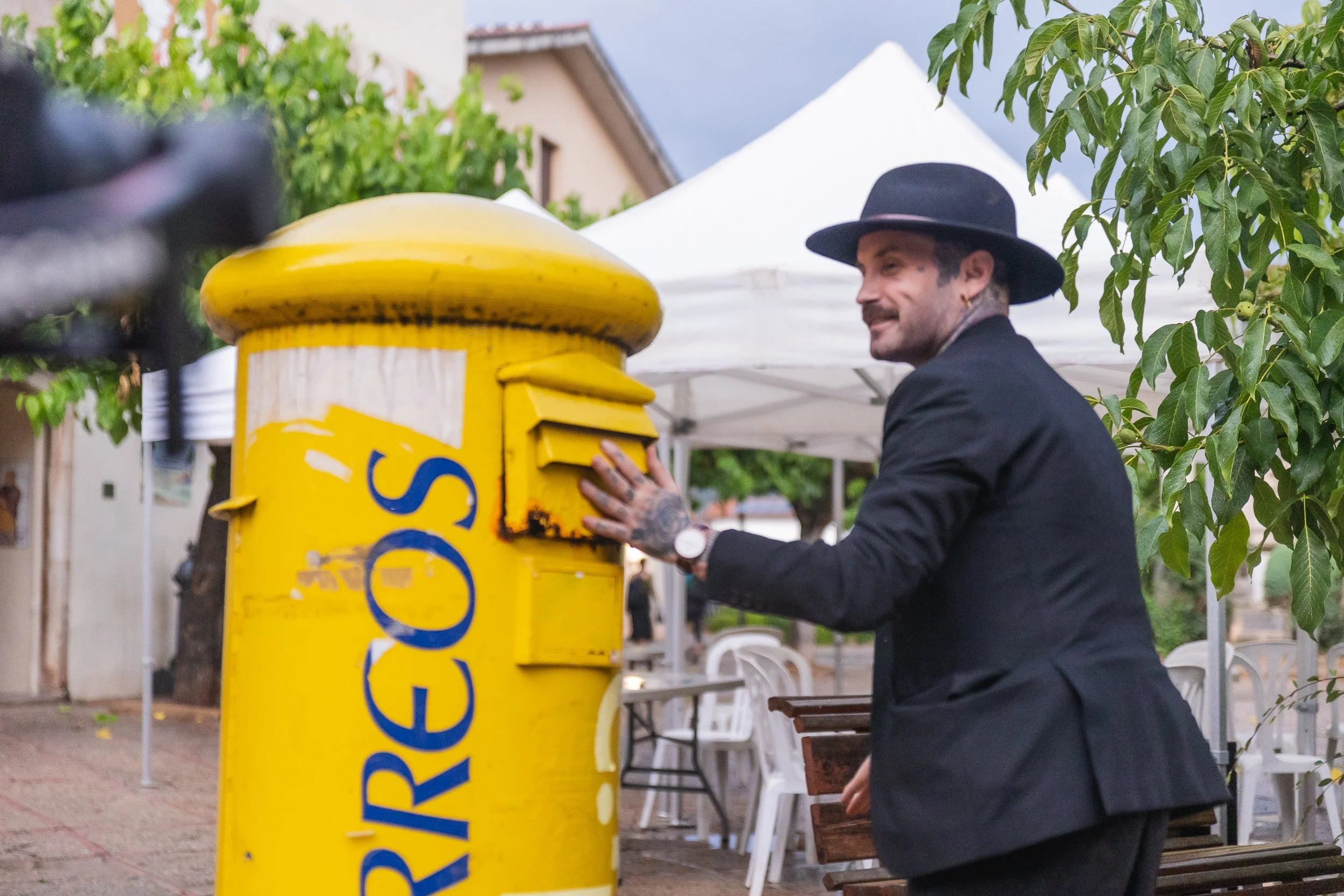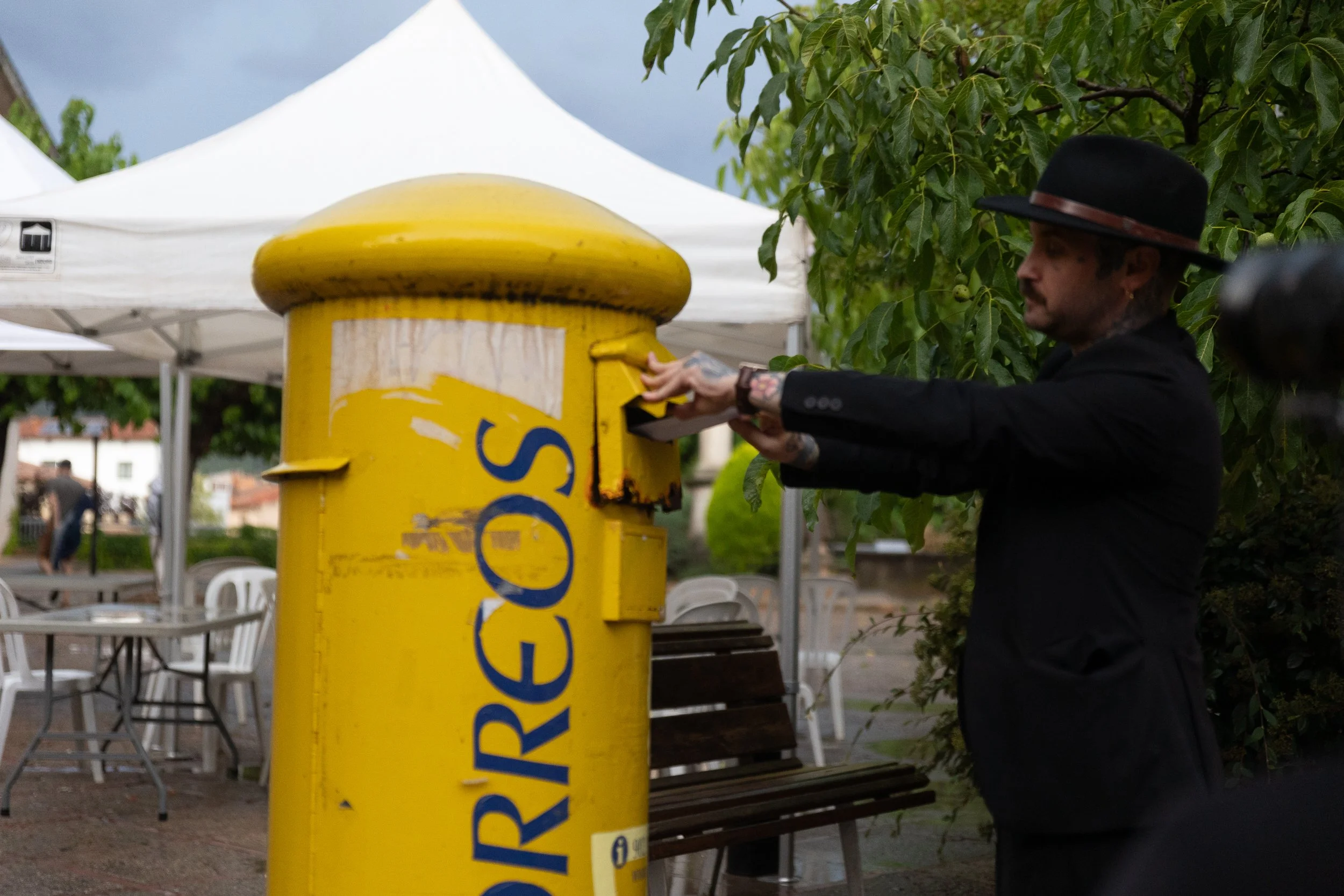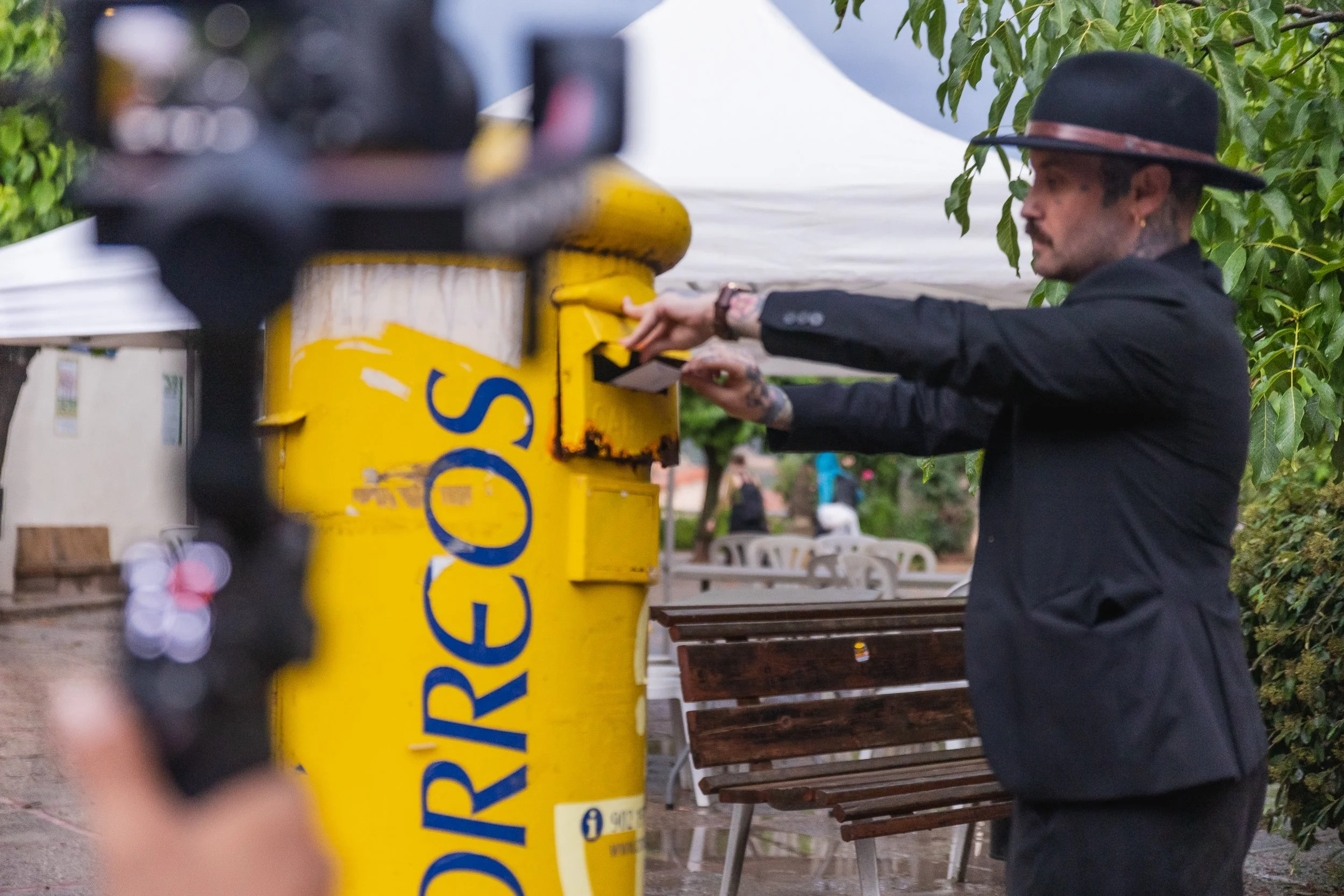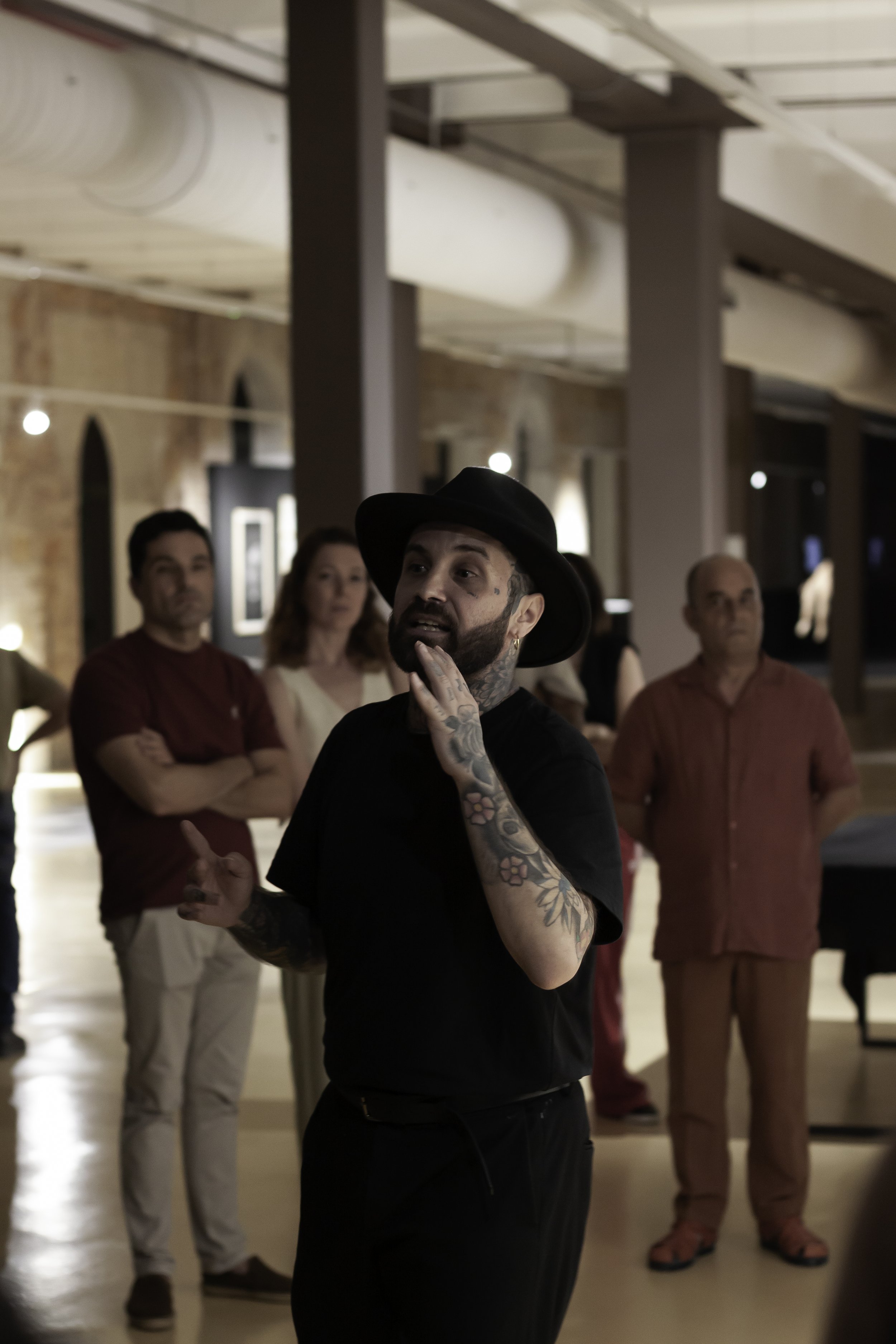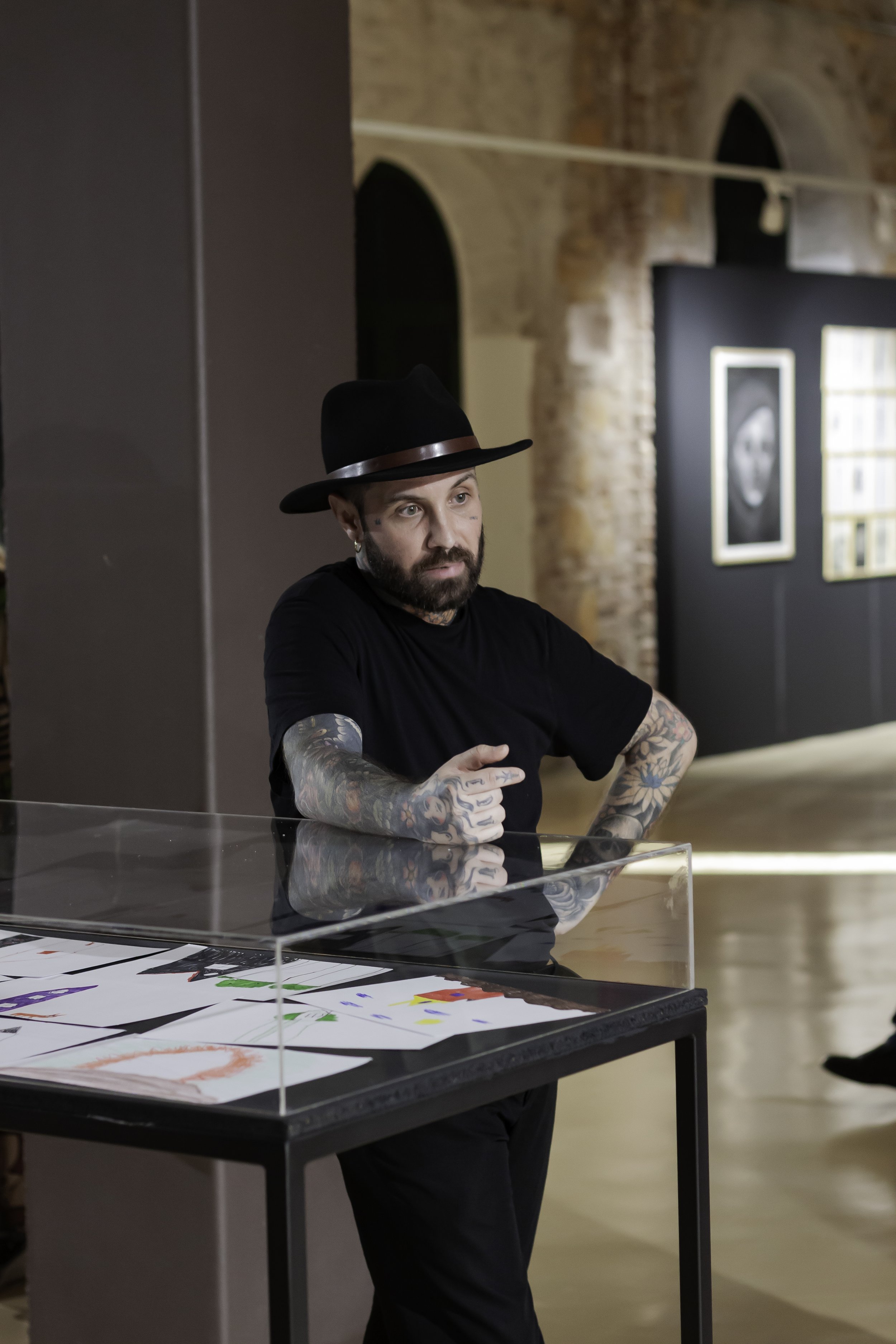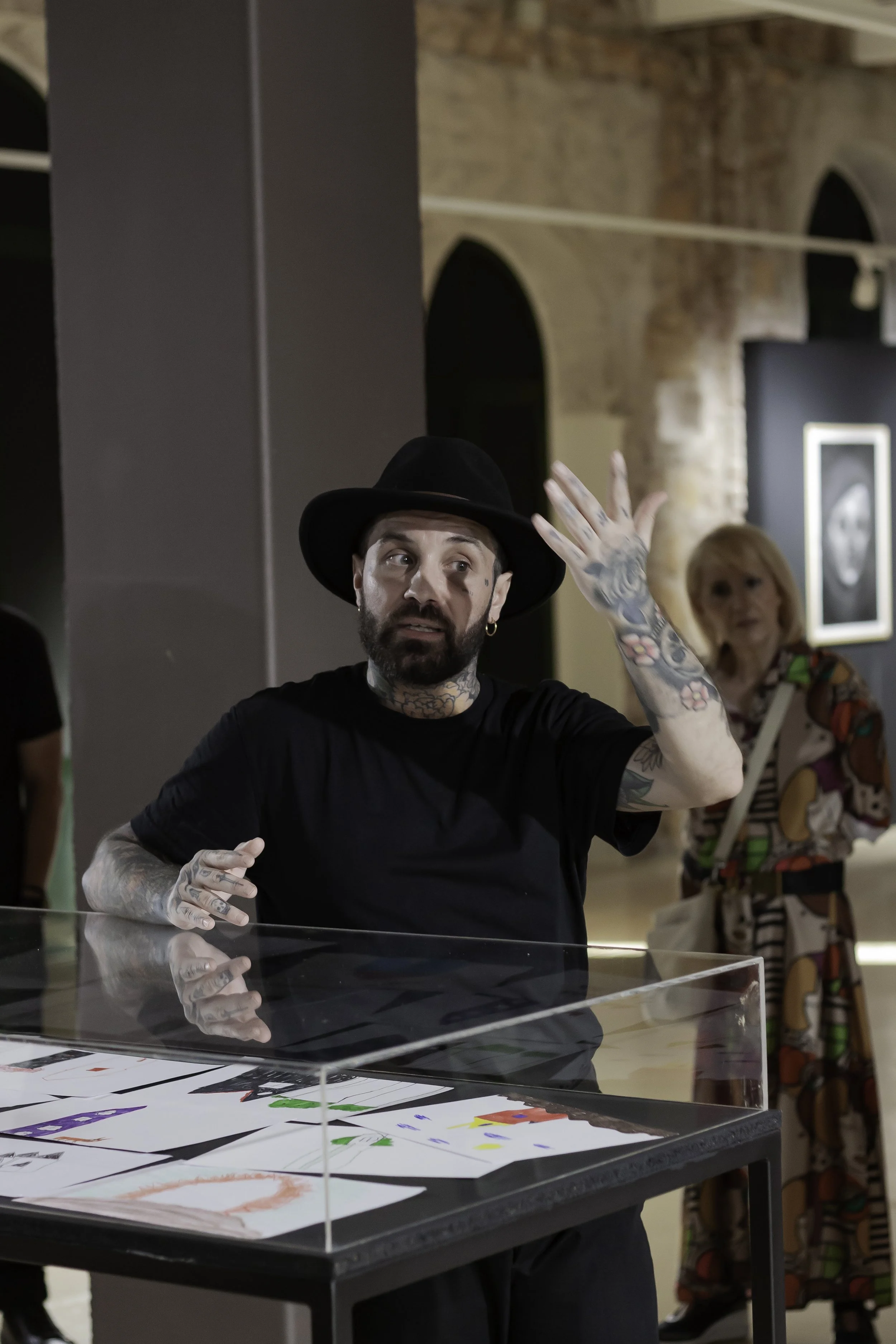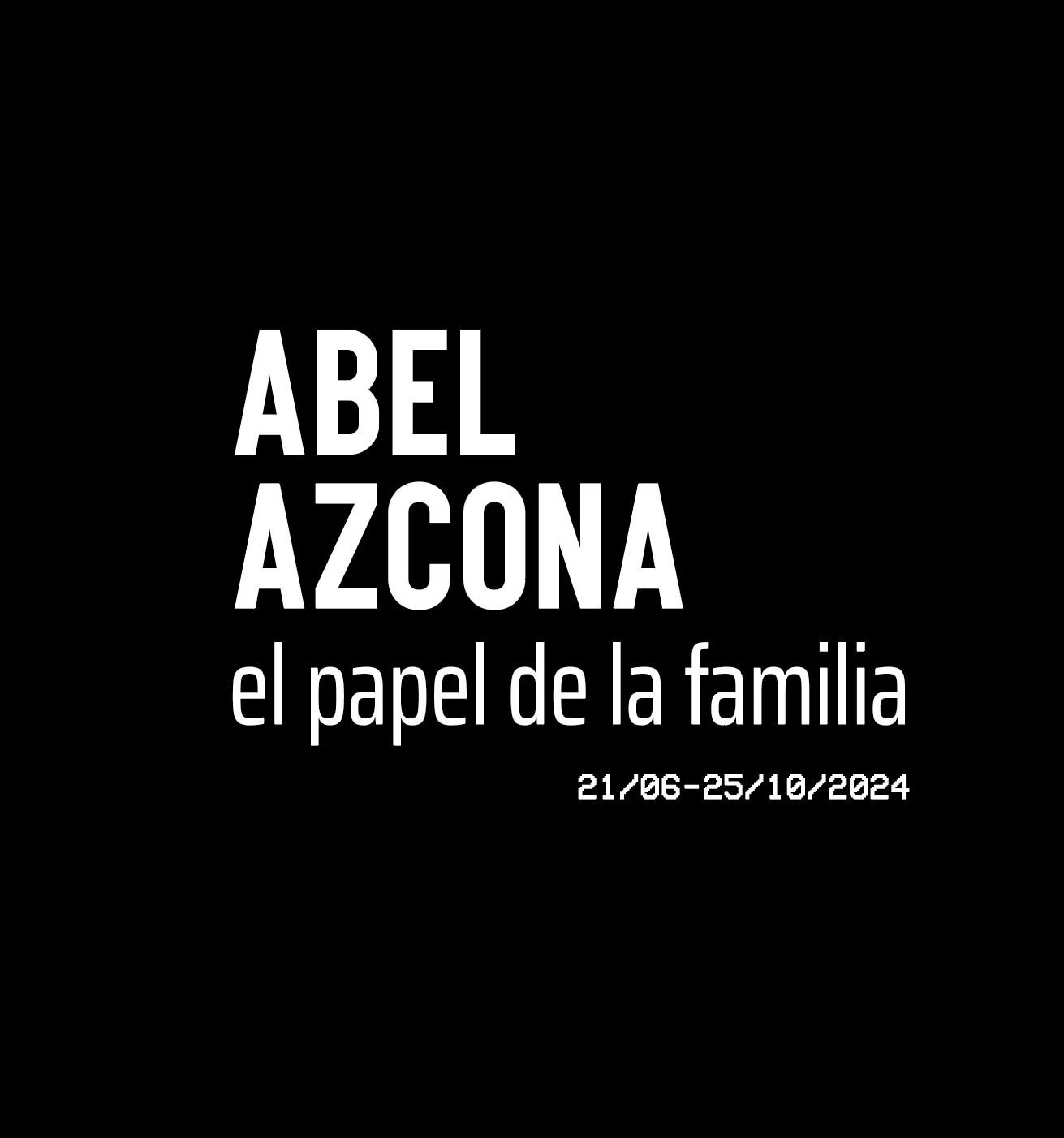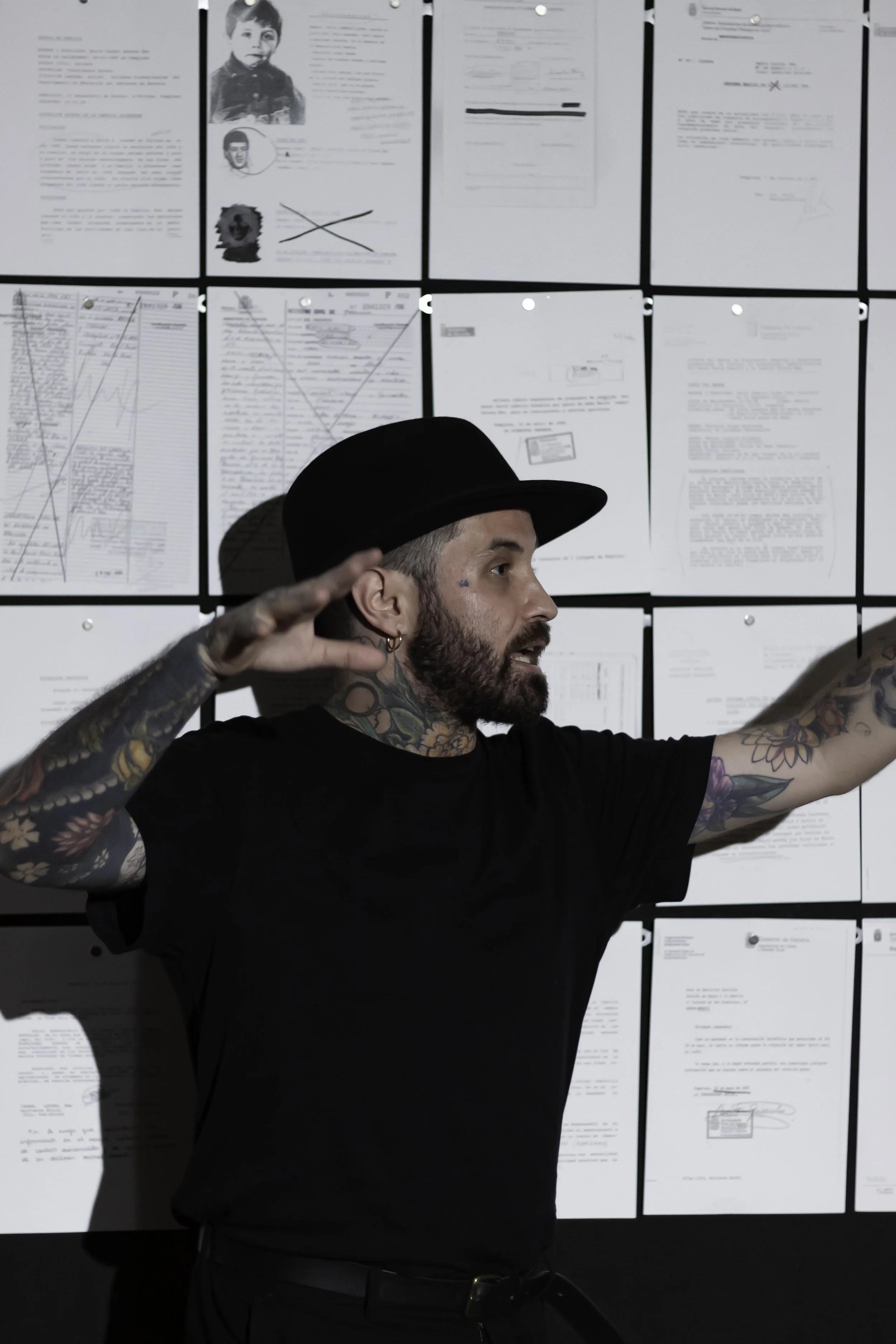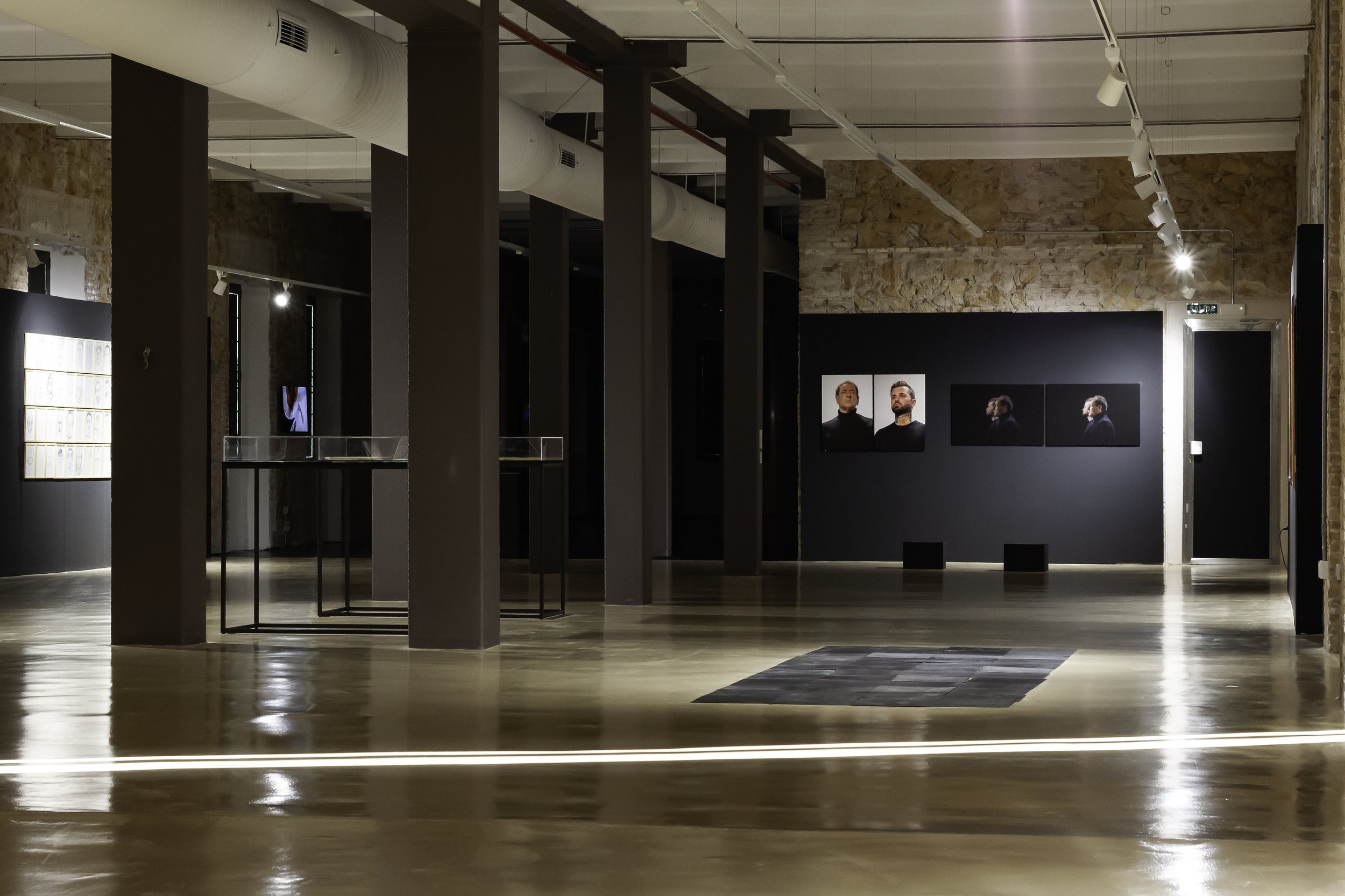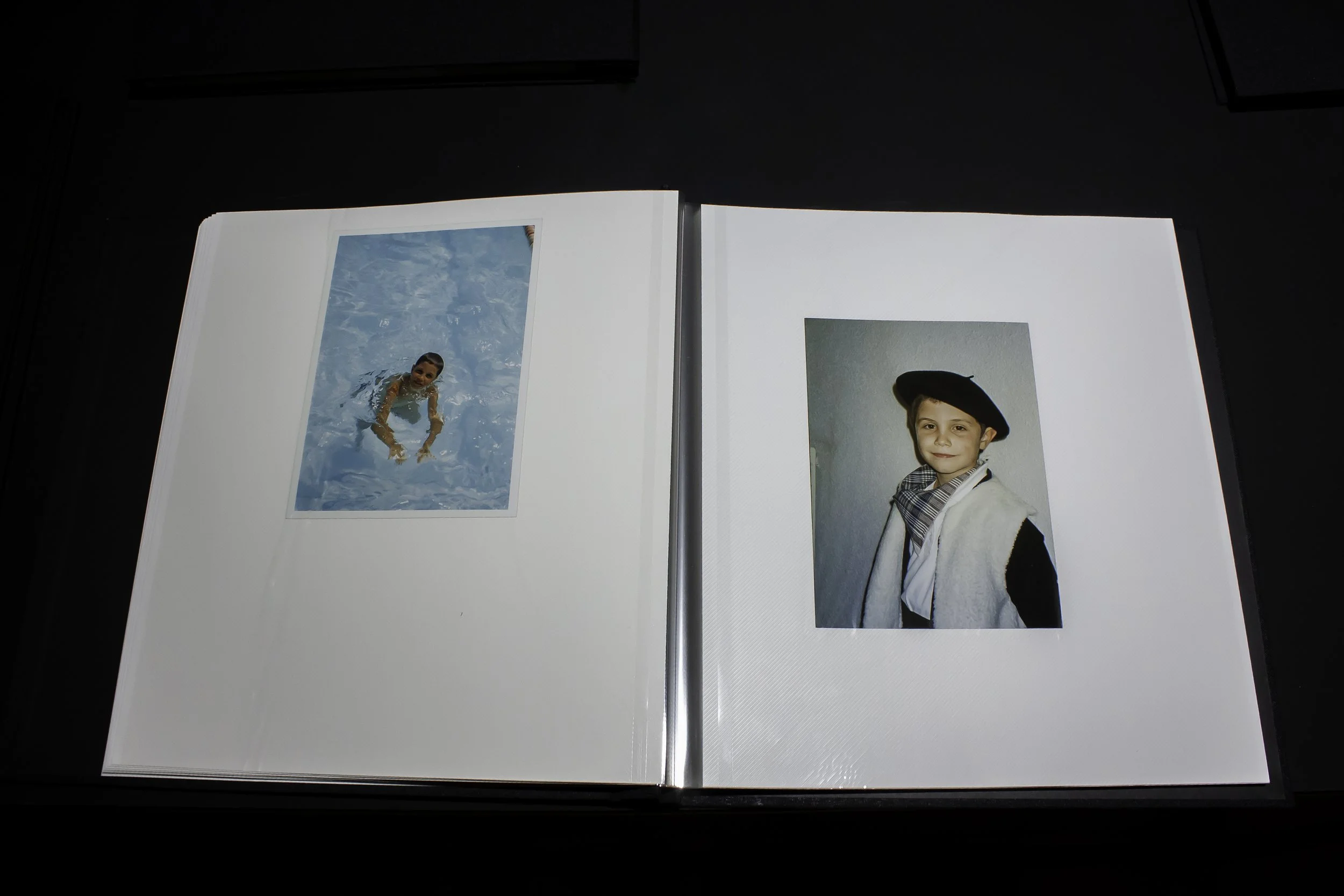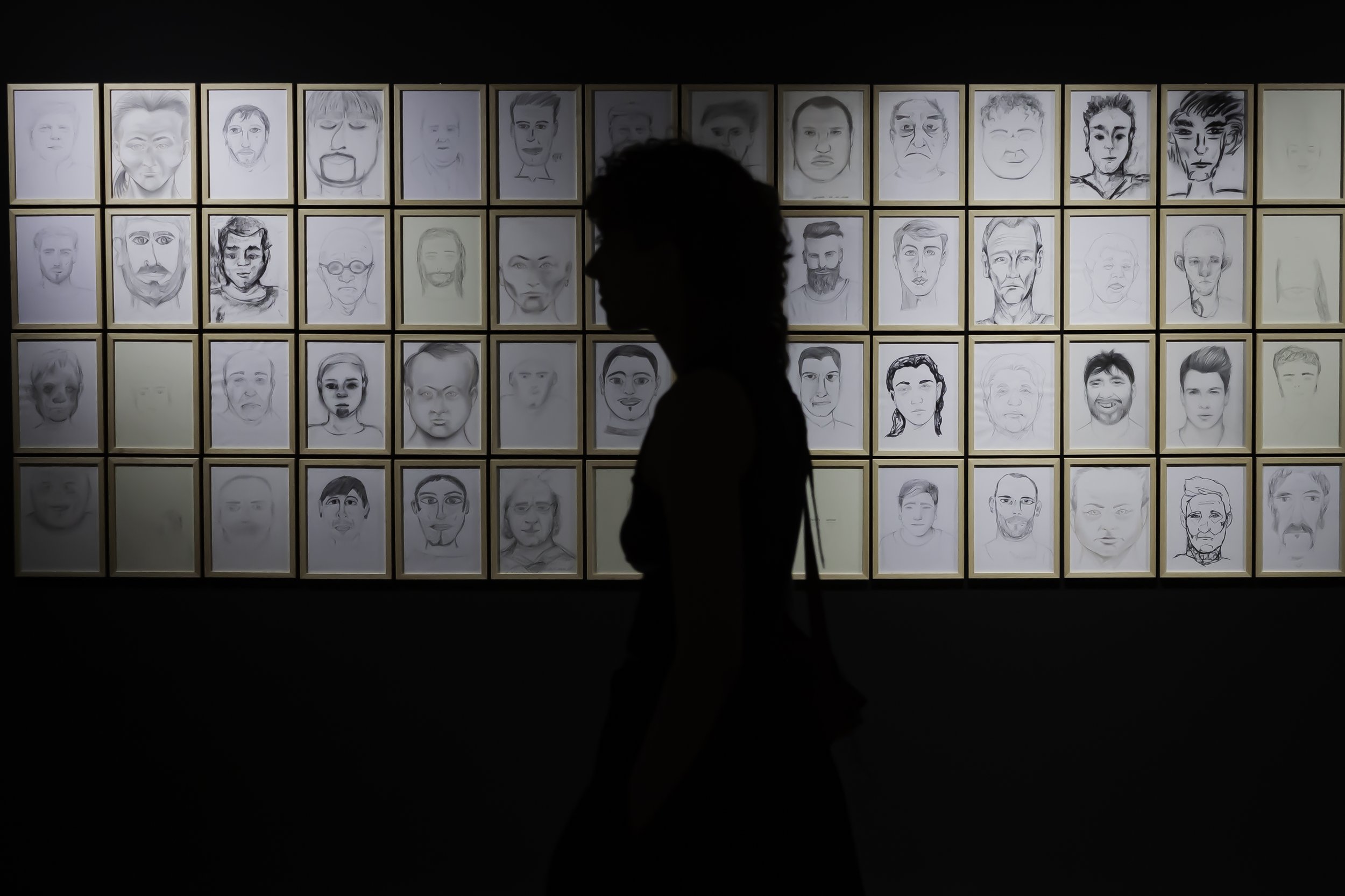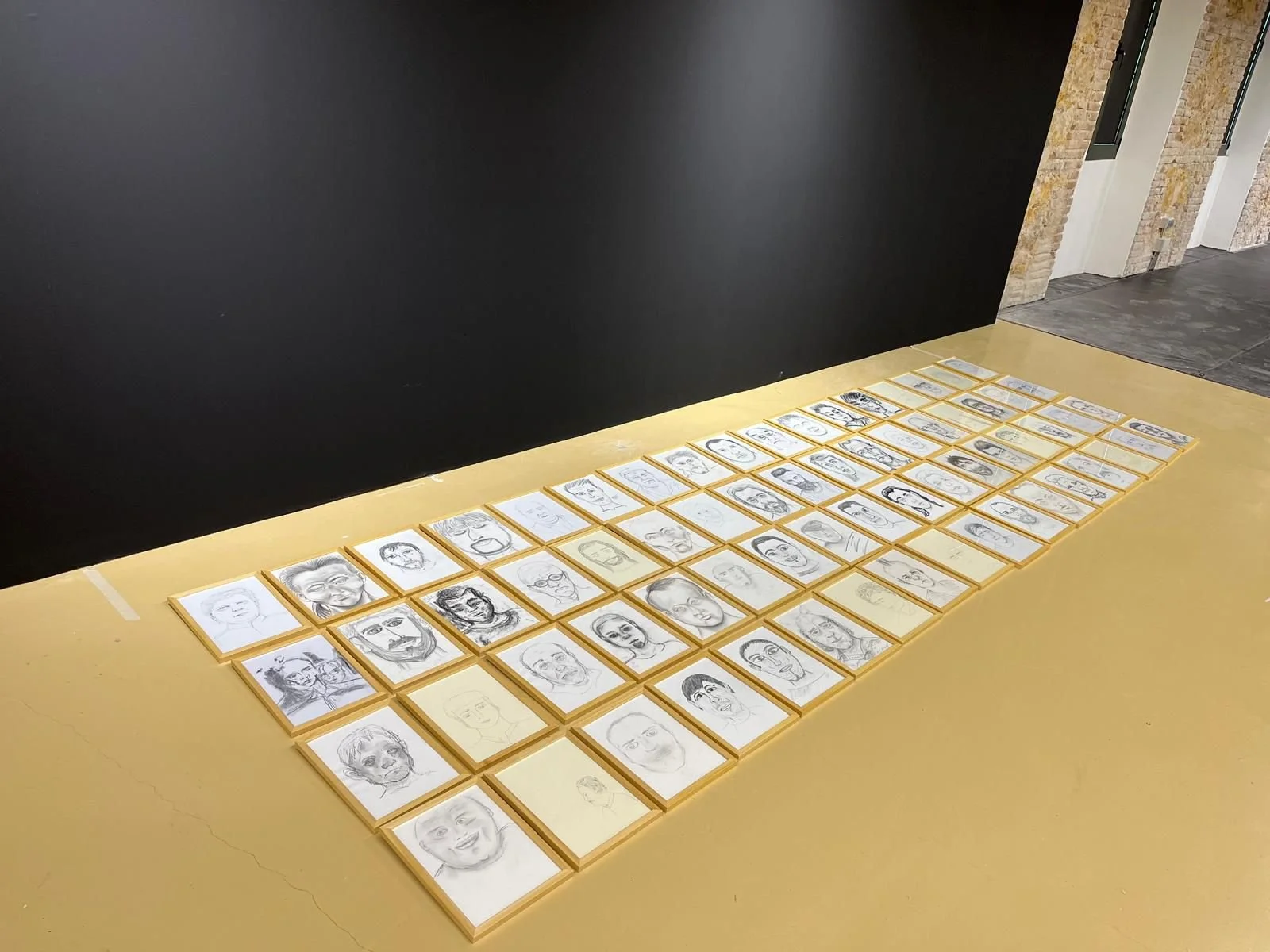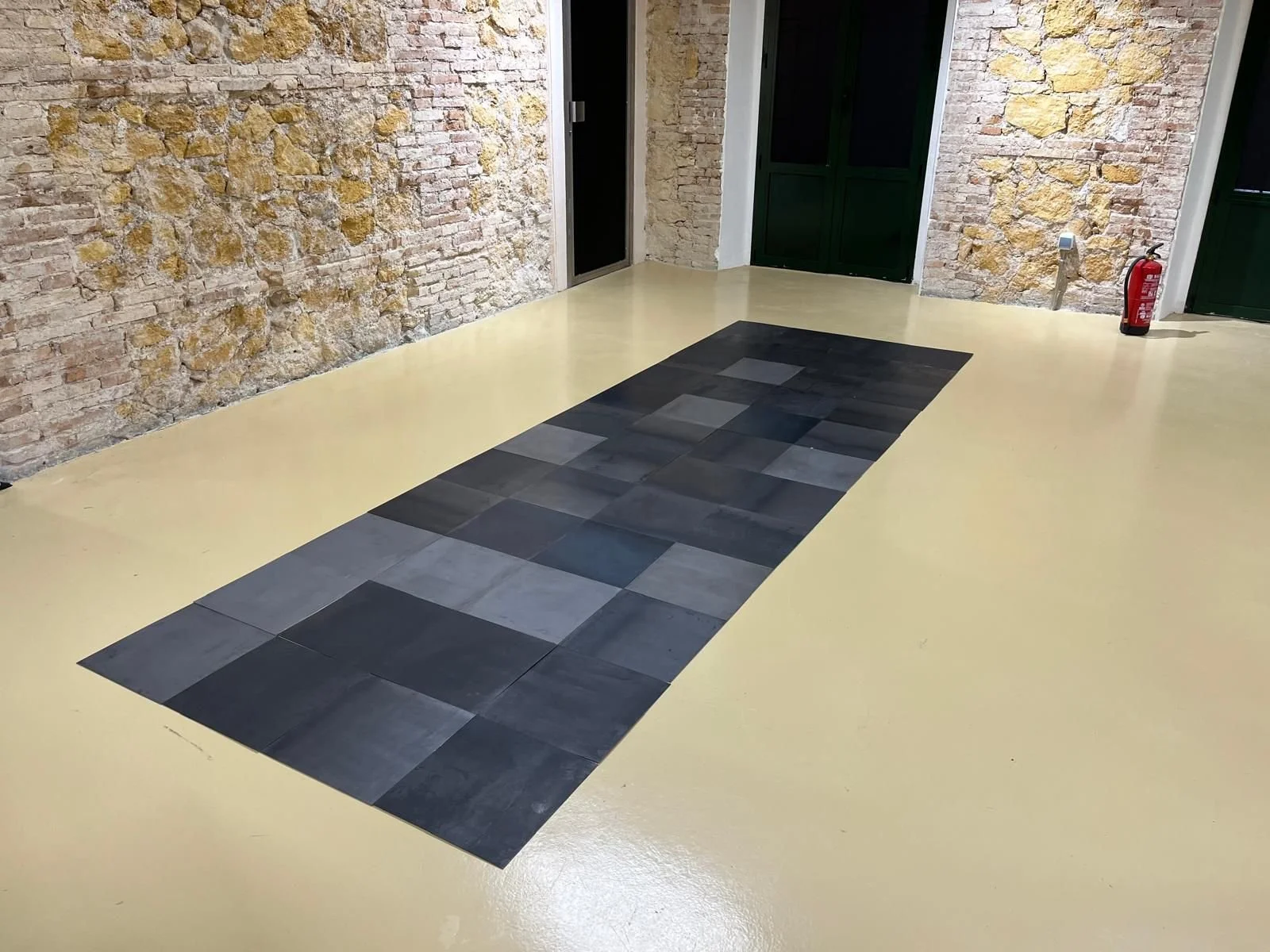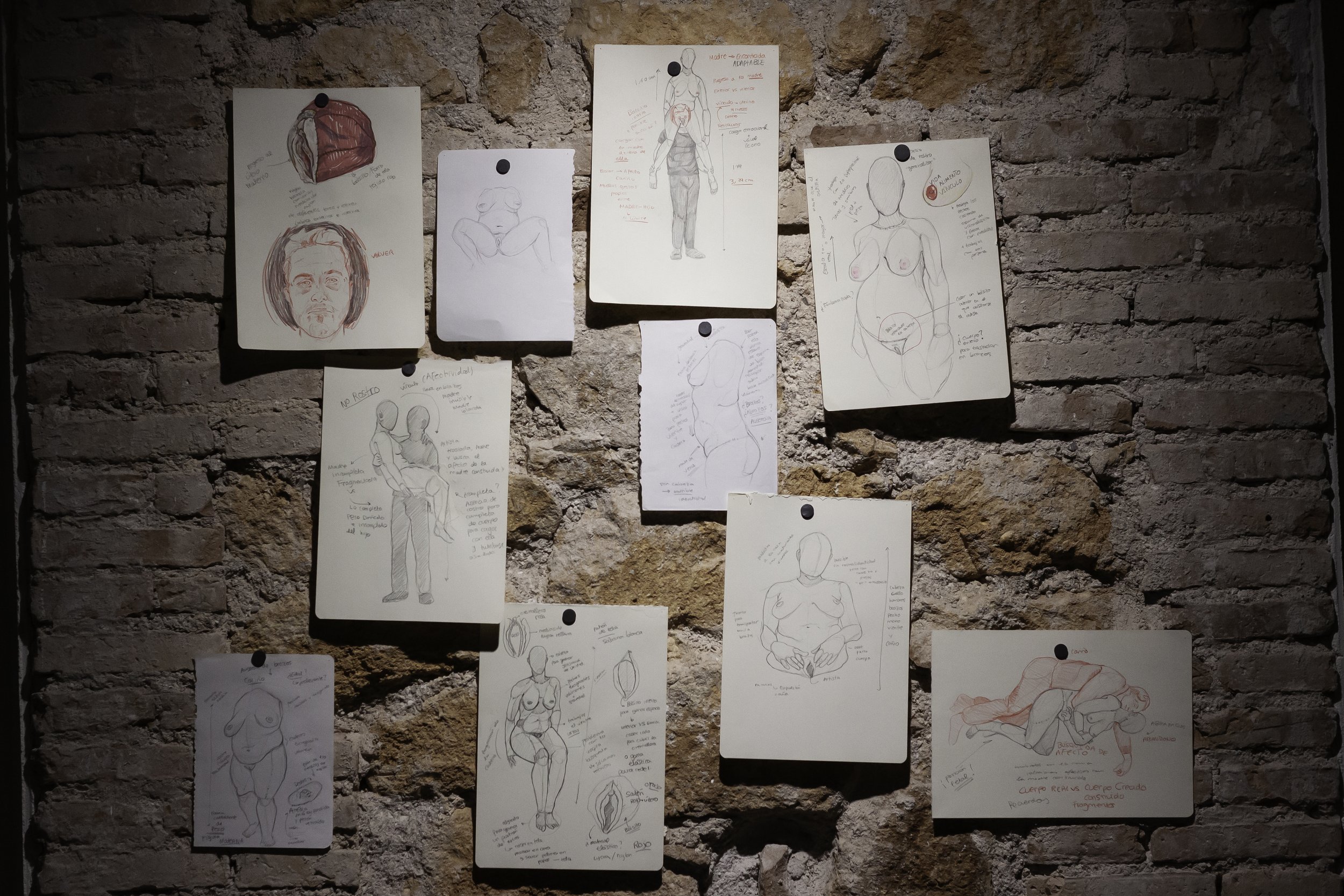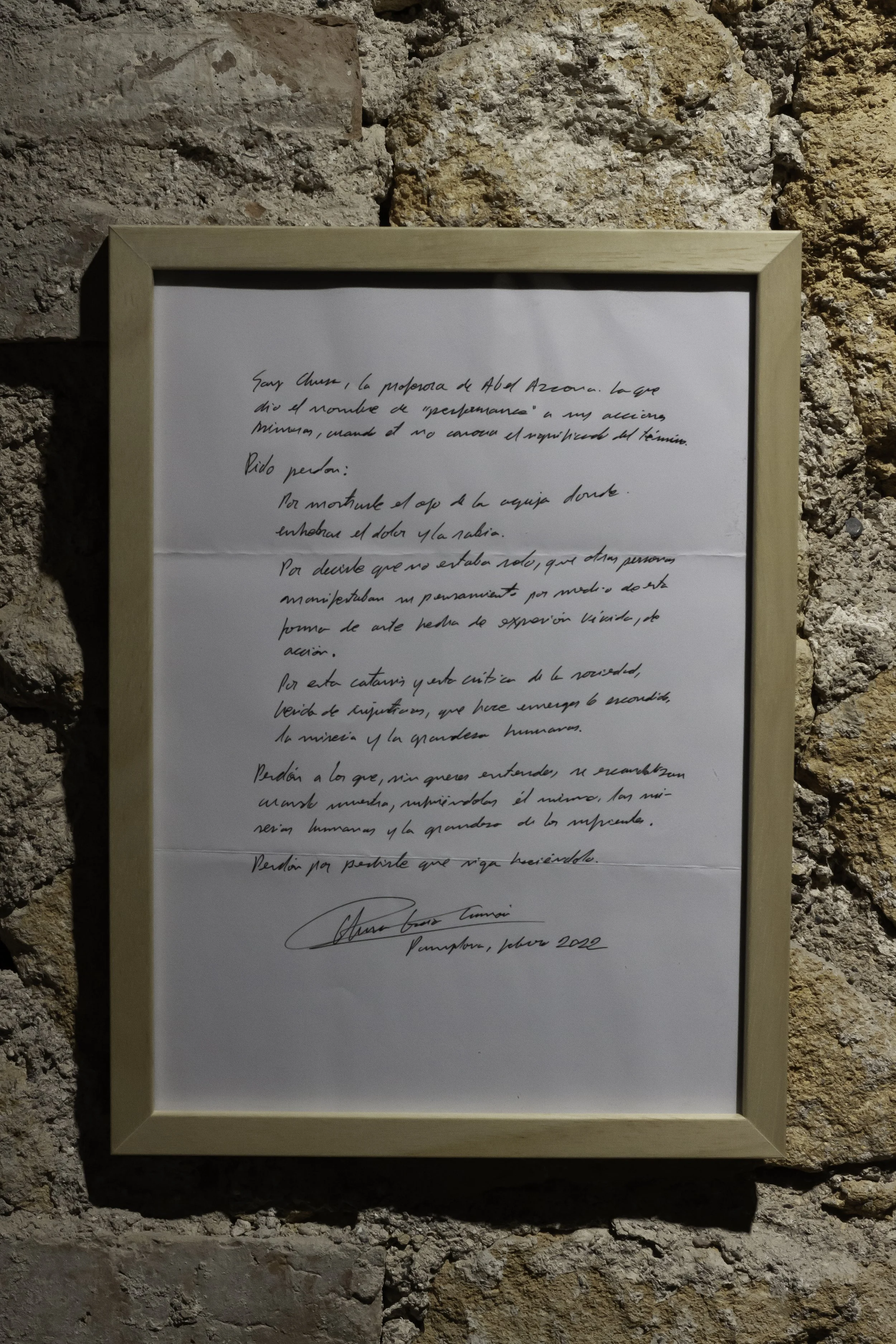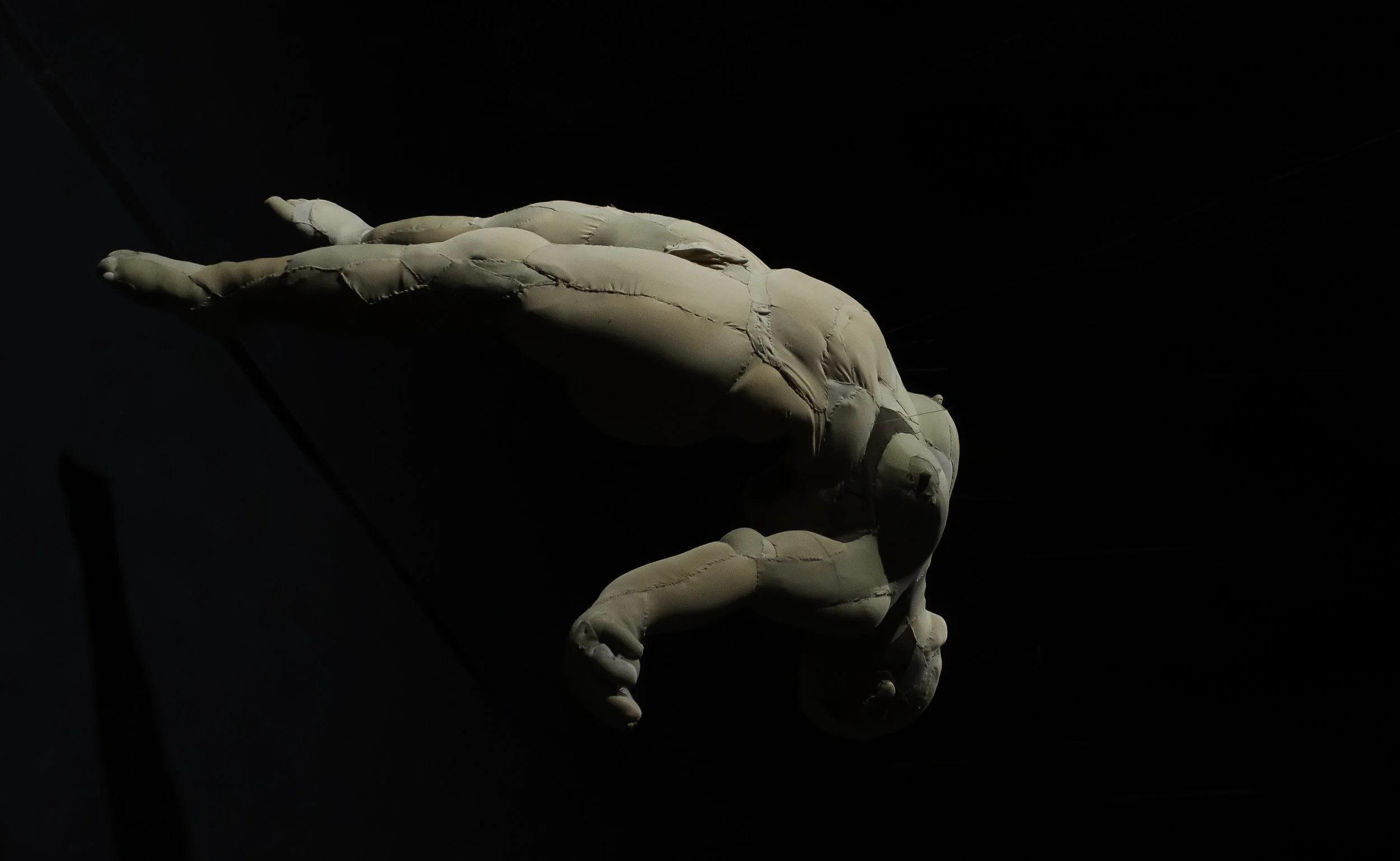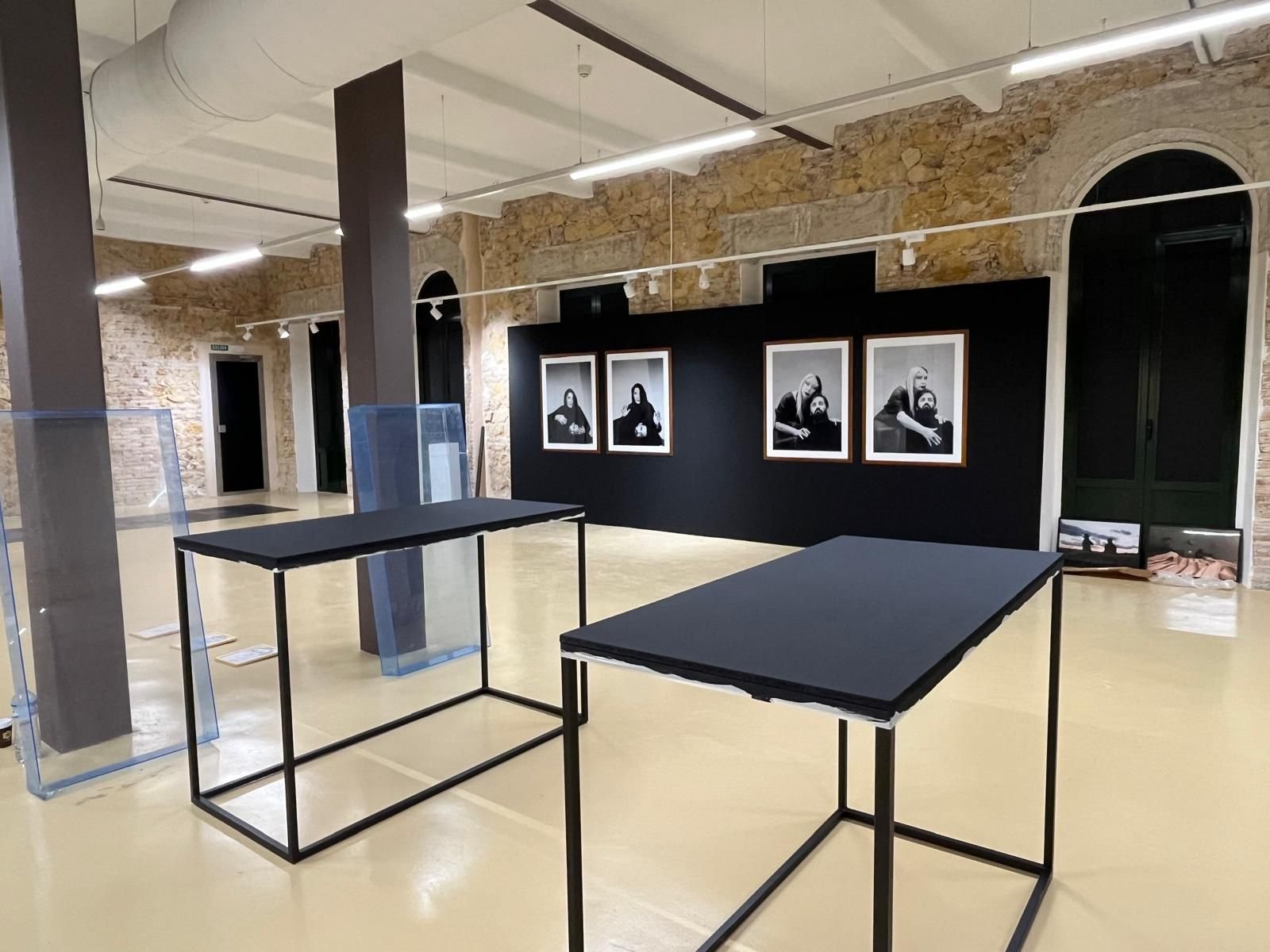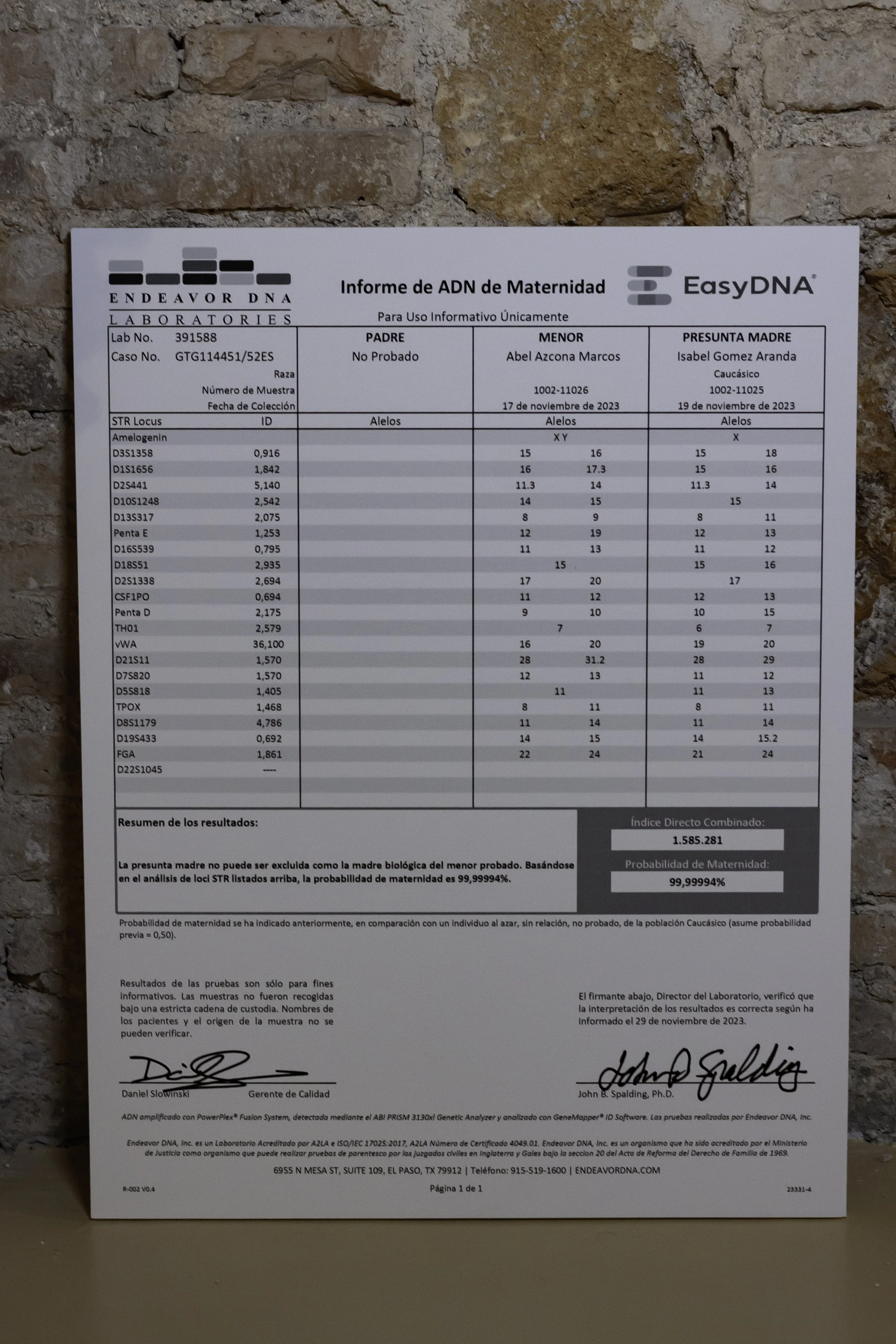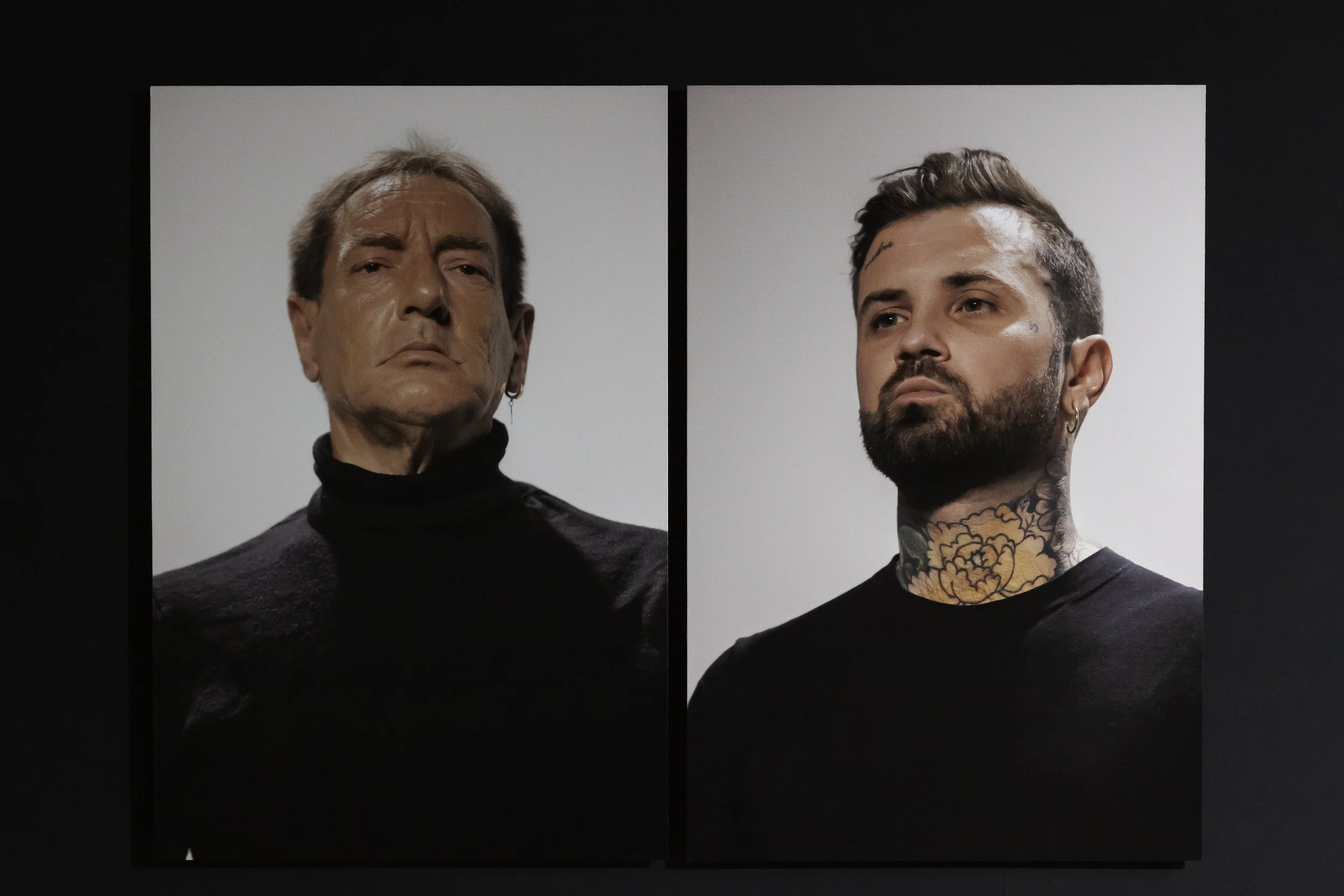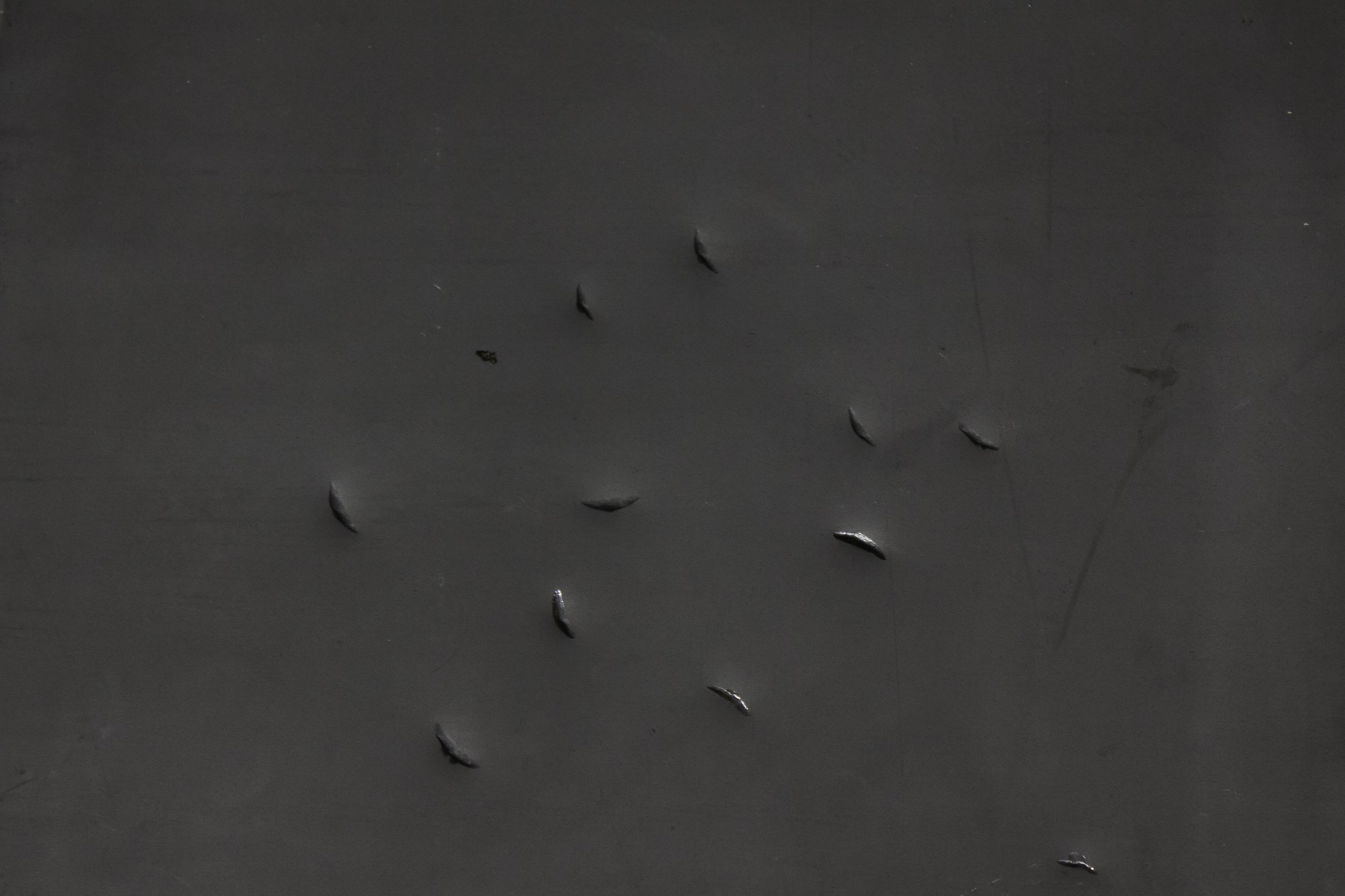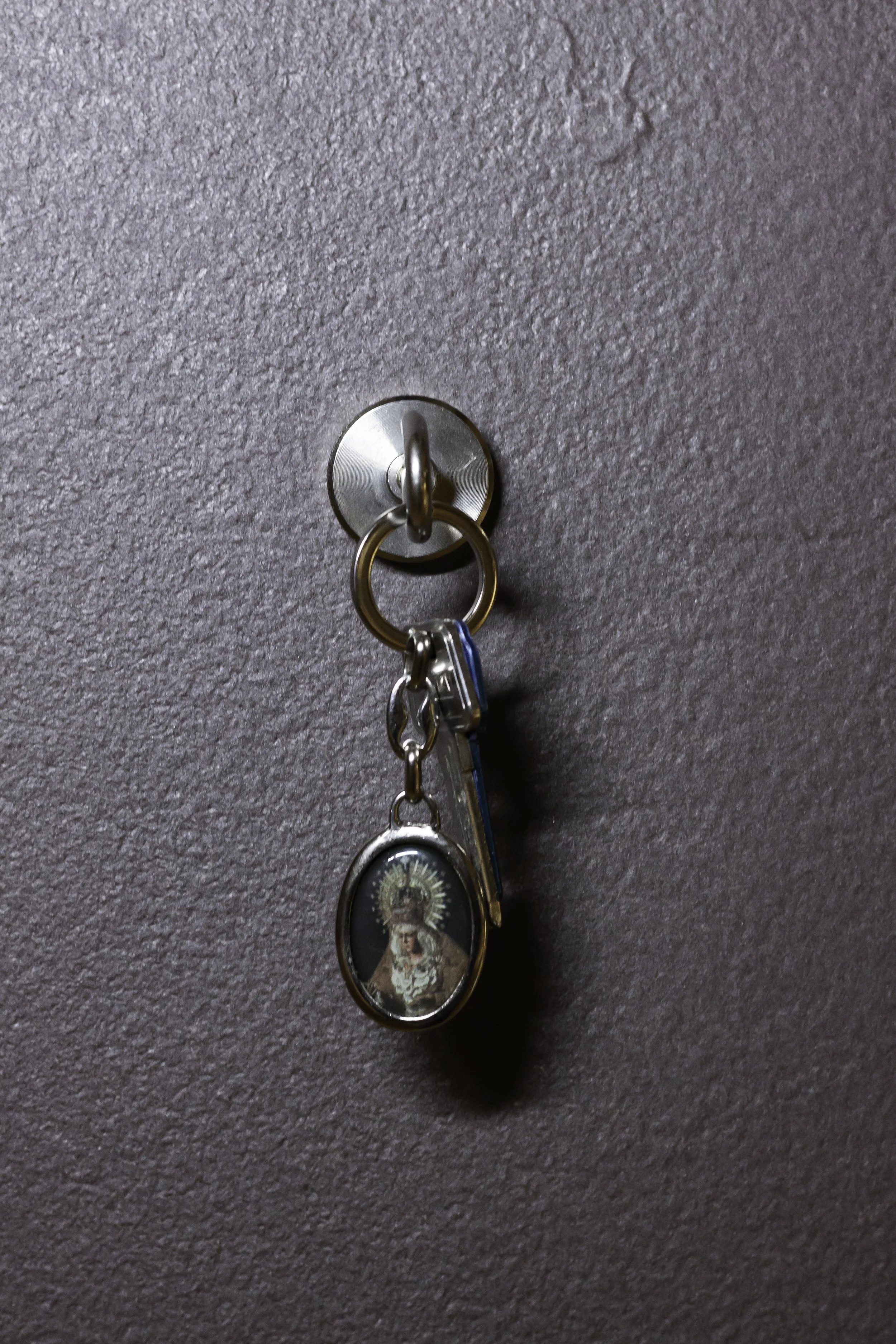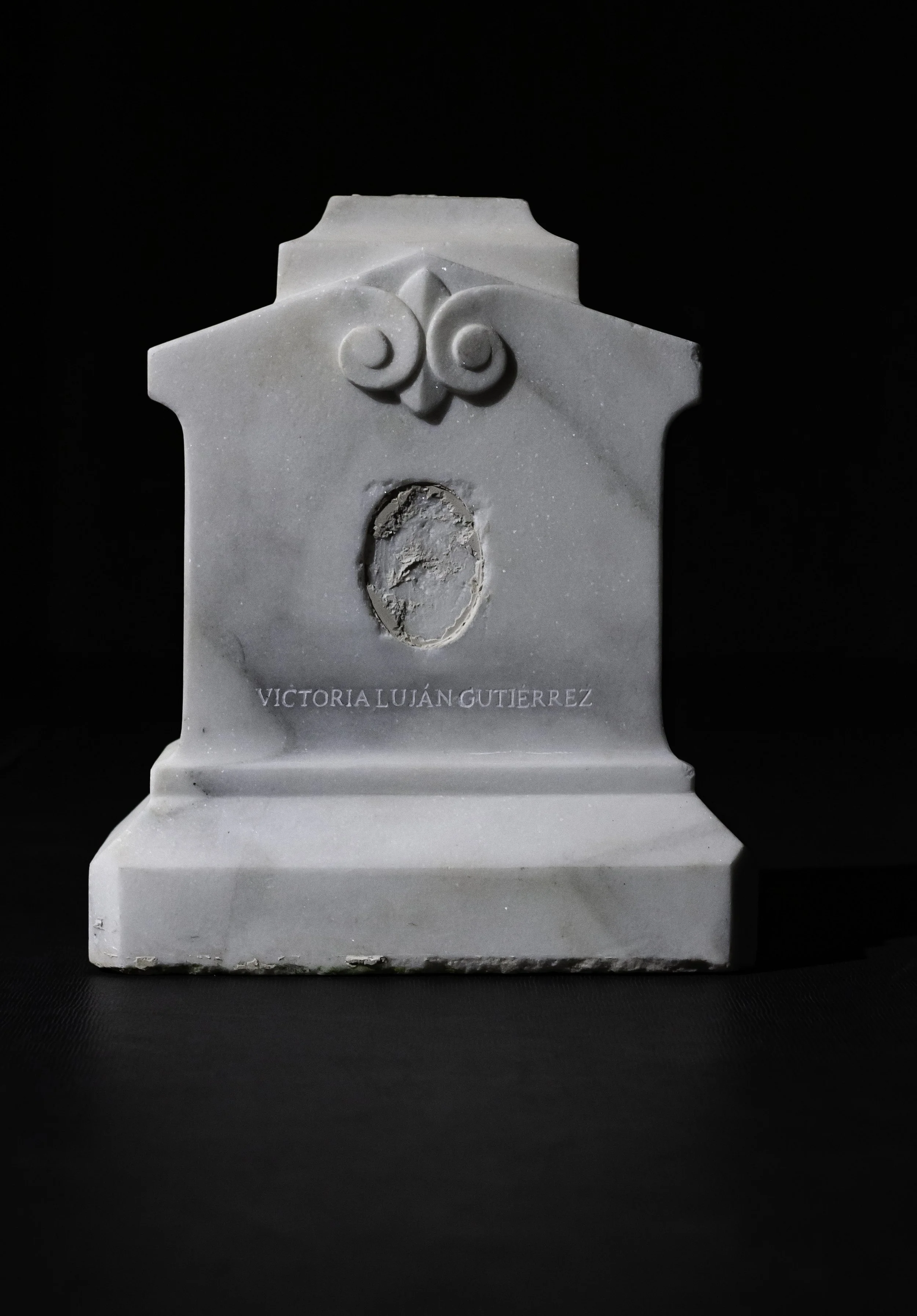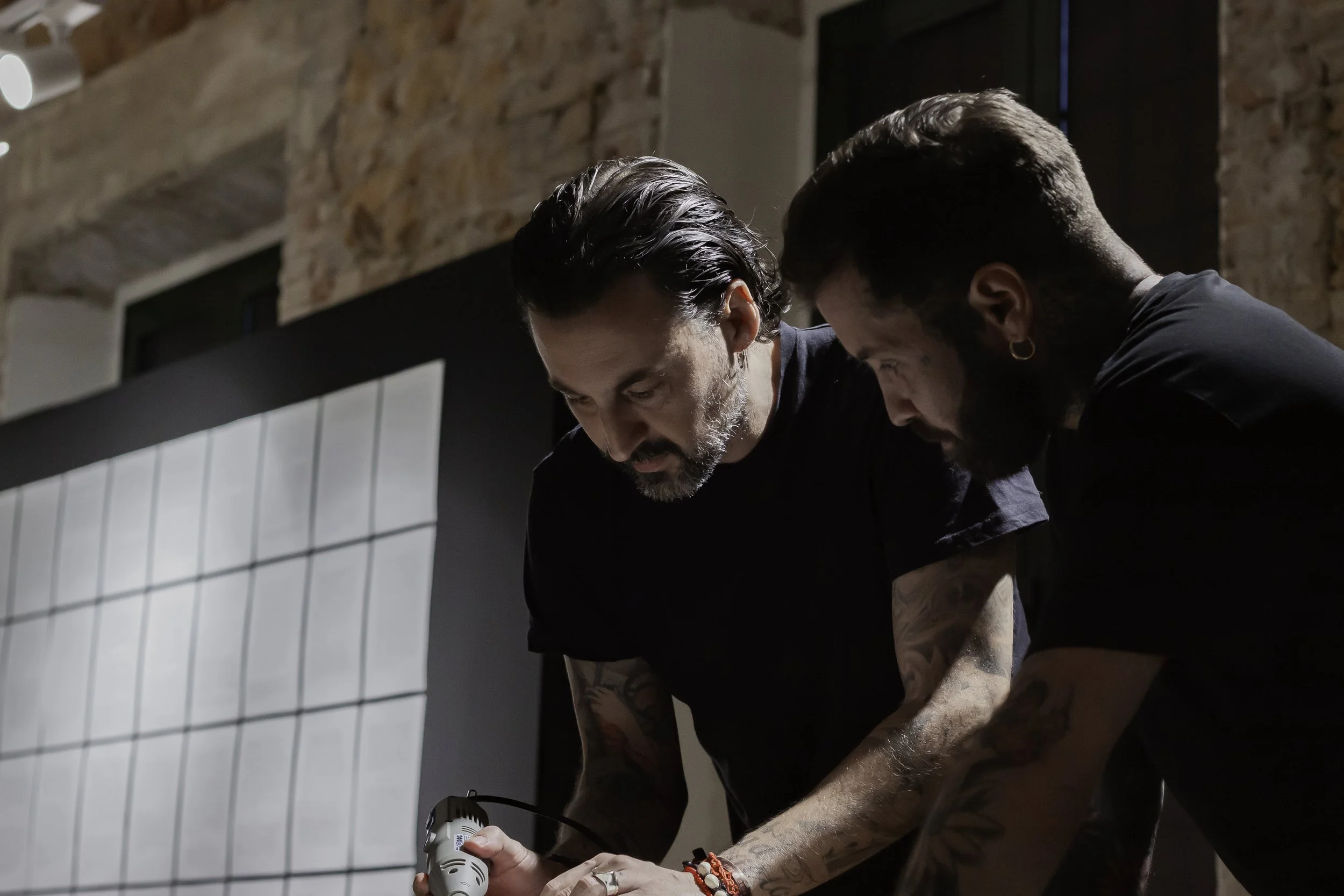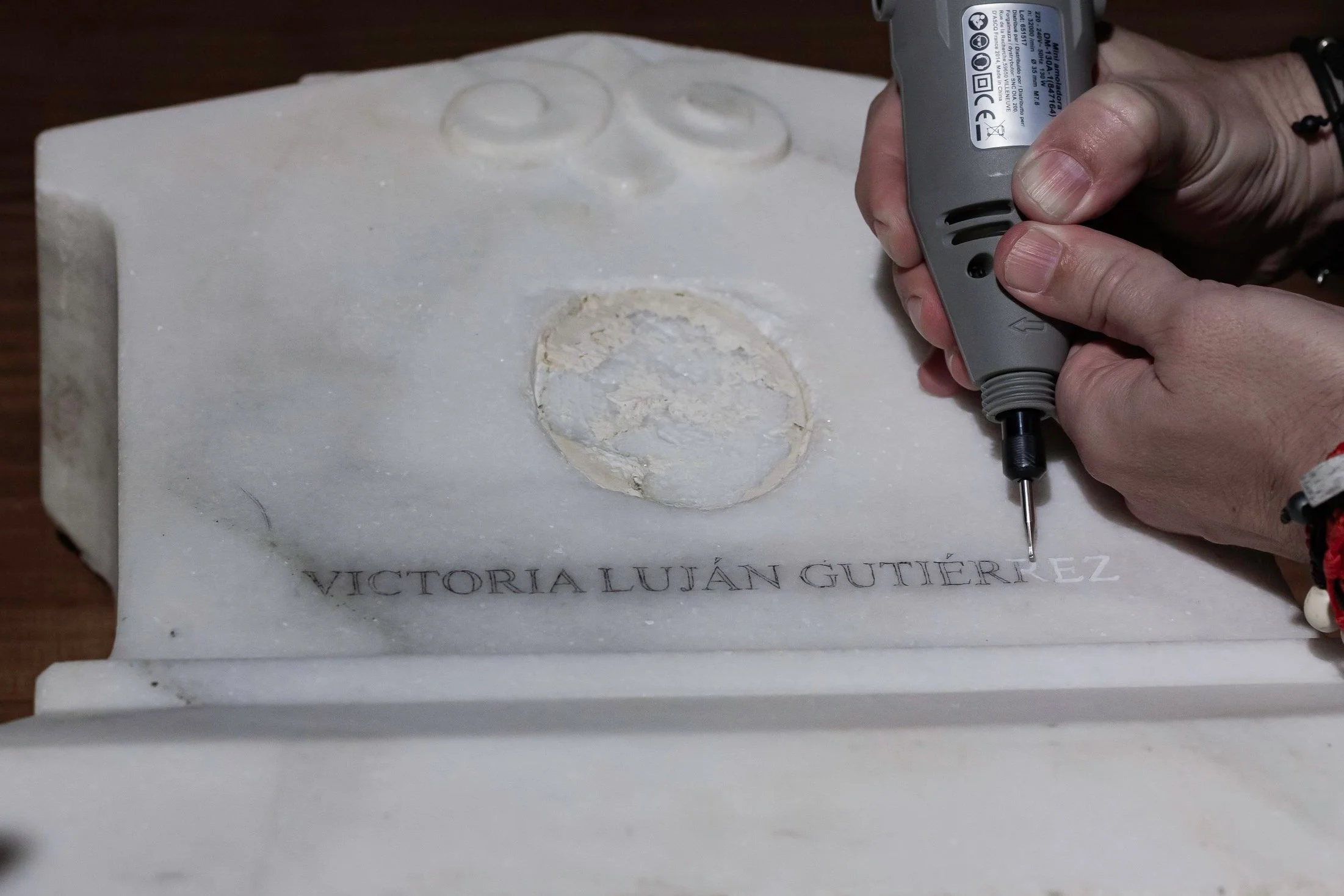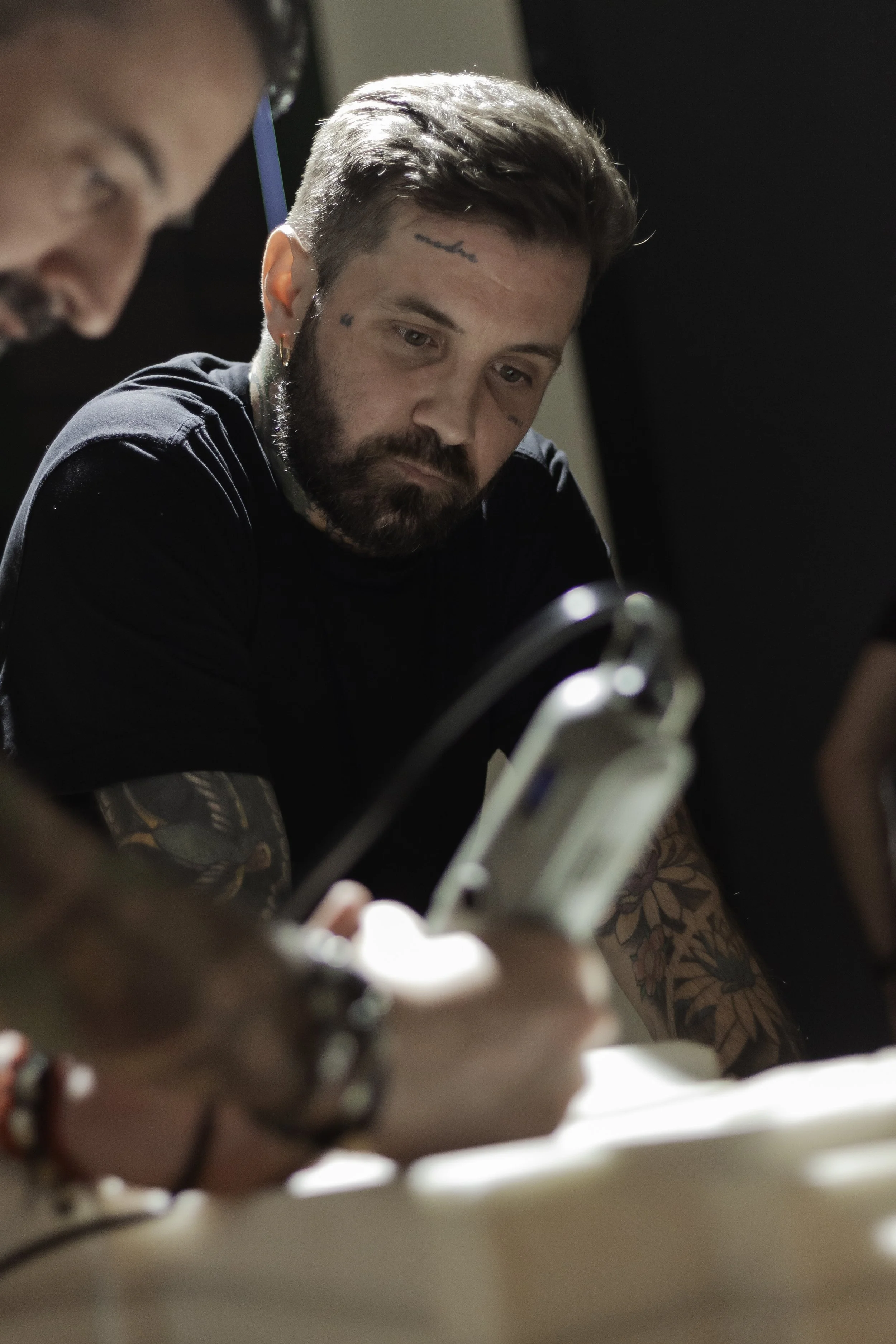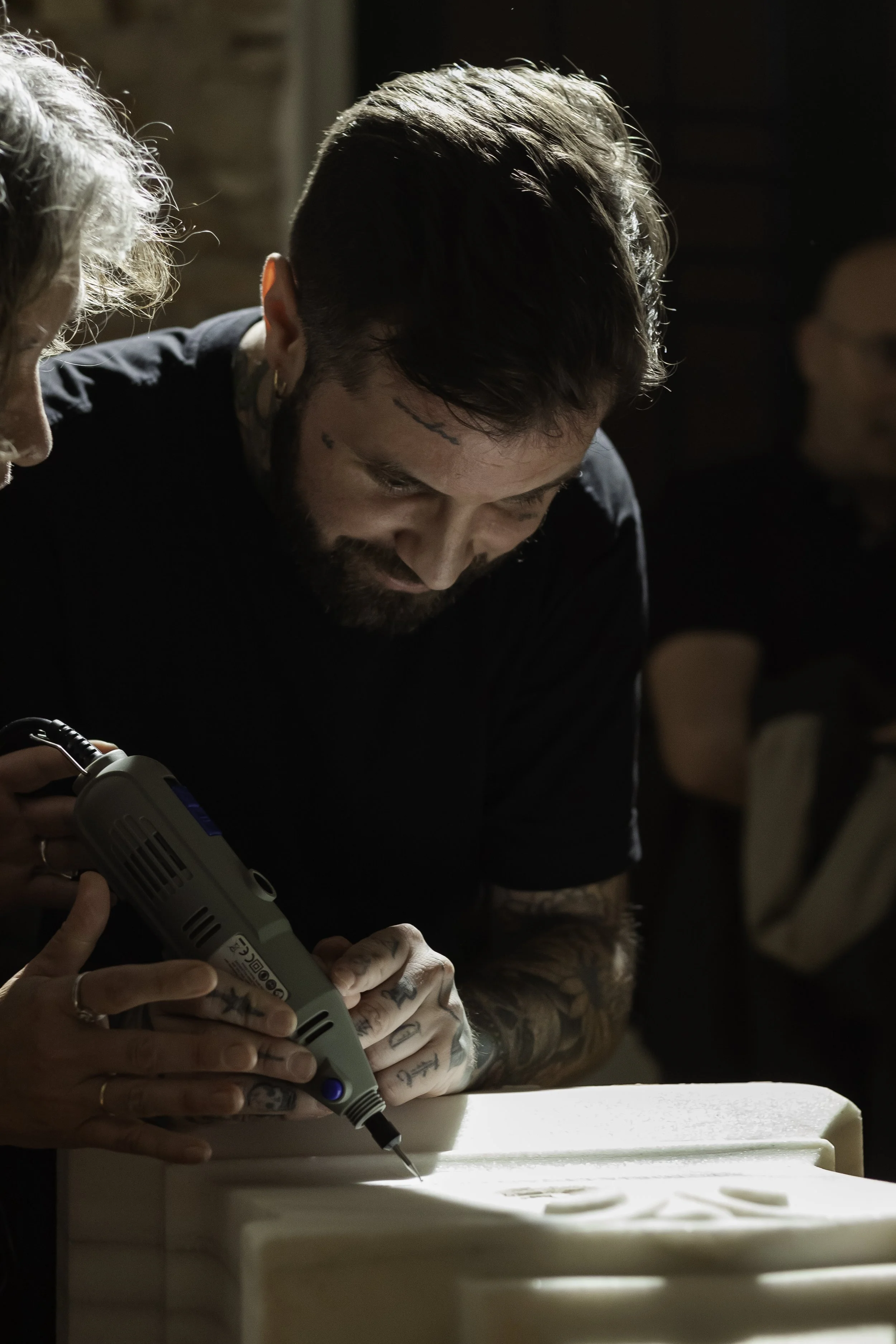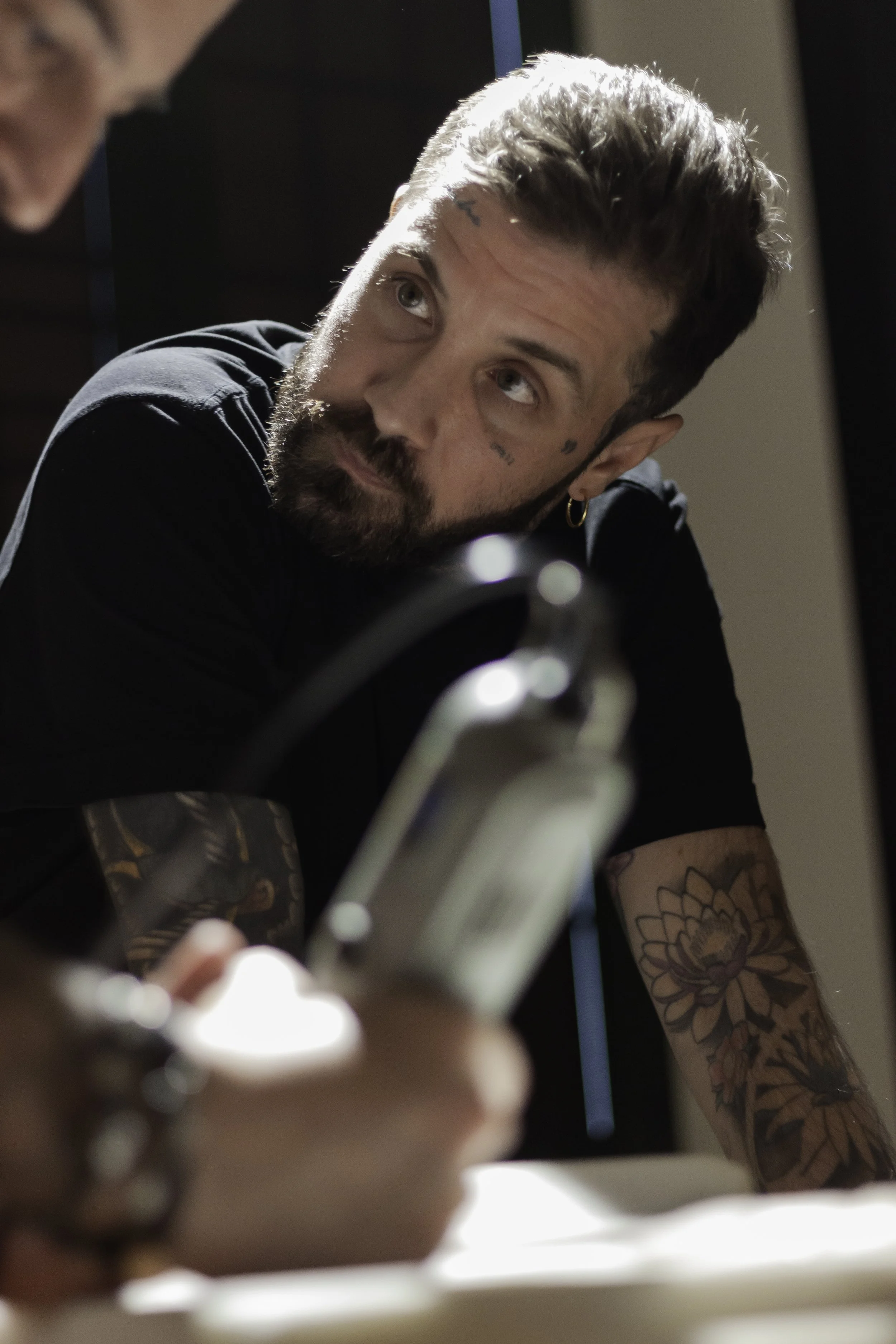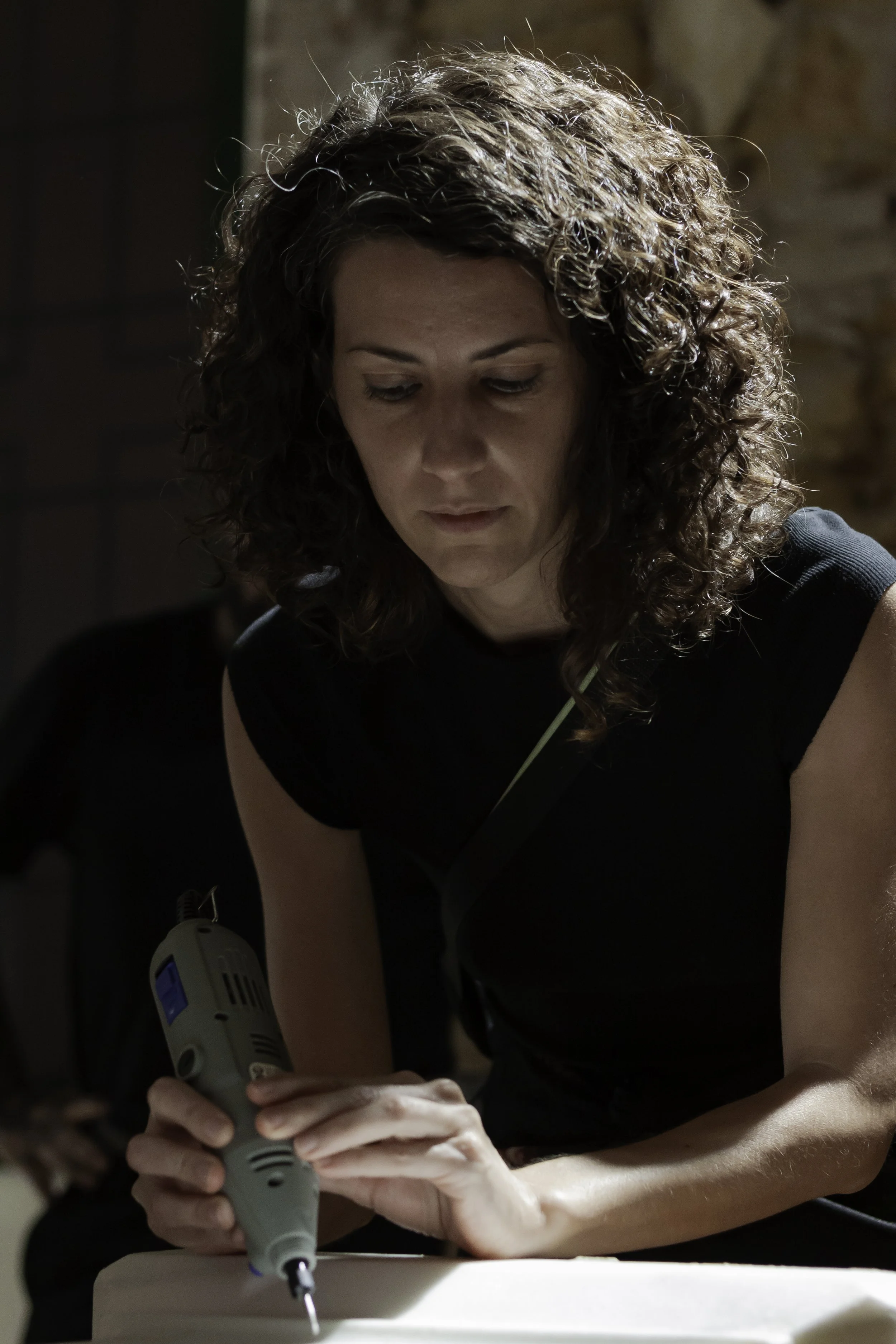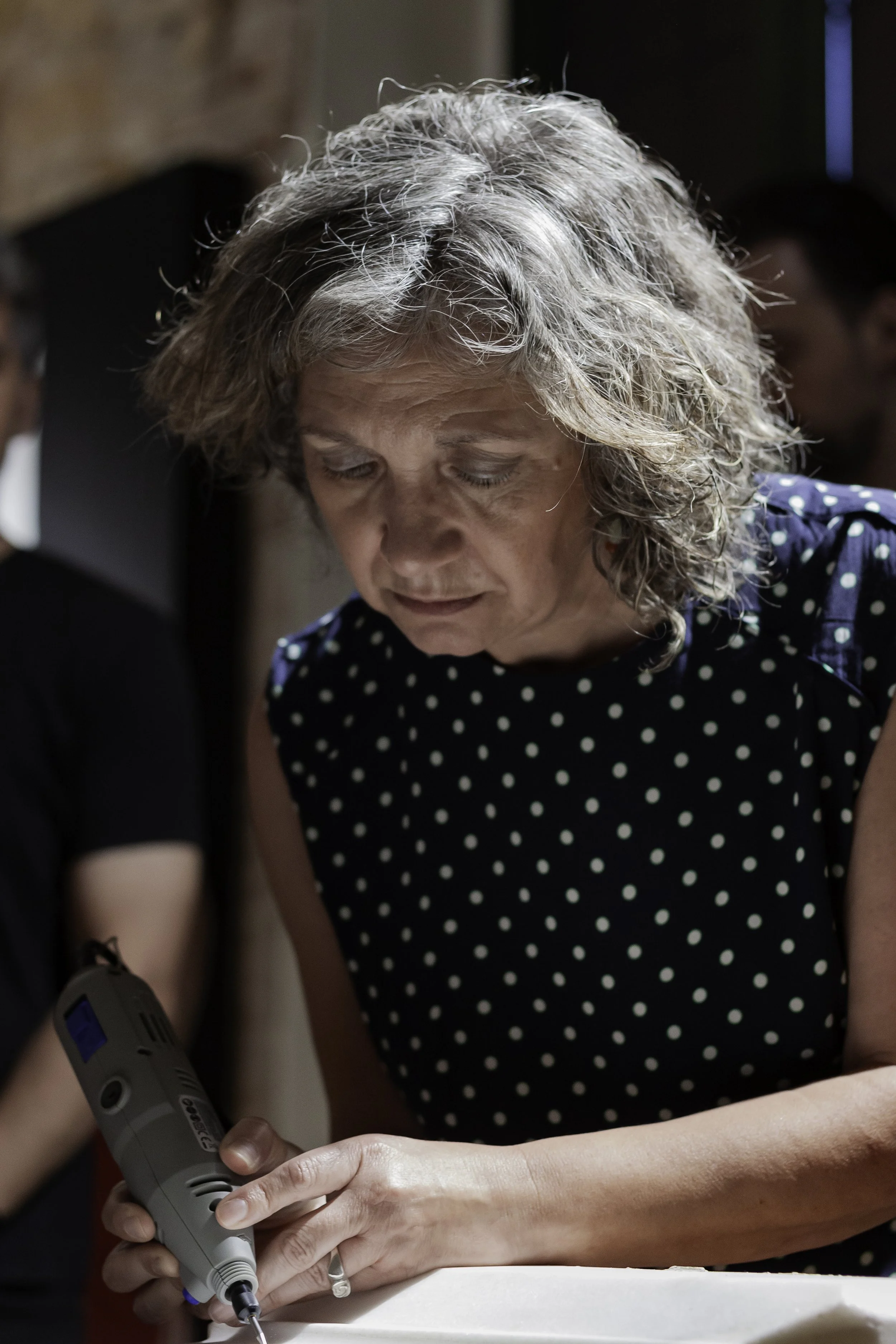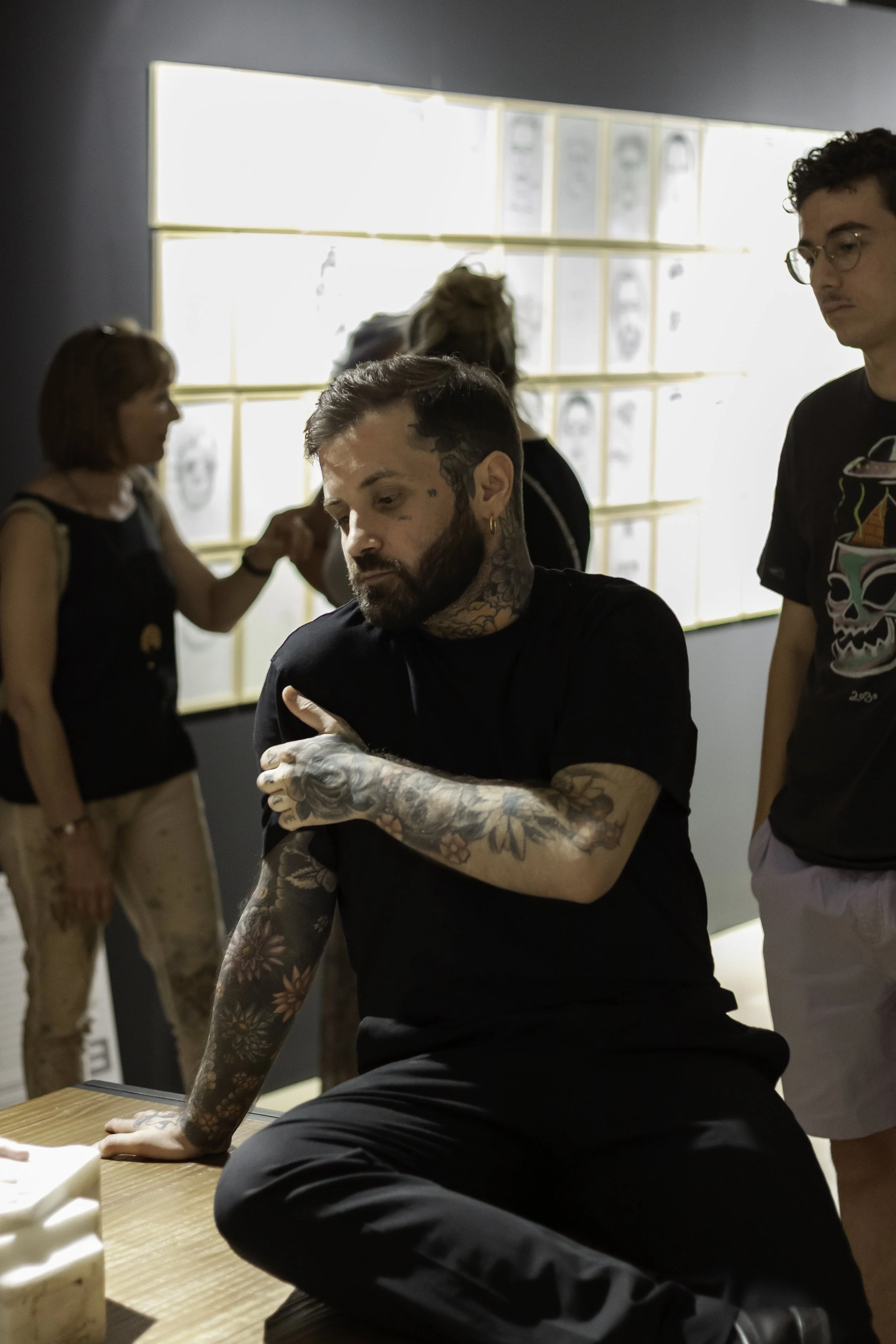Nine Steps Towards the Mother, and actually some more, can be understood as a complete process work or a compendium of numerous works that took place from October 2023 to April 2025. All of Abel Azcona's actions, documentary works and installations around the maternal figure during these dates are understood as such. The initial idea was a full year and to conceive the process in nine clear steps, however, after the curatorial and artist's decision to postpone the final meeting between mother and son to the exact date of April where the abandonment took place thirty-seven years ago, new pieces and creations on this theme emerged due to the artist's pure need to respond to questions prior to the final performance. The final meeting between mother and son will take place in a museum to be decided, during the first months of 2025.
Nueve pasos hacia la madre, y en realidad algunos más, puede ser entendida como una obra procesual total o con un compendio de numerosas obras acontecidas desde octubre del 2023 a abril del 2025. Todas las acciones, obras documentales e instalaciones de Abel Azcona en torno a la figura materna durante estas fechas son entendidas como tal. La idea inicial era un año completo y concebir el proceso en nueve pasos claros, no obstante, tras la decisión curatorial y del artista de retrasar el encuentro final entre madre e hijo a la fecha exacta de abril donde treinta y siete años atrás aconteció el abandono, surgieron nuevas piezas y creaciones de esta temática por la pura necesidad del artista de responder a cuestiones previas a la performance final. El encuentro final entre madre e hijo acontecerá en un museo por decidir, durante los primeros meses de 2025.
Frames of Isabel Gómez Aranda, the biological mother of Abel Azcona, narrating her life experience during Nine Steps Towards the Mother at the Contemporary Art Center of Málaga. / Fotogramas de Isabel Gómez Aranda, madre biológica de Abel Azcona narrando su experiencia vital durante Nueve pasos hacia la madre en el Centro de Arte Contemporáneo de Málaga.
First full exhibition featuring the work Exégesis de la madre at the Art Center Cuartel de Artillería in the city of Murcia. This handwritten work contains the testimony and history of Abel Azcona's biological mother. / Primera exposición completa con la obra Exégesis de la madre en el Centro de Arte Cuartel de Artillería en la ciudad de Murcia. Obra manuscrita con el testimonio e historia de la madre biológica de Abel Azcona.
First pages of the work Exegesis of the Mother. A handwritten work with the testimony and history of Abel Azcona's biological mother. One of the steps taken by the mother before they met in person. / If you have any more text you need translated or have questions about, feel free to share!Primeras hojas de la obra Exégesis de la madre. Obra manuscrita con el testimonio e historia de la madre biológica de Abel Azcona. Uno de los pasos de la madre antes de conocerse ambos en persona.
First step. First contact of the mother with the artist. / Primer paso. Contacto por primera vez de la madre con el artista.
Second step. Abel Azcona during the performance of reading the DNA test result at the La Panera Art Center and Final DNA Test. Document resolved during the performance at the La Panera Art Center. / Segundo paso. Abel Azcona durante la performance de la lectura del resultado de la prueba de ADN en el Centro de Arte La Panera y Prueba de Adn final. Documento resuelto durante la performance en el Centro de Arte La Panera.
Third step. Visit of the mother, Isabel Gómez Aranda, to the closing of the exhibition "My Families 1988-2024" at the La Panera Art Center. / Tercer paso. Visita de la madre Isabel Gómez Aranda a la clausura de la exposición Mis familias 1988-2024 en el Centro de Arte La Panera.
Fourth step. Handwritten account by the biological mother detailing her life experience and her version of events. / Cuarto paso. Relato manuscrito de la madre biológica con su experiencia vital y su versión de los hechos.
Fifth step. The exposed mother. For the first time, the mother is exhibited and performative in a museum on the same pedestal where she will meet the artist in the final step. / Quinto paso. La madre expuesta. Por primera vez la madre se expone y performatiza en un museo en la misma peana donde conocerá al artista en el último paso.
Sixth step. The mother tells her story in the first person through a collection of documentary video art pieces. / Sexto paso. La madre cuenta su relato en primera persona mediante una colección de piezas de videoarte documental.
Seventh step. An exhibition serving as a recapitulation of all the steps taken so far, along with the activation of nine brief performances related to the mother. / Séptimo paso. Exposición a modo de recapitulación de todos los pasos hasta el momento y activación de nueve performances breves hacia la madre.
Eighth step. Various performative phases within the exhibition "Abel Azcona and The Role of the Family" at the Artillery Barracks of Murcia. Curated by Pedro A. Cruz. / Octavo paso. Diferentes fases performativas en el marco de la muestra Abel Azcona I El Papel de la Familia en el Cuartel de Artillería de Murcia. Comisariado por Pedro A. Cruz.
The final performance is a work in itself, but it can also be understood as the final step of the nine steps toward the mother. It will take place during the first months of 2025. / La performance final es una obra en si pero también puede entenderse como el paso final de los nueve pasos hacia la madre. Se desarrollará durante los primeros meses del año 2025.
Ninth step. The final encounter between the mother (Isabel Gomez Aranda) and the son (Abel Azcona) after never having seen each other since April 3, 1988. This is the date when the mother abandoned the future artist while he was in the incubator, having been born with fetal alcohol syndrome. / Noveno paso. Encuentro final entre la madre (Isabel Gomez Aranda) y el hijo (Abel Azcona) tras no haberse visto nunca desde el 3 de abril de 1988. Fecha en el que la madre abandonó al futuro artista en mientras se encontraba en la incubadora al haber nacido con alcoholismo fetal.
“The hardest, most intimate, and generous work by Abel Azcona to date. After more than twenty years of works in continuous search of his own mother and for healing and acceptance of his own orphanhood, the appearance of his biological maternal figure transforms the meaning and potential of his work.”
Abel Azcona's constant search for his own identity, marked by violence such as child abuse, abandonment, or alienation, has positioned him as a male figure advocating for abortion rights, women's rights, and against violence, precisely based on his own history. On the other hand, the mother's story is marked by the vulnerability of drug addiction, being forced into prostitution, subsequently abandoning her son, or experiencing sexual assaults. Her story embodies the vulnerability of women who suffer violence simply because of their gender, here epitomized in a specific body, that of the mother who reunites with her son through an artistic action.
Semíramis González
Querida Victoria o Isabel,
Te escribo esta carta en medio de todos los pasos que estamos dando hasta conocernos. La semana pasada tuve que escuchar casi cien audios contando tu versión de la historia, tu vida y tus procesos de consumos, prostitución y mi propio abandono. En mi performances siempre he intentado mantener la cabeza activa con sentimientos y pensamientos escapando de un aletargamiento o una posible desconexión mental del espacio y del contexto de la obra. Esta carta la escribí ayer para que tú la leas hoy antes de poner tu cuerpo en acción. Poner el cuerpo es algo que llevo haciendo más de treinta años, desde que nací obligado o desde que tú me abandonaste. Durante muchos años te he culpado por abandonarme y he sentido que tú tenías la culpa de todo. Tras escucharte entiendo las circunstancias y creo que tú eres parte y resultado de las mismas exactamente igual que yo. Escucharte hablar de abuso, de prostitución, de violencia sexual y de supervivencia me ha unido más a ti. Durante años daba por hecho que ese era tu discurso, pero no te lo había escuchado a ti directamente. Has sido siempre un fantasma construido en mi cabeza para sobrevivir hasta ahora. Ahora mismo tengo tantas preguntas, que creo que voy a esperar a formular muchas de ellas al día que nos demos la mano por primera vez. La primera pregunta que me viene a la cabeza es el tema del nombre, siempre has sido para Victoria pero ahora eres Isabel. Me gustaría que un día me explicaras bien toda la historia del nombre y esas denuncias con el nombre falso por violación o abuso sexual. Me gustaría en realidad que me explicaras tantas cosas. Aunque he sentido mucha rabia a lo largo de mi vida por el abandono, considero que en este momento de mi vida la rabia se ha rebajado a los menores niveles posibles. Y creo que podré mirarte a los ojos desde la comprensión y la razón. En mi vida he tenido muchas madres y siempre he considerado que ninguna buena. Tú me gestaste en violencia y territorio hostil. No te imaginas el dolor y las lágrimas que he derramado al leer y escucharte en estos pasos como te abusaban y te prostituías conmigo dentro. Luego vino Arancha, que abusó de mi a todo tipo de niveles como intentar venderme, usar mi cuerpo como mercancía y meterme en el mundo de los abusos y maltratos. Y por último Isabel, imagina mi sorpresa al enterarme que tu verdadero nombre era el mismo de mi madre adoptiva. La cual también considero que no fue una buena madre, no estaba preparada en absoluto y considero que vivi una adopción también marcada por el dolor y el maltrato. Tres madres malas o tres malas madres. Y ahora vuelves a mí. Explicándome todo, porque me abandonaste. Te lo volvería a preguntar todos los días de mi vida. ¿Porque me abandonaste? ¿Porque me abandonaste? ¿Porque me abandonaste? Te quiero agradecer el haber decidido exponerte así. El haber sido valiente y contestar a todo. El afrontar todas mis dudas y mis necesidades. El contar tu historia y el exponer de manera valiente tu cuerpo y tu historia. Considero que los dos, de alguna manera, gracias a esto estamos curando. No te voy a engañar, yo sigo muy herido y tengo mucho miedo pero ahora mismo sé más que nunca que nos vamos a conocer en persona. Estoy llorando mientras escribo esta carta. Ya que llevo meses superado. Yo no sé si estos pasos lentos hasta conocernos los he creado como mecanismo de defensa, por necesidad de ir despacio o porque tengo terror a conocernos en persona. Tras más de treinta años de crear obras hablando de tu abandono, de mi heridas y de tu persona estás aquí. En el centro de un museo dispuesta a darlo todo por conocerme, por reparar y por caminar hacia atrás o mejor dicho hacia delante. Yo también voy a dar un paso hacia delante y te ofrezco mi mano.
Nos vemos pronto,
Tu hijo Abel.
The need to search for the maternal figure, through painting, sculpture, and performance, permeates the entire work of Abel Azcona in an overwhelming and profound way. It represents one of the most raw and realistic processes in his entire body of work, while also serving as one of the triggers for his performative base.
Many of his works have revolved around searching for a mother who abandoned him. From imagining what his mother might be like in "Imaginary Mothers" (Ecuador, Chile, and Spain, 2022-2023), where the artist collectively reflects with people who are motherless, orphaned, or have complex maternal relationships, creating imaginary mothers through portraits, to creating his own mother in "The Soft Mother," 2022-23, where he creates a soft mother to embrace and accompany him, or even choosing his own mother from among Marina Abramović, ORLAN, Tracey Emin, or Yoko Ono in "The Chosen Mothers" (Amsterdam, Paris, 2022-2023), where through photographs, the protagonists assume the roles of mother and child.
This search for the maternal figure concluded in an unexpected way. On November 19th, Abel called me late at night. I didn't answer. The next day, I found out he had located his possible biological mother. Just a few days before the opening of the exhibition "Abel Azcona. My Families 1988-2024" at La Panera, the search had ended.
An exhibition that brought together pieces that traced a complex journey through his family tree, a tree marked by the absence of a mother, but now what? A woman had appeared, claiming to be his mother. Through Manuel Lebrijo, she had found him. She had started following him on social media a few days earlier and had contacted him.
We didn't discuss it any further. We opened the exhibition, and two days later, we resumed the conversation through messages. He told me stories, sent me photos, audio clips... It seemed like everything was falling into place. The only thing missing was a DNA test.
Azcona ultimately decided to embrace this reality and approach it as another performative process, framing it within the six brief actions presented at La Panera. An intimate act in which, through six actions, we transformed the space into a zone for resolving family conflicts. From tattooing the case number on his skin, meeting his sister, reading letters of care, shouting "mama, mama," hugging the soft mother, to finally reaching the mother. This last brief action was intended to be a call to the family mediator from the work "The Search," where Azcona was looking for his biological mother to see if she was still alive, given her severe homelessness and drug addiction, but we eventually replaced it with the reading of the DNA test results that we had requested from a Barcelona laboratory a few days earlier. After sending several couriers to collect the samples, we had the results at La Panera. He held the sealed envelope in his hand. We handed it to Abel, and in front of the attendees, he read them, nervous and broken. It was positive; she was his biological mother.
Azcona closes the chapter on the search for the maternal figure but opens new projects now seeking a connection with his mother—these nine steps toward her.
Azcona's work has a markedly processual nature, often lasting for years. His works don't end in themselves; in fact, many have a trigger that extends them over time.
These triggers sometimes activate collective pieces of catharsis that open a broader discourse, but other times they activate more intimate and individual pieces. This is the case with the closing of the exhibition "My Families 1988-2024" at La Panera, where the last person to visit the exhibition behind closed doors was Isabel Gómez, the mother.
"Meet my mother before you meet me," Abel told me. A round-trip journey to meet Azcona's work before meeting the artist himself. On Sunday, January 28th, we arranged a private visit to the exhibition just for her. For two hours, the mother could walk among the pieces, watch the videos, read all the documents, flip through the albums. Most of the pieces in the exhibition revolved around the maternal figure, and Isabel was able to learn about the story firsthand, confront it and its way of working, and ultimately connect with her son.
ANNA ROIGÉ. Curator and Head of the Documentation Center at the Center for Contemporary Art Creation and Research, La Panera.
After thirty-five years of searching for his mother, attempting to make sense of his own story, the artist Abel Azcona received a call a few months ago from a woman claiming to be his biological mother. Since then, a DNA test, messages, calls, questions, and answers have taken place. In "Born Without a Mother," Abel Azcona will be able to see and hear some of these responses from Isabel, his biological mother, accompanied by attendees, as well as take a step closer towards his mother while preparing for the final reunion scheduled for the end of the year. It is a protest against the omission of the right to not be born, defended on three occasions when the mother attempted to terminate the pregnancy; it is also a defense of abortion as one of the most important measures for protecting childhood. It is a journey through autobiographical violence and at the same time through systemic violence that conditions and triggers these events; it is a quest for the original violence. It is a political artifact.
Nerea Campo
“La obra más dura, intima y generosa de Abel Azcona hasta la fecha. Tras más de veinte años de obras en continua búsqueda de su propia madre y de sanación y aceptación de su propia orfandad, la aparición de su figura materna biológica transforma el significado y potencial de su obra.”
La búsqueda constante de Abel Azcona de su propia identidad, atravesada por violencias como el abuso infantil, el abandono o la alienación, a la par que le han posicionado como una figura masculina defensora del aborto, de los derechos de las mujeres y contra la violencia, precisamente a partir de su propia historia. Por otro lado, la de la madre, cuyo relato es atravesado por la vulnerabilidad de la adicción a las drogas, el verse obligada a prostituirse, posteriormente abandonar a su hijo, o las agresiones sexuales. Su relato es el de la vulnerabilidad de las mujeres que sufren violencia sólo por el hecho de serlo, aquí concretado en un cuerpo concreto, el de la madre que se reencuentra con su hijo a través de una acción artística.
Semiramis Gonzalez
Querida Victoria o Isabel,
Te escribo esta carta en medio de todos los pasos que estamos dando hasta conocernos. La semana pasada tuve que escuchar casi cien audios contando tu versión de la historia, tu vida y tus procesos de consumos, prostitución y mi propio abandono. En mi performances siempre he intentado mantener la cabeza activa con sentimientos y pensamientos escapando de un aletargamiento o una posible desconexión mental del espacio y del contexto de la obra. Esta carta la escribí ayer para que tú la leas hoy antes de poner tu cuerpo en acción. Poner el cuerpo es algo que llevo haciendo más de treinta años, desde que nací obligado o desde que tú me abandonaste. Durante muchos años te he culpado por abandonarme y he sentido que tú tenías la culpa de todo. Tras escucharte entiendo las circunstancias y creo que tú eres parte y resultado de las mismas exactamente igual que yo. Escucharte hablar de abuso, de prostitución, de violencia sexual y de supervivencia me ha unido más a ti. Durante años daba por hecho que ese era tu discurso, pero no te lo había escuchado a ti directamente. Has sido siempre un fantasma construido en mi cabeza para sobrevivir hasta ahora. Ahora mismo tengo tantas preguntas, que creo que voy a esperar a formular muchas de ellas al día que nos demos la mano por primera vez. La primera pregunta que me viene a la cabeza es el tema del nombre, siempre has sido para Victoria pero ahora eres Isabel. Me gustaría que un día me explicaras bien toda la historia del nombre y esas denuncias con el nombre falso por violación o abuso sexual. Me gustaría en realidad que me explicaras tantas cosas. Aunque he sentido mucha rabia a lo largo de mi vida por el abandono, considero que en este momento de mi vida la rabia se ha rebajado a los menores niveles posibles. Y creo que podré mirarte a los ojos desde la comprensión y la razón. En mi vida he tenido muchas madres y siempre he considerado que ninguna buena. Tú me gestaste en violencia y territorio hostil. No te imaginas el dolor y las lágrimas que he derramado al leer y escucharte en estos pasos como te abusaban y te prostituías conmigo dentro. Luego vino Arancha, que abusó de mi a todo tipo de niveles como intentar venderme, usar mi cuerpo como mercancía y meterme en el mundo de los abusos y maltratos. Y por último Isabel, imagina mi sorpresa al enterarme que tu verdadero nombre era el mismo de mi madre adoptiva. La cual también considero que no fue una buena madre, no estaba preparada en absoluto y considero que vivi una adopción también marcada por el dolor y el maltrato. Tres madres malas o tres malas madres. Y ahora vuelves a mí. Explicándome todo, porque me abandonaste. Te lo volvería a preguntar todos los días de mi vida. ¿Porque me abandonaste? ¿Porque me abandonaste? ¿Porque me abandonaste? Te quiero agradecer el haber decidido exponerte así. El haber sido valiente y contestar a todo. El afrontar todas mis dudas y mis necesidades. El contar tu historia y el exponer de manera valiente tu cuerpo y tu historia. Considero que los dos, de alguna manera, gracias a esto estamos curando. No te voy a engañar, yo sigo muy herido y tengo mucho miedo pero ahora mismo sé más que nunca que nos vamos a conocer en persona. Estoy llorando mientras escribo esta carta. Ya que llevo meses superado. Yo no sé si estos pasos lentos hasta conocernos los he creado como mecanismo de defensa, por necesidad de ir despacio o porque tengo terror a conocernos en persona. Tras más de treinta años de crear obras hablando de tu abandono, de mi heridas y de tu persona estás aquí. En el centro de un museo dispuesta a darlo todo por conocerme, por reparar y por caminar hacia atrás o mejor dicho hacia delante. Yo también voy a dar un paso hacia delante y te ofrezco mi mano.
Nos vemos pronto,
Tu hijo Abel.
La necesidad de la búsqueda de la figura materna, desde lo pictórico, lo escultórico, pasando por lo performativo atraviesa toda la obra de Abel Azcona de una manera abrumadora y profunda. Supone uno de los procesos más crudos y realistas de toda su obra y a la vez ha sido uno de los detonantes de su base performativa.
Muchos de sus trabajos han consistido en buscar a una madre que le abandonó. Desde imaginar cómo sería su madre en Las madres imaginarias (Ecuador, Chile y España, 2022-2023) donde el artista reflexiona de forma colectiva con personas sin madre, huérfanos o con maternidades complejas, como seria su madre imaginaria y lo materializan mediante retratos, hasta construirse su propia madre en La madre blanda, 2022-23, donde se construye una madre blanda a la que poder abrazar y que le pueda acompañar, o incluso elegir a su propia madre entre Marina Abramović, ORLAN, Tracey Emin o Yoko Ono en Las madres elegidas (Amsterdam, Paris, 2022-2023) donde mediante fotografías los protagonistas asumen los roles de madre hijo.
Esta búsqueda de la figura materna concluyó de manera inesperada. El 19 de noviembre Abel me llamó a altas horas de la noche. No respondí. El día siguiente supe que había encontrado a su posible madre biológica. A pocos días de la inauguración de la exposición Abel Azcona. Mis familias 1988-2024. en La Panera, la búsqueda había terminado.
Una muestra que reunía piezas que nos marcaban un recorrido complejo a través de su árbol genealógico, un árbol marcado por la ausencia de la madre, pero ¿y ahora qué? Ha aparecido una mujer que dice ser su madre. A través de Manuel Lebrijo ella lo había localizado. Ya hacía unos días que había empezado a seguirle en redes sociales y a contactar con él.
No hablamos más del tema. Inauguramos la exposición y pasados dos días, retomamos el tema por mensajes. Me contó historias, me mandó fotos, audios… parecía que todo iba encajando. Solo faltaba la prueba de ADN.
Azcona finalmente decidió asumir este hecho, esta realidad y afrontarla como un proceso performativo más y enmarcarlo dentro de las 6 acciones breves presentadas en La Panera. Un acto íntimo en el que mediante 6 acciones convertimos el espacio en una zona de resolución de conflictos familiares. Des de tatuarse el número de su expediente, conocer a su hermana, leer las cartas de los cuidados, gritar mama mama, abrazar a la madre blanda, hasta llegar a la madre. Esta última acción breve tenía que ser una llamada al mediador familiar protagonista de la obra la “La búsqueda” donde Azcona buscaba a su madre biológica para comprobar si ella ya había fallecido o no, debido a su situación grave de calle y drogodependencia, pero finalmente la sustituimos por la lectura de los resultados de las pruebas de ADN que unos días antes habíamos solicitado en un laboratorio de Barcelona. Después de mandar varios mensajeros para hacer las muestras, teníamos los resultados en La Panera. Los tenía en un sobre cerrado en la mano. Lo entregamos a Abel y frente a los asistentes los leyó, nervioso y roto. Era positivo, es su madre biológica.
Azcona cierra la etapa de la búsqueda de la figura materna, pero abre nuevos proyectos buscando ahora un acercamiento hacia la madre, estos nueve pasos hacia ella.
El trabajo de Azcona tiene un marcado carácter procesual, muchas veces con años de duración. Sus obras no se detienen en sí mismas, de hecho, muchas de ellas tienen un detonante que hace que se prolonguen en el tiempo.
Estos detonantes sirven para activar en ocasiones, piezas colectivas de catarsis que abren un discurso en torno a una temática completa, pero en otras ocasiones activan piezas más íntimas y de carácter individual. Es el caso del cierre de la exposición Mis familias 1988-2024 en La Panera, donde la última persona que visitó la exposición a puerta cerrada fue Isabel Gómez, la madre.
«Conocerás mi madre antes que yo me dijo Abel.» Un viaje de ida y vuelta para conocer en persona la obra de Azcona, antes que al propio artista. El domingo 28 de enero le pudimos hacer una visita a la muestra solo para ella. Durante dos horas la madre pudo pasear entre las piezas, ver los videos, leer todos los documentos, hojear los álbumes. La mayoría de las piezas en la exposición giraban en torno a la figura materna e Isabel pudo conocer la historia en primera persona, enfrentarse a ella y a su forma de trabajar y en definitiva acercarse a su hijo.
ANNA ROIGÉ. Comisaria y Responsable del Centro de Documentación del Centro de Creación e Investigación en Artes Contemporáneas La Panera.
Después de treinta y cinco años de búsqueda de la madre, de intentos de hacer inteligible su propia historia, el artista Abel Azcona recibe hace unos meses la llamada de una mujer que dice ser su madre biológica. Desde entonces, una prueba de ADN, mensajes, llamadas, preguntas y respuestas han tenido lugar. En "Nacer sin madre", Abel Azcona podrá ver y escuchar algunas de estas respuestas de Isabel, su madre biológica, acompañado de los asistentes, así como dar un paso más de acercamiento hacia la madre mientras ensaya el reencuentro final que tendrá lugar a finales de año. Es una denuncia a la omisión del derecho a no nacer, defendido en tres ocasiones en las que la madre intenta interrumpir el embarazo; también es una defensa del aborto como una de las medidas más importantes de protección a la infancia. Es un recorrido por la violencia autobiográfica y al mismo tiempo por la violencia sistémica que condiciona y desencadena estos eventos, es una búsqueda de la violencia original. Es un artefacto político.
Nerea Campo
THE FIRST STEP was activated on October 20, 2023, with an instant message from Isabel Gómez Aranda to the artist Abel Azcona. She obtained the artist's contact through Manuel Lebrijo, who is listed as Azcona's biological father without actually being so. Lebrijo had not been in contact with Azcona since the performance "Volver al Padre" (Return to the Father).
EL PRIMER PASO se activó el 20 de octubre de 2023 con un mensaje instantáneo de Isabel Gómez Aranda al artista Abel Azcona. Ella consiguió el contacto de el artista a través de Manuel Lebrijo, que consta como padre biológico de Azcona sin serlo. Lebrijo no mantenía contacto con Azcona desde la performance Volver al Padre.
It's very hard for me to speak too, because right now I'm devastated. It's very hard for me to speak, it's extremely hard for me to speak. I don't even know what to say to you. I'm completely overwhelmed.
For me, I'll be completely honest with you, that in some way, both my work and life have been based on your absence, and so it happens that I'm a bit in disbelief. Also, I had you with a completely different name and surname, so right now I don't know what to do.
It's normal that you're in disbelief; and about the name and surname, I never gave my name or surname because at that time, before giving birth to you, I was a minor and never gave my real name or surname. My life has always been a lie; now is when my life is true, but my life has always been a lie, really, and you don't know how badly I've had it because of the lie I've always lived. Now, for a few years now, my life is stable and I'm a new person, but my life has always been a mess, a lie; I've ruined lives and I've even ruined my own life.
You can start telling me things, but little by little without getting overwhelmed. I'm totally open, I've worked a lot in therapies and everything, and I'm not going to be scared by anything at all. So, you can tell me everything you want to tell me. You can tell me calmly and without getting overwhelmed because I'm not going to judge you. And if later you think I should judge, we'll come to an agreement.
Okay, I've always looked for you with those names and surnames. In fact, on my birth certificate and all my childhood papers, you appear as Vicky or Victoria Lujan Gutiérrez and so on. And once I searched and found someone who was in Santander with a thing about a fine and thought, seven or eight years ago, I thought it was you. But of course, I don't know if there’s another person with that name. Okay, tell me a bit. If you don't want to tell me about the past, tell me about the present. Do you work? Do you live in Valencia? No, you live in Málaga, you told me, right? Or are you from Valencia?
No, I don't work. I live in Málaga, I have a non-contributory pension and I live off that. I live in a little apartment here, in Málaga capital, and I don't work. I don't work because I'm a bit disabled; the life I've led gave me a stroke on the right side of my body and I was in a center for many years. Now it's been two years that I'm fine, that I recovered from the stroke and now I'm fine. I live alone in an apartment that they found for me there, at Caritas center, and I live here. I pay for electricity, I pay for water and with the 400 euros I earn, I live and that's it. I do crafts, I do things, I'm a volunteer, I go to Caritas here from time to time to lend a hand where they call me. And I go to the center every fifteen days to see my former companions and the people who helped me get ahead because I arrived devastated, I arrived with a stroke and I arrived... well, in bad shape and there I recovered. I spent about 6 years in the center. After the hospital, they took me by ambulance to the center. I was bedridden for a long time, they fed me, washed me, dressed me, and did everything for me. I spent a time in bed, then in a wheelchair, then with a walker, finally with a cane. Now it's been two years that I'm independent, that I take care of myself and do everything myself. But I was very bad. I don't know, I can say I've paid, I've paid and I'm paying, right? For all the damage I caused myself, because I caused it, of course, I can't blame anyone for that. The blame is mine, I took the bad path and I have to face the consequences, right? And that's what I've paid and I'm paying for, but well, now I feel good because I'm active, I do things, I like crafts. Now I'm studying because when I was a child I could never get my ESO and now I'm getting it. I go to classes on Mondays and Wednesdays and I'm studying everything I didn't do as a kid, I'm doing it now. But well, it's never too late if happiness is good, right? And well, I don't know, it's just that suddenly I don't know the truth, it's very hard for me to tell you. Ask me things and I can answer them.
Here at the center, I also had a psychologist and I still have her, I see her every fifteen days because she still works at the center. She is an educator and psychologist, and while I lived there, she was always my psychologist and she still is. Everything I live and everything I've done, I usually tell her, I usually tell her my day-to-day life and my things and everything. And well, she is always there to listen to me. I haven't told her about you because I didn't want to tell her, but well, one day I will tell her, but for now, I haven't told her anything. She knows I had a son and that I don't know anything about him and that's it, but she doesn't know anything more.
And tell me, how did you find me? Did you write to Manolo a week ago? How long ago? Did you ask him for my contact? Did he tell you my name? Because of course, the name Abel was told to me that it was the name you had given me at the clinic, because they told you to give me a name, and you named me Abel. And David was given to me later, by grandma María and the Lebrijo, but when you gave birth to me, I was called Abel first and for that reason, I later removed David because I didn't like it because it was given to me by the Lebrijo. Sorry, I'm slow to answer you, but I'm digesting everything and this is complex, eh?
Me too, me too, it's killing me to talk to you. I have a lump in my throat that's making it very hard for me, but don't worry, you don't have to... I understand, I understand. When things are done wrong, you have these consequences, that I've done everything wrong from the beginning. So, I know, I know that everything that happens to me is little, and everything bad I've lived through is little compared to what I really deserved. And I don't know the truth, I'm devastated right now.
I contacted Manuel to see if he knew anything about you because I really tried to find you but didn't know with what surname or what to look for. But well, that, and I was able to get in touch with him and asked him about you. So, yesterday we had a pretty long conversation of messages until he told me who you were, where I could find you, and gave me the name to look for you and I searched for you and read everything you have on your wall and so on.
You were very handsome and you are! You are very handsome, not were, are. The last time I saw you, you were four years old because I went to Pamplona, I went and found out where Manuel and Arantza lived. I went to their house and saw you when you were four years old, that was the last time I saw you. I never saw you again, that was the last time I saw you, when you were four and you were very handsome, you had long hair.
With what you tell me, the truth is that everything fits because I had this story, but I had three, but you did go to the apartment and tried to see me, and I was playing with Arantza and Manolo, and I knew that. So yes, it fits, the truth. The only thing that has really thrown me off is the name, because we always called you Vicky. Vicky, Manolo always called you Vicky, Vicky. Everyone always Vicky and on my birth certificate you appear as Vicky Luján Gutiérrez. And not long ago, I found a Vicky Luján Gutiérrez who had been in Santander, so I didn't understand the name very well, what threw me off the most. Everything else fits. I also tell you that I did a search for origins and found a woman named Victoria Luján who was in a precarious situation on the street many years ago, ten or twelve years ago. And we had a meeting, but she didn't want to know me, but I assumed that woman was my mother. But I never searched again and assumed she was even dead because she was a woman in a situation of drug addiction, heroin, but apparently, it wasn't you, it must have been another Victoria Luján because your name wasn't correct.
I invented that name as a minor, I invented it because I escaped from the reformatory as a minor and invented that name. And then, after years, once the police caught me and since I used that name in complaints so they wouldn't take me back to the reformatory, once they stopped me and detained me believing I was Victoria Luján Gutiérrez because apparently, that woman had problems too, and they detained me and kept me for seventy-two hours. Then they released me, but I invented that name, thinking it didn't exist, and then it did exist. There was a person because I remember being detained with that name because she was wanted, and after seventy-two hours, they released me. But I invented the name and then it coincidentally existed, that person existed.
A mi me cuesta mucho hablar también, porque yo ahora mismo estoy destrozada. A mi me cuesta mucho hablar, a mi me cuesta muchísimo hablar. No sé ni que decirte. Estoy totalmente pillada.
A mi me pasa, te voy a ser totalmente sincero, que de alguna manera, tanto mi trabajo como vida la he fundamentado en tu ausencia y entonces me pasa que estoy un poco entre incrédulo, además yo te tenía con un nombre y unos apellidos, un nombre y unos apellidos totalmente diferentes, entonces ahora mismo yo no sé que hacer.
Es normal que estés incrédulo; y lo del nombre y los apellidos, yo nunca di mi nombre ni mis apellidos porque cuando yo estaba en ese tiempo, antes de darte a luz, era menor de edad y nunca di mi nombre verdadero ni mis apellidos. Es que mi vida ha sido siempre una mentira; ahora es cuando mi vida es una verdad, pero mi vida ha sido siempre una mentira, de verdad, y tú no sabes lo mal que yo lo he pasado por la mentira que he vivido siempre. Ahora, de unos pocos años para acá, es cuando de verdad mi vida está estable y soy una nueva persona, pero mi vida ha sido siempre un asco, una mentira; he destrozado vidas y me he destrozado hasta mi propia vida.
Me puedes ir contando cosas, pero poco a poco sin que te agobies. Yo estoy totalmente abierto, he trabajado muchísimo en terapias y de todo, y no me voy a asustar absolutamente por nada. Entonces, me puedes contar todo lo que quieras contarme. Me lo puedes contar con tranquilidad y eso, sin agobiarte porque yo no te voy a juzgar. Y si luego dices que crees que tengo que juzgar, pues ya llegaremos a un acuerdo.
Vale, yo siempre te he buscado con esos nombres y esos apellidos. De hecho, en mi partida de nacimiento y en todos los papeles de mi infancia sales como Vicky o como Victoria Lujan Gutiérrez y eso. Y una vez busqué y encontré una que estaba como en Santander con una cosa de una multa y pensaba, hace siete u ocho años, pensaba que eras tú. Pero claro, no sé si habrá otra persona que se llame así. Vale, cuéntame un poco. Si no me quieres contar del pasado, cuéntame del presente. ¿Trabajas? ¿Vives en Valencia? No, vives en Málaga, me has dicho ¿No? o que eres de Valencia.
No, no trabajo. Vivo en Málaga, tengo una pensión no contributiva y vivo de eso. Vivo en un pisito aquí, en Málaga capital, y no trabajo. No trabajo porque estoy un poco discapacitada; la vida que he llevado me dio un ictus en la parte derecha del cuerpo y estuve en un centro muchos años. Ahora llevo dos años que ya estoy bien, que ya me recuperé del ictus y ya estoy bien. Vivo sola en un piso que me buscaron ahí, en el centro de Cáritas, y aquí vivo. Pago la luz, pago el agua y con los 400 euros que cobro, pues vivo y aquí estoy. Hago manualidades, hago cosas, soy voluntaria, voy aquí a Cáritas de vez en cuando a echar una mano donde me llaman. Y aquí al centro solo voy cada quince días a ver a mis antiguos compañeros y compañeras y a la gente que me ayudó a salir adelante, porque yo llegué destrozada, llegué con un ictus y llegué... pues hecha polvo y ahí me recuperé. Estuve cerca de 6 años en el centro. Después del hospital me llevaron en ambulancia al centro. Estuve en cama mucho tiempo, me daban de comer, me lavaban, me vestían y me hacían todo. Estuve un tiempo en la cama, luego en silla de ruedas, después en andador, por último un bastón. Ahora llevo dos años aquí, que llevo independiente, que ya me valgo por mí misma y ya hago todo yo. Pero yo estaba muy mal. Yo no sé, puedo decir que he pagado, he pagado y estoy pagando, ¿no? Todo el daño que me busqué, porque me lo busqué claro, de eso no puedo culpar a nadie. La culpa es de una, la mala vida la cogió una y una tiene que asumir las consecuencias, ¿no? Y eso es lo que he pagado y estoy pagando, pero bueno, ahora me siento bien porque estoy activa, hago cosas, me gustan las manualidades. Ahora estoy estudiando porque cuando era niña no me pude sacar nunca la ESO y ahora me la estoy sacando. Voy los lunes y los miércoles a clases y estoy estudiando todo lo que no hice de chica, lo estoy haciendo ahora. Pero bueno, nunca es tarde si la dicha es buena, ¿no? Y bueno, no sé, es que así de golpe no sé la verdad, es que me cuesta mucho contarte. Pregúntame cosas y yo te las puedo responder.
Aquí en el centro he tenido también una psicóloga y la sigo teniendo, que la veo cada quince días, porque ella trabaja ahí en el centro todavía. Ella es educadora y psicóloga, y mientras yo vivía ahí, pues ha sido siempre mi psicóloga y sigue siendo mi psicóloga. Todo lo que vivo y todo lo que he hecho, pues se lo suelo contar, le suelo contar mi día a día y mis cosas y todo. Y bueno, ella está ahí siempre para escucharme. De ti, no le he hablado, porque tampoco... tampoco quería contarle, pero bueno, un día ya le contaré, pero de momento no le he contado nada. Ella sabe que tuve un hijo y que no sé nada de él y ya está, pero no sabe nada más.
Y cuéntame, ¿Cómo has llegado a mí? Has escrito a Manolo ¿Hace una semana? ¿Hace cuánto? ¿Le has pedido mi contacto? ¿Te ha dicho mi nombre? Porque claro, el nombre de Abel a mí me dijeron que es el nombre que me has puesto vosotros en la clínica, porque os dijeron que me has de poner un nombre, y el de Abel me pusisteis. Y David me lo pusieron después, la abuela María y los Lebrijo, pero yo, cuando tú me diste a luz, me llamaba primero Abel y por ese motivo luego me quité el David, porque el David no me gustaba, porque me lo habían puesto los Lebrijo. Perdona que tarde en contestarte, pero estoy digiriendo todo y esto es complejo, ¿eh?
Yo también, yo también, esto me está costando la vida el hablar contigo. Tengo un nudo en la garganta que me está costando una vida, pero tranquilo, tampoco me tienes... yo te entiendo, te entiendo. Cuando las cosas se hacen mal, uno tiene estas consecuencias, que yo que he hecho todo mal desde un principio. Entonces, yo sé, yo sé que todo lo que me pasa es poco y todo lo que he vivido, malo, es poco a lo que realmente yo me merecía. Y yo no sé la verdad, estoy hecha polvo ahora mismo.
Yo me puse en contacto con Manuel por si sabía algo de ti, porque realmente yo te he intentado buscar, pero no sabía con qué apellido ni con qué buscarte. Pero bueno, eso, y me pude poner en contacto con él y le pregunté por ti. Entonces, ayer tuvimos una conversación bastante larga de mensajes hasta que me dijo quién eras, dónde te podía encontrar y me dio el nombre para buscarte y yo te busqué y leí todo lo que tienes en tu muro y eso.
Eras muy guapo y eres ¡Eres! muy guapo, no eras, eres. La última vez que te vi tenías cuatro años, porque fui a Pamplona, fui y me enteré dónde vivía Manuel y Arantza. Fui a su casa y te vi con cuatro años, fue la última vez que te vi. Ya no te vi nunca más, esa fue la última vez que te vi, con cuatro años y estabas guapísimo, tenías melenita.
Con esto que me cuentas, la verdad que me encaja todo, porque esta historia yo tenía tres, pero sí que fuiste al piso y me intentaste ver y yo estaba jugando con Arantza y con Manolo, y esto lo sabía yo. Así que sí que me encaja, la verdad. Lo único que sí me ha descolocado muchísimo es lo del nombre, porque a ti siempre te hemos llamado Vicky. Vicky, Manolo siempre te llamaba Vicky, Vicky. Todo el mundo siempre Vicky y en mi partida de nacimiento sales Vicky Luján Gutiérrez. Y yo encontré hace no mucho a una Vicky Luján Gutiérrez que había estado en Santander, entonces no entendía muy bien lo del nombre, lo que más me descuadra a mí. Todo lo demás me encaja. También te digo que yo hice una búsqueda de orígenes y encontré a una mujer que se llamaba Victoria Luján que estaba en situación de precariedad en la calle hace muchos años, hace diez o doce años. Y tuvimos un encuentro, pero ella no me quiso conocer, pero yo di por hecho que esa mujer era mi madre. Pero ya nunca más busqué y ya daba por hecho que ya hasta estaba muerta, porque era una mujer en situación de drogadicción, heroína pero, por lo visto no eras tú, será otra Victoria Luján porque tu nombre no era el correcto.
Yo me inventé ese nombre siendo menor, me lo inventé porque yo me escapé del reformatorio siendo menor y me inventé ese nombre. Y después, al cabo de los años, una vez me cogió la policía y como yo ponía ese nombre en denuncia para que no me llevaran al reformatorio, pues una vez me pararon y me detuvieron creyendo que era Victoria Luján Gutiérrez, que por lo visto esa mujer había tenido problemas también, y me detuvieron y me tuvieron setenta y dos horas detenida. Después me soltaron, pero ese nombre me lo inventé yo, creyendo que no existía y después sí existía. Existía una persona porque recuerdo que me detuvieron con ese nombre, porque estaba en busca y captura y a las setenta y dos horas, pues me soltaron. Pero yo me inventé el nombre y luego dio la coincidencia de que existía, de que esa persona existía.
Twelve days before inaugurating the exhibition "ABEL AZCONA. MIS FAMILIAS 1988-2024," a potential biological mother contacted the artist, expressing a desire to effectively return to his life. After setting aside the matter for over a month, Azcona decides to address it within the framework of the exhibition, making the sixth action the reading of the DNA test requested days earlier at a laboratory in Barcelona, mutually agreed upon. After breaking into tears and reading the result, the artist himself called the person who, according to the positive outcome, is his biological mother. He would have called her even if the result had been negative.
"For over a month, I refused to think about the situation that, after thirty-five years of searching, suddenly my possible biological mother would come knocking. I had to force myself to confront the situation in front of the visitors to read the document and accept that all of it was reality."
The action showed us a nervous and shattered Azcona until the positive resolution of the test, where he called live and sent several voice messages to the person who, according to the laboratories with a 99.94% certainty, is his biological mother.
Doce días antes de inaugurar la muestra ABEL AZCONA. MIS FAMILIAS 1988-2024 una posible madre biológica contactó con el artista queriendo volver de manera efectiva a su vida. Tras dejar arrinconar el asunto durante más de un mes, Azcona decide asumirlo en el marco de la muestra y que la sexta acción sea la lectura de la prueba de ADN solicitada días antes en un laboratorio de Barcelona de manera mutua. Tras romper a llorar y la lectura del resultado, el propio artista llamó a la que según el resultado positivo es su madre biológica. También le hubiera llamado si el resultado hubiera resultado negativo.
«Durante más de un mes rehuse a pensar sobre la situación de que tras treinta y cinco años de búsqueda de repente mi posible madre biológica llamara a la puerta. Tuve que obligarme a enfrentar la situación frente a los visitantes para leer el documento y asumir que todo aquello era realidad.»
La acción nos mostró un Azcona nervioso y roto hasta la resolución positiva de la prueba donde llamó en directo y envió varios audios a la que, según los laboratorios al 99,94 %, es su madre biológica.
"Azcona calling his biological mother to announce to her that the result was positive. / Azcona llamando a su madre biológica para anunciarle que el resultado era positivo.
THE SECOND STEP involved commissioning a DNA test at a laboratory in Barcelona in November 2023. The result was received at the La Panera Art Center to carry out a live performance. The reading took place in front of a hundred people for the first time.
EL SEGUNDO PASO consistió en encargar en noviembre de 2023 una prueba de Adn en un laboratorio de Barcelona. El resultado fue recibido en el Centro de Arte La Panera para realizar una performance en vivo. La lectura se realizó frente a cien personas por primera vez.
Azcona with the envelope of the laboratory results. / Azcona con el sobre de los resultados del laboratorio.
Prueba de Adn final. Documento resuelto durante la performance en el Centro de Arte La Panera.
In collaboration with the Marina Abramovic Institute, Abel Azcona, alongside Marina Abramović and other artists, held a culminating event at Amsterdam's Carré Theater. This farewell gathering was pivotal, marking the closure of a series of performances centered on Azcona's reconciliation with his mother's death. She had endured a life marred by homelessness, substance abuse, and prostitution. The pieces showcased pushed Azcona to the brink as he mirrored his mother’s struggles through acts of self-prostitution, drug use, and ultimately, acceptance and farewell in a poignant third video.
The final presentation left the audience in a profound state of shock. During this event, Azcona revealed his next step would involve seeking out a family mediator to ascertain his mother’s fate, her precarious existence having left her whereabouts and condition unknown.
After returning from this intense series in Amsterdam, Azcona chose to delay his next exhibition at the La Panera Art Center, which would delve into themes surrounding his family. He deemed it the ideal venue for a live performance that would involve making the pivotal call to confirm his mother’s status.
However, just days before the exhibition's opening, an unexpected turn of events unfolded as Azcona's biological mother appeared in person, rendering the planned performance unnecessary. Instead, the event evolved into a live DNA test performed with his newly reconnected mother. This unexpected reunion not only nullified the need for the original performance but also forged a powerful and symbolic link between the farewell actions in Amsterdam and the revelatory encounter at the exhibit.
Paula Garcia, Marina Abramović Institute
En colaboración con el Instituto Marina Abramovic, Abel Azcona, junto con Marina Abramović y otros artistas, llevaron a cabo un evento culminante en el Teatro Carré de Ámsterdam. Esta reunión de despedida fue fundamental, marcando el cierre de una serie de actuaciones centradas en la reconciliación de Azcona con la muerte de su madre. Ella había soportado una vida plagada de indigencia, abuso de sustancias y prostitución. Las piezas presentadas llevaron a Azcona al límite mientras reflejaba las luchas de su madre a través de actos de autoprost*tución, uso de drogas y, finalmente, aceptación y despedida en un tercer video conmovedor.
La presentación final dejó a la audiencia en un estado de conmoción profunda. Durante este evento, Azcona reveló que su siguiente paso sería buscar a un mediador familiar para averiguar el destino de su madre, cuya existencia precaria había dejado su paradero y condición desconocidos.
Después de regresar de esta intensa serie en Ámsterdam, Azcona decidió retrasar su próxima exposición en el Centro de Arte La Panera, que exploraría temas relacionados con su familia. Consideró que sería el lugar ideal para una performance en vivo que involucraría realizar la llamada crucial para confirmar el estado de su madre o su posible muerte.
Sin embargo, solo unos días antes de la inauguración de la exposición, ocurrió un giro inesperado cuando la madre biológica de Azcona apareció en persona, haciendo innecesaria la actuación planeada. En cambio, el evento evolucionó hacia una prueba de ADN en vivo realizada con su recién reconectada madre. Este reencuentro inesperado no solo anuló la necesidad de la performance original, sino que también forjó un vínculo poderoso y simbólico entre las acciones de despedida en Ámsterdam y el encuentro revelador en la exposición.
Paula Garcia, Marina Abramović Institute
THE THIRD STEP unfolded through a travel performance on January 28, 2024. The performance served as the closing event for the Abel Azcona exhibition "My Families 1988-2024" at the La Panera Art Center in Lleida. It also marked the first encounter of Abel Azcona's biological mother with the artist's work, as she had not met Azcona in person before. Earlier in the exhibition, Azcona had conducted a performance where the results of a DNA test were revealed. Given the positive outcome of the clinical sample, it made sense to invite his mother to the closing performance. On a round-trip journey throughout the day, Isabel Gómez Aranda traveled from Málaga to Lleida. She participated in a guided tour and attended the closing of the exhibition by the museum team. For over an hour, the mother interacted performatively with the exhibition installations, read about all the processes, viewed video pieces, and approached Azcona's work related to family. Most of the exhibited pieces had a direct connection to the maternal figure, specifically her. Thus, in this third step, Isabel Gómez Aranda firsthand learned about Azcona's narrative concerning his own mother or the search for her.
EL PASO TRES se desarrolló mediante una performance de viaje el 28 de enero de 2024. La performance sirvió como cierre de la exposición Abel Azcona. Mis familias 1988-2024 en el Centro de Arte La Panera de Lleida y como primer contacto de la madre biológica de Abel Azcona con la obra del artista, no conociendo a Azcona todavía en persona. En el marco de la exposición meses atrás Abel Azcona había realizado la performance donde se realizó la lectura del resultado de la prueba de ADN, dando sentido invitar a la madre, según el resultado positivo de la muestra clínica, al cierre de la misma. En un viaje de ida y vuelta durante todo el día Isabel Gómez Aranda viajo desde Málaga hasta Lleida y asistió a una visita guiada, al cierre de la muestra, por el equipo del museo. Durante más de una hora la madre pudo interacciones performativamente con las instalaciones de la exposición, leer todos los procesos, visionar las piezas de video y acercarse a la obra de Azcona en torno a la familia. La mayoría de piezas expuestas tenían una relación directa con la figura materna y en concreto con ella misma. Así en este tercer paso Isabel Gómez Aranda conoció de primera mano el relato y la narración de Azcona en torno su propia madre o la búsqueda de la misma.
Ticket for the trip from Malaga to Lleida purchased from Isabel Gómez Aranda.
Billete del viaje de Málaga a Lleida comprado a Isabel Gómez Aranda.
In the third step, for the first time, Isabel Gomez Aranda participated in person and traveled to Lleida to see the exhibition dedicated to her son. As a closing performance of the exhibition, Isabel toured the art center and was the last visitor of the show. / En el tercer paso por primera vez Isabel Gomez Aranda participo de forma presencial y viajó a Lleida a ver la muestra dedicada a su hijo. A modo de performance de clausura de la muestra Isabel recorrió el centro de arte y fue la última visitante de la exposición.
THE FOURTH STEP was activated through ninety handwritten sheets created in collaboration with the first-person testimony as the life story of Isabel Gómez Aranda. For several weeks, Isabel was invited to handwrite her entire life experience, but after several failed attempts, the artist's studio itself assisted her by sending ninety questions formulated by Azcona and the transcription and construction of the narrative transcribed with Isabel Gómez Aranda's answers.
EL CUARTO PASO se activó mediante noventa hojas manuscritas creadas en colaboración con el testimonio en primera persona como relato de vida de Isabel Gómez Aranda. Durante varias semanas se invitó a Isabel a escribir manuscritamente toda su experiencia vital, pero tras varios intentos fallidos el propio estudio del artista la ayudó con el envío de noventa preguntas formuladas por Azcona y la transcripción y construcción del relato transcrito con las respuestas de Isabel Gómez Aranda.
I was born in Valencia on February 20, 1970, in the old hospital in the Pilar neighborhood, and honestly, I don't remember much about my birth. There are times when I don't remember what I ate yesterday, so imagine trying to remember my birth. I was born into a very humble household, from the hospital they took me to a very humble home in the Chinatown neighborhood, and well, that's where I was raised. Without money, because my family didn't have money, but with warmth, with quite a lot of warmth. My mother was a hard worker, a woman who put in a lot of effort for my brother and me.
Valencia for me is my homeland, where I was born and where I spent my childhood, where I went through my first years, until I was twelve or thirteen years old when I left home and left Valencia, but I have returned many times. It is my land. The land where I lived, where I was born, where I shared all my years with my mother and my brother Rafa, my sister Aurora, and my brother Daniel. The land that gave me life, well, the one who gave me life is my mother, but in that land.
You are my only child. I only have one child and that is you. I have no other children. It's not that I don't remember or anything else, it's that after you, I didn't have more children because I wasn't in a position to have many children with the life I was leading and the problems I had; and my mind was really very out of it, to be honest, so I only had you. You were and will be my only child. My only child and then I had my tubes tied and I didn't have any more children because I was leading a very complicated life and I couldn't risk getting pregnant every year, so I had my tubes tied and that was it.
You were not an accident. I got pregnant, although I didn't realize I was pregnant until three or four months in. When I noticed my period didn't come, that's when I realized. I don't consider you an accident, but it also wasn't something I was looking for or expecting. Moreover, my mind was very scattered, and I didn't even know what I wanted at that time. I got pregnant without realizing it, honestly. I don't know how. I slept with many men and clients and did things in a haphazard way; with my mind lost, I ended up
Yo nací en valencia el 20 de febrero de 1970, en el hospital viejo en el barrio del Pilar y no me acuerdo mucho de mi nacimiento la verdad. Hay veces que no me acuerdo de lo que comí ayer, así que imagínate acordarme de mi nacimiento. Nací en una casa muy humilde, del hospital me llevaron a una casa muy humilde en el barrio chino y bueno, allí me crié. Sin dinero, porque mi familia no tenía dinero, pero con calor, con bastante calor. Mi madre era una gran trabajadora, era una mujer que se esforzaba mucho por mi hermano y por mí.
Valencia para mi es mi tierra natal, donde yo he nacido y donde yo he vivido mi infancia, donde he pasado por mis primeros años, hasta los doce o trece años que me fui de casa y me fui de Valencia, pero he vuelto muchas veces. Es mi tierra. Mi tierra donde yo viví, nací, donde compartí con mi madre todos mis años y con mi hermano Rafa, con mi hermana Aurora y con mi hermano Daniel. La tierra que me dio la vida, bueno la que me dio la vida es mi madre, pero en esa tierra.
Tú eres mi único hijo. Yo solo tengo un hijo y eres tú. No tengo ningún hijo más. No es que no lo recuerde u otra cosa, es que después de ti ya no tuve más hijos porque tampoco estaba yo para tener muchos hijos la verdad con la vida que llevaba y los problemas que tenía; y la cabeza la tenía realmente muy ida, la verdad, así que solamente te he tenido a ti. Fuiste y serás mi único hijo. Mi único hijo y después ya me ligaron las trompas y no volví a tener más hijos porque llevaba una vida muy complicada y no podía arriesgarme a quedarme embarazada cada año, entonces me ligué las trompas y se acabó.
No fuiste un accidente. Me quedé embarazada, aunque yo no me enteré de que estaba embarazada hasta los tres o cuatro meses. Cuando vi que no me bajaba la regla entonces ya me dice cuenta. Yo considero que un accidente no fuiste, pero tampoco fue algo que yo buscaba, yo esperaba. Además, yo tenía la cabeza muy ida y no sabía ni lo que quería en ese tiempo. Me quedé embarazada sin darme cuenta, la verdad. No sé cómo. Me acostaba con muchos hombres y clientes y hacía las cosas de aquella manera: la cabeza perdida pues me quedé
pregnant. But well, I don't call it an accident. What is true is that I didn't know I was pregnant.
I don't regret giving birth to you. If I had regretted it, I would have terminated the pregnancy earlier. I carried you for nine months, even a bit longer because I had a prolonged labor. You took a bit more than nine months to come out… Of course, I don’t regret it, and seeing how you turned out now, even less so. But honestly, I wasn't very sure, I was in a really bad state. My mind was in a terrible place, and I didn’t know what I wanted. I was scared of everything and very frightened. Frightened of being a mother, frightened of what was going to happen, what was going to become of me, you name it. Really bad, honestly. I was in a terrible state. I didn’t have any support either. I was just a kid wandering the streets, living however I could, and just the thought of being on the street with a baby… That terrified me. But I don't regret giving birth to you, not at all. I didn’t have my thoughts together. I was quite out of control.
I have only attended my own childbirth in my life. My childbirth is the only one I have witnessed, and honestly, I don't even remember it well, but I haven't attended any others. I really don't remember much from that time.
I realized I was pregnant with you at around four or five months when I noticed my period wasn't coming and my belly started to grow. Sometimes I touched my belly. And you kicked, of course you kicked. The problem was that I was moving from place to place, on the street, adrift. I slept in shelters, in inns that I paid for myself. I was prostituting myself until my belly got quite big. Until I saw that it could harm me, and I stopped, but that's how I made a living, paid for hostels, and ate; then I started begging because I couldn't prostitute myself anymore, I was scared. I was scared of hurting you or myself. So I decided to beg for food and sleep on the street. And all that.
embaraza. Pero bueno, yo no lo llamo un accidente. Lo que sí que yo no sabía que estaba embarazada.
No me arrepiento de haberte parido. Si me hubiera arrepentido lo hubiera perdido antes. Yo te tuve hasta los nueve meses, incluso un poco más porque yo tuve el parto de la burra.Tú tardaste un poco más de nueve meses en salir… Claro que no me he arrepentido, y viendo ahora cómo has salido tú aún menos. Pero bueno, yo no lo tenía muy claro la verdad, yo estaba muy mal. Mi cabeza estaba muy mal y yo no sabía ni lo que quería. Tenía miedo a todo y estaba asustada. Asustada por ser madre, asustada de qué iba a pasar, qué iba a suceder, yo que sé. Muy mal, la verdad. Estaba fatal. No tenía apoyo ninguno tampoco. Era una cría tirada por la calle, de cualquier manera, y solo pensar que iba a estar en la calle con un bebé… Eso me aterrorizaba. Entonces por eso; pero no me arrepiento de haberte parido, no me arrepiento para nada. Tampoco tenía las ideas claras. Estaba bastante descontrolada.
Solo he asistido en mi vida a mi propio parto. Mi parto es el único que yo he visto y la verdad que ni me acuerdo, pero no he asistido a ninguno más. No recuerdo, la verdad que no recuerdo. Yo de esa época recuerdo muy poco, la verdad.
Me di cuenta de que estaba embarazada de ti a los cuatro o cinco meses, cuando me di cuenta que no me bajaba la regla y me empezó a crecer la tripa. A veces si me tocaba la barriga. Y dabas patadas, claro que dabas patadas. El problema es que estaba de aquella manera de un sitio para otro, en la calle, tirada. Dormía en albergues, en pensiones que pagaba yo. Yo me estuve prostituyendo hasta tener ya bastante barriga. Hasta que vi que me podía hacer daño y lo dejé, pero con eso vivía, pagaba hostales y comía; después ya me puse a pedir, me puse a pedir limosna porque ya no podía prostituirme, ya me daba miedo. Me daba miedo hacerte daño a ti o de hacerme daño yo. Entonces decidí ponerme a pedir, a mendigar para comer y a dormir por la calle. Y todo eso.
I met Manuel Lebijo, well if you are thirty-six years old, then thirty-seven years ago (almost thirty-eight). I arrived in Pamplona pregnant for a very short time and met Manuel there in Pamplona. I was prostituting myself in that square by Correos, in that square. Honestly, I don't know what it's called now. I don’t really remember the name… the Plaza del Caballo or something like that. I don't remember very well, but I'm sure I met him in Pamplona. Add a year to your age. I met him when I was newly pregnant, but I don't know the exact year. I'd have to count it on my fingers. You count it, it will be easier for you than for me. Okay?
Since I arrived in Pamplona, I worked there in the square. When I arrived, I started to make a living there in that square. Since my belly was still small, I could still work in prostitution. And then I met Manuel there in the square at night. He passed by there. The first time I saw him in the square, and then I saw him again in a bar. When I finished work, I went to a bar to eat something early in the morning, and he was sitting there in a bar. I don't remember the name of the bar. He surely remembers, but I don’t. And there we made friends, ate something, drank, and got to know each other. And from then on, we stayed together, and he accompanied me to work as a prostitute every day. He was there sitting while I prostituted myself. Until my belly started to grow and I stayed at his mother’s house for a while. But it stressed me out because they didn’t want me to be pregnant there, and they didn’t want us to have relations there in the house or anything; and in the end, feeling stressed, we went to Madrid. That's where you were born, in Madrid. And well, that’s what I remember most. I met him while prostituting myself when I had been in Pamplona for two or three days. In that bar eating early in the morning, there he was; we ate and drank, and from then on, we went out together. And from then until you were born. Then it all ended. Everything ended.
We spent a lot of time living on the street after leaving his mother’s house, of course, a while there in Pamplona and then we decided to go to Madrid. And there in Madrid, we were also on the street. We went to social services, and they gave us a room in a boarding house. We stayed in the boarding house until I gave birth; and well, then I gave birth, you stayed in the hospital, and I left. And that's it, not much more.
A Manuel Lebijo le conocí, pues si tú tienes treinta y seis años, pues hace treinta y siete años (casi treinta y ocho). Llegué a Pamplona embarazada de muy poco tiempo y conocí a Manuel allí en Pamplona. Yo me estaba prostituyendo en la plaza esa de Correos, en esa plaza. La verdad que no sé cómo se llama ahora. No me acuerdo bien del nombre… la plaza del Caballo o algo así. No me acuerdo muy bien, pero seguro que en Pamplona lo conocí. Ponle un año más de los que tú tienes. Lo conocí embarazada de poco tiempo, pero el año exactamente no lo sé. Tendría que contarlo con los dedos. Cuéntalo tú, que te será más fácil que a mí. ¿Vale?
Desde que llegué a Pamplona, yo trabajaba allí en la plaza. Yo cuando llegué empecé a buscarme la vida allí en esa plaza. Como tenía poquita barriga todavía podía trabajar en la prostitución. Y entonces yo conocí a Manuel allí en laplaza, por la noche. Él pasaba por allí. La primera vez lo vi en la plaza y luego lo volví a ver en un bar. Cuando yo terminé de trabajar, me fui a un bar a comer algo de madrugada y él estaba allí sentado en un bar. No me acuerdo del nombre del bar. Él seguro que se acuerda, pero yo no me acuerdo. Y allí ya establecimos amistad, comimos algo y bebimos y nos conocimos. Y desde entonces, pues ya nos juntamos y él me acompañaba a prostituirme todos los días. Él estaba por allí sentado y yo me prostituía. Hasta que empezó a crecerme la barriga y yo estuve en la casa de su madre un tiempo. Pero me agobiaba porque ellos no querían que estuviera embarazada allí y no querían que tuviéramos relaciones allí en la casa ni nada; y al final agobiados nos fuimos para Madrid. Allí fue donde naciste tú, en Madrid. Y bueno, y yo me acuerdo sobre todo de eso. Yo lo conocí a él prostituyéndome cuando llevaba yo dos o tres días allí en Pamplona. En el bar ese comiendo de madrugada, allí estaba él; comimos y bebimos y a partir de allí salimos juntos. Y desde entonces hasta que tú naciste. Luego ya se acabó. Se acabó todo.
Estuvimos mucho tiempo en la calle viviendo tras irnos de la casa de la madre, claro, un tiempo allí en Pamplona y luego ya decidimos irnos a Madrid. Y allí en Madrid estuvimos también en la calle. Fuimos a la asistencia social y nos dieron una pensión. Estuvimos un tiempo en la pensión hasta que di a luz; y bueno, luego ya di a luz, tú te quedaste en el hospital y yo me fui. Y ya está, y poco más.
For me, prostitution is something that I, being a minor, agreed to do to make a living and it is a means of getting money, but today it is something very far away in my life. Prostitution has not been in my life for many years. I was a prostitute until shortly before my belly grew and when it grew, I didn't prostitute myself anymore and I started begging (asking for money on the streets). The rest of the time I was on the street I was begging. I almost never went into prostitution again because the truth is I was very chastened by prostitution. I had a very bad time with prostitution, I had very bad things in prostitution. They tried to rape me, they hit me, they did atrocious things to me, so I was very chastened and I have never become a prostitute again. It's something that is there, that has stayed there, even though it has been out of my life for a long time, many years. And I hope I never have to resort to it because it is something that marked me for life: prostitution. Something that marked me and left its mark on me and now I am forgotten there and the less I remember the better.
In prostitution between the clients and your father I found everything, better people, more bad people, very dirty, very rude, very dirty, very harsh, some did not want to pay you, others raped you, others hit you... There was everything. . There was everything in prostitution. I have gone through very bad things in prostitution, but bad bad things.
I'm not clear at all and I don't know who your biological father is, Abel, I'm not at all clear. One of my clients, I don't know if the businessman or one of them, the truth is that I'm not clear about it nor do I remember it either, but Manuel certainly not because I met Manuel pregnant. And I was short on time, plus I was short on time. So Manuel discard it. And your biological father, the truth is one of them, but I don't remember the truth.
Para mí la prostitución es algo en lo que yo, siendo menor, pues accedía para buscarme la vida y es un medio de conseguir dinero, pero hoy en día es algo ya muy lejano en mi vida. Hace muchos años que no está en mi vida la prostitución. Yo me prostituí hasta poco antes de que me creciera la barriga y cuando ya me creció, pues no me prostituí más y ya pedía (pedía dinero por las calles). Ya todo el resto del tiempo que estuve en la calle fue pidiendo. Ya casi no me volví a prostituir porque la verdad quedé muy escarmentada de la prostitución. Lo pasé muy mal con la prostitución, pasé cosas muy malas dentro de la prostitución. Me intentaron violar, me pegaron, me hicieron barbaridades, entonces quedé muy escarmentada y no me he vuelto a prostituir nunca más. Es algo que está ahí, que se ha quedado ahí, aunque esté fuera de mi vida ya hace mucho tiempo, hace muchísimos años. Y espero no tener nunca que recurrir porque es algo que me marcó para toda la vida: la prostitución. Algo que me marcó y dejo huella en mí y ya pues ahí quedo en el olvido y cuanto menos me acuerde mejor.
En la prostitución entre los clientes y tu padre me encontré de todo, mejores personas, más malas personas, muy cochinos, muy maleducados, muy guarros, muy duros, algunos no te querían pagar, otros te violaban, otros te pegaban… Había de todo. En la prostitución había de todo. Yo he pasado cosas muy malas en la prostitución, pero malas malas.
No tengo nada claro ni sé quién tu padre biológico, Abel, no lo tengo nada claro. Uno de mis clientes, no sé si el empresario o uno de ellos, la verdad que no lo tengo claro ni me acuerdo tampoco, pero Manuel seguro que no porque yo a Manuel lo conocí embarazada. Y de poco tiempo, además yo estaba de poco tiempo. O sea que Manuel descártalo. Y tu padre biológico, la verdad es uno de ellos, pero no recuerdo la verdad.
With one of the clients, I spent two or three days, but I have no contact with him. The thing is, I don’t remember, I don’t remember very well, because they were just men passing through, just for a moment and then gone... so the truth is I didn’t have much of a relationship with them. Therefore, I’m not clear about any of it. I can’t tell you anything about your biological father because, as I said, I don’t even know who he is, nor do I know anything about him. No matter how much I think about it, I don’t know, I don’t remember anything, nor can I even imagine what he’s like or what he would be like, I don’t know. I don’t know who he is or what he might be like. I met many, many men. Even if I had an idea, I didn’t know any of them for a long time. They were all transient. In prostitution, you don’t have many regular relationships; it’s something quick and disgusting, besides. There’s nothing good about it.
I don’t know if I would say that a relationship in prostitution is like a rape with money involved, but in some ways, yes. I don’t know. Rape is harsher, and if they physically hurt you more; if they beat you or hurt you or force you, it’s harsher, but prostitution is just very disgusting… because you’re touched by hands you don’t want, you do things you don’t feel like doing, and only for money, of course. Because money is involved. But anyway, both things are disgusting. Disgusting and painful, both rape and prostitution. They could go together, yes. Prostitution is very hard and so is rape. Because in prostitution I have been raped; besides being prostituted, I have been raped and not paid and hurt. So, yes, I do consider prostitution like rape. Especially in a case like that. And usually, it’s just a lot of disgust. A lot of contempt, a lot of disgust.
I don’t know if your father abused me or not. He was a client who paid for my services and I provided them. I’m sure I felt a lot of disgust because it’s the only thing I felt with all of them, disgust. And yes, if that’s called abuse, then he abused me because I felt tremendous disgust being abused, being touched, being drooled on, and many were so unpleasant, really difficult moments, and I was just a girl on top of that. Imagine that.
Con uno de los clientes estuve dos o tres días, pero no tengo contacto. Es que no me acuerdo, no me acuerdo muy bien, porque como eran hombres de nada, de pasar el rato y fuera… pues la verdad que no tenía mucha relación con ellos. Entonces, no lo tengo nada claro. No te puedo contar nada de tu padre biológico porque como te digo no sé ni quien es, ni sé nada de él. Por mucho que lo piense no lo sé, no recuerdo nada, ni imagino tampoco cómo es o como sería, no lo sé. Ni sé quién es ni sé cómo puede ser. Conocí muchos, muchos conocí. Aunque me hiciera una idea, así de mucho tiempo no conocí a ninguno. Eran todos pasajeros. En la prostitución no tienes muchas relaciones asiduas, es algo rápido y asqueroso, además. No hay nada bueno.
No sé si afirmar que una relación de prostitución es como una violación con dinero de por medio, pero de alguna manera sí. No lo sé. La violación es más dura, y si te hacen daño físicamente más; si te golpean o hacen daño o te lo hacen a la fuerza es más duro, pero la prostitución lo que da es mucho asco… porque te tocan unas manos que no deseas, haces cosas que no te apetecen y solo por dinero, claro. Porque el dinero está en medio. Pero bueno, las dos cosas son un asco. Un asco y doloroso, tanto la violación como la prostitución. Podrían ir juntas, sí. Es dura, la prostitución es muy dura y la violación también. Es que a mí en la prostitución me han violado; encima de que me estaban prostituyendo, me han violado y no me han pagado y me han hecho daño. Así que sí que considero la prostitución como una violación. Sobre todo, en un caso así. Y de normal, mucho asco. Mucho desprecio, mucho asco.
Tu padre no sé si abuso de mi o no. Fue un cliente que pago mis servicios y yo pues se los di. Seguro que mucho asco sentí porque es lo único que sentía con todos, asco. Y sí, si eso se llama abusar, pues me abusó porque yo sentía un asco tremendo que me abusaran, que me tocaran, que me babearan y muchos eran tan desagradables, de verdad, momentos muy difíciles y yo encima era una niña. Imagínate.
I don't think there's any possible way for you to ever meet your biological father because I don't know him myself. If I don't even know him, it's impossible for you to know him. Impossible, because I’m not even sure who he is, and I don't remember half of the men I was with either. I don't remember who I was with at that time, I met some, but no way. I couldn’t tell you who it was. Not because I didn’t have a relationship with them, it was mostly just sex. Disgusting, besides.
I know Manuel told you that I was involved with a businessman from the Valencian nightlife. He was just another client; and I wasn't involved with him, I spent the same amount of time with him as with everyone else, and I don’t know where Manuel got the idea that I was involved with him. Yes, he could be your father, but I don’t know where he is, who he is, or where he lives, and I know nothing about him. I don’t know where Manuel got that information. He was just another client like any other. Understand? So, he was just another man, I don’t know where he lives, I don’t remember who he was, and I don’t know anything about him, honestly, I can help you very little there.
Describing Manuel Lebrijo, I’d say he’s more short than tall, he's thin (and now even thinner, he used to be a bit chubbier). He has brown hair, although when I met him it was lighter brown (now it’s a bit darker). I think he had brown eyes, but I don’t remember much about his face, honestly. I was out of it. But anyway…
Manuel came from Badajoz. He was born in Badajoz, according to what he told me; and yes, not before, but the last time I talked to him, which was right before contacting you, he mentioned that he had, that he had a daughter with Arantza and her sisters. I met his sisters because when I was pregnant with him, I stayed at his house for a few days, with his sisters and his mother. I didn't meet the father because he wasn’t living anymore, but I did meet the sisters and the mother. At that time, they were alive, and I met them.
As soon as I recovered, I left the hospital. When I recovered from childbirth, I think...
No creo que haya una forma posible de que conozcas nunca a tu padre biológico porque no lo conozco ni yo. Es que si no lo conozco ni yo es imposible que lo conozcas tú. Imposible porque como no tengo claro ni quien es, ni me acuerdo de la mitad de los hombres con los que estuve, tampoco. No me acuerdo con quien estuve en ese tiempo, conocí alguno, pero que va. No sabría decir cuál es. No porque no tenía relación c on ellos más que todo sexo. Asqueroso, además.
Yo sé que Manuel te habló de que yo salí con un empresario de la noche valenciana. Ese no era más que un cliente más; y no salí, estuve el mismo tiempo que estaba con todos y no sé de dónde Manuel sacó que yo salí con él. Sí, podría ser tu padre, pero yo no sé ni dónde está ni quien es ni donde vive y no sé nada de él. Yo no sé de dónde Manuel sacó eso. Fue un cliente más como cualquiera. ¿Entiendes? O sea que ese era un hombre más, no sé dónde vive ni recuerdo quién era y no sé nada de él, la verdad que allí te puedo ayudar muy poco.
Describir a Manuel Lebrijo sería que es más bien bajo que alto, está delgado (y ahora más delgado, antes estaba un poco más gordito). Es de pelo castaño, aunque cuando yo lo conocí era más castaño (ahora un poco más moreno). Ojos marrones creo que tenía, tampoco me acuerdo mucho de su cara, la verdad. Yo estaba más para allá que para acá. Pero bueno…
Manuel venía de Badajoz. Nació en Badajoz según él me dijo; y si, antes no, pero la última vez que hablé con él, que fue justo antes de contactar contigo, me comentó que tenía, que había tenido una hija con Arantza y sus hermanas. Yo conocí a sus hermanas porque yo cuando estuve con él embarazada, estuve con él en su casa unos días, con sus hermanas y su madre. Al padre no lo conocí porque el padre ya no vivía, pero a las hermanas y a la madre sí. En ese tiempo, vivían, y los he conocido.
Yo en cuanto me recuperé me fui del hospital. Cuando me recuperé del parto, creo que
It was a couple of days, I don't remember very well, two or three days I think it was. Yes, as soon as I recovered, I left.
The question you always ask yourself, "Why did you abandon me?" is the hardest one for me to answer. First of all, my mind wasn't right. I didn't even know what I wanted; I was very young and very lost. Then, I was very scared, very scared because I was already fed up with prostitution and didn't want to keep prostituting myself, and just thinking about having you out there on the streets, abandoned and begging, was eating me up inside. I preferred to go alone and beg by myself. The truth is, I don't know, I regretted it. Because as soon as I got my head straight, the tears I shed, thinking about how I could have done this, how I did it, why I did it... you have no idea how many questions I had, how many tears I shed, how much I cried...
I abandoned you because I was in a very bad place, I was very scared, I didn't know what to do, I didn't have anyone to support me. Everyone was against me at that time, and I was in a bad state, and I had no contact with anyone. I was completely alone, and I was very scared, very scared back then, but know that I suffered a lot afterward. When I started to get my head straight, I began to think about what I had done. My God...! You don't know the anguish, how badly I felt, I became an alcoholic and everything. I became an alcoholic because I couldn't cope with it any other way. I started drinking and drinking, and I had a very bad time sitting there, but I drank every day to be able to endure it. It was horrible, and it's something I will never forgive myself for because no matter how much I ask myself, I can't find a reason for why I abandoned you. Because there are no excuses, there is no possible excuse or answer.
fueron un par de días, tampoco me acuerdo muy bien, dos o tres días creo que fueron, si, en cuanto me recuperé me fui.
La pregunta que tú siempre te haces de “¿Porque me abandonaste?” es para mí la más difícil de responder. Primero de todo, mi cabeza no estaba bien. No sabía ni lo que quería, era muy joven y estaba muy perdida. Luego, tenía mucho miedo, mucho miedo porque ya de la prostitución estaba harta y no quería seguir prostituyéndome y de solo pensar que te iba a tener por allí por las calles tirado y pidiendo, ya me carcomía por dentro. Prefería irme sola y pedir por allí yo sola, la verdad, que es algo que no sé, que me arrepentí. Porque en cuanto senté la cabeza, las lágrimas que yo he derramado, pensando en cómo pude hacer esto, cómo lo hice, por qué lo hice… tú no sabes la de preguntas que yo tenía, la de lágrimas y lo que yo he llorado…
Te abandoné porque estaba muy mal, tenía mucho miedo, no sabía que podía hacer, no tenía a nadie que me apoyara. Todos estaban en mi contra en ese tiempo y yo estaba mal, y yo estaba mal y no tenía contacto con nadie. Estaba totalmente sola y me dio mucho miedo, mucho miedo entonces, pero que sepas que lo pasé muy mal después. Cuando yo empecé a tener mi cabeza asentada empecé a pensar en lo que había hecho. ¡Dios mío…! Tú no sabes qué angustia, lo mal que lo pasé, me alcoholicé y todo. Me alcoholicé porque no lo podía sobrellevar de otra manera. Empecé a beber y a beber y tuve un tiempo muy malo allí sentada, pero bebía todos los días para poder soportarlo. Era horrible, y es algo que no me perdonaré nunca porque por más que me pregunto no encuentro la razón de porque te abandoné. Porque no hay excusas, eso no tiene excusa posible, ni respuesta.
I will never forgive myself for abandoning you. I don't know if I will ever be able to forgive myself, to be honest, but it’s something that, well, I live with, really. It’s very intense; it’s something that has marked me for life. I’m not going to condemn myself, because condemnation is not good, but it has left a lasting mark on me. I imagine that someday I will forgive myself. Yes, but I don’t know when. But I live with it, and it’s not easy. It’s not easy. It’s something that I sometimes think about and can’t believe, honestly knowing myself now, I can’t believe it. It’s very hard to come to terms with it.
I’ve wanted to contact you for many years; I’ve been searching for you for many years. I looked for you on Facebook, through many apps, I went to Pamplona and wandered around a lot because I didn’t know where you were or anything about you. I didn’t find Manolo, I didn’t find anyone, but I’ve been searching for you for years. The thing is, I didn’t find you.
Until I found Manuel on Facebook and, look, I asked him about you. But I’ve been searching for you for many years, I looked for you under many names and surnames, and you didn’t come up under any of them because I didn’t know exactly, I didn’t exactly remember the surname, to be honest; but I’ve been looking for you for a long time. To meet you, I know that after what I did, I don’t deserve anything, but I didn’t want to die without meeting you. That’s how it is.
Before I got pregnant, I used alcohol and drugs, before I drank and took some drugs, I smoked joints, occasionally smoked some basuco (cocaine paste); but it wasn’t every day. Not to the point of getting hooked or waking up with withdrawal, not at all. I don’t know why Manuel tells it that way, but I really wasn’t addicted.
No me voy a perdonar nunca el haberte abandonado. No sé si me lo perdonaré, la verdad, pero es algo que, bueno, vivo con ello, la verdad. Eso es muy fuerte, es algo que a mí me ha marcado para toda la vida. No me voy a condenar, porque la condenación no es buena, pero me ha marcado, me ha marcado de por vida. Me imagino que alguna vez me perdonaré. Sí, pero no sé cuándo. Pero vivo con ello y no me es fácil. No es fácil. Es algo que a veces pienso y no me lo creo, la verdad conociéndome ahora no me lo creo. Es muy difícil de asimilarlo.
Yo hace muchos años que quería contactar contigo, hace ya muchos años que te buscaba. Por Facebook te busqué, por muchas aplicaciones, fui a Pamplona y di muchas vueltas, porque yo no sabía dónde estabas, ni sabía nada de ti. No encontré a Manolo, no encontré a nadie, pero yo hace ya años que te busco. Lo que pasa que no te encontré.
Hasta que di con Manuel en el Facebook y mira, le pregunté por aquí. Pero ya hace muchos años que te buscaba, te buscaba con muchos nombres y muchos apellidos y no me salías por ninguno, porque no sabía exactamente, no me acordaba exactamente del apellido, la verdad; pero yo ya hace mucho tiempo que te andaba buscando. Por conocerte, yo tengo claro que después de lo que hice no merezco nada, pero no quería morirme sin conocerte. Así es.
Antes de quedarme embarazada consumía alcohol y drogas, antes bebía y tomaba algo de droga, fumaba porros, de vez en cuando me fumaba algún basuco; pero tampoco era todos los días. Así como para engancharme o levantarme con mono, ni mucho menos. Yo no sé Manuel porque lo cuenta así, pero yo realmente enganchada enganchada no he estado.
Yes, I have taken all kinds of drugs of course, coke, alcohol, joints, but now I don’t even drink alcohol or smoke anything except tobacco.
Speaking of illness, I’ve been sick for many years now. I contracted a disease through prostitution, and well, here I am with my illness. I had a stroke. Before the stroke, I was taking tranquilizers and other things with alcohol, and with the tranquilizers, the 2 mg Tranquimazin, I had the stroke. It happened to me on the street.
Then I was admitted to Coliche, and I was bedridden for a year until I started to get up. First with a wheelchair, then with a walker, then with a cane, until little by little I was walking. I exercised myself with the chair and the window: I stood up and sat down, sat down and stood up. Until I managed to stand. And well, now I’m doing very well, my leg still fails me a bit and I have a slight defect in my hand, but I manage it very well because everything I do, I do with my right hand, which is the affected side where I had the stroke, but well, here I am.
Now I live in Málaga, alone, in housing provided by Cáritas. I’m doing very well because I am really recovered. I feel strong in many areas of my life. And well, now my life is a normal life: I receive non-contributory benefits, and since the housing is provided by Cáritas, I pay very little, so I have enough to eat and live as best as possible. Very healthily, since I don’t drink, I don’t take anything harmful to my body, well, except for tobacco, that’s the only thing… I smoke tobacco, but everything else: a very normal life. I do crafts, I go to the center where I recovered every fifteen days to be with the guys, I go on trips with them, I go to all the parties they celebrate. I also volunteer at the parish to do things, I go to Cáritas when they call me, to give testimony of my past life, and I do many things, many things. I feel very good, really. As I am now, I feel wonderful, that’s why I think, if when I had you, I had the mindset I have now, all those things I did, abandoning you, wouldn’t have even crossed my mind, that’s why I punish myself.
Sí he tomado todo tipo de drogas claro, coca, alcohol, porros, pero bueno yo ahora ya ni tomo alcohol ni fumo nada más que tabaco.
Y hablando de enfermedad, pues yo ya estoy enferma hace muchísimos años, cogí una enfermedad, me contagié a través de la prostitución y bueno, ahí estoy con mi enfermedad. Me dio un ictus. Antes de que me diera el ictus tomaba tranquilizantes y otras cosas con la bebida, y con los tranquilizantes, el tranquimalzin de dos miligramos, me dio el ictus. Me pilló en la calle y me dio el ictus.
Entonces ingresé allí en Coliche y estuve en cama un año hasta que empecé a levantarme. Primero con silla de ruedas, luego con el andador, luego con un bastón, hasta que poco a poco fui andando. Yo misma hacía ejercicio con la silla y la ventana: me levantaba y me sentaba, me sentaba y me levantaba. Hasta que logré ponerme de pie. Y bueno, ahora pues estoy muy bien, todavía me falla un poco la pierna y tengo un poco de defecto en la mano, pero la manejo muy bien porque yo todo lo que hago lo hago con la mano derecha, es la parte mala y donde me dio el ictus, pero bueno, ahí está.
Yo ahora vivo en Málaga y vivo sola en unos pisos de Cáritas. Estoy muy bien porque la verdad que estoy recuperada. Me siento fuerte en muchas áreas de mi vida. Y bueno ahora mi vida es una vida normal: cobro la no contributiva y, como los pisos son de Cáritas, pues pago poquito y bueno, tengo para comer y vivo lo mejor posible. Muy sanamente, dado que no bebo, no tomo nada que haga daño a mi cuerpo, bueno, el tabaco, lo único… Fumo tabaco, pero todo lo demás: una vida muy normal. Hago manualidades, voy cada quince días al centro donde yo me recuperé a estar con los chicos, voy con ellos de excursión, voy con ellos a todas las fiestas que ellos celebran. También voy de voluntaria a la parroquia a hacer cosas, voy también a Cáritas cuando me llaman, a dar un testimonio de mi vida pasada y hago muchas cosas, muchas cosas. Yo me siento muy bien la verdad. Como estoy ahora me siento de maravilla, por eso, es lo que yo pienso, si yo hubiera, cuando te tuve a ti, hubiera tenido la cabeza que tengo ahora, todas esas cosas que yo hice, de abandonarte, eso no me hubiera pasado ni por la mente, por eso yo me castigo.
I punish myself thinking how I could have done it, right? Being who I am now.
I am very clear that I would never go back, no way. I would rather die than go back. You don't know the life I have had. My life has been a complete ruin, a total ruin, a ruin of beatings, a ruin of many years on the street, having nothing to eat, being abused by a man, being prostituted by a man, because I was also prostituting myself for a man who forced me. Well, little by little I will tell you things because I can't tell you everything at once, otherwise, I'd write a book. It's too much all at once, but well.
I know you have suffered all your childhood, but if I could have the opportunity to have you now, I would have you now more than ever. But well, thinking that you have suffered makes me feel guilty about it. I mean, I abandoned you. Then you went through a very bad childhood because you were also very unlucky to fall into the hands you did apart from my abandonment. You had no luck at all, and I am very sorry for that, really, because you shouldn't have suffered. No child deserves to suffer. No child deserves a bad childhood, none. They all have the right to a good childhood because all children are innocent; they are not to blame for the parents they had or have. They are the ones who bear the burdens of the adults, and it shouldn't be that way. But well, yes, I could have avoided it, but since my head wasn't in the right place, I couldn't have avoided anything, to be honest.
Manuel told you what he wanted to. Yes, I have taken alcohol and drugs, but I wasn't a drug addict who was there every day, because I did drink, because I also lived on the street and needed to warm up somehow. And then also because of the suffering, many things in my head, that I couldn't forgive myself for what I had done and many things, and so I calmed down with alcohol, some pills, or a joint, but not much. For me, it has been the worst thing I could have done, drinking, doing drugs, the worst period of my life.
Yo me castigo pensando cómo pude hacerlo, ¿no? Siendo como soy ahora.
Tengo muy claro que jamás volvería atrás, que va. Antes prefiero morirme que volver atrás. Tú no sabes la vida que yo he pasado. Mi vida ha sido toda una ruina, una ruina total, una ruina de palos, una ruina de muchos años en la calle tirada, de no tener ni para comer, de ser maltratada por un hombre, de ser prostituida por un hombre, porque también estuve prostituyéndome por un hombre que me obligaba. Bueno, es que poco a poco te iré contando cosas porque no puedo contártelo todo de golpe porque si no ya escribo un libro. Es mucho de golpe, pero bueno.
Yo sé que has sufrido toda tu infancia, pero yo si ahora pudiera tener la oportunidad de tenerte, te tendría ahora más que nunca. Pero bueno, pensando que has sufrido me siento culpable por ello. Vamos, yo te abandoné. Luego ya tú pasaste una infancia… muy mala infancia, porque también tuviste muy mala suerte de caer en las manos que caíste aparte de mi abandono. No tuviste nada de suerte, y yo eso lo siento mucho, la verdad, porque tú no tenías que haber sufrido. Ningún niño se merece sufrir. Ningún niño se merece una infancia mala, ninguno. Todos tienen derecho a una infancia buena, porque los niños son todos inocentes, ellos no tienen la culpa de tener los padres que han tenido o tienen. Ellos son los que se comen todos los marrones de los mayores y no debería ser así. Pero bueno, sí, lo pudiera haber evitado, pero como mi cabeza tampoco estaba en su sitio, pues tampoco podía haber evitado nada, la verdad.
Manuel te contó lo que quiso, yo sí he tomado alcohol y drogas, pero tampoco era una drogadicta de estar ahí todos los días, porque beber bebía, porque también vivía en la calle y también tenía que calentarme de alguna manera. Y luego por el sufrimiento también, por muchas cosas que había en mi cabeza, que no me perdonaba lo que había hecho y muchas cosas y así me calmaba con alcohol, algunas pastillas o algún porro, pero tampoco. Para mí ha sido pues lo peor que he podido hacer, beber, drogarme, la peor etapa de mi vida.
Look, because of all that, I had a stroke and I could have died, but it wasn’t my time and here I am. I put effort into my life and here I am. That was the worst stage, the one with alcohol and drugs, but not like Manuel told you. I don’t know how Manuel told you the story, because during the time I was with Manuel, I didn’t drink, and as for drugs, maybe the occasional joint, but not much. That’s it.
Every time I prostituted myself, I felt guilty and felt bad, but it was the easiest way; it was the only thing I had known in my youth and the way to make money. It was the easiest way, although it was very risky because I could have been killed at any moment, anything could have happened to me. And of course, I felt bad because the last thing I wanted was to hurt you, but since I was so lost, I didn’t feel or suffer much because, honestly, I wasn’t aware, because I don’t remember much.
I had your name in mind since I got pregnant. I had two names in mind, David and Abel. I wanted to name you David Abel. In the end, I left you with Abel. Since I got pregnant because I liked the names, not for any particular reason. Although I have a nephew named Abel, my sister's son, it was because I liked the name. There was no other reason. I liked the name Abel. I don’t remember Manuel’s story about the nun. When I was pregnant, I already liked the name Abel. As far as I know, I don’t remember many things, but I think I remember that. I liked it and that’s it. As I say, I named you Abel because I liked it, not because a nun suggested it. Maybe a nun also told Manuel to name you Abel, but I don’t remember her suggesting it, but honestly, I don’t remember things well. In my mind, it was Abel and David, David Abel. That was the name I had in mind.
Porque mira, por todo eso, me dio un ictus que me podía haber muerto, y mira, no era mi hora y aquí estoy. Le metí ganas a mi vida y aquí estoy. Esa fue la peor etapa, la del alcohol y las drogas, pero tampoco como te la ha contado Manuel. Es que Manuel no sé de qué manera te lo ha contado, la verdad, porque yo el tiempo que estuve con Manuel no bebía y drogarme algún porro que otro, pero poco. Nada más.
Siempre que me prostituía me sentía culpable y me sentía mal, pero era la manera más fácil, era lo único que había conocido en mi juventud y la manera de ganar dinero. Era la manera más fácil, aunque era muy arriesgada porque me podían matar en cualquier momento, me podía pasar cualquier cosa. Y claro que me sentía mal, porque yo lo que menos quería era hacerte daño, pero como estaba tan perdida tampoco te creas que sentía ni padecía mucho, porque la verdad que yo no era consciente, porque ni me acuerdo mucho.
Yo tenía tu nombre pensado desde que me quede embarazada. Tenía dos pensados, David y Abel. Yo te quería llamar David Abel. Al final te dejé con Abel. Desde que me quedé embarazada porque me gustaban los nombres, no por algo en concreto. Aunque si tengo un sobrino que se llama Abel, el hijo de mi hermana, fue porque me gustaba el nombre. No había más razón. El nombre de Abel me gustaba. La historia de Manuel de la monja yo no la recuerdo. A mi estando embarazada ya me gusta el nombre de Abel. Vamos que yo sepa, es que no me acuerdo de muchas cosas, pero creo que de eso sí me acuerdo. Me gustaba y ya está. Como digo el nombre te lo puse porque me gustó a mí y no porque lo dijera una monja. Igual a Manuel se lo dijo también una monja, pero yo no recuerdo que ella dijera de ponerte Abel, pero la verdad es que no me acuerdo bien de las cosas. Yo tenía en mi mente Abel y David, David Abel. Era el nombre que yo tenía.
But Manuel says they wanted to name you David, but well, between the two of us we decided on David Abel. I searched for you as David Abel, I searched for you as Abel, I searched for you as David alone, I searched for you using both names together and separately for many years, but I didn't find you.
The birth took place at the Montesa Clinic, but they induced labor for me. I don’t remember anything about you being born early as it says in the papers or as Manuel says, but being early doesn’t ring a bell. As far as I know, they induced labor because you didn’t come out. I do remember that: I was admitted, they induced labor, and I stayed there.
We went by metro, and Manuel was with me. He was with me at the clinic, we went by metro instead of by ambulance. There were nuns all over the clinic. I was there a few days before they induced labor, then they induced labor; and then when I recovered, I left. That’s the time I was there, but Manuel tells you things I don’t remember at all. It’s not that I remember everything, but well. I don’t know. There were nuns there. They did a consultation, admitted me with an ultrasound, and since you didn’t want to come out, they induced labor through an IV drip. That triggered contractions, and I gave birth. I do remember that. I don’t remember it very well, but I remember. That’s why I think you weren’t born before nine months, but well, if you’ve been told you were born early… maybe I don’t remember correctly; I don’t remember much.
But I don’t recall you being born before nine months. You were very small, that’s for sure. You were very small, without hair, completely bald. That I do remember. And a little pink, you weren’t handsome, but because newborns are not handsome. Newborns aren’t handsome, to be honest. Honestly, I drank alcohol while you were in my belly, so that might be why you were born with some alcohol dependence.
Pero Manuel dice que ellos te querían poner David, pero bueno pues entre los dos decidimos David Abel. Yo te busqué por David Abel, te busqué por Abel, te busqué por David solo, te busqué por los dos nombres juntos y por los dos nombres separados durante muchos años, pero no te encontré.
El parto fue en la Clínica Montesa, pero a mi provocaron el parto. Yo no me acuerdo eso de que naciste antes que pone en los papeles o dice Manuel, pero bueno, antes de tiempo no me suena. Que yo sepa a mí me lo provocaron porque no salías. De eso si me acuerdo: ingresé, me lo provocaron y ya me quedé allí ingresada.
Fuimos en el metro y Manuel estaba conmigo. Él estaba conmigo en la clínica, fuimos en metro en vez de ambulancia. Había monjas por toda la clínica. Yo allí estuve unos días antes de que me lo provocaran, luego me lo provocaron; y luego cuando me recuperé, me fui. Ese es el tiempo que estuve, pero Manuel te dice cosas que yo no me acuerdo de nada, no es que me acuerde de todo pero bueno. No lo sé. Monjas allí sí había. Me hicieron una consulta, me ingresaron con una ecografía y no querías salir de mí y me lo provocaron y a través del gotero al provocarme el parto pues di a luz. Empezaron las contracciones y di a luz, de eso si me acuerdo. No me acuerdo muy bien, pero me acuerdo. Por eso creo que no naciste antes de los nueve meses, pero bueno si a ti te han dicho que naciste antes… igual no me acuerdo yo bien; no me acuerdo mucho.
Pero antes de los nueve meses no recuerdo. Eras muy pequeñito, eso sí. Eras muy pequeño, sin pelo, totalmente calvito. Eso sí me acuerdo. Y un poquito rosa, no eras guapo, pero porque los bebés guapos no son ninguno. Recién nacido ninguno es guapo, la verdad. Siendo sincera yo consumí alcohol mientras estabas en mi tripa, así que por eso sería que naciste con algo de alcoholismo.
It’s possible, I don’t remember entirely, but yes, I did drink on the street. During that time, I did have some alcohol and drugs, but not heroin or cocaine. That is completely untrue. Not heroin or cocaine during pregnancy, not even once.
During the pregnancy, we were mostly on the street, but we also stayed in a boarding house (on the street and in a boarding house that the social worker paid for). We had some good times and some worse times. You were born with fetal alcohol syndrome, I believe because I drank the occasional beer and smoked a joint or two, but not much more. As far as I remember, not much more.
Until now, I never imagined you physically, I didn’t imagine your face, honestly. I imagined you were handsome, I was sure you were handsome, of course, but I didn’t imagine you, I didn’t imagine your face. I didn’t know what you looked like, I didn’t know what you did, I didn’t know where you were, I knew nothing. I was completely lost in that area.
To tell you my story, you need to know that I grew up in a very humble place. I didn’t know my father. My mother told me that he died when I was one year old, but I didn’t know him and don’t remember anything about my father. I knew another man who was with my mother later, but I didn’t know my father. My mother was a great woman who suffered a lot for me and my siblings, a natural sufferer who cleaned on her knees from the age of twelve. She did anything to feed us because we had nothing. She had nothing, she had to clean on her knees, and many times she also went begging to be able to feed us. My mother was a great mother. She died at sixty-five and lost her mind completely due to all the suffering, and they put her in a nursing home. She escaped from the nursing home because she was sick and they found her in a village in Valencia, dead in an irrigation ditch.
And meanwhile, I was lost out there. We were four siblings. The one I had the most contact with was Rafa, who also died and was an alcoholic too, and we both lived with my mother.
Puede ser, no recuerdo del todo, pero en la calle bebía, sí. En ese tiempo si tomé algo de alcohol y drogas, pero heroína o cocaína nada. Eso es totalmente incierto. Eso nada, heroína y cocaína en el embarazo nada, ni una vez.
Durante el embarazo estuvimos sobre todo en la calle, estuvimos también en una pensión (en la calle y en una pensión que nos pagó la asistenta social). Estuvimos un tiempo bien y otro tiempo un poquito peor. Naciste con alcoholismo fetal (yo creo porque tomaba alguna cerveza que otra y algún porro, pero poco más. Poco más, que yo recuerde, poco más).
Yo hasta ahora nunca te imaginé físicamente, no imaginaba tu cara, la verdad. Yo imaginaba que eras guapo, estaba segura que eras guapo, claro, pero no te imaginaba, no imaginaba tu cara. No sabía cómo eras físicamente, ni sabía lo que hacías, ni sabía dónde estabas, ni sabía nada. Estaba totalmente perdida en esa área.
Para contarte mi historia hay que saber que yo crecí en un lugar muy humilde. A mi padre no lo conocí. Mi madre me contó que yo tenía un año cuando él murió, pero yo no lo conocí ni me acuerdo tampoco de nada de mi padre. Yo conocí otro hombre que estuvo con mi madre luego, pero a mi padre no lo conocí. Mi madre era una gran mujer, que ha sufrido mucho por mí y por mis hermanos, una sufridora nata que limpiaba de rodillas desde los doce años. Hacía cualquier cosa para darnos de comer porque no teníamos nada. Ella no tenía nada, ella tenía que limpiar de rodillas y muchas veces también se iba a pedir para poder darnos de comer. Mi madre era una gran madre. Mi madre falleció a los sesenta y cinco y falleció con la cabeza ida, fue tanto lo que sufrió que se le fue la cabeza por completo y la metieron en un asilo y del asilo se escapó porque estaba enferma y la encontraron en Valencia en un pueblo y la encontraron en una acequia muerta.
Y yo mientras estaba por ahí perdida. Luego éramos cuatro hermanos. Con el que más contacto tenía era con Rafa, con él que ha muerto que era alcohólico también y que vivimos los dos con mi madre.
The truth is that we knew almost nothing about the other two because they led other lives, they were in separate schools; because my sister and Daniel are my brothers, but only from my mother (not from my father). They both have another father, and I and my brother Rafa, may he rest in peace, had the same father and we were the only ones who lived with my mother. My Rafa and me. In the little house I told you about there in Chinatown. In a house that my mother paid for nothing and even less because she was falling apart. And well, I already knew about my brothers when I was twelve or thirteen years old, which was when I met my sister Aurora and my brother Daniel. The one I always grew up with was my brother Rafa, who died... he died on the street due to alcohol. And well, my mother was special. I had a very bad time when I found out that he had died, I didn't find out because I led my life as a nomad from one place to another. I have been a nomad, after prostitution, I have been a total nomad. I went from one place to another with my backpack, I was like a backpacker or a hippie or whatever you want to call it. A thousand names, I called my life a thousand names.
My childhood was very sad because my mother could barely take care of me and they put me in a boarding school where my brother came to pick me up on Fridays and took me back on Sundays. When I was twelve or thirteen years old, I ran away from school there and went around alone, and they put me in a reform school; Later I also escaped from the reformatory and they never saw me again. I came from time to time to see my mother until one day I came back, but I didn't see her again. Because she had already lost her forever. I spent many years without going home; On the other hand, my brother had never left Valencia or my mother's house, but I had; From a very young age I left, I ran away. When I was twelve or thirteen years old, that's when I started to learn about prostitution at a very young age. And of course they raped me, because I was a girl and on the street, I slept anywhere and I went through many things, I went through rape, abuse and many things, everything has happened to me on the street. Everything you can imagine has happened to me. Both as a child and as an adult.
La verdad es que de los otros dos no sabíamos casi nada porque llevaban otras vidas, estaban en colegios aparte; porque mi hermana y Daniel son mis hermanos, pero solo de madre (de padre no). Ellos dos tienen otro padre, y yo y mi hermano Rafa, que en paz descanse, teníamos el mismo padre y éramos los únicos que vivíamos con mi madre. Mi Rafa y yo. En la casita que te dije ahí en el barrio chino. En una casa que pagaba mi madre nada y menos porque se estaba cayendo a cachos. Y bueno, de mis hermanos ya supe cuando ya tenía doce o trece años, que fue cuando yo conocí a mi hermana Aurora y a mi hermano Daniel. Yo con el que me crie siempre fue mi hermano Rafa, que falleció… falleció en la calle por el alcohol. Y bueno, mi madre era especial. Yo lo pasé muy mal cuando me enteré que había muerto, yo no me enteré porque yo llevaba mi vida como una nómada de un lado a otro. Yo he sido nómada, después de dar la prostitución, he sido nómada total. Iba de un lado a otro con mi mochila, era como mochilera o hippie o como lo quieras llamar. Mil nombres, yo le ponía mil nombres a mi vida.
Mi infancia fue muy triste porque mi madre apenas me podía atender y me metieron en un colegio interna donde mi hermano venía a recogerme los viernes y me llevaba de vuelta los domingos. Con doce a trece años yo me escapé del cole por ahí y me iba por ahí sola, y me metieron en un reformatorio; después también me escapé del reformatorio y ya no me volvieron a ver. Venía de vez en cuando a ver a mi madre hasta que un día ya volví, pero no la vi más. Porque ya la había perdido para siempre. Me tiré muchos años sin ir a mi casa; en cambio, mi hermano nunca se había movido ni de Valencia ni de la casa de mi madre, pero yo sí; desde muy jovencita me fui, me escapé. Con doce a o trece años, que es cuando empecé a conocer la prostitución siendo muy joven. Y claro que me violaron, porque yo era una niña y por la calle, yo dormía en cualquier lado y pasé muchas cosas, pasé violaciones, maltratos y muchísimas cosas, a mí me ha pasado de todo en la calle. Todo lo que te puedas imaginar me ha pasado a mí. Tanto de niña como de grande.
I went to a reformatory because I was very rebellious, because I went around and became a prostitute when I was a child, the police caught me and took me home and I ran away again and I left again and I was a minor. I didn't even stop running away, I ran away from wherever they took me, I ran away from everywhere, I was a total rebel, I became a total rebel. I hadn't known anything else either. I was in a reform school because I was a total rebel. I was a crazy girl, then I became a crazy teenager, I prostituted myself and made a living from that, and that's it.
My name is Isabel, Isabel Gómez Aranda and my surnames (my father's and my mother's) are common and normal surnames; I can't tell you exactly where they come from. My name is a very simple name: Isabel Gómez Aranda. To explain to you where my last names come from I would have to look it up because I don't know.
Victoria Luján Gutiérrez is a false name that I gave myself because she was a minor and so that the police wouldn't catch me anymore and put me in reform school, I gave myself that made-up name. I made up the name and surname. And then it turns out that that name existed and the surnames too. In fact, they detained me with that name believing I was someone else and I had problems for having that name, but I made that up, it came out that way because I didn't want to continue being locked up in reform schools and I wanted to be left alone; I was a girl or a girl, but I wanted to live my life in peace. I didn't want them to bother me so much, so they made complaints and as they expired they made more complaints with my false name. I used that name until I had you. Afterwards, once I left, I put my name in again. Once I was of legal age, eighteen years or older, I used my name. I no longer needed to use my fake name, so I already used my name and got my ID card with my name, with my real name.
Yo fui a un reformatorio porque era muy rebelde, porque me iba por ahí y me prostituía siendo una cría, me cogía la policía y me llevaba a casa y me volvía a escapar y me volvía a ir y era menor de edad. Yo ni me dejaba de escaparme, me escapaba de donde me llevaran, de todos los lados me escapaba, yo era rebelde total, me volví rebelde total. No había conocido otra cosa tampoco. Estuve en un reformatorio porque era una rebelde total. Era una niña loca, luego me volví una adolescente loca, me prostituía y vivía de eso, y ya está.
Mi nombre es Isabel, Isabel Gómez Aranda y mis apellidos (de mi padre y de mi madre) son apellidos comunes y normales; no te sé decir exactamente de dónde vienen. Mi nombre es un nombre muy sencillo: Isabel Gómez Aranda. Para explicarte de dónde vienen mis apellidos tendría que buscarlo porque yo no lo sé.
Victoria Luján Gutiérrez es un nombre falso que yo me puse porque era menor de edad y para que no me cogiera más la policía y me metieran más en el reformatorio pues me puse ese nombre inventado. Me inventé el nombre y los apellidos. Y luego resulta que ese nombre existía y los apellidos también. De hecho, me detuvieron con ese nombre creyendo que era otra persona y tuve problemas por tener ese nombre, pero eso me lo inventé, eso me salió así porque no quería que me siguieran encerrando en reformatorios y quería que me dejaran en paz; era una niña o una chavala, pero yo quería vivir mi vida tranquila. No quería que me molestaran tanto, entonces iban haciendo denuncias y conforme iban caducando hacían más denuncias con mi nombre falso. Usé ese nombre hasta que te tuve a ti. Después ya una vez me fui, puse mi nombre otra vez. Una vez ya era mayor de edad de dieciocho años para adelante usé mi nombre. Ya no necesitaba usar mi nombre falso, entonces, ya usé mi nombre y me saqué mi carnet de identidad con mi nombre, con mi nombre verdadero.
The name was the first thing that came out and they called me Vicky. Victoria's diminutive was Vicky, and my name in prostitution was Vicky, everyone knew me by Vicky. I chose it at random. It was a name I made up and that's it. As if Paquita Ramírez Rioja had invented me. Equal. It doesn't seem right to me that you built your identity based on my lies, but I didn't have any other choice, because I didn't want to be locked up in a reformatory every now and then, and, furthermore, for anything I needed a name and some information. Thus, I pretended to be of legal age when I was not. Even to have you, I had to come of age.
You understand? It's just that I was lost, Abel. My head wasn't right. I imagine how very bad I was to do all those things because right now those things don't enter my mind, they don't enter my head. And I don't justify my lies, I don't justify them at all, but what I do justify is that I wasn't in the right mind, I wasn't in my right mind... I was totally lost, totally gone. It's not a justification, it's the truth.
I don't think that just giving birth makes you a mother, I don't think I'm just your mother for having given birth to you, of course not. At no point have I been your mother, I have simply given birth to you because I really don't know anything about you. I met you not long ago, although I have had you in mind and I have wondered many times what you were like, how you are.
Well, of course I have suffered, a lot. But I don't consider myself, come on, with any right to anything, at all. Because I know that I lost all rights by abandoning you. No mother is a mother if she abandons her child. It's my thought now, but at that time I don't think I even thought about it. I didn't even think. I didn't even think about everything I did. Of course I don't consider myself entitled to anything. Of course not, not at all, anyway. But hey, I have to live with this for the rest of my life.
El nombre fue lo primero que me salió y me llamaban Vicky. El diminutivo de Victoria era Vicky, y mi nombre en la prostitución era Vicky, me conocían todos por Vicky. Lo elegí así al azar. Fue un nombre que me inventé y ya está. Como si me hubiera inventado Paquita Ramírez Rioja. Igual. No me parece bien que tú construyeras tu identidad desde mis mentiras, pero yo es que no tenía otra, porque yo no quería estar cada dos por tres encerrada en un reformatorio y, además, para cualquier cosa necesitaba un nombre y unos datos. Así, yo me hacía pasar por mayor de edad cuando no lo era. Hasta para tenerte a ti, me tuve que pasar por mayor de edad.
¿Entiendes? Es que yo estaba perdida, Abel. Mi cabeza no estaba bien. Imagino lo muy mal que yo estaba para hacer todas esas cosas porque esas cosas ahora mismo no entran en mi mente, no entran en mi cabeza. Y no justifico mis mentiras, no las justifico para nada, pero lo que sí justifico es que yo no estaba en uso de razón, yo no estaba en mi cabales… Yo estaba totalmente perdida, totalmente ida. No es una justificación, es la verdad.
No creo que solo parir haga ser madre, no me creo solo tu madre por haberte parido, claro que no. En ningún momento he sido tu madre, simplemente te he parido porque realmente no sé nada de ti. Te he conocido hace nada, aunque te he tenido en mente y me he preguntado muchas veces cómo eras, cómo estarás.
Pues claro que sí que he sufrido, muchísimo. Pero no me considero, vamos, con ningún derecho de nada, para nada. Porque yo sé que perdí todos los derechos al abandonarte. Ninguna madre es madre si abandona a su hijo. Es mi pensamiento de ahora, pero yo en ese tiempo creo que ni pensaba. Ni pensaba. Yo todo lo que hice ni lo pensaba. Claro que no me considero que tenga derecho a nada. Claro que no, para nada, además. Pero bueno, con esto me toca vivir toda la vida.
It is what it is and I plan to live until I die. I don't know how long I'll last; but at least I have the hope of having found you. And knowing that you are alive and that you are there and you are well; But of course everything you've been through and everything you've suffered doesn't make me happy. I'm also not happy about everything I've been through and everything I've suffered because I've had a terrible time. I am alive... I don't know why I am alive. I could be dead Abel... and I am alive because he looks... because it was not my time to die, and because there was also another opportunity for life which is the one I am living now (humbly and healthily).
I don't need much to live. Right now, I don't need anything to live. I just need a little health, a house and what I have, people who love me, people who support me for who I am now (and not for what I have been before and not to judge me with the finger as they have judged all my life) … that is what helps me move forward; and my strength, because I have already seen everything bad about myself, but now I see many good things in me. I am no longer the Victoria Luján Gutiérrez who gave birth to a child and left him behind. Right now I feel Isabel Gómez Aranda with a totally black past, but now I see light, in that darkness I see the light. And having found you is a gift for me, knowing that you are there and knowing that you are well.
For me a mother must be everything, she must be the one who gives everything for her child, the one who is there in the good and the bad, the one who is always there, in all the needs, in all his growth, from birth, in every step he takes, from small until he grows. A mother is the one who does everything for you, she is the engine of life. What I never was…that is a mother.
My mother was everything to me, my mother did everything for me, she made a living so that I would not lack anything. The thing is that since I was a crazy head, I left very young but my mother was everything.
Es lo que hay y yo pienso vivir hasta que me muera. Yo no sé el tiempo que voy a durar; pero por lo menos la ilusión de haberte encontrado, la tengo. Y saber que estas vivo y que estás ahí y estás bien; pero claro que no me hace feliz todo lo que has pasado y todo lo que has sufrido. Tampoco me hace feliz todo lo que yo he pasado y todo lo que sufrido porque yo lo he pasado fatal. Yo estoy viva… no sé porque estoy viva. Yo podría estar muerta Abel… y estoy viva porque mira… porque no era mi tiempo de morirme, y porque había también otra oportunidad de vida que es la que estoy viviendo ahora (humilde y sanamente).
Yo no necesito mucho para vivir. Ahora mismo, no necesito nada para vivir. Solo necesito un poco de salud, una casa y lo que tengo, la gente que me quiere, la gente que me respalda por lo que soy ahora (y no por lo que he sido antes y que no me juzguen con el dedo como me han juzgado toda la vida) … eso es lo que me ayuda a seguir adelante; y mi fortaleza, porque ver todo lo malo de mí ya lo he visto, pero ahora veo muchas cosas buenas en mí. Ya no soy la Victoria Luján Gutiérrez que dio a luz a un niño y lo dejó tirado. Ahora mismo me siento Isabel Gómez Aranda con un pasado totalmente negro, pero ahora veo luz, en esa oscuridad veo la luz. Y el haberte encontrado a ti para mí es un regalo, el saber que estás ahí y saber que estás bien.
Para mí una madre debe ser todo, debe ser la que lo da todo por su hijo, la que está en lo bueno y en lo malo, la que está siempre ahí, en todas las necesidades, en todo su crecimiento, desde que nace, en cada paso que da, desde pequeño hasta que crece. Una madre es la que lo hace todo por ti, es el motor de la vida. Lo que yo no fui nunca…eso es una madre.
Mi madre para mí lo era todo, mi madre hizo por mí de todo, se buscó la vida para que no me faltara nada. Lo que pasa que como yo era una cabeza loca, pues me fui muy joven pero mi madre era todo.
My mother suffered a lot because of me and my brother. You haven't had a mother, of course not, and since I abandoned you, you never had that opportunity, not with me. Outside of me, I don't know, but with me, certainly not. And I am deeply sorry for that because a mother gives everything for her child, from the moment they are born until they are there, in every moment of their child's life.
The mental problems, the sexual abuse, and the bad things that have happened to you might be partly my fault, but if you had grown up with me, you might not have been so happy because I was completely lost. I don't know what you would have gone through with me, honestly. I don't know what kind of life I would have given you because until I got my act together, my life was total chaos. So, I don't know if you would have been better off with me, but I do bear some responsibility for having abandoned you. It's not your fault. You are not to blame for anything. You've had very bad luck, but no blame. The blame lies with us: the adults. Because you were nothing but a newborn, and it’s not your fault that you were abandoned or that the families who chose you did so. You are not to blame for anything. The blame is ours, specifically mine, for abandoning you.
Because of all this, I've attempted suicide a couple of times, and like you, I've also been in a psychiatric hospital because I threw myself onto the road to be hit by a car. I took pills to kill myself. My life hasn’t been easy either. I’ve had suicide attempts and times when I didn't want to live. Nowadays, I do like living. Now, I’m living the best life I’ve ever had. I know myself and have even started to love myself, something I never did before. But, well, that’s the reward I've gotten too. My life has always been a disaster, until a few years ago. But now, yes, I do enjoy living, a lot. My life has meaning, too. I see color, whereas before, everything was black; I saw nothing. My life has turned around tremendously.
Mi madre sufrió mucho por mí y por mi hermano. Tú no has tenido madre, claro que no, y como yo te abandoné ni has tenido esa oportunidad, conmigo no. Fuera de mí, no lo sé, pero conmigo seguro que no. Y ya lo siento muchísimo, porque una madre lo da todo por su hijo, desde que nace hasta que está ahí, en todos los momentos de la vida de su hijo.
Los problemas mentales, los abusos sexuales y las cosas malas que te han sucedido es posible que yo haya tenido algo de culpa, pero igual hubieras crecido conmigo y no hubieras sido tan feliz, porque yo estaba toda ida. No sé lo que hubieras pasado conmigo la verdad, no sé la vida que te hubiera dado porque hasta que he sentado la cabeza mi vida era todo un caos, así que no sé si hubieras estado mejor conmigo, pero sí que tengo algo de culpa por haberte abandonado. Cosa tuya no, tú no tienes la culpa de nada. Tú has tenido muy mala suerte, pero culpa ninguna. La culpa la hemos tenido nosotros: los adultos. Porque tú eras nada más que un recién nacido y tú no tienes la culpa de que te abandonaran ni de que eligieran las familias que te han elegido. Tú no tienes culpa de nada. La culpa es nuestra, mía en concreto por abandonarte.
Por todo esto me he intentado suicidar un par de veces y he estado también como tú en un psiquiátrico porque me tiré a la calzada para que me matara un coche, me tomé pastillas para suicidarme, mi vida no ha sido nada fácil tampoco. He tenido intentos de suicidio y de que no quería vivir. Hoy en día sí me gusta vivir, ahora es cuando mejor vivo. Me conozco a mí misma y hasta he empezado a quererme cuando nunca me quise ni me valoré. Pero bueno, todo eso es el premio que me he llevado también. Mi vida ha sido un desastre siempre, hasta hace pocos años. Pero ahora, claro que me gusta vivir, mucho. Mi vida tiene sentido, además. Veo color, cuando antes lo veía todo negro, no veía nada. Mi vida ha dado una vuelta tremenda.
One thing I still need to mention is that due to prostitution, I am HIV positive. I got infected and contracted the virus. I have the virus, but it’s not advanced; it’s just there, dormant. I’m HIV positive, but I don't have AIDS. My viral load is currently undetectable, and I have very good defenses. Every eight or nine months, I get my blood tests and see my infectious disease doctor (I used to go every six months, but now it's every eight months). At first, I went every four months, then every six, then every eight, and eventually, it will reach a point where I’ll go once a year. Because it’s not necessary to go so often. Since I'm doing well and everything is fine, an annual check-up is enough. And now, I’m feeling great.
All the drugs I consumed were either smoked or snorted; I never injected them, but I also don’t consider myself to have been addicted. The most I did was smoke joints, drink alcohol, and take pills. Those were my main substances for the longest time. The other drugs were just occasional. I never injected anything. I contracted the virus through sexual relations.
When you were three years old, I went to Arantxa and Manuel’s house to look for you because I wanted to see you and see how you were doing. I wanted to see what you looked like and see how you were. At that time, I was still prostituting occasionally, not as frequently as before I got pregnant, but still from time to time. I didn’t want to take you with me because I didn’t want to complicate your life or the lives of Manuel and Arantxa. I just wanted to see you and see if you were okay. I couldn’t take you with me because I wasn’t in a condition to do so yet. I wouldn’t have given you a decent life. I wouldn’t have taken you with me to give you a haphazard life. I wasn’t well yet. My head wasn’t centered yet.
Un pendiente de hablar es que por causa de la prostitución soy seropositiva, me contagié y cogí el virus. Y tengo el virus, pero no avanzado sino ahí parado. Soy seropositiva, pero no tengo lo que es sida. Porque mi carga viral ahora mismo es indetectable, tengo muy buenas defensas. Una vez cada ocho o nueve meses me hago mis analíticas y voy a mi médica de infecciosos (antes cada seis meses y ahora voy cada ocho meses). Y al principio iba cada cuatro, cada seis, cada ocho y luego llegará un momento que ya iré cada año. Porque no es necesario ir tanto. Como estoy bien y está todo bien, con un chequeo todos los años está bien. Y ahora estoy de maravilla.
Yo todas las drogas que he consumido han sido fumadas o por nariz, nunca me he pinchado, pero tampoco considero que haya estado enganchada. Lo que más he hecho es fumar porros, beber y pastillas, es lo que más tiempo he estado haciendo. Las otras drogas han sido de paso. Inyectarme no me he inyectado nunca. Yo el virus lo cogí por relaciones sexuales.
Cuando tenías tres años fui a casa de Arantxa y de Manuel y te busqué porque quería verte y ver cómo estabas. Quería ver cómo eras, como era tu cara y ver cómo estabas. Yo todavía estaba entonces prostituyéndome de vez en cuando en esa época, no tan seguido como antes de quedarme embarazada, pero sí de vez en cuando. No quería llevarte conmigo porque no quería complicarte la vida, no quería complicarte la vida a ti ni complicarles la vida ni a Manuel ni a Arantza. Simplemente quise verte. Y ver cómo estabas si estabas bien. Yo no te podía llevar conmigo porque yo no estaba todavía en condiciones para llevarte conmigo. No te habría dado una vida digna. Para darte una vida de cualquier manera, no te hubiera llevado conmigo. No estaba bien todavía. Mi cabeza no estaba todavía centrada.
I am your mother because I gave birth to you. I know I have no rights simply because I abandoned you, but of course, I would love for things to change and to now be your mother. That would be the greatest desire of my heart. But just having found you and knowing you’re out there… even though I abandoned you, you will always be my child. Even if we don’t have the close mother-child relationship that many families have, you will always be my child to me. I gave birth to you, I abandoned you; but I also regret everything I did. Of course, I have no right because of what I did, but that doesn’t change the fact that I am your mother. And I would love to be your mother and become your mother, very much. That would be my greatest dream. My greatest dream, Abel, would be that.
The truth is, I don’t feel comfortable telling you all of this because it makes me remember many bad things I’ve gone through and your abandonment and all that. All of that doesn’t sit well with me; it makes me feel bad, it makes me feel sad. But of course, my purpose is to be part of your life, to get to know you, to reach out to you, and if I can help you with this and this story, then I’d be delighted. But honestly, not for the sake of telling my story, but so that you know it, yes. If you want to tell it, that’s up to you if it helps you. For me, it helps me get closer to you, which is what I want. It’s not my goal for the world to know my story; it’s enough that you know it. That’s what matters to me, but well, if I can help you, here I am.
Right now, I deny sexuality in my life. First, because since I am HIV positive, I’ve been somewhat reluctant, I don’t want it, I’ve stayed away from it. And also, prostitution has left me very scarred, and I don’t feel like having sex or…
Tu madre soy porque yo te he parido. Sé que no tengo derechos por el simple hecho de haberte abandonado, pero claro que me encantaría que cambiaran las cosas y ahora ser tu madre. Eso sería el mayor anhelo de mi corazón. Pero vamos, con haberte localizado y saber que estás ahí… porque, aunque te haya abandonado, siempre serás mi hijo. Aunque no tengamos el roce de hijo-madre, como tienen muchas familias, para mí siempre serás mi hijo. Yo te he parido, yo te abandoné; pero también me arrepiento de todo lo que hice. Pero claro que no tengo derecho por lo que hice, pero eso no quita de que sea tu madre. Y me encantaría ser tu madre y convertirme en tu madre, muchísimo además. Eso sería pues mi mayor sueño. Mi mayor sueño Abel, sería ese.
La verdad que no me siento en este proceso de contarte todo esto, porque me hace recordar muchas cosas malas que he pasado y tu abandono y todo eso. Todo eso no me sienta muy bien, me siento mal, me siento triste. Pero claro, mi propósito es formar parte de tu vida, poder conocerte, llegar a ti y sí te puedo ayudar con esto y esta historia, pues yo encantada. Pero por contar mi historia la verdad no, para que tú la conozcas pues sí, pero no por contarla. Si tú la quieres contar ya es cosa tuya si a ti te ayuda. A mí me ayuda a acercarme a ti, que es lo que yo quiero. No es mi objetivo que el mundo conozca mi historia, con que la conozcas tú me sobra. Es lo que me interesa, pero bueno si te puedo ayudar ahí estoy.
Ahora mismo niego en mi vida la sexualidad. Primero, porque como soy seropositiva, pues desde entonces estoy un poco negada, no quiero, ahí me he quedado. Y también la prostitución me ha dejado muy marcada y no tengo ganas ni de sexo ni
I’m very disillusioned with men as well. They’ve hurt me a lot, and the truth is I’m quite scarred by abuse, by men, by the life I’ve led, and also by the illness. The illness holds me back a lot. I don’t want to hurt anyone. I also don’t want to complicate my life anymore. I’m fifty-four years old, and I don’t want to complicate my life. Now I’m fine, calm, I don’t have any needs, and since I’m quite burnt out from sex, it’s not something that interests me. I’m fine as I am. I’m quite marked, yes, that will mark me for life. That will never be forgotten. It’s there.
I’m very clear that if I had taken you with me, it would have been a disaster because I was a disaster. I didn’t have anything clear, I didn’t know where I was going, or what I wanted, or anything at all. So with me, it would have been a disaster. The truth is I wouldn’t have given you the life you deserve. That’s clear. For that reason, I don’t dwell on it much. What I do know is that I wasn’t in a condition to be a mother, that I do remember, because I was a wreck. If I had taken you with me, it wouldn’t have been a good life for you. I’m sure of that. As far as I remember.
The day I connected with you and found you through Manuel, I felt very happy and very joyful. And then, seeing how well you were doing and how well you were handling everything made me even happier. Because my greatest joy is that you’re well, that wherever you are or whoever you’re with, you’re well. That your life has meaning, because with me, it wouldn’t have. I wanted the best for you, so I felt very good and very happy
de hombres. De hombres estoy muy escarmentada también. Me han dado muchos palos y la verdad que estoy bastante marcada por el abuso, por lo hombres, y por la vida que he pasado y también por la enfermedad. La enfermedad me para mucho, no quiero, no quiero hacer daño a nadie. Y tampoco me quiero complicar la vida ya. Tengo cincuenta y cuatro años y no quiero complicarme la vida. Ahora estoy bien, tranquila, no tengo necesidad alguna y como estoy bastante quemada de sexo, pues no es algo que me llame. Estoy bien como estoy. Estoy bastante marcada, sí, eso me marcara toda la vida. Eso no se me olvidará jamás. Ahí está.
Tengo muy claro que, si te hubiera llevado conmigo, hubiera sido un desastre porque yo era un desastre, no tenía claro nada, ni sabía a dónde iba, ni lo que quería, ni nada de nada. O sea que conmigo hubiera sido un desastre. La verdad que no te hubiera dado la vida que te mereces. Esto está claro. Por eso mismo no es que me acuerde mucho. Lo que sí sé es que no estaba en condiciones de ser madre, eso sí me acuerdo, porque estaba hecha polvo. Si te hubiera llevado conmigo, no hubiera sido una vida buena para ti. Lo tengo claro. Dentro de lo que yo recuerdo.
El día que conecté contigo y que te encontré a través de Manuel pues me sentí muy contenta y muy feliz y después al ver además lo bien que estabas y lo bien que lo llevabas pues más feliz todavía. Porque mi mayor alegría es que estuvieras bien, que estuvieras donde estuvieras o con quien estuvieras que estuvieras bien. Que tu vida tuviera sentido, porque conmigo no lo hubiera tenido y yo quería lo mejor para ti, así que yo me sentí muy bien y muy contenta
y me sigo sintiendo porque cada vez te conozco más aunque sea a través de escritos o audios, pero bueno, por lo menos me cuentas cosas, me siento bien, veo tu cara.
Y por cierto eres guapísimo, así que me sentí muy bien. Cuando hicimos la prueba de ADN me puse muy contenta, aunque yo ya lo tenía muy claro. Yo lo tenía claro por lo que había hablado ya de dónde habías nacido y quién eras y que había estado con los Lebrijo y con Arantza. Yo ya lo tenía claro, que eras tú. Pero claro, luego ya me quedé más tranquila al saber que realmente eras tú, y me quedé bien, contenta de que fueras tú, muy contenta.
Yo te daría la mano por supuesto o actuaria en un performer o de esas actuaciones que tú haces y te daría la mano y un abrazo y te apretaría hasta estrujarte. Haría lo mismo que hiciste con la hija de Manuel de la mano contigo, claro que lo haría. La mano, un abrazo o un beso, claro. Eso es lo que más deseo: verte y poder abrazarte. Es mi mayor anhelo verte en persona.
La verdad que yo no lloro mucho, estoy tan quemada, la vida me ha dado tantos palos y he llorado tanto que ya la verdad no me quedan muchas lágrimas. Así que no sé cómo voy a reaccionar el día que te conozca en persona. Hasta que no te conozca no lo sé. Pero sí, yo cuando tengo que llorar, lloro. Soy sentimental, lloro con películas y cosas, pero lloro menos de lo que lloraba antes, ya no me quedan tantas lágrimas, la verdad. Pero sigo siendo muy sentimental, eso sí, y no sé si lloraré al verte en persona, no lo sé, hasta que no te vea y no lo compruebe. No sé cómo me va a pillar el momento y el cuerpo. No lo sé. Eso tiene que venir para poder saberlo, ¿no?
Conocerte no me da miedo, pero sí que me da un poquito de temor conocerte por primera vez; pero miedo no… miedo todo lo que
y me sigo sintiendo porque cada vez te conozco más aunque sea a través de escritos o audios, pero bueno, por lo menos me cuentas cosas, me siento bien, veo tu cara.
Y por cierto eres guapísimo, así que me sentí muy bien. Cuando hicimos la prueba de ADN me puse muy contenta, aunque yo ya lo tenía muy claro. Yo lo tenía claro por lo que había hablado ya de dónde habías nacido y quién eras y que había estado con los Lebrijo y con Arantza. Yo ya lo tenía claro, que eras tú. Pero claro, luego ya me quedé más tranquila al saber que realmente eras tú, y me quedé bien, contenta de que fueras tú, muy contenta.
Yo te daría la mano por supuesto o actuaria en un performer o de esas actuaciones que tú haces y te daría la mano y un abrazo y te apretaría hasta estrujarte. Haría lo mismo que hiciste con la hija de Manuel de la mano contigo, claro que lo haría. La mano, un abrazo o un beso, claro. Eso es lo que más deseo: verte y poder abrazarte. Es mi mayor anhelo verte en persona.
La verdad que yo no lloro mucho, estoy tan quemada, la vida me ha dado tantos palos y he llorado tanto que ya la verdad no me quedan muchas lágrimas. Así que no sé cómo voy a reaccionar el día que te conozca en persona. Hasta que no te conozca no lo sé. Pero sí, yo cuando tengo que llorar, lloro. Soy sentimental, lloro con películas y cosas, pero lloro menos de lo que lloraba antes, ya no me quedan tantas lágrimas, la verdad. Pero sigo siendo muy sentimental, eso sí, y no sé si lloraré al verte en persona, no lo sé, hasta que no te vea y no lo compruebe. No sé cómo me va a pillar el momento y el cuerpo. No lo sé. Eso tiene que venir para poder saberlo, ¿no?
Conocerte no me da miedo, pero sí que me da un poquito de temor conocerte por primera vez; pero miedo no… miedo todo lo que
I've been through a lot; my life has been all about fear: fear of living on the street, fear of going with men who did all sorts of things to me, who beat me and abused me. That was real fear, but I’m not afraid of you at all. What I feel for you is respect for all that I did to you, but no fear. Why would I be afraid of you?
I know that Arantza and Manolo prostituted or tried to sell you for drugs. I would tell them that if they want drugs, they should figure it out themselves and not involve their children. What kind of parents do that? Even though you’re not their child, you were with them, right? I can’t even imagine doing that. That’s why I abandoned you because to give you a life like the one they gave you, prostituting you and abusing you… I wouldn’t have done that; that’s why I didn’t take you with me. They had no right to do any of the things they did to you, no right at all. I’d tell them it was very wrong. I also did very wrong by abandoning you and putting you in their hands, honestly. Because, in a way, I feel guilty because I’m the one who put you in their hands, really; but if I had taken you with me, I wouldn’t have given you the life you deserve either. I’d tell them everything but nice things. Because I’m not someone who disrespects others, I’ve learned to be polite, but I would tell them off, yes. I’d tell them everything.
To your biological father, if I knew him, I’d tell him we have a beautiful child. And well, not much more, because since I didn’t have any relationship with him, there wouldn’t be much to say. I don’t think I’d approach him either because, in reality, there’s a sense of rejection. Rejection of the clients
yo he pasado, que mi vida ha sido todo miedo: miedo a vivir en la calle, miedo a irme con tíos que me hacían de todo y me pegaban y abusaban de mí. Eso sí que era miedo, pero a ti no te tengo ningún miedo, a ti lo que te puedo tener es respeto por todo lo que te hice, pero miedo no, miedo ninguno. ¿Por qué te iba a tener miedo?
Sé que Arantza y Manolo os prostituían o intentaban venderos por droga. Les diría que si quieren droga que se busquen la vida pero que no metan a sus hijos en medio, que qué clase de padres hacen eso. Aunque no seas su hijo, pero estabas con ellos, ¿no? Es que a mí no se me pasaría por la cabeza. Por eso mismo yo te abandoné, porque para darte una vida como la que te han dado ellos: prostituyéndote y abusando de ti… pues no te la hubiera dado; por eso no te lleve conmigo. Ellos no tenían derecho a hacer ninguna de las cosas que te hicieron, ningún derecho. Les diría que estuvo muy mal. Yo también lo hice muy mal por abandonarte y por ponerte en sus manos, la verdad. Porque mira, por una parte, me siento culpable porque la que te puso ahí en sus manos fui yo, la verdad; pero si te hubiera llevado conmigo tampoco te hubiera dado la vida que te mereces. Les diría de todo menos bonito. Porque yo no soy una mujer de faltar el respeto a nadie, he aprendido a ser educada, pero sí les diría, sí. Les diría de todo.
A tu padre biológico, si lo conociera, le diría que tenemos un hijo precioso. Y bueno, poco más, porque como no tuve ninguna relación con él, no le diría mucho. Tampoco creo que me acercaría a él, porque en realidad hay rechazo. Rechazo a los clientes
and since I don’t know who your father is, I can’t even imagine facing him. I don’t know if I would approach him.
I suppose that feeling continuously abandoned, your addictions, or the possible effects of fetal alcohol syndrome and many more inherited issues could have been avoided if I hadn’t drunk anything. But of course, I wasn’t well, and my way of coping was by drinking. I drank for the same reasons: to calm all my pains, my anguish, and my issues, not because I liked it. Honestly, I didn’t like it. While I was pregnant, I didn’t drink that much, but I could have avoided it if I hadn’t drunk at all. But everyone, even if I hadn’t drunk, if you, for example, liked a beer, you would have drunk it anyway.
I could have avoided many more things if I had had a different kind of life. I am very sorry that you have suffered. My biggest mistake was abandoning you. I drank, I smoked joints, but right now, I wouldn’t think you’d be better off dead, not at all; and if you have suffered, I am sorry, but right now, I don’t wish anything bad for you. At that time, I didn’t have much sense, but today I do, and if I could start over, everything would be different. I can’t change what is already done. I can only regret it, but not change it. I think about you every day, I think about the day I will meet you in person and how I will feel, and many other things. I think about it every day.
y más como no sé quién es tu padre, no lo puedo asimilar el tenerlo en frente. No sé si me acercaría.
Supongo que que te sientas abandonado continuamente o tus adicciones o tengas herencias del alcoholismo fetal y muchas más taras heredadas de estas situaciones, se podía haber evitado si yo no hubiera bebido nada; pero claro, yo no estaba bien y mi manera de tapar todas mis cosas pues era bebiendo. Bebía por lo mismo: porque necesitaba calmar todos mis dolores, mis angustias y mis cosas, pero no porque me gustara, realmente no me gustaba. Yo en el tiempo de estar embarazada tampoco bebía tanto, pero si lo podría haber evitado si no hubiera tomado nada. Pero vamos que cada uno, aunque yo no hubiera bebido si tú por ejemplo te gusta una cerveza pues te la hubieras bebido igual.
Podría haber evitado muchas más cosas si hubiera tenido otra clase de vida. Siento mucho que hayas sufrido. Yo mi mayor mal fue abandonarte. Bebí, fume porros, pero ahora mismo yo no pensaría que estarías mejor muerto, para nada; y si has sufrido, lo siento, pero ahora mismo no deseo nada malo para ti. En su tiempo yo no tenía mucho uso de razón, pero hoy en día sí lo tengo y de volver a empezar, pues todo sería diferente. Yo no puedo cambiar lo que ya está hecho. Lo que si me puedo es arrepentir, pero cambiarlo no. Todos los días pienso en ti, pienso en el día que te vaya a conocer en persona y cómo vaya a sentirme y muchas cosas. Pienso cada día.
I think your art or your way of understanding art is something I still don’t understand very well. I didn’t know about that kind of art until I met you. What I can understand is that you express yourself with your body, with your gestures, and it’s a way of expressing your anguish or your pain, the life you’ve led. That’s what I understand: your way of narrating your childhood to people through art, through your works. That’s what I see. I may not understand much, but that’s what I perceive.
I am clear that I would get to know you as much as you allow me to, no more. What you let me know about you is what I will know. Because one can’t go further if the other person doesn’t want to, right? We have to respect that. But as far as I’m concerned, I’m willing to know you as much as you want me to, as far as you let me. That’s it. That also depends on you. This is not just one person’s matter; it’s a matter of both.
I’m not in your mind, so I couldn’t know what you thought of me. I don’t know if you missed me, but I believe you didn’t because you thought I was dead, right? So, I don’t know, because I would have to be in your mind to know. I think more than remembering, you might have felt a sense of hatred because you might have hated me a little for abandoning you.
Yo creo tu arte o tu forma de entender el arte no lo entiendo mucho todavía. Yo no conocía ese arte hasta conocerte a ti. Lo que puedo entender es que te expresas con tu cuerpo, con tus gestos y es una manera de expresar tu angustia o tu dolor, la vida que has llevado. Eso es lo que entiendo: tu manera de narrar a la gente tu infancia a través del arte, a través de tus obras. Eso es lo que entiendo. No es que entienda mucho, pero lo que yo veo es eso.
Yo tengo claro que yo te conocería todo lo que me permitieras conocerte, no más, lo que tú me permitas conocerte es lo que yo te conoceré. Porque a más no puede llegar una si uno no quiere, si la otra persona no quiere ¿no? Hay que respetar, pero yo por mi todo lo que tú quieras, hasta donde tú me dejarás llegar a conocerte, pues yo llegaría. Y ya está. Eso depende de ti también. Esto no es cosa de uno, es cosa de dos.
Yo no estoy en tu mente, así que yo no podía saber lo que tu pensabas de mí. Así que no sé si me echabas de menos, pero yo creo que no me echabas de menos porque tú pensabas que yo estaba muerta ¿no? Entonces no sé, porque yo tendría que estar en tu mente para poder saberlo. Yo creo que más que acordarte igual podías tener la sensación de odio, porque un poquito podías haberme odiado por haberte abandonado.
And then, everything that happened to you afterwards, right? And of course, it’s all bad inheritances. The truth is, I’ve given you very few good things. But well, I don’t know, maybe you hated me a little, right?... for abandoning you. I don’t think you’ve ever really loved me. But we can work towards you loving me in the future. Forgiveness is part of love too. There are many ways to love, aren’t there?
The references you had of me have always been my drug addiction and prostitution. You didn’t know anything else. You only knew that I had been a prostitute and a drug addict, and that’s it. And certainly, it’s not right to grow up with those two references about me. That’s my story, and I can’t change it. You’ve always been told that I was a prostitute and a drug addict. I was a prostitute for many years, but I wouldn’t consider myself a junkie. Yes, I did drugs, but I wouldn’t say I was a junkie. But well, that’s what you knew about me... no child should have to grow up with those references about their mother, really. It’s very hard, very hard.
I know that, following in my footsteps, prostitution and drug addiction have also been part of your life. It’s very painful to know that you have also prostituted yourself, truly. It hurts, it hurts a lot. You have no idea how much. Now is when things hurt because before I didn’t feel them, but now I feel everything. I feel too much.
And then, regarding art and your work and talking about everything, I think in the end it’s your way of working and your way of expressing yourself. I want to believe that your work does you good. In the end, it allows you to express everything you’ve experienced and everything that has always been around you.
Y, además, te pasó después todo lo que te pasó, ¿no? Y claro, todo herencias malas. La verdad es que yo cosas buenas te he dado pocas. Pero bueno, no sé, igual me odiabas un poquito ¿no?... por abandonarte. Yo creo que quererme, no has llegado a quererme. Pero podemos conseguir que llegues a quererme el día de mañana. En el perdón está el querer también. Hay muchas maneras de querer, ¿no?
Los referentes que has tenido de mí siempre han sido mi drogadicción y mi prostitución. No conocías otra cosa. Solo conocías que había sido prostituta y drogadicta y ya está. Y desde luego no me parece bien tener que crecer teniendo esos dos únicos referentes de mí. Esa es mi historia y eso yo no lo puedo cambiar. A ti siempre te han hablado de eso, que yo era prostituta y drogadicta. Prostituta sí he sido muchos años, pero drogadicta tampoco. Sí, me he drogado, pero tampoco consideraría que he sido una yonki. Pero bueno, como es lo que conocías de mí… ningún niño tendría que crecer teniendo esos referentes de su madre, la verdad. Es muy duro, muy duro es.
Conozco que, siguiendo mis pasos, la prostitución y la drogadicción también ha estado en tu vida. Me parece muy doloroso saber que tú también te has prostituido la verdad. Muy doloroso. Me duele, me duele muchísimo. No sabes cuánto. Ahora es cuando me duelen las cosas porque antes no las sentía, pero ahora lo siento todo. Lo siento demasiado.
Y luego, respecto al arte y tu trabajo y hablar de todo pienso que al final es tu forma de trabajar y tu manera de expresarte. Yo quiero pensar que tu trabajo te hace bien. Al final así puedes expresar todo lo que has vivido y todo lo que ha habido siempre a tu alrededor.
The thing is that what has happened around you does not seem good to me, because the fact that you have suffered can never seem good to me. Because everything that has happened to you has been due to my abandonment. If I hadn't abandoned you, your life wouldn't have been much better with me.
The truth is that it is clear to me that it would not have been better, because I was not prepared to give you a better life, but now I am not prepared to hear that you have suffered so much either. But you've already been through it, and that's the past and you have to try to leave it behind. I am now a new person; I don't want to always be condemning myself either. I don't feel good about anything I did, but I can't condemn myself for life.
I understand that in some way you have always felt connected to me. Maybe your work in some way consists of that: you connect with your past through your work. I'm fine with it if it's your way of expressing yourself. What doesn't seem right to me is that it involves so much suffering. But since this is your way of expressing yourself, I can't tell you anything else. The truth is that, if you died, in your life or in your work, before me, I would be devastated. After so long wanting to find you and now you die before me. I do not want to think about that. I would feel terrible. I wouldn't like to think about it at all. I don't want to think about it at all.
The day I meet you, not only would I shake your hand, but I wouldn't let go of it. If you let it go to me, yes, but I wouldn't let it go to you anymore. When I abandoned you it wouldn't be the metaphor of letting go of your hand. For me it is that I completely abandoned you, not just let go of your hand. I left you, I left you completely stranded. You could say in some ways that I let go of your hand, I understand that. That might be one way of saying it
Lo que pasa que lo que ha habido a tu alrededor a mí no me parece bien, porque que que tú hayas sufrido no me puede parecer nunca bien. Porque todo lo que te ha pasado ha sido a partir de mi abandono. Si yo no te hubiera abandonado tú vida igual no hubiera sido mucho mejor conmigo.
La verdad es que conmigo tengo claro que no hubiera sido mejor porque yo no estaba preparada para darte una mejor vida, pero ahora tampoco estoy preparada para escuchar que has sufrido tanto. Pero ya lo has pasado, y eso es pasado y hay que intentar dejarlo atrás. Yo ahora soy una nueva persona; yo tampoco quiero estar siempre condenándome. No me siento bien en cuanto a nada de lo que hice, pero no me puedo condenar toda la vida.
Entiendo que de alguna manera te has sentido siempre conectado a mí. Igual tu trabajo de alguna manera consiste en eso: te conectas con tu pasado a través de tu obra. Me parece bien si es tu manera de expresarte. Lo que no me parece bien es que implique tanto sufrimiento. Pero al ser tu manera de expresarte, no puedo decirte nada más. La verdad que, si tú te murieras, en tu vida o en tu obra, antes que yo, yo me quedaría echa polvo. Después de tanto tiempo queriéndote encontrar y ahora te mueres antes que yo. No quiero pensar en eso. Me sentiría fatal. No me gustaría pensarlo, para nada. No quiero pensarlo para nada.
El día que te conozca no solo te daría la mano, sino que no te la soltaría. Si tú me la sueltas, sí, pero yo ya no te la soltaría. Cuanto te abandoné no sería la metáfora de soltarte la mano. Para mí es que te abandoné por completo, no únicamente te solté la mano. Te dejé, te dejé totalmente tirado. Podrías decir de alguna manera que te solté la mano, lo entiendo. Podría ser una
way to express it.
I honestly don't know if you can ever heal the wound of abandonment, I don't know. Everyone knows that, if they have been abandoned. You know or will know, if one day you will be able to heal that wound. I don't have any wounds of that type, no one has abandoned me. I have abandoned myself, alone, all my life. I was the one who abandoned myself. For that reason I became a prostitute, for that reason I drank and for that reason I did what I did... because I completely abandoned myself. But family members or other people did not abandon me. I was the one who left. The decisions were all made by me. She was a crazy girl, she didn't know what she wanted, what she did or why she did it and I subscribed completely; but it was I myself who abandoned myself. No one abandoned me. I can't blame anyone because everything that happened happened to me because of me, because of my bad head, because of my bad attitudes, because of not doing things correctly, because of not having studied properly, because of many things.
There are a lot of things I don't remember very well and it's hard to really look back. I loved my blood brother very much. His name was Rafael and he died due to alcoholism. He, in his last years, lived on the street too. He was very attached to my mother. He had never left home, he had always been attached to my mother's back and when my mother died, well, he started drinking twice as much, he already went to the street because they kicked him out of that house. Because they had to demolish that house, because he lived with it his whole life. I left, but he didn't, he stayed there with my mother and my other two siblings, Aurora and Daniel. I met them when I was a teenager. I haven't had much contact with them and I haven't asked them for help either.
manera de expresarlo.
Sinceramente desconozco si podrás curar alguna vez la herida de abandono, no lo sé. Eso lo sabe cada uno, si ha sido abandonado. Tú lo sabes o sabrás, si algún día podrás curar esa herida. Yo no tengo ninguna herida de ese tipo, a mí no me ha abandonado nadie. Yo me he abandonado yo a mí misma, sola, toda mi vida. Yo fui la que me abandoné. Por esa razón me prostituí, por esa razón bebí y por esa razón hice lo que hice… porque yo me abandoné a mí misma por completo. Pero familiares u otras personas a mí no me abandonaron. Fui yo la que me marché. Las decisiones las tomé todas yo. Era una niña loca, no sabía ni lo que quería, ni lo que hacía ni por qué lo hacía y me aboné por completo; pero fui yo misma la que me abandoné. A mí no me abandonó nadie. Yo no puedo culpar a nadie porque todo lo que pasó me pasó por mí, por mi mala cabeza, por mis malas actitudes, por no hacer las cosas correctamente, por no haber estudiado adecuadamente, por muchas cosas.
Hay muchas cosas que no me acuerdo muy bien y es difícil realmente mirar hacia atrás. A mi hermano de sangre yo lo quería muchísimo. Se llamaba Rafael y falleció debido al alcoholismo. Él, en sus últimos años, vivía en la calle también. Él estaba muy apegado a mi madre. Él nunca se había ido de casa, siempre había estado cogido a la espalda de mi madre y cuando mi madre falleció, pues ya se puso a beber el doble, ya se fue a la calle porque lo echaron de la casa esa. Porque esa casa la tuvieron que derribar, porque él vivió toda la vida con ella. Yo me fui, pero él no, él se quedó ahí con mi madre y mis otros dos hermanos, Aurora y Daniel. Yo les conocí ya siendo yo adolescente. No he tenido mucho contacto con ellos y tampoco les he pedido ayuda.
When I left, I lost contact with everyone; but now I am on good terms with them. We have a relationship, and we call each other from time to time. After many years, two summers ago, we were together and had the opportunity to eat together and talk and be together after so many years. My relationship with them now is good, it’s a stable relationship. I have my sister Aurora, my brother Daniel, and three nephews. They are Ana, Abel, and Camilo. And of course, my two siblings.
That’s all the family I have, I don’t have anyone else. At least that I know of, just like I don’t know if there is anyone else out there. You never know. I might have uncles, I don’t know. I left home very young, I would come and go and then leave again. And that’s how my life was.
I haven’t told this family, my siblings on my father's side, and my nephews about you. I imagine that if I told them about you, they might want to meet you. They are very sociable and good people. I think they would want to meet you. Right now, they don’t know anything about you because I haven’t told them yet. The truth is I want to do it in person, not like this. But first, I want to see you in person too. And then, once you give me permission, I will tell them about you. Right now, no one knows about you, only my therapist. The others don’t know anything. They might know that I have a child, but that’s it. A child whom I abandoned. But they don’t know anything else, I haven’t told them anything. I haven’t told them that I’ve connected with you, I haven’t said anything. I will tell them in due time. Everything has its time. This is very delicate, as you often say, very delicate.
Cuando yo me fui, yo perdí el contacto con todo el mundo; pero ahora estoy bien con ellos, tengo una relación, de vez en cuando nos llamamos por teléfono; después de muchos años, hace dos veranos que estuvimos juntos y tuvimos la oportunidad de comer todos y de hablar y estar juntos después de muchos años. Mi relación con ellos ahora está bien, es una relación estable. Tengo a mi hermana Aurora, a mi hermano Daniel y tres sobrinos. Son tres: Ana, Abel y Camilo. Y mis dos hermanos, claro.
Eso es todo lo que tengo de familia, no tengo a nadie más. Por lo menos que yo conozca, igual que yo no conozca hay alguien más por ahí. Nunca se sabe. Igual tengo tíos, no lo sé. Yo es que me fui muy jovencita de mi casa, iba y venía y me volvía a ir. Y así fue mi vida.
A esta familia, mis hermanos por parte de padre y mis sobrinos no les he hablado de ti. Yo imagino que, si les hablará de ti, pues igual si querrían conocerte. Son muy sociables y son buenas personas. Yo creo que sí, que querrían conocerte. Ahora mismo no saben nada de ti porque todavía no les he dicho nada. La verdad quiero hacerlo en persona, no de esta manera. Pero primero quiero verte en persona también a ti. Y, entonces, luego cuando ya me des permiso pues ya les hablaré de ti. Ahora nadie sabe de ti, solamente mi psicóloga. Los demás no saben nada. Pueden saber que tengo un hijo, pero ya está. Un hijo al que abandoné. Pero no saben nada más, no les he dicho nada. No les he dicho que he conectado contigo ni les he dicho nada. Se lo diré en su tiempo. Al final todo tiene su tiempo. Esto es muy delicado, como sueles decir tú, muy delicado.
In the end, my life has always been like this, moving from one place to another and never settling anywhere. But now I’m clear that I’m not running away anymore. My mind is focused and I know what I want and why I want it. I feel good as I am. I stopped running away a few years ago. Before, I would run from almost any situation or conflict. My way of avoiding things was to flee. It was always like that. It was my way of solving things, by removing myself from the situation. It was the easiest way. My struggle was to remove myself. Now, I don’t run from anything. I continually ran from my fears and everything that had happened.
Of course, I understand that you have mixed feelings towards me and that there are days you want to meet me and other days you prefer not to. It’s logical, of course. I also understand if you don’t want to meet me. You probably have many doubts and many questions about many things. It’s normal. I put myself in your shoes and I don’t know, I would think the same, similarly, or even worse. In the end, you have to be in the situation, you have to live it to feel it.
I would understand if you didn’t want to meet me in person and, really, nothing would happen, that’s it. I wouldn’t force you to meet me or anything like that. I would feel bad, but it’s your decision. I haven’t met you until now either. I’ve gone 35 years without knowing you, so if you didn’t want to meet me in person, well, that would be it. You wouldn’t meet me and...
Al final, mi vida siempre ha sido así, ir de un sitio para otro y no estar asentada nunca en ningún lado. Pero tengo claro, que ahora mismo ya no huyo. Ya tengo mi cabeza centrada y sé lo que quiero y por qué lo quiero. Y me siento bien como estoy. Ya he dejado de huir, ya hace unos años que he dejado de huir. Antes huía por casi cualquier situación o conflicto. Mi manera de escabullirme era huyendo. Siempre ha sido así. Era mi manera de solucionar las cosas, quitándome de en medio. Era la manera más fácil. Mi lucha era quitarme de en medio. Ahora mismo ya no huyo de nada. De mis miedos huí continuamente, de todo lo que había pasado.
Yo claro que entiendo que tengas sentimientos encontrados hacia mí y que haya días que quieras conocerme y otros días que prefieras no conocerme. Es lógico, claro. No querer conocerme también lo entiendo. Tendrás muchas dudas y muchas preguntas de muchas cosas. Es normal. Yo me pongo en tu pellejo y no sé, pensaría igual, parecido o incluso peor. Al final hay que estar en la situación, hay que vivirlo para sentirlo.
Yo entendería que no me quisieras conocer en persona y en realidad no pasaría nada, ya está. No te forzaría a conocerme ni mucho menos, me sentiría mal, pero es tu decisión. Hasta hoy no te he conocido tampoco. Llevo 35 años sin conocerte, así que si tú no quisieras conocerme en persona pues mira, ahí quedaría la cosa. No me conocerías y
That's it, I wasn't going to force you into anything. I would feel bad, of course, I would feel awful because I really want to meet you in person, but you can't force people if they don't want to, right? No one has the right to force another.
What do I want to happen when we meet? Whatever you want is what I want. I don’t have any specific goals or dreams anymore. I lead a very peaceful life right now and I will always continue with my calm and stress-free life. As for a goal, honestly, just meeting you would be enough for me, and seeing you from time to time whenever you want. I am here at your disposal for whatever you want to do, that’s what I will do. Actually, I can’t tell you any goals or dreams; I dream of meeting you. That would be my greatest dream, to meet you and share things with you, to have a drink with you, to go out to eat with you. That’s enough for me. I won’t ask for much more; I can’t ask for much more.
Imagining a future with you is still difficult for me. For now, I can’t see myself in any specific way, to be honest. I don’t even know you in person, so I can't form an idea. For now, I see us as very distant because I haven’t even been able to talk to you face-to-face, so I can’t see myself having a relationship or living close by. I would love for you to live nearby, so I could get to know you sooner, but you live far away and I have to wait. I see myself as you want, as you decide. Whatever you want is what will happen. The decision is not mine; it’s yours. Because if it were up to me, I would have met you in person already.
ya está, yo no te iba a obligar para nada. Me sentiría mal claro que sí, me sentiría fatal porque yo tengo muchas ganas de conocerte en persona, pero tampoco puedes forzar a las personas si no quieren, ¿no? Nadie es nadie para forzar a otro.
¿Qué quiero que pase cuando nos conozcamos? Todo lo que tú quieras quiero yo, yo no tengo objetivo ni sueños, ya no. Yo llevo una vida muy tranquila ahora mismo y voy a seguir siempre con mi vida tranquila y sin nervios. Y como objetivo, la verdad, con conocerte para mí ya me sería suficiente y con verte de vez en cuando cuando tú quisieras. Yo estoy aquí a tu disposición para todo lo que tú quisieras hacer, pues será lo que yo vaya a hacer. En realidad, no te puedo decir objetivos ni sueños, sueño con conocerte. Ese sería mi mayor sueño, conocerte y poder compartir contigo cosas, poder tomarme algo contigo, poder ir a comer contigo. Yo con eso me conformo. Yo ya no voy a pedir mucho más, yo ya no puedo pedir mucho más.
En el futuro contigo todavía me cuesta imaginarme. De momento, no me veo de ninguna manera, la verdad, ni siquiera te conozco en persona, así que no me puedo hacer una idea tampoco. De momento, me veo muy lejos porque ni siquiera he podido hablar contigo en persona cara a cara y entonces no me puedo ver teniendo una relación o conviviendo o viviendo cerca. Me encantaría que vivieras aquí cerca, así te conocería antes, pero vives muy lejos y me toca esperar. Me veo como tú quieras, como tú decidas, lo que tú quieras es lo que va a pasar. La decisión no está en mí, está en ti. Porque si hubiera estado en mi yo te hubiera conocido ya en persona.
A few weeks ago, when you invited me as one of the steps to get to know you, and I saw your exhibition and your work in Lleida, and I saw so many of your pieces about your harsh childhood, I felt awful because everything flowed after my abandonment, right? I felt guilty about everything that had happened and I still feel guilty many times. I feel like I placed the first piece of this painful story, right? And all the others followed. I felt awful because my way of thinking nowadays is that no boy or girl should suffer in that way. They shouldn’t have to suffer like that; all children deserve a different kind of life.
This whole process with you of the nine steps, of getting to know each other little by little and telling you everything and expressing myself, I'm doing it for you and for me, because it’s also good for me; it’s a way to express things, to bring out things I didn’t even remember. Because there are things I don’t remember, but there are others that were there and have come out, so of course it’s helping me because I’m letting off steam, it’s a way to vent. But I also do it for you, if it helps you too and if it makes you happy, it makes me happy too. I want it to help both of us, you and me. That’s my idea, that what I do serves you and also allows me to feel useful, to vent, to talk about everything from my past. It’s painful, and the truth is that it’s not something I enjoy, remembering all my past. But well, sometimes you have to let it out to be able to vent, right?
The most traumatic event of my life? Abandoning you, that’s the worst thing I could have done in my life, the most painful.
Hace unas semanas, cuando me invitaste como uno de los pasos para conocerte y vi tu exposición y tu obra en Lleida y vi tantas piezas tuyas tan duras de tu infancia, me sentí fatal porque todo fluye después de mi abandono, ¿no?. Me sentí culpable de todo lo que había sucedido y aun me siento culpable muchas veces. Siento que yo puse la primera pieza de esta historia de dolor ¿no? Y todas las demás vinieron solas. Me sentí fatal porque mi manera de pensar hoy en día es que ningún niño y ninguna niña debe sufrir de esa manera. No tendrían que sufrir así, todos los niños se merecen otra clase de vida.
Todo este proceso contigo de los nueve pasos, de ir conociéndonos poco a poco y de contarte todo y expresarme, lo estoy haciendo por ti y por mí, porque a mí también me vale; es una manera de expresar cosas, de sacar cosas que ni me acordaba. Porque hay cosas que no me acuerdo, pero hay otras que estaban ahí y han salido, entonces claro que me está sirviendo de algo porque me desahogo, es una manera de desahogarme. Pero también lo hago por ti, si a ti te ayuda también y si a ti te hace feliz a mí también. Yo quiero que nos sirva a los dos, a ti y a mí. Esa es mi idea, que lo que haga lo hago para que te sirva a ti y para que yo me pueda también sentir útil, desahogarme, hablar todo lo que hay ahí de mi pasado. Es doloroso y la verdad que no es una cosa que me encanta, recordar todo mi pasado. Pero bueno, de vez en cuando hay que soltarlo para poder desahogarse, ¿no?
¿El suceso más traumático de mi vida? El abandonarte, eso es lo peor que he podido hacer en mi vida, lo más doloroso.
Because that completely destroyed me in this life alone. After that, if I was already bad, I got even worse. That's when I drank more and did even crazier things. Without a doubt, it was the most traumatic thing in my life, truly.
Regarding the meeting more than twelve years ago, I don't remember it. An encounter with you, I don't recall exactly. Manuel told me that you once went to... I think it was Madrid, Seville, or Córdoba. I don't remember well the place he mentioned. But I don’t really remember, apparently I was drunk, in a bar, right? I have discarded many things from my previous life and this meeting rings a bell, but it’s something I don’t clearly remember.
Regarding the abortion, if I had aborted you, you wouldn’t have been born, right? It's clear that you wouldn't have suffered abuse and wouldn’t have had such a bad life. What you usually say about me having tried to abort you three times, I don’t remember that at this moment. That I abandoned you, yes, but that I tried to abort you, I don't remember that. I have heard several times that you have said it, shared it, written it, but I had no idea about that at this moment. That’s new to me, honestly. I agree that yes, abortion is good. Clearly, if you hadn’t been born, you wouldn’t have suffered, but well, nowadays I want to think that the suffering is behind you, right? Of course, I understand that you remember it constantly, and the past is still present.
Porque eso acabó conmigo por completo en esta sola vida. Después de eso, si estaba mal, aún me puse peor. Entonces ya fue cuando bebí más y cuando hacía aún más locuras. Sin duda, fue lo más traumático de mi vida, la verdad.
Respecto al encuentro de hace más de doce años, yo no lo recuerdo. Un encuentro contigo no me acuerdo con exactitud. A mí me contó Manuel que fuiste una vez a… creo que fue a Madrid, Sevilla o Córdoba. No me acuerdo bien el lugar donde me dijo. Pero yo no me acuerdo la verdad, por lo visto estaba borracha yo, en un bar, ¿no? He desechado muchas cosas de mi vida anterior y este encuentro algo me suena, pero es algo que no recuerdo con claridad.
Respecto al aborto, si te hubiera abortado no hubieras nacido ¿no? Está claro que no hubieras pasado abusos y no hubieras pasado por tan mala vida. Yo lo que sueles decir de que yo había intentado abortarte tres veces, no lo recuerdo en este momento. Que te abandone sí, pero que intentaba abortarte, yo eso no lo recuerdo. Eso lo he escuchado yo varias veces que tú lo has dicho, lo has compartido, lo has escrito, pero yo no tenía ni idea en este momento de eso. Eso es nuevo para mí, la verdad. Estoy de acuerdo en que sí, el aborto es bueno. Está claro que si no hubieras nacido no hubieras sufrido, pero bueno, hoy en día quiero pensar que el sufrimiento ha quedado atrás ¿no? Claro, yo entiendo que te acordaras permanentemente y es que el pasado está ahí presente.
Today, I believe that I never thought about aborting you, as far as I know, never.
Now I am absolutely clear that if you give me the opportunity to know you again, I know I would never abandon you. I would never abandon you; the only reason to abandon you would be if I died. That would be the only possible way to abandon you, by dying. Otherwise, no. It almost cost me my life having abandoned you... how could I abandon you again?
Now I have my senses, I have settled my mind, and my mind is now fine. Now I know what I do, what I speak, and what I say. I would never abandon you. If I had to define the word ABANDONMENT for myself, it would mean leaving you, leaving you there, not knowing anything more about you. I wouldn’t be able to define it well, honestly. It’s a word that has hurt me so much that it would be hard for me to define it. For me, abandonment is suffering because that’s what it has brought me, SUFFERING for many years.
I think you are a great guy, from what I know of you, from what we talk about, from sharing your things with me. I see you as a simple guy, a good guy, polite and good. I can't think much more beyond that about you.
Yo hoy creo que en ningún momento pensé en abortarte, que yo sepa nunca.
Ahora tengo clarísimo que, si me vuelves a dar la oportunidad de conocerte, ahora ya sé que no te abandonaría jamás. Nunca te abandonaría, el único motivo para abandonarte sería que me muriera. Sería la única manera posible de abandonarte, muriéndome. De otra manera no. Me ha costado casi la vida el haberte abandonado… cómo te iba a abandonar otra vez.
Ahora tengo uso de razón, he asentado mi cabeza y mi cabeza ahora está bien. Ahora sé lo que hago, lo que hablo y lo que digo. Jamás te abandonaría. Si tuviera que definir la palabra ABANDONO para mí sería dejarte, dejarte ahí, no saber más de ti. No sabría definirla bien, la verdad. Es una palabra que me ha hecho tanto daño que me costaría definirla. Para mí el abandono es sufrimiento porque es lo que me ha traído, SUFRIMIENTO durante muchos años.
Yo pienso que tú eres un gran chico, por lo que te conozco, por lo que hablamos, por lo que dialogamos, por compartir tus cosas conmigo. Te veo un chico sencillo, un buen chico, educado y bueno. No puedo pensar mucho más allá sobre ti.
I really don't know you yet. I know what you tell me through audios and really little else. I would like to be able to talk more and get to know you better, but I haven't experienced much more with you yet.
I am very clear that now I have more desire to live than ever. I have never had such a strong desire to live as I do now. And besides living, I have an immense desire to look into your eyes. Right now my greatest wish is to look into your eyes. It is my greatest wish. I want to meet you in person, I want us to shake hands. I am nervous about when that day comes; I don't know what our reaction will be, honestly. I don't know how I am going to react to seeing you and shaking your hand. It's a bit tough, really. I might start trembling and everything… but not out of fear, but out of emotion.
Abel Azcona is my son to me. My son to whom I never gave all the love he deserved. The son I abandoned. The son I left alone. The son I did not know how to raise. But, above all, he is my son. Abel Azcona is an artist, an artist who expresses himself through his works to the world, but above all, he is my son.
Isabel Gómez Aranda
In Málaga, May 2024.
Realmente todavía no te conozco. Conozco lo que me hablas por audios y en realidad poco más. Me gustaría poder hablar más cosas y conocerte más., pero todavía no he experimentado más cosas contigo.
Tengo muy claro que ahora tengo más ganas de vivir que nunca. Jamás he tenido tantas ganas de vivir como tengo ahora. Y además de vivir, tengo muchísimas ganas de mirarte a los ojos. Ahora mismo mi mayor deseo es mirarte a los ojos. Es mi mayor deseo. Quiero conocerte en persona, quiero que nos demos la mano. Estoy nerviosa por cuando llegue ese día, no sé cuál será nuestra reacción, la verdad. No sé cómo voy a reaccionar al verte y al darte la mano. Es un poco duro, la verdad. Igual me pongo a temblar y todo…, pero no de miedo, sino de emoción.
Abel Azcona para mí es mi hijo. Mi hijo al que no le di nunca todo el cariño que merecía. El hijo al que abandoné. El hijo al que dejé sólo. El hijo al que no supe criar. Pero, ante todo, es mi hijo. Abel Azcona es un artista, un artista que se expresa con sus obras ante el mundo, pero ante todo es mi hijo
Isabel Gómez Aranda
En Málaga, mayo 2024.
Here are the questions I wrote to Isabel, my biological mother, to then transcribe them as a plastic piece.
1. Where were you born, date, and tell us something about your birth. 2. What does Valencia mean to you? 3. How many children do you have or consider you have? 4. Was I an accident? 5. Do you regret giving birth to me? 6. How many births have you attended, either giving birth yourself or assisting someone else? 7. Do you remember how and when you found out you were pregnant with me? How was the pregnancy? Did I kick? Did you touch your belly? 8. In what year approximately did you meet Manuel Lebrijo and in what city? 9. In your first contact, what was the relationship between the two of you? Was he a waiter and you a customer? Did he sell something you wanted to buy? Were both of you in a complicated street situation? Explain in as much detail as possible, if you remember, that first hour when you met. 10. What does the word prostitution mean to you? Is it foreign to you, is it close to you? 11. What do you think in general of prostitution clients? Are they good, are they bad? Do you remember them? Do you remember any particularly difficult anecdotes? 12. Who is my biological father? Is it Manuel? 13. If it's not Manuel, tell me everything you know about him and if you don't know, think who it could be or imagine how you think he might be. 14. Do you consider prostitution to be similar to rape but with money involved? Could it be said in any way that my father abused you, since he had relations with you for money? 15. Do you think there would be any way to meet my biological father? 16. Manuel told me that you went out with a businessman from Valencia's nightlife and he could be my biological father. Tell me more about that. Who was he? Is he alive? What do you know about him? 17. Describe Manuel Lebrijo physically in as much detail as possible. Short or tall? Fat or thin? Blonde or brunette? Green, brown, or blue eyes? What city did he tell you he was from? Did he tell you at any time if he had other children, sisters, father, mother...? 18. What day did you leave the hospital to never return? The same day as the birth or days later? 19. Why did you abandon me? 20. Will you ever forgive yourself for abandoning me? 21. Why did you want to reclaim me from wood thirty-five years later? 22. When did you stop drinking alcohol and using drugs? Tell me in detail about the illness, the stroke, the five years in bed, the recovery, and your current situation. 23. Where do you live now? What is your life like now? 24. Would you go back? 25. Now that you know I suffered all my childhood, would you have avoided my birth? 26. Manuel told me that you both led a very bad life, alcohol, drugs. Tell me more about alcohol and drugs and what they meant to you in your life. 27. Didn't you feel guilty about prostituting with me in your belly? 28. Why did you put the name Abel on the hospital and the record? Do you remember this? 29. I was born in a clinic in Madrid called the Montesa clinic, why was I born there? Why were you in Madrid? Were you with Manuel when you entered the clinic pregnant? Did you walk? Did you arrive by ambulance? By car? Were you taken? The clinic was frequented by nuns, as Manuel told me. How many days do you remember being or you being in the clinic? 30. According to several reports, I was born with fetal alcohol syndrome. Was I smaller than normal at birth? Was I born before nine months? Was I put in an incubator at birth? Do you remember anything about how I was? Small? Pink? Red? Bald? Ugly? Handsome? Fat? 31. Very important to me these data, please total sincerity: Did you consume alcohol during the months you were pregnant? Alcohol? Heroin? Cocaine? Did you both use drugs together despite the pregnancy? How did you spend the pregnancy? On the street? In a homeless shelter? Do you think you went through it in a healthy and positive way? Why do you think I was born with fetal alcohol syndrome? 32. Manuel told me that the first name, Abel, was given to me because it was the first on a list of Catholic names that a nun at the Montesa clinic had, Isabel, my adoptive mother told me that the Lebrijos did not like the name and they wanted to name me Babil and that in the end you negotiated and it stayed as David. A few months before contacting me, what name did you think I had? 33. How did you think I looked physically? Did you imagine my face? 34. Let's go to your origins. Tell me everything. What was your mother and father like, describe them physically and what their lives were like. Are they alive or dead? How did they die? What were your four siblings like, describe their lives in detail? Describe what they were like. How many living relatives do you have? Please list them. How many nieces and nephews do you have, that is, my cousins? 35. What day did you leave the hospital to never return? The same day as the birth or days later? 36. Why did you abandon me? 37. Will you ever forgive yourself for abandoning me? 38. Why did you want to reclaim me from wood thirty-five years later? 39. When did you stop drinking alcohol and using drugs? Tell me in detail about the illness, the stroke, the five years in bed, the recovery, and your current situation. 40. Where do you live now? What is your life like now? 41. Would you go back? 42. Now that you know I suffered all my childhood, would you have avoided my birth? 43. Manuel told me that you both led a very bad life, alcohol, drugs. Tell me more about alcohol and drugs and what they meant to you in your life. 44. Didn't you feel guilty about prostituting with me in your belly? 45. Why did you put the name Abel on the hospital and the record? Do you remember this? 46. I was born in a clinic in Madrid called the Montesa clinic, why was I born there? Why were you in Madrid? Were you with Manuel when you entered the clinic pregnant? Did you walk? Did you arrive by ambulance? By car? Were you taken? The clinic was frequented by nuns, as Manuel told me. How many days do you remember being or you being in the clinic? 47. According to several reports, I was born with fetal alcohol syndrome. Was I smaller than normal at birth? Was I born before nine months? Was I put in an incubator at birth? Do you remember anything about how I was? Small? Pink? Red? Bald? Ugly? Handsome? Fat? 48. Very important to me these data, please total sincerity: Did you consume alcohol during the months you were pregnant? Alcohol? Heroin? Cocaine? Did you both use drugs together despite the pregnancy? How did you spend the pregnancy? On the street? In a homeless shelter? Do you think you went through it in a healthy and positive way? Why do you think I was born with fetal alcohol syndrome? 49. Manuel told me that the first name, Abel, was given to me because it was the first on a list of Catholic names that a nun at the Montesa clinic had, Isabel, my adoptive mother told me that the Lebrijos did not like the name and they wanted to name me Babil and that in the end you negotiated and it stayed as David. A few months before contacting me, what name did you think I had? 50. How did you think I looked physically? Did you imagine my face? 51. Let's go to your origins. Tell me everything. What was your mother and father like, describe them physically and what their lives were like. Are they alive or dead? How did they die? What were your four siblings like, describe their lives in detail? Describe what they were like. How many living relatives do you have? Please list them. How many nieces and nephews do you have, that is, my cousins? 52. What day did you leave the hospital to never return? The same day as the birth or days later? 53. Why did you abandon me? 54. Will you ever forgive yourself for abandoning me? 55. Why did you want to reclaim me from wood thirty-five years later? 56. When did you stop drinking alcohol and using drugs? Tell me in detail about the illness, the stroke, the five years in bed, the recovery, and your current situation. 57. Where do you live now? What is your life like now? 58. Would you go back? 59. Now that you know I suffered all my childhood, would you have avoided my birth? 60. Manuel told me that you both led a very bad life, alcohol, drugs. Tell me more about alcohol and drugs and what they meant to you in your life. 61. Didn't you feel guilty about prostituting with me in your belly? 62. Why did you put the name Abel on the hospital and the record? Do you remember this? 63. I was born in a clinic in Madrid called the Montesa clinic, why was I born there? Why were you in Madrid? Were you with Manuel when you entered the clinic pregnant? Did you walk? Did you arrive by ambulance? By car? Were you taken? The clinic was frequented by nuns, as Manuel told me. How many days do you remember being or you being in the clinic? 64. According to several reports, I was born with fetal alcohol syndrome. Was I smaller than normal at birth? Was I born before nine months? Was I put in an incubator at birth? Do you remember anything about how I was? Small? Pink? Red? Bald? Ugly? Handsome? Fat? 65. Very important to me these data, please total sincerity: Did you consume alcohol during the months you were pregnant? Alcohol? Heroin? Cocaine? Did you both use drugs together despite the pregnancy? How did you spend the pregnancy? On the street? In a homeless shelter? Do you think you went through it in a healthy and positive way? Why do you think I was born with fetal alcohol syndrome? 66. Manuel told me that the first name, Abel, was given to me because it was the first on a list of Catholic names that a nun at the Montesa clinic had, Isabel, my adoptive mother told me that the Lebrijos did not like the name and they wanted to name me Babil and that in the end you negotiated and it stayed as David. A few months before contacting me, what name did you think I had? 67. How did you think I looked physically? Did you imagine my face? 68. Let's go to your origins. Tell me everything. What was your mother and father like, describe them physically and what their lives were like. Are they alive or dead? How did they die? What were your four siblings like, describe their lives in detail? Describe what they were like. How many living relatives do you have? Please list them. How many nieces and nephews do you have, that is, my cousins? 69. What day did you leave the hospital to never return? The same day as the birth or days later? 70. Why did you abandon me? 71. Will you ever forgive yourself for abandoning me? 72. Why did you want to reclaim me from wood thirty-five years later? 73. When did you stop drinking alcohol and using drugs? Tell me in detail about the illness, the stroke, the five years in bed, the recovery, and your current situation. 74. Where do you live now? What is your life like now? 75. Would you go back? 76. Now that you know I suffered all my childhood, would you have avoided my birth? 77. Manuel told me that you both led a very bad life, alcohol, drugs. Tell me more about alcohol and drugs and what they meant to you in your life. 78. Didn't you feel guilty about prostituting with me in your belly? 79. Why did you put the name Abel on the hospital and the record? Do you remember this? 80. I was born in a clinic in Madrid called the Montesa clinic, why was I born there? Why were you in Madrid? Were you with Manuel when you entered the clinic pregnant? Did you walk? Did you arrive by ambulance? By car? Were you taken? The clinic was frequented by nuns, as Manuel told me. How many days do you remember being or you being in the clinic? 81. According to several reports, I was born with fetal alcohol syndrome. Was I smaller than normal at birth? Was I born before nine months? Was I put in an incubator at birth? Do you remember anything about how I was? Small? Pink? Red? Bald? Ugly? Handsome? Fat? 82. Very important to me these data, please total sincerity: Did you consume alcohol during the months you were pregnant? Alcohol? Heroin? Cocaine? Did you both use drugs together despite the pregnancy? How did you spend the pregnancy? On the street? In a homeless shelter? Do you think you went through it in a healthy and positive way? Why do you think I was born with fetal alcohol syndrome? 83. Manuel told me that the first name, Abel, was given to me because it was the first on a list of Catholic names that a nun at the Montesa clinic had, Isabel, my adoptive mother told me that the Lebrijos did not like the name and they wanted to name me Babil and that in the end you negotiated and it stayed as David. A few months before contacting me, what name did you think I had? 84. How did you think I looked physically? Did you imagine my face? 85. Let's go to your origins. Tell me everything. What was your mother and father like, describe them physically and what their lives were like. Are they alive or dead? How did they die? What were your four siblings like, describe their lives in detail? Describe what they were like. How many living relatives do you have? Please list them. How many nieces and nephews do you have, that is, my cousins? 86. What day did you leave the hospital to never return? The same day as the birth or days later? 87. Why did you abandon me? 88. Will you ever forgive yourself for abandoning me? 89. Why did you want to reclaim me from wood thirty-five years later? 90. When did you stop drinking alcohol and using drugs? Tell me in detail about the illness, the stroke, the five years in bed, the recovery, and your current situation.
A continuación pueden leerse la preguntas que yo escribí a Isabel, mi madre biológica para luego transcribirlas como pieza plástica.
1 - Dónde naciste, fecha y cuéntanos algo sobre tu nacimiento. 2 - ¿Qué significa Valencia para ti? 3 - ¿Cuántos hijos tienes o consideras que tienes? 4 - ¿Fui un accidente? 5 - ¿Te arrepientes de haberme parido? 6 - ¿A cuántos partos has asistido, pariendo tú o pariendo otra persona? 7 - ¿Recuerdas cómo y cuando supiste que estabas embarazada de mi? ¿Cómo fue el embarazo? ¿Daba patadas? ¿Te tocabas la tripa? 8 - ¿En qué año aproximadamente conociste a Manuel Lebrijo y en qué ciudad? 9 - ¿En vuestro primer contacto, que relación había entre los dos? ¿Él era camarero y tú clienta? ¿ÉL vendía algo que tú querías comprar? ¿Los dos estabais en una situación complicada y de calle? Explica con el mayor detalle posible, si te acuerdas, esa primera hora en la que os conocisteis. 10 - ¿Qué significa la palabra prostitución para ti? ¿Te es ajena, te es cercana? 11 - ¿Y que piensas en general de los clientes de prostitución? ¿Son buenos, son malos? ¿Te acuerdas de ellos? ¿Te acuerdas de alguna anécdota difícil en concreto? 12 - ¿Quién es mi padre biológico? ¿Es Manuel? 13 - Sino es Manuel cuéntame de él todo lo que sepas y sino sabes piensa quién podría ser o imagina como crees que puede ser. 14 - ¿Consideras que la prostitución es parecido a la violación pero con dinero de por medio? ¿Podría decirse de alguna manera que mi padre abuso de ti, ya que tuvo relaciones contigo por dinero? 15 ¿Crees que habría alguna forma de conocer a mi padre biológico? 16 - Manuel me habló de que saliste con un empresario de la noche valenciana y él podría ser mi padre biológico. Cuéntame más de eso. ¿Quién era? ¿Vive? ¿Qué sabes de él 17- Describe físicamente con el máximo detalle posible a Manuel Lebrijo. ¿Bajo o alto? ¿Gorda o delgada? ¿Rubia o morena? ¿Ojos verdes, marrones o azules? ¿De qué ciudad te dijo que provenía? Te contó en algún momento si tenía otros hijos, hermanas, padre madre…? 19 - ¿Qué día te fuiste del hospital para no volver? ¿El mismo día del parto o días después? 20 - ¿Porque me abandonaste? 21 - ¿Te vas a perdonar alguna vez el haberme abandonado? 22 - ¿Porque has querido ahora treinta y cinco años después recuperarme de alguna madera? 23 - ¿Cuando dejaste el alcohol y las drogas? ¿Cuéntame con detalle la enfermedad, el ictus, los cinco años en la cama, la recuperación y tu situación actual 24 - ¿Donde vides ahora? ¿Cómo es tu vida ahora? 25 - ¿Volverías atrás? 26 - Ahora que sabes que he sufrido toda mi infancia, ¿evitarias que yo hubiera nacido? 27- Manuel me contó que llevabais muy mala vida, alcohol, drogas. Cuéntame mas sobre el alcohol y las drogas y que suponían para ti en tu vida. 28 - ¿No te sentias cumplable al prostituirte conmigo en tu tripa? 29 - Porque en el hospital y en la ficha me pusisteis el nombre de Abel. Te acuerdas de esto? 30 - Nací en una clínica de Madrid llamada la clínica Montesa, ¿Por qué me dieron a luz en esa clínica? ¿Por qué estabais en Madrid? ¿Estuviste tú con Manuel en el momento en el que entraste en la clínica embarazada? ¿Fuisteis caminando? ¿Llegasteis en ambulancia? ¿En coche? ¿Os llevaron? La clínica estaba frecuentada por monjas, según me contó Manuel. ¿Cuántos días recuerdas que estuve o estuvisteis en la clínica? 31- Según varios informes nací con alcoholismo fetal. ¿Nací más pequeño de lo normal? ¿Nací antes de los nueve meses? ¿Me metieron en una incubadora al nacer? ¿Recuerdas algo de cómo era? ¿Pequeño? ¿Rosa? ¿Rojo? ¿Sin pelo? ¿Feo? ¿Guapo? ¿Gordo? 32- Muy importante para mi estos datos, por favor total sinceridad: ¿Los meses que estuviste embarazada consumiste? ¿Alcohol? ¿Heroína? ¿Cocaína? ¿Consumíais los dos juntos a pesar del embarazo? ¿Cómo pasaste el embarazo? ¿ En la calle? ¿En una residencia de ayuda a gente de la calle? ¿Crees que lo pasaste de forma sana y positiva? ¿Por qué crees que nací con alcoholismo fetal? 33- Manuel me contó que el primer nombre, Abel se me puso porque era el primero de una lista de nombres católicos que tenía una monja de la clínica Montesa, Isabel, mi madre adoptiva me contó que a los Lebrijo no les gustaba el nombre y me querían poner Babil y que al final negociasteis y se quedó en David. ¿Tú hace unos meses antes de contactarme que nombre creias que tenia? 34 - ¿Cómo pensabas que yo era fisicamente? ¿Te imaginabas mi cara? 35 - Vamos a tu orígenes. Cuéntamelo todo. Como era tu madre y tu padres, descríbeles fisicamente y como eran sus vidas. Esta vivos o muertos. Como fallecieron. Como eran tus cuatro hermanos, cuentan con detalles su vida. 36 - Tu infancia como fue, a que colegio fuiste, que hiciste de niña. Te violaron o abusaron de niña? 37 - ¿Cuando cambió tu infancia? ¿Fuiste a un reformatorio? ¿?Porque ? Cuéntame todo con detalles de esos años. 38 - ¿Cuál es tu nombre? Cuéntame la historia de tu nombre, quien te lo puso, cual es tu nombre completo y tus apellidos. Cuéntame de donde vienen tus apellidos. 39 - ¿Porque empezaste a usar un nombre falso? Cuéntame bien de principio a fin el tema de la denuncia y el nombre falso y como usaste ese nombre de mentira durante mucho tiempo. 40 - Como elegiste ese nombre y porque: Victoria Luján Gutierrez. Necesito muchos detalles de esto. 41 - En todos mis documentos figura tu nombre falso, te parece bien que yo construya mi identidad desde tus mentiras. Crees que estaba justificado que mintieras? 42 - ¿Crees que eres mi madre para siempre por haberme parido o que ya has perdido ese derecho en el momento que me abandonaste? 43 - ¿Qué es una madre para ti? Define la palabra madre. 44 - ¿Cómo era tu madre contigo? ¿Porque yo no he tenido eso? 45 - Los problemas mentales que yo he tenido y tengo, los abusos sexuales que yo he sufrido o las adicciones crees que tienes algo de responsabilidad o que solo es cosa mía? 46 - ¿Alguna vez has tenido algún intento grave de suicidio? ¿Te gusta vivir? 47 - Has hablado de tu enfermedad al prostituirte. ¿Hablas de sida? Si es sida, hubo riesgo al dar a la luz? Te medicaron o tuvieran alguna garantía de no contagio hacia mi. No nací por cesárea no? Tienes cicatrices? 48 - Nunca te has inyectado nada como pone en los papeles? Siempre todo por la nariz y fumado? 49 - Cuando tenia yo tres años me buscaste de nuevo en Pamplona. ¿Para que? ¿Me querías llevar contigo? O solo ver que estaba bien… 50 - Has dicho que ahora no eres mi madre y no tienes derechos. Pero si pudieras quisieras que cambiaran las cosas y ser mi madre y convertirte en tal. 51 - Como te sientes con todo esto, narrando tu historia, formando parte de mi obra como artista, lo haces porque quieres conocerme, por contar tu historia o porque lo haces? 52 - Tras haber sido violada en tantas ocasiones y haberte prostituido en muchísimas ocasiones, como vives la sexualidad. ¿Te da miedo? ¿Podias vivir tu sexualdiad libremente? O estas siempre marcada por ese abuso? 53 - ¿Cómo te imaginas que sería nuestra vida si no me hubieras abandonado? 54 - ¿El día que me contraste y me contactaste por primera vez que sentiste? 55 - ¿Cómo fue hacerte la prueba de ADN hace unos meses? 56 - Ya queda poco para conocernos en persona, me darías la mano como Manuel o como la hija de Manuel. 57 - ¿Sueles llorar? ¿Lloraras el dia que me veas en persona? 58 - ¿Me tienes algún tipo de miedo? 59 - Sabes que tanto Manuel como Arantza me prostituyeron o quisieron vender pro droga al igual que a su hija. ¿Qué les dirías ahora que lo sabes? 60 - A mi padre biológico, abusador o tu cliente que le dirías si lo tuvieras enfrente. 60 - A mi padre biológico, abusador o tu cliente que le dirías si lo tuvieras enfrente. 61 - ¿Crees que que me sienta abandonado continuamente, yo ser una persona adicta, tenga herencias del alcoholismo fetal y muchas más taras heredadas de estas situaciones se podía haber evitado? ¿Crees que los consumos y la mala vida que llevabas me debería haber matado para no sufrir? ¿Piensas en mi a diario? ¿No piensas nunca? 62 - ¿Entiendes mi arte? ¿Entiendes lo que hago? 63 - ¿Por ti cuando me conocerías? 64 - ¿Qué piensas que yo pienso de ti? ¿Qué te echaba de menos? ¿Qué te quería? ¿Qué te odiaba por el abandono y las herencias malas? 65 - Mis únicos referentes de ti era prostituta y drogadicta. ¿Qué te parece que un niño tenga que crecer teniendo solo esos referentes de su madre? 66 - En mi trabajo artistico yo he repetido estos dos aspectos en conexión hacia ti: Prostitución y drogas. ¿Qué piensas de que yo me haya prostituido? ¿Te duele? ¿Si ves un video de mi inconsciente en el centro de un teatro debido a las drogas? ¿Qué te parece? 67 - Si te digo que yo hacia esas acciones porque así me sentía conectado a ti ¿Qué te parece? 69 - He hablado siempre de la muerte en mi obra, si cuando yo muera tu sigues viva que crees que sentirás? 70 - ¿Quién es Abel Azcona para ti? 71 - En mi cabeza me imagino conociéndote dentro de pocos meses y dándote la mano en una performance como ya he hecho antes. ¿Me darías la mano? ¿Me la soltarías? ¿Crees que cuando me abandonaste fue una metáfora de soltarme la mano? 72 - ¿La herida de abandono se cura? ¿Tú tienes alguna herida de abandono? Cuéntame cuales y con detalle. 73 - Hablame a fondo de tus tres hermanos. Cuéntame todo sobre tu hermano de sangre de padre y madre que falleció alcoholizado en Valencia y cuéntame sobre los otros solo de madre. ¿Qué relación tienes ahora con ellos? Cuánta familia viva tienes? Enumerala por favor. ¿Cuantos son los sobrinos, es decir mis primos? 74 - ¿Crees que todos estos familiares quieren conocerme? ¿Saben ahora mismo que existo? 75 - ¿Porque has vivido huyendo toda la vida? ¿De que huyes Isabel? 76 - Entiendes que yo tenga sentimientos encontrados hacia a ti. ¿Que algunos días quiera conocerte y que otros no? 77 - Si no te quisiera conocer en persona, ¿Qué sentirías? 78 - Cuando nos conozcamos, ¿que quieres que pase después? ¿Tienes objetivos, ideas, sueños? 79 - Te ves teniendo una relación diaria conmigo, conviviendo, viviendo cerca… ¿Cómo te ves? 80 - En mi obra muchas veces he hablado de ti, cuando fuiste a la exposición de Lleida y viste tantas piezas de mi infancia tan dura ¿Qué es lo que sentiste? 81 - ¿Todo este ejercicio de palabra, escritura y pensamiento lo estas haciendo solo por mi o a ti te está sirviendo de algo. 82 - ¿Cual consideras que ha sido el suceso mas traumático de tu vida? 83 - Hubo un encuentro conmigo, pero yo estaba lejos y un mediador hace más de diez años. Que recuerdas de eso? Eras tu o era otra mujer? 84 - Si me hubieras abortado no me hubieras abandonado y hubiera sido mejor que abandonarme y vivir siempre con la herida del abandono y todo lo que vino después: abusos, maltratos… ¿Porque no me abortaste? ¿Lo intentaste? En el encuentro de antes esa mujer dijo que lo había intentando hasta tres veces. Y me pareció bonito, el aborto es bueno si es para proteger de la mala vida. 85 - Si te digo si a conocernos, ¿me volverás a abandonar? 86 - Define la palabra abandono. 87 - ¿Qué piensas de mi ahora mismo? 88 - ¿Tienes ganas de vivir? 89 - ¿Tienes ganas de mirarme a los ojos? 90 - Ahora te digo ya seguro que si nos vamos a conocer en pocos meses y nos daremos la mano. ¿Quieres? ¿Estas nerviosa?
THE FIFTH STEP was activated through a live performance at the Contemporary Art Center of Málaga starring Isabel Gómez Aranda and without the presence of the artist. The action was titled 'The Exposed Mother'.
EL QUINTO PASO se activó mediante una performance en vivo en el Centro de Arte Contemporáneo de Málaga protagonizada por Isabel Gómez Aranda y sin la presencia del artista. La acción se tituló “La madre expuesta”.
Work produced inside the Center for Contemporary Art of Málaga with the collaboration of the Exabrupto festival where the piece was inaugurated for the first time. / Obra producida en el interior del Centro de Arte Contemporáneo de Málaga con la colaboración del festival Exabrupto donde se inauguró la pieza por vez primera.
On May 13, 2024, Isabel Gómez Aranda, the biological mother of artist Abel Azcona, makes her first public appearance at the center of a museum. Since she resides in a Caritas apartment in Málaga, the chosen location is the Contemporary Art Center of Málaga. There, standing on a pedestal in the center of the artistic space, the artist's mother becomes the focal point of one of the processes created as a step towards the definitive meeting between the two. For more than twenty years, Azcona and his work have spoken about the figure and absence of his mother, and now, for the first time, she is present.
El 13 de mayo de 2024 Isabel Gómez Aranda, la madre biológica del artista Abel Azcona se expone públicamente por primera vez en el centro de un museo. Al residir ella en un piso de Cáritas en Málaga el espacio elegido es el Centro de Arte Contemporáneo de Málaga, donde subida a una peana en el centro del espacio artístico la madre del artista protagoniza uno de los procesos creados como paso hasta el encuentro definitivo entre ambos. Durante más de veinte años Azcona y su obra hablaban de la figura y la ausencia de la madre y ahora por primera vez la madre está presente.
THE SIXTH STEP consists of six complete video pieces of the mother's testimony and version, as well as her activation of several short performances in a museum. In the context of the museum, Isabel Gómez Aranda narrates her entire experience in first person through her body and words.
EL SEXTO PASO lo forman seis piezas completas de video del testimonio y la versión de la madre y la activación por su parte de varias performances breves en un museo. En el contexto del museo Isabel Gómez Aranda narra mediante cuerpo y palabras toda su experiencia en primera persona.
In May 2024, Isabel Gómez Aranda, the biological mother of artist Abel Azcona, is invited to the Contemporary Art Center of Málaga to exhibit her body for the first time. Since October 2023, Azcona and his mother have been taking several steps towards the final moment where they will meet and shake hands in a performance and conclusion. In this new step, Isabel speaks and delves into her origins, her hometown, and the beginning of her story for the first time.
El mes de mayo de 2024 Isabel Gómez Aranda, la madre biológica del artista Abel Azcona es invitada al Centro de Arte Contemporáneo de Málaga a exponer su cuerpo por primera vez. Desde octubre de 2023 Azcona y su madre realizan varias pasos hasta el paso final donde ambos se conocerán y darán la mano en una performance y desenlace. En este nuevo paso Isabel por primera vez habla y profundiza en sus orígenes, su ciudad natal y el principio de su historia.
In May 2024, Isabel Gómez Aranda, the biological mother of artist Abel Azcona, is invited to the Contemporary Art Center of Málaga to exhibit her body for the first time. Since October 2023, Azcona and his mother have been taking several steps towards the final moment where they will meet and shake hands in a performance and conclusion. In this new step, Isabel speaks and delves into Azcona's pregnancy, gestation, and birth for the first time.
El mes de mayo de 2024 Isabel Gómez Aranda, la madre biológica del artista Abel Azcona es invitada al Centro de Arte Contemporáneo de Málaga a exponer su cuerpo por primera vez. Desde octubre de 2023 Azcona y su madre realizan varias pasos hasta el paso final donde ambos se conocerán y darán la mano en una performance y desenlace. En este nuevo paso Isabel por primera vez habla y profundiza en el embarazo de Azcona, la gestación y el parto del artista.
In May 2024, Isabel Gómez Aranda, the biological mother of artist Abel Azcona, is invited to the Contemporary Art Center of Málaga to exhibit her body for the first time. Since October 2023, Azcona and his mother have been taking several steps towards the final moment where they will meet and shake hands in a performance and conclusion. In this new step, Isabel speaks for the first time and delves into the abandonment of the artist and the wound it represents for both of them.
El mes de mayo de 2024 Isabel Gómez Aranda, la madre biológica del artista Abel Azcona es invitada al Centro de Arte Contemporáneo de Málaga a exponer su cuerpo por primera vez. Desde octubre de 2023 Azcona y su madre realizan varias pasos hasta el paso final donde ambos se conocerán y darán la mano en una performance y desenlace. En este nuevo paso Isabel por primera vez habla y profundiza en el abandono del artista y en la herida que supone para ambos.
In May 2024, Isabel Gómez Aranda, the biological mother of artist Abel Azcona, is invited to the Contemporary Art Center of Málaga to exhibit her body for the first time. Since October 2023, Azcona and his mother have been taking several steps towards the final moment where they will meet and shake hands in a performance and conclusion. In this new step, Isabel speaks for the first time and delves into death, injurious moments, and suicide attempts.
El mes de mayo de 2024 Isabel Gómez Aranda, la madre biológica del artista Abel Azcona es invitada al Centro de Arte Contemporáneo de Málaga a exponer su cuerpo por primera vez. Desde octubre de 2023 Azcona y su madre realizan varias pasos hasta el paso final donde ambos se conocerán y darán la mano en una performance y desenlace. En este nuevo paso Isabel por primera vez habla y profundiza en la muerte, momentos lesivos e intentos de suicidio.
In May 2024, Isabel Gómez Aranda, the biological mother of artist Abel Azcona, is invited to the Contemporary Art Center of Málaga to exhibit her body for the first time. Since October 2023, Azcona and his mother have been taking several steps towards the final moment where they will meet and shake hands in a performance and conclusion. In this new step, Isabel speaks for the first time and delves into her illness, substance use, and the stroke that changed her life until she first contacted her son, Abel Azcona.
El mes de mayo de 2024 Isabel Gómez Aranda, la madre biológica del artista Abel Azcona es invitada al Centro de Arte Contemporáneo de Málaga a exponer su cuerpo por primera vez. Desde octubre de 2023 Azcona y su madre realizan varias pasos hasta el paso final donde ambos se conocerán y darán la mano en una performance y desenlace. En este nuevo paso Isabel por primera vez habla y profundiza en su enfermedad, consumos y en el ictus que le cambió la vida hasta contactar por primera vez con su hijo, Abel Azcona.
El mes de mayo de 2024 Isabel Gómez Aranda, la madre biológica del artista Abel Azcona es invitada al Centro de Arte Contemporáneo de Málaga a exponer su cuerpo por primera vez. Desde octubre de 2023 Azcona y su madre realizan varias pasos hasta el paso final donde ambos se conocerán y darán la mano en una performance y desenlace. En este nuevo paso Isabel por primera vez habla y profundiza en sus expectativas a la hora de conocer a su hijo Azcona y en el reencuentro.
El mes de mayo de 2024 Isabel Gómez Aranda, la madre biológica del artista Abel Azcona es invitada al Centro de Arte Contemporáneo de Málaga a exponer su cuerpo por primera vez. Desde octubre de 2023 Azcona y su madre realizan varias pasos hasta el paso final donde ambos se conocerán y darán la mano en una performance y desenlace. En este nuevo paso Isabel por primera vez habla y profundiza en sus expectativas a la hora de conocer a su hijo Azcona y en el reencuentro.
El mes de mayo de 2024 Isabel Gómez Aranda, la madre biológica del artista Abel Azcona es invitada al Centro de Arte Contemporáneo de Málaga a exponer su cuerpo por primera vez. Desde octubre de 2023 Azcona y su madre realizan varias pasos hasta el paso final donde ambos se conocerán y darán la mano en una performance y desenlace. En este nuevo paso Isabel por primera vez habla, profundiza y lee una carta en vivo escrita por su hijo, el artista.
El mes de mayo de 2024 Isabel Gómez Aranda, la madre biológica del artista Abel Azcona es invitada al Centro de Arte Contemporáneo de Málaga a exponer su cuerpo por primera vez. Desde octubre de 2023 Azcona y su madre realizan varias pasos hasta el paso final donde ambos se conocerán y darán la mano en una performance y desenlace. En este nuevo paso Isabel por primera vez habla, profundiza y lee una carta en vivo escrita por su hijo, el artista.
In May 2024, Isabel Gómez Aranda, the biological mother of artist Abel Azcona, is invited to the Contemporary Art Center of Málaga to exhibit her body for the first time. Since October 2023, Azcona and his mother have been taking several steps towards the final moment where they will meet and shake hands in a performance and conclusion. In this new step, Isabel speaks, delves deeper, and responds to a live call from her son in the museum for the first time.
El mes de mayo de 2024 Isabel Gómez Aranda, la madre biológica del artista Abel Azcona es invitada al Centro de Arte Contemporáneo de Málaga a exponer su cuerpo por primera vez. Desde octubre de 2023 Azcona y su madre realizan varias pasos hasta el paso final donde ambos se conocerán y darán la mano en una performance y desenlace. En este nuevo paso Isabel por primera vez habla, profundiza y responde a una llamada de su hijo en vivo en el museo.
Work produced inside the Center for Contemporary Art of Málaga with the collaboration of the Exabrupto festival where the piece was inaugurated for the first time. / Obra producida en el interior del Centro de Arte Contemporáneo de Málaga con la colaboración del festival Exabrupto donde se inauguró la pieza por vez primera.
PRESENTATION BLOCK Isabel must tell her story in as much detail as possible. Where she was born, her family, her entire childhood history, the reformatory, sexual abuse and prostitution in detail. The age at which she left (thirteen years old) and her entire personal history as detailed as possible. Where were you born? We talk about your brothers, your brother on both sides and the other two on both sides. We talk about Valencia. About when you left and never came back. About your mother's death. Tell the story in detail from top to bottom. PROSTITUTION BLOCK Did you prostitute yourself for the first time when you were thirteen? That is sexual abuse because you were a girl. Does prostitution seem like sexual abuse to you? Tell us the details of the encounters? How many times? Why? Develop the entire prostitution story for several minutes. Is Abel the son of a client? Which client? What would you say to his father? Say something to him while looking at the camera. If he says an interesting sentence about his father, repeat it over and over again, shout it. ABEL BLOCK What would you say to Abel? Look at the camera and talk to him. Would you ask for forgiveness? Look at the camera and ask for it, develop forgiveness… why? Let’s talk about Abel as much as you can. When he was born, where he was born, what do you remember about the birth. Why did you abandon him? Talk for a while about abandonment, what abandonment is for you. Repeat the word abandonment, abandonment, abandonment… for a minute. - Sing the lullaby that you would have sung to yourself as a child, or that you would have sung to Abel to put him to sleep - You can read Abel’s letter - At the end of Abel’s block, call Abel when you are already quite broken FUTURE BLOCK What do you want in the future? Do you want to meet Abel? If he invites you to a performance, would you go? Would you shake his hand? Let’s talk about the now. Are you in a Caritas flat? Tell us the whole story. About the stroke, how you got clean from alcoholism and how you started a new life.
BLOQUE PRESENTACIÓN Isabel debe contar su historia con todos los detalles posibles. Donde nació, su familia, toda su historia de infancia, el reformatorio, los abusos sexuales y prostitución con detalles. La edad en la que se fue (trece años) y toda su historia personal lo más desarrollada posible. ¿Dónde naciste? Hablamos de tus hermanos, tu hermano de padre y madre y los otros dos solo de padre. Hablamos de Valencia. De cuando te marchaste para no volver. De la muerte de tu madre. Cuenta historia con detalle de arriba a abajo. BLOQUE PROSTITUCIÓN ¿Te prostituiste por primera vez con trece años? Eso es abuso sexual porque eras una niña. ¿La prostitución te parece abuso sexual? ¿Cuéntanos los detalles de los encuentro? ¿Cuantas veces? ¿Porque? Desarrolla durante varios minutos la historia completa de prostitución. ¿Abel es hijo de un cliente? ¿Que cliente? ¿Que le dirías a su padre? Dile algo mirando a cámara. SI dice una frase interesante sobre el padre que la repita hasta la saciedad, que la grite. BLOQUE ABEL ¿Qué le dirias a Abel? Mira a cámara y habla con el. ¿Le pedirías perdón? Mira a cámara y pídeselo, desarrolla el perdón… porque? Hablamos de Abel todo lo que puedas. Cuando nació, donde nació, que te acuerdas del parto. ¿Porque le abandonaste? Habla un rato sobre abandono, que es el abandono para ti. Repite durante un minuto la palabra abandono, abandono, abandono…. - Canta la nana que te hubiera cantado de niña, o que le hubieras cantado a Abel para dormirlo - Puede leer la carta de Abel - Al final del bloque de Abel llamada a Abel cuando ya esté bastante rota BLOQUE FUTURO Que quieres en el futuro, quieres conocer a Abel? Si te invita a una performance irias? Le darias la mano? Hablamos del ahora, Estas en un piso de Caritas? Cuéntanos la historia completa. Del ictus, de como te te limpiaste del alcoholismo y y como empezaste una nueva vida.
12 de mayo de 2024
Dear Victoria or Isabel,
I am writing this letter to you in the midst of all the steps we are taking until we meet. Last week I had to listen to almost a hundred audios telling your version of the story, your life and your processes of consumption, prostitution and my own abandonment. In my performances I have always tried to keep my head active with feelings and thoughts, escaping from lethargy or a possible mental disconnection from the space and context of the work. I wrote this letter yesterday for you to read today before putting your body into action. Placing my body is something I have been doing for more than thirty years, since I was forced to be born or since you abandoned me. For many years I have blamed you for abandoning me and I have felt that you were to blame for everything. After listening to you, I understand the circumstances and I believe that you are part and result of them exactly the same as me. Listening to you talk about abuse, prostitution, sexual violence and survival has brought me closer to you. For years I assumed that was your speech, but I had not heard it from you directly. You have always been a ghost built in my head to survive until now. I have so many questions right now that I think I'll wait to ask many of them until the day we shake hands for the first time. The first question that comes to mind is the issue of the name, you have always been for Victoria but now you are Isabel. I would like you to one day explain to me the whole history of the name and those complaints with the false name for rape or sexual abuse. I would really like you to explain so many things to me. Although I have felt a lot of anger throughout my life due to abandonment, I consider that at this moment in my life the anger has been reduced to the lowest possible levels. And I believe that I will be able to look into your eyes with understanding and reason. In my life I have had many mothers and I have always considered none of them to be good. You conceived me in violence and hostile territory. You can't imagine the pain and tears I have shed when reading and listening to you in these steps how they abused you and you prostituted yourself with me inside. Then came Arancha, who abused me on all kinds of levels, such as trying to sell me, using my body as merchandise, and getting me into the world of abuse and mistreatment. And finally Isabel, imagine my surprise when I found out that your real name was the same as my adoptive mother. I also consider that she was not a good mother, she was not prepared at all and I consider that she experienced an adoption also marked by pain and abuse. Three bad mothers or three bad mothers. And now you come back to me. Explaining everything to me, why you abandoned me. I would ask you again every day of my life. Why did you abandon me? Why did you abandon me? Why did you abandon me? I want to thank you for having decided to expose yourself like this. Having been brave and answering everything. Facing all my doubts and my needs. Telling your story and bravely exposing your body and your story. I consider that both of us, in some way, are healing thanks to this. I'm not going to lie to you, I'm still very hurt and I'm very afraid but right now I know more than ever that we are going to meet in person. I am crying as I write this letter. Since I've been over it for months. I don't know if I have created these slow steps until we meet as a defense mechanism, out of the need to go slowly or because I am terrified of meeting in person. After more than thirty years of creating works talking about your abandonment, my wounds and your person, you are here. In the center of a museum willing to give everything to know myself, to repair and to walk backwards or rather forwards. I too am going to take a step forward and offer you my hand.
See you soon,
Your son Abel.
12 de mayo de 2024
Querida Victoria o Isabel,
Te escribo esta carta en medio de todos los pasos que estamos dando hasta conocernos. La semana pasada tuve que escuchar casi cien audios contando tu versión de la historia, tu vida y tus procesos de consumos, prostitución y mi propio abandono. En mi performances siempre he intentado mantener la cabeza activa con sentimientos y pensamientos escapando de un aletargamiento o una posible desconexión mental del espacio y del contexto de la obra. Esta carta la escribí ayer para que tú la leas hoy antes de poner tu cuerpo en acción. Poner el cuerpo es algo que llevo haciendo más de treinta años, desde que nací obligado o desde que tú me abandonaste. Durante muchos años te he culpado por abandonarme y he sentido que tú tenías la culpa de todo. Tras escucharte entiendo las circunstancias y creo que tú eres parte y resultado de las mismas exactamente igual que yo. Escucharte hablar de abuso, de prostitución, de violencia sexual y de supervivencia me ha unido más a ti. Durante años daba por hecho que ese era tu discurso, pero no te lo había escuchado a ti directamente. Has sido siempre un fantasma construido en mi cabeza para sobrevivir hasta ahora. Ahora mismo tengo tantas preguntas, que creo que voy a esperar a formular muchas de ellas al día que nos demos la mano por primera vez. La primera pregunta que me viene a la cabeza es el tema del nombre, siempre has sido para Victoria pero ahora eres Isabel. Me gustaría que un día me explicaras bien toda la historia del nombre y esas denuncias con el nombre falso por violación o abuso sexual. Me gustaría en realidad que me explicaras tantas cosas. Aunque he sentido mucha rabia a lo largo de mi vida por el abandono, considero que en este momento de mi vida la rabia se ha rebajado a los menores niveles posibles. Y creo que podré mirarte a los ojos desde la comprensión y la razón. En mi vida he tenido muchas madres y siempre he considerado que ninguna buena. Tú me gestaste en violencia y territorio hostil. No te imaginas el dolor y las lágrimas que he derramado al leer y escucharte en estos pasos como te abusaban y te prostituías conmigo dentro. Luego vino Arancha, que abusó de mi a todo tipo de niveles como intentar venderme, usar mi cuerpo como mercancía y meterme en el mundo de los abusos y maltratos. Y por último Isabel, imagina mi sorpresa al enterarme que tu verdadero nombre era el mismo de mi madre adoptiva. La cual también considero que no fue una buena madre, no estaba preparada en absoluto y considero que vivi una adopción también marcada por el dolor y el maltrato. Tres madres malas o tres malas madres. Y ahora vuelves a mí. Explicándome todo, porque me abandonaste. Te lo volvería a preguntar todos los días de mi vida. ¿Porque me abandonaste? ¿Porque me abandonaste? ¿Porque me abandonaste? Te quiero agradecer el haber decidido exponerte así. El haber sido valiente y contestar a todo. El afrontar todas mis dudas y mis necesidades. El contar tu historia y el exponer de manera valiente tu cuerpo y tu historia. Considero que los dos, de alguna manera, gracias a esto estamos curando. No te voy a engañar, yo sigo muy herido y tengo mucho miedo pero ahora mismo sé más que nunca que nos vamos a conocer en persona. Estoy llorando mientras escribo esta carta. Ya que llevo meses superado. Yo no sé si estos pasos lentos hasta conocernos los he creado como mecanismo de defensa, por necesidad de ir despacio o porque tengo terror a conocernos en persona. Tras más de treinta años de crear obras hablando de tu abandono, de mi heridas y de tu persona estás aquí. En el centro de un museo dispuesta a darlo todo por conocerme, por reparar y por caminar hacia atrás o mejor dicho hacia delante. Yo también voy a dar un paso hacia delante y te ofrezco mi mano.
Nos vemos pronto,
Tu hijo Abel.
THE SEVENTH STEP is an expository recapitulation of all the previous steps through an exhibition of each of the steps and other documentary and instigative works directly related to the processes. Additionally, within the framework of the exhibition, Azcona will activate nine brief performances around the search for the mother. July 5th and 6th in Moià, Catalonia.
EL SÉPTIMO PASO es una recapitulación expositiva de todos los pasos hasta el momento mediante una exposición de cada uno de los pasos y otras obras documentales e instalativas relacionadas directamente con los procesos. Además en el marco de la muestra Azcona activará nueve performances breves en torno a la búsqueda de la madre. 5 y 6 de julio en Moiá, Catalunya.
Born Without a Mother is a denunciation of the omission of the right not to be born, defended on three occasions when the mother tries to terminate the pregnancy; it is also a defense of abortion as one of the most important measures for child protection. Born Without a Mother is a journey through autobiographical violence and, at the same time, through the systemic violence that conditions and triggers these events; it is a search for the original violence. Born Without a Mother is a political artifact.
Nacer sin madre es una denuncia a la omisión del derecho a no nacer, defendido en tres ocasiones en las que la madre intenta interrumpir el embarazo; también es una defensa del aborto como una de las medidas más importantes de protección a la infancia. Nacer sin madre es un recorrido por la violencia autobiográfica y al mismo tiempo por la violencia sistémica que condiciona y desencadena estos eventos, es una búsqueda de la violencia original. Nacer sin madre es un artefacto político.
Photography Edu Morató Vila / Càrdali. Curated by Nerea Campo and Eudald Pla. Fotografía Edu Morató Vila / Càrdali. Curaduría Nerea Campo y Eudald Pla.
A través de la curaduría de Nerea Campo y Eudald Pla, "Nacer sin madre" es una exploración de la experiencia traumática del abandono y la búsqueda de la madre, una inmersión en la violencia original, fundacional y radical. A partir de un recorrido familiar afectado por el abandono, la drogodependencia, el secuestro o la adopción, en "Nacer sin madre" se ponen de manifiesto las violencias ejercidas por la moralidad religiosa, la estructura familiar conservadora y la violencia contra las mujeres y los niños ejercida por el poder.
Después de treinta y cinco años de búsqueda de la madre, de intentos de hacer inteligible su propia historia, el artista Abel Azcona recibe hace unos meses la llamada de una mujer que dice ser su madre biológica. Desde entonces, una prueba de ADN, mensajes, llamadas, preguntas y respuestas han tenido lugar. En "Nacer sin madre", Abel Azcona podrá ver y escuchar algunas de estas respuestas de Isabel, su madre biológica, acompañado de los asistentes, así como dar un paso más de acercamiento hacia la madre mientras ensaya el reencuentro final que tendrá lugar a finales de año.
"Nacer sin madre" es una denuncia a la omisión del derecho a no nacer, defendido en tres ocasiones en las que la madre intenta interrumpir el embarazo; también es una defensa del aborto como una de las medidas más importantes de protección a la infancia.
"Nacer sin madre" es un recorrido por la violencia autobiográfica y al mismo tiempo por la violencia sistémica que condiciona y desencadena estos eventos, es una búsqueda de la violencia original.
"Nacer sin madre" es un artefacto político.
Abel Azcona (Pamplona, 1 de abril de 1988) es un artista vasco especializado en arte de performance, conocido por su práctica artística fuertemente marcada por la experiencia y el tratamiento de la autobiografía. A partir de la narrativa personal, Azcona explora temas universales como la naturaleza del amor, la intimidad, la violencia y la muerte.
Ha expuesto su obra de manera individual en instituciones como el Arsenal de Venecia, el Museo de Arte Moderno de Bogotá, el Centro de Arte Contemporáneo de Málaga, el Palacio de Tokio, Fabra i Coats de Barcelona, el Palacio Nacional de Bellas Artes de Bangladés, el Art League de Houston o la Sala Amós Salvador en Logroño (2022). También ha participado en eventos internacionales como la Bienal de Barcelona (2023), la Bienal de Lyon, la Bienal de Arte Asiático en Dhaka y Taipei, el Festival Internacional de Arte de Performance de Miami, Tama-Tupada Action Media Art de Manila en Filipinas, y la Bienal de Arte de Performance de Santo Domingo en República Dominicana, así como en la Bienal de Arte en Vivo de Bangladés y la Bienal Internacional de Arte de Performance de Houston en los Estados Unidos.
Su ciudad natal, Pamplona (2015), el Palacio de las Artes de Nápoles (2021), el Museo de Arte Contemporáneo de Bogotá (2014) y el Museo Arqueológico y de Arte Contemporáneo de Ecuador han albergado diversas muestras retrospectivas con toda su obra.
En 2023, el Centro de Arte La Panera (Lleida) le dedicó una muestra retrospectiva y actualmente la obra censurada de Azcona forma parte de la colección permanente del Museo del Arte Prohibido en la ciudad de Barcelona.
Azcona es considerado un artista radical, pero tal como afirma él mismo, es radicalmente autobiográfico. Abel Azcona es uno de los máximos exponentes de la performance a escala internacional y en la actualidad colabora con artistas como Marina Abramović, Yoko Ono o Tracey Emin.
Through the curation of Nerea Campo and Eudald Pla, "Born Without a Mother" is an exploration of the traumatic experience of abandonment and the search for the mother, an immersion into original, foundational, and radical violence. Based on a family journey affected by abandonment, drug addiction, kidnapping, or adoption, "Born Without a Mother" brings to light the violence exerted by religious morality, conservative family structure, and violence against women and children exercised by power.
After thirty-five years of searching for his mother, attempting to make his own story intelligible, artist Abel Azcona received a call a few months ago from a woman claiming to be his biological mother. Since then, a DNA test, messages, calls, questions, and answers have taken place. In "Born Without a Mother," Abel Azcona will be able to see and hear some of these responses from Isabel, his biological mother, accompanied by the attendees, as well as take a further step towards approaching his mother while rehearsing the final reunion that will take place at the end of the year.
"Born Without a Mother" denounces the omission of the right not to be born, defended on three occasions when the mother attempts to terminate the pregnancy; it is also a defense of abortion as one of the most important measures of protection for childhood.
"Born Without a Mother" is a journey through autobiographical violence and at the same time through the systemic violence that conditions and triggers these events, it is a search for original violence.
"Born Without a Mother" is a political artifact.
Abel Azcona (Pamplona, April 1, 1988) is a Basque artist specializing in performance art, known for his artistic practice strongly marked by experience and the treatment of autobiography. From personal narrative, Azcona explores universal themes such as the nature of love, intimacy, violence, and death.
He has exhibited his work individually in institutions such as the Arsenal in Venice, the Museum of Modern Art in Bogotá, the Contemporary Art Center in Malaga, the Palais de Tokyo, Fabra i Coats in Barcelona, the National Palace of Fine Arts in Bangladesh, the Art League in Houston, or the Sala Amós Salvador in Logroño (2022). He has also participated in international events such as the Barcelona Biennial (2023), the Lyon Biennial, the Asian Art Biennial in Dhaka and Taipei, the Miami International Performance Art Festival, Tama-Tupada Action Media Art in Manila, Philippines, and the Santo Domingo Performance Art Biennial in the Dominican Republic, as well as in the Bangladesh Live Art Biennial and the International Performance Art Biennial in Houston in the United States.
His hometown, Pamplona (2015), the Palais des Arts in Naples (2021), the Museum of Contemporary Art in Bogotá (2014), and the Archaeological and Contemporary Art Museum of Ecuador have hosted various retrospective exhibitions of his work.
In 2023, the La Panera Art Center (Lleida) dedicated a retrospective exhibition to him, and currently Azcona's censored work is part of the permanent collection of the Museum of Forbidden Art in Barcelona.
Azcona is considered a radical artist, but as he himself asserts, he is radically autobiographical. Abel Azcona is one of the foremost exponents of performance art on an international scale, and currently collaborates with artists such as Marina Abramović, Yoko Ono, or Tracey Emin.
Nerea Campo
NINE BRIEF ACTIONS from the involuntary act of BEING BORN WITHOUT A MOTHE to the forced act of A MOTHER KNOCKING ON THE DOOR.
Within the framework of BORN WITHOUT MOTHER by Abel Azcona, we find an intimate, radical, and performative process in nine acts, transforming the exhibition space into a place for resolving family conflicts. All of Azcona's works are activated as performative processes in different stages. Thus, the artist, through documents, objects, words, the body, and installations, calls out to his mother or to the imagined figure of her, embraces the soft cloth mother he commissioned as a substitute for his own in the face of abandonment, or includes and adopts for the first time the new name and new surnames of his recently appeared biological mother.
NUEVE ACCIONES BREVES desde el hecho involuntario de NACER SIN MADRE hasta el acto forzoso que supone UNA MADRE LLAMANDO A LA PUERTA.
En el marco de la muestra NACER SIN MADRE de Abel Azcona encontramos un proceso íntimo, radical y performativo, en nueve actos, mediante la conversión del espacio expositivo en un lugar de resolución de conflictos familiares. La totalidad de obras de Azcona se activan como procesos performativos en diferentes etapas. De esta manera, el artista, mediante el documento, el objeto, la palabra, el cuerpo y la instalación, llama a su madre o a la figura imaginada de esta, abraza a la madre de tela blanda que encargó como sustitución de la suya frente al sentimiento de abandono, o incluye y adopta por primera vez el nuevo nombre y los nuevos apellidos de su madre biológica, recientemente aparecida.
FIRST BRIEF ACTION - MAMA. A sound action where the artist, through repetition, seeks a process of participation and empathy with the visitor. Abel Azcona was born on April 1, 1988, the result of an unwanted pregnancy. His mother, a young poly-drug addict who was a prostitute, abandoned him a few days after birth.
PRIMERA ACCIÓN BREVE - MAMÁ. Acción sonora donde el artista, mediante la repetición, busca un proceso de participación y empatía con el visitante. Abel Azcona nació el 1 de abril de 1988, fruto de un embarazo no deseado. Su madre, una joven politoxicómana que ejercía la prostitución, lo abandonó pocos días después de nacer.
SECOND BRIEF ACTION - THE EMBRACE OR THE SOFT MOTHER. The final stage of the artistic process surrounding **The Soft Mother** contemplates the artist's interaction with her. Since he received her at his home, Azcona sleeps or interacts with her in his daily life. The soft mother was commissioned from another artist and sculptor who, through sketches, ended up designing and creating this substitute mother for Azcona.
"My imaginary mother would be by my side on gray days. My imaginary mother would be a place of refuge and embrace. My imaginary mother would be soft, gentle, and comfortable. My imaginary mother would never abandon me."
SEGUNDA ACCIÓN BREVE - EL ABRAZO O LA MADRE BLANDA. La etapa final del proceso artístico surgido en torno a **La madre blanda** contempla la interacción del artista con esta. Desde que la recibió en su domicilio, Azcona duerme o interactúa con ella en su día a día. La madre blanda fue encargada a otro artista y escultor que mediante bocetos terminó diseñando y creando esta madre sustituta para Azcona.
«Mi madre imaginaria estaría a mi lado en los días grises. Mi madre imaginaria sería un lugar de refugio y abrazo. Mi madre imaginaria sería blanda, suave y confortable. Mi madre imaginaria no me abandonaría nunca.»
THIRD BRIEF ACTION - PUBLIC AND COLLECTIVE READING OF EXEGESIS OF THE MOTHER. Seventy handwritten pages with the testimony, life, and experience of Azcona's biological mother are one of the steps taken by the artist and his mother before meeting at the end of this year in a performance. In this brief action, there will be a first performative reading of the manuscript, through word and body, with the collaboration of the audience.
TERCERA ACCIÓN BREVE - LECTURA PÚBLICA Y COLECTIVA DE EXÉGESIS DE LA MADRE. Setenta páginas manuscritas con el testimonio, vida y experiencia de la madre biológica de Azcona son uno de los pasos dados por el artista y su madre antes de conocerse a finales de este año en una performance. En esta acción breve se hará una primera lectura performativa del manuscrito, mediante palabra y cuerpo, con la colaboración del espectador.
FOURTH BRIEF ACTION - GÓMEZ ARANDA. An action through word and installation where the artist accepts and adopts the surname of the biological mother after testing positive in the DNA test. Azcona incorporates the original surnames of the mother with the false surnames she used to protect herself.
Azcona's biological mother decided on the name Abel, and when registering him at the Montesa Clinic as her own, he was initially named Abel Luján Gutiérrez, her surnames.
The child was not registered in the Civil Registry until four years old, and, due to the mother's abandonment, her partner took charge of the boy and registered him as Abel David Lebrijo González, using his surnames, despite not being his biological father. These were the first surnames to appear in a legal document. From then on, in various records and documents such as school enrollment, the second surname was changed to Raposo, the surname of Lebrijo's new partner. At the age of six, adoption procedures began, and at seven, he became known as Abel David Azcona Ema, the surnames of the adoptive mother. The adoptive family refused to use the name Abel since the adoption because it was an excessive link to the biological mother, who chose the name. At fifteen, Azcona was adopted by his adoptive mother's new husband, thus becoming Abel David Marcos Azcona, and after a surname inversion process approved by the family, he returned to the first name and finally became Abel David Azcona Marcos. At the age of twenty, he decided to legally remove the name David, due to the lack of relationship with the adoptive family, and to use only Abel again as a tribute to his biological mother and as a response to the prohibition and imposition of the other name
CUARTA ACCIÓN BREVE - GÓMEZ ARANDA. Acción mediante palabra e instalación donde el artista acepta y adopta el apellido de la madre biológica tras dar positivo en la prueba de ADN. Azcona incorpora los apellidos originales de la madre a los apellidos falsos que ella utilizó para protegerse.
La madre biológica de Azcona decidió el nombre de Abel y al registrarlo en la Clínica Montesa como propio fue primeramente Abel Luján Gutiérrez, los apellidos de ella. El menor no es registrado en el Registro Civil hasta los cuatro años y, ante el abandono de la madre, la pareja de esta se hace cargo del niño y lo registra como Abel David Lebrijo González, sus apellidos, a pesar de no ser su padre biológico. Siendo estos los primeros apellidos que constan en documento legal. A partir de entonces, en diferentes registros y documentos como la escolaridad, cambian el segundo apellido por Raposo, el de la nueva pareja de Lebrijo. A la edad de seis años comienzan los trámites de adopción y a los siete años pasa a ser conocido como Abel David Azcona Ema, los apellidos de la madre adoptiva. La familia adoptiva rehúsa utilizar el nombre de Abel desde la adopción porque supone un enlace excesivo a la madre biológica, que eligió el nombre. A los quince años, Azcona es adoptado por el nuevo marido de su madre adoptiva, por lo que se convierte en Abel David Marcos Azcona y, tras un trámite de inversión de apellidos aprobado por la familia, Azcona vuelve al primer nombre y definitivamente es Abel David Azcona Marcos. A la edad de veinte años decide eliminar legalmente el nombre de David, debido a la ausencia de relación con la familia adoptiva y utilizar nuevamente y únicamente Abel como homenaje a su madre biológica y como respuesta a la prohibición y la imposición del otro nombre.
FIFTH BRIEF ACTION - FROM IMAGINARY MOTHER TO REAL MOTHER. Performance with the collaboration of a draftsman. During the opening of the show, the draftsman will select nine imaginary mothers from Azcona's work. At a table in the center of the room, he will repaint the mothers based on the previously drawn result with the participants' testimonies. A considerable number of portraits resulting from a process of reflection, in which a large number of people, orphans, motherless, or with complex maternities, described what their imaginary mother would be like. A piece that invites the viewer to think about the person performing motherhood, in Azcona's case, a mother practicing prostitution resulting in a son-object politic. With the help of videos where you can see the biological mother and Azcona's own descriptive testimony, who no longer has to imagine a mother but can describe her thanks to her recent appearance, the draftsman will evolve the drawings of the imaginary mothers until they become Azcona's real mother.
QUINTA ACCIÓN BREVE - DE MADRE IMAGINARIA A MADRE REAL. Performance con la colaboración de un dibujante. Durante la apertura de la muestra, el dibujante seleccionará nueve madres imaginarias de la obra de Azcona. En una mesa en el centro de la sala pintará las madres de nuevo basándose en el resultado dibujado anteriormente con el testimonio de los participantes. Una considerable cantidad de retratos como resultado de un proceso de reflexión, en el que un gran número de personas, huérfanas, sin madre, o con maternidades complejas, describieron cómo sería su madre imaginaria. Una pieza que invita al espectador a pensar sobre la persona que ejecuta la maternidad, en el caso de Azcona, una madre en ejercicio de la prostitución y que tiene como resultado ser un hijo-objeto político. Con la ayuda de los vídeos donde se puede ver a la madre biológica y el propio testimonio descriptivo de Azcona, que ya no tiene que imaginar una madre sino que la puede describir gracias a su reciente aparición, el dibujante hará evolucionar los dibujos de las madres imaginarias hasta convertirse en la madre real de Azcona.
SIXTH BRIEF ACTION - COLLECTIVE VIEWING OF THE WORK SPEAKS THE MOTHER AND SENSATIONS. In this action, Abel Azcona hears for the first time a story that until now he had reconstructed and imagined, the true story of his mother. Now, the mother speaks, and we listen to her memories and the life context traveled from Azcona's abandonment to the present. Azcona invites the audience to share the intimacy and emotions generated by hearing his mother's story for the first time, Isabel Gómez Aranda.
SEXTA ACCIÓN BREVE - VISUALIZACIÓN COLECTIVA DE LA OBRA PARLA LA MARE I SENSACIONS. En esta acción Abel Azcona escucha por primera vez una historia que hasta ahora había reconstruido e imaginado, la verdadera historia de su madre. Ahora, habla la madre y escuchamos sus recuerdos y el contexto vital recorrido desde el abandono de Azcona hasta la actualidad. Azcona invita al público a compartir la intimidad y las emociones generadas al escuchar por primera vez la historia de su madre, Isabel Gómez Aranda.
SEVENTH BRIEF ACTION - SHAKING HANDS WITH STRANGERS, AS STRANGE AS MY OWN MOTHER. A body performance in which Azcona offers his hand to strangers. The proximity and affection inherent in a gesture of affection here become a collective, political, and subversive act. Shaking hands with strangers is a preliminary step to shaking hands with his mother, as unknown to him as any of the attendees.
SÉPTIMA ACCIÓN BREVE - DAR LA MANO A DESCONOCIDOS, TAN DESCONOCIDOS COMO MI PROPIA MADRE. Acción de performance corporal en la que Azcona ofrece su mano a desconocidos. La proximidad y la afectividad propia de un gesto de cariño aquí es un acto colectivo, político y subversivo. Dar la mano a desconocidos es un paso previo al momento de dar la mano a su madre, tan desconocida para él como cualquiera de los asistentes.
EIGHTH BRIEF ACTION - THE FIRST GIFT IN THIRTY-SIX YEARS. A common event, receiving a birthday gift from a mother, is an experience that Abel Azcona does not know. The performative action will consist of receiving for the first time a gift chosen by Isabel, his biological mother, whom he has not yet met. Imagining the absences and feelings of all his previous birthdays, Azcona will receive his first gift in thirty-six years.
OCTAVA ACCIÓN BREVE - EL PRIMER REGALO EN TREINTA Y SEIS AÑOS. Un hecho común, recibir el regalo de cumpleaños de una madre, es una experiencia que Abel Azcona desconoce. La acción performativa consistirá en recibir por primera vez un regalo escogido por Isabel, su madre biológica, a quien todavía no conoce. Imaginando las ausencias y sentimientos de todos sus anteriores cumpleaños, Azcona recibirá su primer regalo en treinta y seis años.
NOVENA ACCIÓN BREVE - LA CARTA DE INVITACIÓN. Última acción donde el artista mediante palabra y voz escribirá una carta de invitación a su madre, Isabel Gómez Aranda, invitándola a la última acción performativa donde ambos se conocerán, finalmente, en persona.
NINTH BRIEF ACTION - THE INVITATION LETTER. The final action where the artist, through words and voice, will write an invitation letter to his mother, Isabel Gómez Aranda, inviting her to the last performative action where the two will finally meet in person.
The Eighth Step consists of three phases divided into a large exhibition centered around all of Azcona's works on family, in continuous discourse with **Abel Azcona. My Families 1988-2024** at the Centro del Arte La Panera. The exhibition is titled **The Role of the Family** at the Cuartel de Artillería in Murcia from June to October 2024. The second phase is a performance titled “The Death of Victoria Luján Gutierrez” as part of the exhibition's inauguration. The third and final phase serves as a prelude to the definitive encounter between mother and son. In this final phase, Azcona will perform nine brief actions prior to meeting his mother.
EL OCTAVO PASO son tres fases divididas en una gran exposición en torno a todas las obras de Azcona sobre la familia, en continuidad discursiva con Abel Azcona. Mis familias 1988-2024 en el Centro del Arte La Panera. La muestra titulada El Papel de la Familia en el Cuartel de Artillería en Murcia de junio a octubre de 2024. La segunda fase una performance “La muerte de Victoria Luján Gutierrez” en el marco de la inauguración de la muestra. Y una tercera fase final como antesala del encuentro definitivo entre madre e hijo. En esta fase final Azcona realizará nueve acciones breves previas a conocer a una madre.
“The role of the family”, by Abel Azcona, at the Cuartel de Artillería Art Center in Murcia curated by Pedro A. Cruz and Cintia G. Reyes.
Abel Azcona (Pamplona, 1988) is a Basque artist specialized in performance art, known for his autobiographical and confessional works, and for bringing his biography and his intimacy to the public territory of art, sharing traumas, obsessions, abandonments and family disenchantments with through his works.
Son of a polydrug-addicted prostitute who abandoned him as soon as he was born, Azcona's work has been built in a “vacuum of identity” that has pushed him towards an urgency for knowledge. His life/work has been structured around two parallel lines that are tense with each other: on the one hand, the recognition of the violence of the known; and, on the other, the anguishing exercise of imagination of the unknown. The first axis confirmed hell; the second, he imagined multiple possible hells. In both cases, it is about managing an imposed, not chosen, life in which the family left no room for the subject's voluntary action.
The role of the family is articulated around four thematic groups from which it aims to correct this identity deficit: that of the non-biological father; that of the biological mother; that of the imagined mother and father; and that of the chosen mothers. For Azcona, imagining the real is not a way to redeem it, but rather, to enhance its violent dimension. The imagination does not evade; drowns Hence, the only remnant of will that remains for the experiential is that of art. The chosen mothers - Marina Abramovic, Orlan, Ana Mendieta - constitute the only possible form of control over a life that has found in art the home that until now no one had provided the artist.
“El papel de la familia”, de Abel Azcona, en el Centro de Arte Cuartel de Artillería en Murcia comisariada por Pedro A. Cruz y Cintia G. Reyes.
Abel Azcona (Pamplona, 1988) es un artista vasco especializado en arte de performance, conocido por sus obras autobiográficas y confesionales, y por llevar su biografía y su intimidad al territorio público del arte, compartiendo traumas, obsesiones, abandonos y los desencantos familiares a través de sus obras.
Hijo de una prostituta politoxicómana que lo abandonó nada más nacer, la obra de Azcona se ha construido en un “vacío de identidad” que le ha empujado a una urgencia del conocimiento. Su vida/obra se ha vertebrado en torno a dos líneas paralelas que se tensan entre sí: de un lado, el reconocimiento de la violencia de lo conocido; y, de otro, el angustioso ejercicio de imaginación de lo desconocido. El primer eje constataba un infierno; el segundo, imaginaba múltiples infiernos posibles. En ambos casos, se trata de gestionar una vida impuesta, no elegida, en la que la familia no dejaba margen para la acción voluntaria del sujeto.
El papel de la familia se articula en torno a cuatro grupos temáticos desde los que pretende subsanar este déficit identitario: el del padre no-biológico; el de la madre biológica; el de la madre y el padre imaginados; y el de las madres elegidas. Para Azcona, imaginar lo real no supone una forma de redirmirlo, sino, antes bien, de potenciar su dimensión violenta. La imaginación no evade; ahoga. De ahí que el único resquicio de voluntad que le queda a lo experiencial sea el del arte. Las madres elegidas -Marina Abramovic, Orlan, Ana Mendieta- constituyen la única forma de control posible sobre una vida que ha encontrado en el arte el hogar que hasta ahora nadie había proporcionado al artista.
The artist Abel Azcona photographed at the inauguration at the Cuartel de Artillería in Murcia. / El artista Abel Azcona fotografiado elía de la inauguración en el Cuartel de Artillería en Murcia.
The Artillery Barracks of Murcia will be the venue for Abel Azcona's eighth step towards his mother. Curated by Pedro A. Cruz. / El Cuartel de Artillería de Murcia será la sede del octavo paso hacia la madre de Abel Azcona. Comisariado por Pedro A. Cruz.
The artist Abel Azcona photographed at the inauguration at the Cuartel de Artillería in Murcia. / El artista Abel Azcona fotografiado elía de la inauguración en el Cuartel de Artillería en Murcia.
Photography during the assembly of the exhibition at the Cuartel de Artillería Art Center in Murcia. / Fotografía durante el montaje de la muestra en el Centro de Arte Cuartel de Artillería en Murcia.
In parallel, I performed an emotional piece that I shared with and involved the entire visiting audience. Together, we intervened on a 19th-century tomb bearing the name I believed until a few months ago to be that of my biological mother. Upon discovering through a DNA test that the name is different, the ceremonial act of engraving the tomb signifies closure and farewell not only to the name in a literal sense but also to a part of the abandonment wound. Now, I must build my relationship with my mother in a different way. It is an intimate, painful, and resilient work and a goodbye to a ghost constructed over the years around the figure of my mother, whom I will meet at the end of this year in a live performance action.
En paralelo realicé una performance emotiva que colectivicé y volqué en todo el público visitante. Entre todos intervenimos una tumba del siglo XIX con el nombre que hasta hace pocos meses yo creía que era el de mi madre biológica. Al aparecer y tras la prueba de ADN y comprobar que el nombre es otro, el acto ceremonial de grabado de la tumba supone un cierre y una despedida no solo del nombre de manera literal, sino de parte de una herida de abandono, al ahora tener que construir mi relación con mi madre de manera diferente. Es una obra íntima, dolorosa y resiliente y es un adiós a un fantasma construido durante años en torno a la figura de mi madre, a la que conoceré al final de este año en una acción performativa en vivo.
THE NINTH STEP and final is the ultimate encounter between the mother (Isabel Gomez Aranda) and the son (Abel Azcona) after never having seen each other since April 3, 1988. This is the date when the mother abandoned the future artist while he was in the incubator, having been born with fetal alcohol syndrome.
EL NOVENO PASO y último paso es el encuentro final entre la madre (Isabel Gomez Aranda) y el hijo (Abel Azcona) tras no haberse visto nunca desde el 3 de abril de 1988. Fecha en el que la madre abandonó al futuro artista en mientras se encontraba en la incubadora al haber nacido con alcoholismo fetal.
The interest of this action, which completes the circle of the different steps towards the mother, is not only the encounter between the two, for the first time, but everything that both figures represent. Abel Azcona's constant search for his own identity, marked by violence such as child abuse, abandonment, or alienation, has positioned him as a male figure advocating for abortion rights, women's rights, and against violence, precisely based on his own history. On the other hand, the mother's story is marked by the vulnerability of drug addiction, being forced into prostitution, subsequently abandoning her son, or experiencing sexual assaults. Her story embodies the vulnerability of women who suffer violence simply because of their gender, here epitomized in a specific body, that of the mother who reunites with her son through an artistic action.
Throughout these steps towards the mother, Azcona has managed to navigate between the personal and the artistic, seeking his progenitor in "mother" figures of performance art such as Marina Abramovic, Orlan, or Yoko Ono.
This final action is a last step in an emotionally painful process, and in which only performance can serve as a catalyst for the emotions provoked by such a reunion.
Semíramis González
El interés de esta acción, que completa el círculo de los distintos pasos hacia la madre, no es sólo el encuentro entre los dos, por vez primera, sino todo lo que las figuras de ambos representan. La búsqueda constante de Abel Azcona de su propia identidad, atravesada por violencias como el abuso infantil, el abandono o la alienación, a la par que le han posicionado como una figura masculina defensora del aborto, de los derechos de las mujeres y contra la violencia, precisamente a partir de su propia historia. Por otro lado, la de la madre, cuyo relato es atravesado por la vulnerabilidad de la adicción a las drogas, el verse obligada a prostituirse, posteriormente abandonar a su hijo, o las agresiones sexuales. Su relato es el de la vulnerabilidad de las mujeres que sufren violencia sólo por el hecho de serlo, aquí concretado en un cuerpo concreto, el de la madre que se reencuentra con su hijo a través de una acción artística.
En todos estos pasos hacia la madre, Azcona ha sabido navegar entre lo personal y lo artístico, buscando a su progenitora en figuras “madres” de la performance como Marina Abramovic, Orlan o Yoko Ono.
Esta última acción es un paso final a un proceso emocionalmente doloroso y en el que solamente la performance puede servir como catalizador de esas emociones que provoca un reencuentro tal.
Semíramis González
The final performance is a work in itself, but it can also be understood as the final step of the nine steps toward the mother. It will take place during the first months of 2025. / La performance final es una obra en si pero también puede entenderse como el paso final de los nueve pasos hacia la madre. Se desarrollará durante los primeros meses del año 2025.












